Similar presentations:
Английский язык для технических специальностей
1.
2.
ПРОФЕССИОНАЛЬНОЕ ОБРАЗОВанИЕА. П. голубев, А. П. коржавый,
и. б. смирнова
английский язык
для технических
специальностей
ENGLISH
for TECHNICAL
COLLEGES
Учебник
Рекомендовано
Федеральным государственным автономным учреждением
«Федеральный институт развития образования» (ФГАУ «ФИРО»)
в качестве учебника для использования
в учебном процессе образовательных учреждений,
реализующих программы СПО по всем техническим специальностям
Регистрационный номер рецензии 197
от 10 мая 2012 г. ФГАУ «ФИРО»
4-е издание, стереотипное
3.
УДК 802.0(075.32)ББК 84.2Англ-9я723
Г621
А в т о р ы:
А. П. Голубев — общая редакция, раздел II (теоретический материал);
А. П. Коржавый — раздел II (практическая часть), раздел III;
И. Б. Смирнова — разделы I и IV
Р е ц е н з е н т ы:
старший преподаватель кафедры иностранных языков
Калужского филиала МГТУ им. Н.Э.Баумана И. В. Журавлева;
преподаватель Калужского техникума электронных приборов О. И. Иевлева
Г621
Голубев А. П.
Английский язык для технических специальностей =
English for Technical Colleges : учебник для студ. учреждений
сред. проф. образования / А. П. Голубев, А. П. Коржавый,
И. Б. Смирнова. — 4-e изд., стер. — М. : Издательский центр
«Академия», 2014. — 208 с.
ISBN 978-5-4468-0713-0
Учебник создан в соответствии с Федеральными государственными образовательными стандартами среднего профессионального образования по
техническим специальностям, ОГСЭ.03 «Иностранный язык».
В нем представлены основные общеупотребительные разговорные темы,
диалоги и задания к ним. Доступное изложение основ фонетики и грамматики на русском языке, наличие упражнений для тренировки позволяет использовать учебник для начинающих. Отдельный раздел — «Профессиональная деятельность специалиста» — составляют темы, непосредственно
связанные с будущей работой выпускников учебного учреждения.
Для студентов учреждений среднего профессионального образования.
УДК 802.0(075.32)
ББК 81.2Англ-9я723
Оригинал-макет данного издания является собственностью
Издательского центра «Академия», и его воспроизведение любым способом
без согласия правообладателя запрещается
ISBN 978-5-4468-0713-0
© Голубев А. П., Коржавый А.П., Смирнова И . Б., 2012
© Образовательно-издательский центр «Академия», 2012
© Оформление. Издательский центр «Академия», 2012
4.
ПРЕДИСЛОВИЕДанный учебник создан в соответствии с Федеральным государственным образовательным стандартом и программой по иностранному языку по техническим специальностям для учреждений среднего специального образования.
Иностранный язык для технических специальностей в утвержденном Министерством образования и науки РФ классификаторе
относится к циклу общих гуманитарных и социально-экономических
дисциплин (ОГСЭ).
Учебник состоит из ч е т ы р е х р а з д е л о в.
Исходя из того, что одним из требований обучения является выработка элементарных умений общения, авторы сочли необходимым начать учебник с краткого вводно-коррективного фонетического курса, поскольку правильное произношение является одним
из существенных условий общения.
Следующий раздел, «Основы практической грамматики», содержит краткие теоретические сведения, контрольные вопросы по
основным темам грамматики, учебные тексты и упражнения к ним.
Авторы сочли нецелесообразным растягивать изучение грамматики
на весь курс. По их мнению, лучше с самого начала дать достаточно
краткую и целостную картину английской грамматики, которая
в дальнейшем может дополняться нужными деталями.
В третьем разделе, «Профессиональная деятельность специалиста», изучаются темы, непосредственно связанные с будущей
работой выпускников учебного учреждения. Основная цель данного
блока — сформировать умения вести беседы на профессиональные
темы, читать специальную литературу. В каждой теме повторяются
грамматические явления, изученные в предыдущем блоке.
В четвертом разделе, «Деловой английский», вместо заданий
предыдущих блоков, связанных с общими бытовыми или специальными темами, перед студентами ставятся более узкие деловые задания.
Материал всех разделов для большего удобства распределен по
урокам. Понятие «урок» здесь является тематическим, т. е. объединяет определенный круг вопросов, а вовсе не означает «один час»
или «одно занятие». Конкретное количество часов, отводимых на
каждый урок, может определяться преподавателем с учетом целого
и степени подготовленности группы.
5.
РА З Д Е Л IВВОДНО-КОРРЕКТИВНЫЙ
ФОНЕТИЧЕСКИЙ КУРС
Общие сведения
В английском языке 44 звука (12 гласных, 24 согласных и 8 так
называемых дифтонгов, то есть звуков, состоящих из двух гласных
элементов). Обратите внимание: количество звуков не равно количеству букв английского алфавита, которых насчитывается 26!
Английский алфавит
4
Буква
Произношение
Буква
Произношение
Аа
[eI]
Nn
[en]
Вb
[bÖ]
Oo
[@v]
Сс
[sÖ]
Pp
[pÖ]
Dd
[dÖ]
[kjü]
Ее
[Ö]
Rr
[¸]
Ff
[ef]
Ss
[es]
Gg
[ŽÖ]
Tt
[tÖ]
Hh
[eI¶]
Uu
[jü]
Ii
[aI]
Vv
[vÖ]
JJ
[ŽeI]
Ww
[’döbljü]
Kk
[keI]
Xx
[eks]
LI
[el]
Yy
[waI]
Mm
[em]
Zz
[zed]
6.
ТранскрипцияТранскрипция — это обозначение звуков условными знаками.
При этом каждый знак транскрипции соответствует одному звуку.
Транскрипцию принято записывать в квадратных скобках.
Знаки международной транскрипции
Звук
Пример слова, в котором
звучит данный звук
Звук
ГЛАСНЫЕ
[Ö]
[I]
[e]
[{]
[¸]
[Á]
[þ]
[V]
[ü]
[ö]
[Æ:]
[@]
eat [Öt]
bit [bIt]
egg [eg]
axe [{ks]
arm [¸m]
ox [Áks]
all [þl]
book [bVk]
moon [mün]
cup [köp]
earn [Æ:n]
supporter [s@’pþt@]
ДИФТОНГИ
[eI]
[@V]
[aI]
[aV]
[OI]
[I@]
[e@]
[V@]
eight [eIt]
oak [@Vk]
item [aIt@m]
down [daVn]
boy [bOI]
beer [bI@]
bear [be@]
tour [tV@]
Пример слова, в котором
звучит данный звук
СОГЛАСНЫЕ
[p]
[b]
[t]
[d]
[k]
[g]
[f]
[v]
[s]
[z]
[S]
[Z]
[T]
[D]
[¶]
[Ž]
[h]
[m]
[n]
[l]
[r]
[Î]
[j]
[w]
pen [pen]
boot [büt]
tent [tent]
dog [dÁg]
cat [k{t]
gift [gIft]
fox [fÁks]
vase [v¸z]
sack [s{k]
zoo [zü]
ship [SIp]
garage [’g{r¸Z]
thin [TIn]
then [Den]
chair [tSe@]
jug [dZög]
hat [h{t]
mail [meIl]
nest [nest]
log [lÁg]
rag [r{g]
king [kIÎ]
yacht [jÁt]
well [wel]
Основные особенности английской артикуляции
и произношения
Прежде чем приступить к работе с отдельными звуками английского языка, отметим некоторые отличия английской артикуляции
от русской.
7.
1. Англичане не артикулируют энергично губами, сильно их неокругляют, не растягивают и не выдвигают.
2. В нейтральном положении губы у русских более расслаблены,
уголки губ опущены. У англичан губы более напряжены и уголки
губ приподняты, что слегка напоминает улыбку.
3. При артикуляции английских согласных язык больше отодвинут назад, находится в более низком и плоском положении, чем при
артикуляции русских согласных. Поэтому они не смягчаются и произносятся твердо, за исключением: [S], [Z], [¶], [Ž], а также [l] перед
гласными i, e, u.
4. При произнесении английских гласных язык чаще находится
в задней части ротовой полости, а при произнесении русских —
преимущественно в передней.
Отсюда следуют некоторые характерные особенности звуков английского языка.
Гласные
1. Гласные английского языка, в отличие от русских, делятся по
количественному признаку на долгие и краткие. Долгие гласные
произносятся более напряженно, чем краткие. Например: [I] — [Ö],
live [lIv] — leave [lÖv]. Но не все краткие гласные имеют парный долгий звук.
2. Дифтонги и гласные [Ö], [ü] характеризуются скользящей артикуляцией от одного элемента к другому. В русском языке подобные звуки отсутствуют.
Редукция гласных звуков
В английском языке, так же как и в русском, неударный гласный
звук произносится неотчетливо: либо изменяется качество гласного,
либо сокращается его долгота, либо звук полностью выпадает: interval
[’Int@v@l], pencil [’pens@l], begin [bI’gIn], nickel [nIkl], away [@’weI].
Согласные
1. Английские глухие согласные произносятся более энергично,
чем русские.
2. Для английской речи важно различение конечных глухих и звонких согласных, поскольку оно является смысловым. Например:
cap [k{p] — cab [k{b]
back [b{k] — bag [b{g]
6
leaf [lÖf] — leave [lÖv]
hat [h{t] — had [h{d]
8.
Одной из наиболее распространенных ошибок русских учащихсяявляется оглушение английских конечных звонких согласных.
3. Согласные [t], [d] и носовой [n] в английском языке произносятся кончиком языка на альвеолах, а не на верхних зубах, как русские [т, д, н].
4. Глухие согласные [p], [t], [k] произносятся с придыханием.
Привычное русскому непридыхательное [п] в английском языке может в отдельных случаях затруднить понимание. Придыхательность
[p], [t], [k] заметна перед долгим гласным ударного слога. С предшествующим [s] эти звуки произносятся почти без придыхания:
park [ph¸k] — speak [spÖk]
tea [thÖ]
— stay [steI]
course [khþs] — skate [skeIt]
Ударение
В английском языке так же, как и в русском, ударение в слове
может приходиться на разные слоги. Ударение в транскрипции обозначается значком(’), который ставится перед началом слога: possible
[’pÁs@b@l], impossible [Im’pÁs@b@l].
В английских многосложных словах может быть два ударения
различной силы: главное и второстепенное. Значок главного ударения ставится сверху, а второстепенного — внизу: possibility
["pÁs@’bIlItI].
Многие английские слова имеют два главных ударения: fifteen
[’fIf’tÖn], ice-cream [’aIs’krÖm], to get up [t@’get’öp].
Ударение в английском языке, так же как и в русском, выполняет
различную функцию между некоторыми глаголами и существительными:
contakt [kÁn’t{kt] — контактировать; взаимодействовать
contact [’kÁnt{kt] — контакт; взаимодействие
В английском языке ударение может служить для различия словосочетаний и сложных слов:
blackboard [’bl{kbþd] — классная доска
black board [’bl{k ’bþd] — черная доска
Интонация
Для графического изображения интонации употребляют следующие условные знаки:
7
9.
ударный слогнеударный слог
падение тона в ударном слоне
повышение тона в последнем
ударном слоге
диапазон голоса
короткая пауза
более долгая пауза
очень долгая пауза
Основные интонационные контуры английского
предложения
1. В повествовательных предложениях обычно употребляется
нисходящий тон:
It’s late.
[Its leIt]
I feel well.
[aI fÖl wel]
2. В побудительных предложениях, выражающих приказ или запрет, употребляется нисходящий тон:
Let him speak.
[let hIm spÖk]
3. В побудительных предложениях, выражающих просьбу, употребляется восходящий тон:
Spell the word, please.
[spel D@ wÆ:d plÖz]
4. Восклицательные предложения произносятся с нисходящим
тоном:
How funny!
[haV fönI]
What a scene!
[wÁt @ sÖn]
Интонация вопросов
1. В общем вопросе обычно употребляется восходящий тон:
Am I late?
[{m aI leIt]
8
10.
Is he busy?[Iz hI bIzI]
2. В альтернативном вопросе первая часть произносится с восходящим тоном, вторая — с нисходящим:
Is it Thursday or Friday?
[Iz It TÆ:zdI @ fraIdI]
3. Специальный вопрос произносится с нисходящим тоном:
Who is ready?
[hü Iz redI]
4. В расчлененных вопросах повествовательная часть предложения произносится с нисходящим тоном, вопросительная — с восходящим:
The room isn’t light, is it?
[D@ rüm Iz@nt laIt Iz It]
Если говорящий не сомневается в правильности своего высказывания, он говорит с нисходящим тоном:
Peter is eight, isn’t he?
[pÖt@ Iz eIt Iz@nt hÖ]
Урок 1
Звуки и буквы:
Гласные переднего ряда. Cогласные
Текст:
Family
Гласные переднего ряда
Начнем изучение звуков английского языка с гласных переднего
ряда (язык находится впереди) [Ö], [I], [e], [{].
[Ö]
Долгий гласный [Ö] — более широкий, открытый звук, чем русский [и]. Это означает, что средняя спинка языка поднимается к
твердому нёбу несколько меньше, чем для русской. Кончик языка
при этом касается нижних зубов, а губы растягиваются, слегка обнажая зубы.
Пример: eat [Öt]
9
11.
[I]Положение органов речи примерно то же, что для [Ö], но средняя
спинка языка выгибается кверху чуть меньше. Нужный оттенок звука лежит между русскими [и] и [э].
Пример: bit [bIt]
[e]
Кончик языка касается нижних зубов. Средняя спинка языка
выгибается вперед и кверху, но не так высоко, как для [I]. Углы губ
оттягиваются в стороны. Рот открывается чуть шире, чем для [I].
Пример: egg [eg]
[{]
Традиционно считается кратким гласным. Но в словах sad, bad,
bag, jam, man он звучит долго. Кончик языка касается нижних зубов, передняя часть языка лежит ниже, чем для [e]. Расстояние между челюстями широкое. Данный звук лежит между русскими [э]
и ударным [а] перед мягким согласным.
Пример: axe [{ks]
Согласные
(В указанных ниже парах звуков каждый первый звук пары
глухой, каждый второй — звонкий)
Шумные смычные
[p], [b]
Губы больше напряжены, чем для русских [п] и [б], и чуть растянуты. Они на мгновение плотно смыкаются, тотчас размыкаются,
и воздух с шумом вырывается ([p] перед долгим ударным гласным
сопровождается придыханием).
Примеры: pen [pen], boot [büt]
[t], [d]
При английских [t], [d] язык отодвигается назад, а его кончик
прикасается к альвеолам. При русских [т] и [д] он прикасается к передним верхним зубам ([t] сопровождается придыханием).
Примеры: tent [tent], dog [dÁg]
[k], [g]
Английский [k], в отличие от русского [к], сопровождается придыханием; [g] произносится примерно так же, как русское [г] (не
украинский [h]!)
Примеры: cat [k{t], gift [gIft]
10
12.
Шумные щелевые[f], [v]
Нижняя губа прижимается к верхним резцам не внутренней стороной, как при русских [ф], [в], а внешней. Оба звука произносятся
с б льшим напором воздуха и соответственно с б льшим шумом,
чем русские.
Примеры: fox [fÁks], vase [v¸z]
[T], [D]
Кончик языка неплотно прижимается к режущему краю верхних
резцов, но может быть поставлен и между передними верхними и
нижними зубами. Эти звуки не «свистящие», как русские [с], [з],
а «шепелявые».
Примеры: thin [TIn], then [Den]
[s], [z]
В английских [s], [z] кончик языка поднят к альвеолам, язык подается немного назад (при русских [с] и [з] опущен). Поэтому [s], [z]
имеют менее свистящий характер, чем соответствующие русские.
Губы слегка округлены.
Примеры: sack [s{k], zoo [zü]
[S], [Z]
При артикуляции [S], [Z] поднимается только передняя часть языка: его кончик — к заднему скату альвеол, а средняя спинка —
к твердому нёбу; тогда как при русских [ш], [ж] поднимается и задняя спинка языка. Поэтому [S], [Z] имеют более мягкую окраску,
чем [ш], [ж]. Губы несколько выдвигаются и округляются.
Примеры: ship [SIp], garage [’g{r¸Z]
[¶], [Ž]
Смычное начало переходит в щель. Такие звуки называются аффрикатами. [¶] следует произносить тверже, чем русский [ч]: спинка
языка не так высоко поднимается к нёбу. При произношении [Ž]
к этой артикуляции добавляется голос.
Примеры: chair [¶е@], jug [Žög]
[h]
Гортанный звук, образованный трением воздушной струи о сближенные, но не напряженные голосовые связки. При постановке [h]
надо начать с уклада языка для последующего гласного и затем придать этому гласному придыхательное начало. Задняя спинка языка
не поднимается к нёбу, как при русском [х].
Пример: hat [h{t]
11
13.
СонантыНосовые [m], [n], [Î] (мягкое небо опущено)
[m]
По сравнению с русским [м] при английском [m] сомкнутые
губы более напряжены и чуть растянуты. Воздушная струя проходит
через нос.
Пример: mail [meIl]
[n]
Язык несколько отодвигается назад его, тупой конец прижат
к альвеолам, но не опущен, как при русском [н].
Пример: nest [nest]
[Î]
Чтобы произнести звук [Î], рекомендуется вдохнуть через нос
широко открытым ртом. И сохраняя это положение, на вдохе дать
голос. При [Î] происходит смыкание задней спинки языка с опущенным мягким нёбом. Кончик языка опущен.
Пример: king [kIÎ]
Щелевые сонанты [l], [j], [w], [r]
[l]
Кончик языка плотно прижимается к альвеолам, тогда как при
русских [л], [л’] он прижимается к внутренней поверхности верхних
зубов. На конце слов и перед согласными произносятся более твердый оттенок [l]. Твердый [l] произносится мягче, чем [л]. Мягкий [l]
произносится тверже, чем [л’].
Пример: log [lÁg]
[j]
Средняя спинка языка поднимается к твердому нёбу немного
меньше, чем для русского [й]. Поэтому в нем гораздо меньше шума,
чем в русском. Губы растянуты, кончик языка находится у нижних
зубов.
Пример: yacht [jÁt]
[w]
В русском языке подобного звука нет. Напряженные губы сильно
округляются и несколько выдвигаются вперед, образуя узкую круглую щель, и тотчас переходят к положению, необходимому для следующего гласного. Надо следить, чтобы нижняя губа не задевала
верхних зубов, иначе получится [v].
Пример: well [wel]
12
14.
[r]Английский [r] произносится кончиком языка, приближенным
к альвеолам. Губы слегка округляются. Только между гласными и
после [T], [D] при произнесении [r] кончик языка контактирует с
альвеолами, производя один удар.
Пример: rag [r{g]
УПРАЖНЕНИЯ
1.1. Прочитайте буквы английского алфавита и числа, содержащие изученные звуки.
B
C
D
E
[bÖ]
[sÖ]
[dÖ]
[Ö]
F
G
L
M
[ef]
[ŽÖ]
[el]
[em]
N
P
S
T
[en]
[pÖ]
[es]
[tÖ]
V [vÖ]
X [eks]
Z [zed]
3 three [TrÖ]
6 six [sIks]
7 seven [sevn]
10 ten [ten]
11 eleven [I’lev(@)n]
12 twelve [twelv]
15 fifteen ["fIf ’tÖn]
16 sixteen ["sIks’tÖn]
17 seventeen ["sevn’tÖn]
20 twenty [’twentI]
23 twenty-three
26 twenty-six
27 twenty-seven
50 fifty [fIftI]
53 fifty-three
56 fifty-six
57 fifty-seven
60 sixty [’sIkstI]
63 sixty-three
66 sixty-six
67 sixty-seven
70 seventy [’sevntI]
73 seventy-three
76 seventy-six
77 seventy-seven
1.2. Прочитайте следующие выражения.
Let me see! [’let mI ’sÖ]
Spell it! [’spel It]
Repeat it, please. [rI’pÖt It ’plÖz]
Разрешите подумать!
(Одну минуту, сейчас отвечу.)
Прочитайте (или скажите) его
(слово) по буквам.
Повторите его (ее, это), пожалуйста.
1.3. Прочитайте столбики. Не смягчайте согласные перед [Ö],
[i], [e].
[Ö]
[mÖ]
[kÖ]
[sÖ]
[hÖ]
[bÖn]
[SÖp]
[¶Öp]
[I]
[pIn]
[fIl]
[tIn]
[bIzI]
[sItI]
[fIftI]
[sIkstI]
[e]
[ges]
[set]
[bet]
[men]
[net]
[sev@n]
[les@n]
[{]
[{m]
[{t]
[{n]
[b{k]
[m{¶]
[k{pItl]
[{bs@ns]
13
15.
1.4. Не оглушайте конечные звонкие согласные и не произносите их с призвуком [h], вроде [big h], [spÖd h] и т. п.[Ö]
[bÖd]
[¶Öz]
[spÖd]
[I]
[Iz]
[bIg]
[gIv]
[e]
[egz]
[bed]
[’sek@nd]
[{]
[{z]
[{nd]
[h{v]
2.1. Прочитайте текст и познакомьтесь с членами семьи Уайт.
The Whites [D@’waIts]
1. This is Pat.
[’DIs Iz ’p{t]
Pat is three.
[p{t Iz ’TrÖ]
She is little yet.
[SI Iz ’lItl jet]
She is very pretty.
[SI Iz ’verI ’prItI]
2. This is Ted.
[DIs Iz ’ted]
Ted is six.
[ted Iz ’sIks]
He can sing very well.
[hI k{n ’sIÎ ’verI ’wel]
He can read easy texts.
[hI k{n ’rÖd ’ÖzI ’teksts]
His dad helps him.
[hIz ’d{d ’helps hIm]
3. This is Dick.
[’DIs Iz ’dIk]
Dick is seven.
[’dIk Iz ’sev@n]
He has many friends.
[hI ’h{z ’menI ’frendz]
His friends live in his street.
[hIz ’frendz ’lIv In hIz ’strÖt]
4. This is Ben.
[’DIs Iz ’ben]
He is ten.
[hI Iz ’ten]
He gives his cat fish.
[hI ’gIvz hIz ’k{t fIS]
His cat eats fish.
[hIz ’k{t ’Öts fIS]
14
Это Пэт.
Пэт три года.
Она еще маленькая.
Она очень симпатичная.
Это Тед.
Теду шесть лет.
Он очень хорошо поет (букв.
«умеет петь»).
Он умеет читать легкие тексты.
Папа ему помогает.
Это Дик.
Дику семь лет.
У него много друзей.
Его друзья живут на той же улице.
Это Бен.
Ему десять лет.
Он дает своему коту рыбу.
Кот ест рыбу.
16.
It is fat.[It Iz ’f{t]
5. This is Helen.
[DIs Iz ’helIn]
She is eleven.
[SI Iz I’lev(@)n]
She is happy when she is free.
[SI Iz ’h{pI wen SI Iz ’frÖ]
She is sad when she is busy.
[SI Iz ’s{d wen SI Iz ’bIzI]
6. This is Pete.
[’DIs Iz ’pÖt]
He is very neat.
[hI Iz ’verI ’nÖt]
He is sixteen this week.
[hI Iz sIks’tÖn DIs ’wÖk]
He is interested in physics.
[hI Iz ’IntrIstId In ’fIzIks]
7. That is Dad.
[’D{t Iz ’d{d]
He is fifty-three.
[hI Iz ’fIftI ’TrÖ]
He teaches English.
[hI ’tÖ¶Iz ’IÎglIS]
He speaks many languages.
[hI ’spÖks ’menI ’l{ngwIdZIz]
Он толстый.
Это Хелен.
Ей одиннадцать лет.
Она весела, когда она свободна.
Она грустна, когда занята.
Это Пит.
Он очень опрятный.
На этой неделе ему исполнится
шестнадцать лет.
Он интересуется физикой.
Это папа.
Ему пятьдесят три года.
Он преподает английский.
Он говорит на многих языках.
2.2. Прочитайте вопросы и утвердительные ответы.
Is
Is
Is
Is
Is
Is
Is
Pat 3?
Ted 6?
Dick 7?
Helen 11?
Ben 10?
Pete 16?
Dad 53?
[’Iz p{t ’TrÖ]
[’Iz ted ’sIks]
[’Iz dIk ’sev@n]
[’Iz helIn I’lev(@)n]
[’Iz ben ’ten]
[’Iz pÖt sIks ’tÖn]
[’Iz d{d ’fIftI ’TrÖ]
Yes,
Yes,
Yes,
Yes,
Yes,
Yes,
Yes,
she
she
she
she
she
she
she
is.
is.
is.
is.
is.
is.
is.
[jes
[jes
[jes
[jes
[jes
[jes
[jes
SI ’Iz]
hI ’Iz]
hI ’Iz]
SI ’Iz]
hI ’Iz]
hI ’Iz]
hI ’Iz]
2.3. Прочитайте разделительные вопросы (в русском языке им
соответствуют вопросы, заканчивающиеся словами «не
так ли?»).
Pat is little, isn’t she?
[’p{t Iz ’lItl ’Iz@nt SI]
Ted is six, isn’t he?
Dick is seven, isn’t he?
Helen is happy, isn’t she?
Ben’s cat is fat, isn’t it?
[’ted Iz ’sIks ’Iz@nt hI]
[’dIk Iz ’sev@n ’Iz@nt hI]
[’helIn Iz ’h{pI ’Iz@nt SI]
[benz ’k{t Iz ’f{t ’Iz@nt It]
15
17.
КОНТРОЛЬНЫЕ ВОПРОСЫ1.
2.
3.
4.
5.
6.
Что такое фонетическая транскрипция?
Какие классы звуков выделяют в английском языке?
Каковы основные особенности произношения английских гласных?
Каковы основные особенности произношения английских согласных?
Каковы особенности ударения в английском языке?
Какая интонация свойственна повествовательным, восклицательным,
побудительным предложениям?
7. Какая интонация свойственнам разным типам вопросительных предложений?
ДОМАШНЕЕ ЗАДАНИЕ
(HOME TASK)
1. Напишите в орфографии слова из текста урока, записанные
в транскрипции.
[p{t] [k{t] [f{t] [s{d]
[SÖ] [hÖ] [strÖt], [rÖd], [TrÖ]
[jet], [’verI], [ted], [’sev@n], [wel], [ten]
[lItl], [’prItI], [sIks], [Iz], [It], [DIs], [’bIzI]
2. Переведите на английский язык и прочитайте вслух.
Маленький, опрятный, счастливый, грустный, большой. Он преподает. Он ест. Он пьет. Он разговаривает. Он помогает.
3. Выпишите из текста урока в четыре столбика слова с ударными гласными [I], [Ö], [e], [{].
4. Выучите два любых коротких рассказа из текста урока.
Урок 2
Звуки и буквы:
Гласные заднего ряда
Текст:
Family
Гласные заднего ряда
К гласным заднего ряда (язык находится сзади) относятся: [¸],
[þ], [Á], [ö], [ü], [V], [u], [Æ:], [@].
16
18.
[¸]Язык отодвигается назад дальше, чем при русской [а], и становится максимально плоским. Кончик языка отходит от нижних зубов. Рот широко открыт. Губы нейтральны.
Пример: arm [¸m]
[þ]
Язык отодвинут дальше, по сравнению с [¸]. Английский [þ] более широкий, чем русский [о]. Рот открыт широко. Задняя спинка
языка выгнута к мягкому нёбу. Напряженные губы округлены.
Пример: all [þl]
[Á]
Задняя спинка языка выгнута к мягкому нёбу чуть меньше, чем
для [þ]. Губы немного округлены, но не выпячиваются.
Пример: ox [Áks]
Гласные заднего продвинутого вперед ряда
(язык отодвинут не так далеко):
[ö], [ü], [V], [Æ:], [@]
[ö]
Гласный похож на русский звук [а] в безударном положении.
Подъем языка — средний, кончик языка находится за основанием
нижних зубов. Губы растянуты.
Пример: cup [köp]
[ü]
Английское [ü] не такое глубокое, как русское [у]. Язык оттянут
дальше, чем при [ö]. За опущенным кончиком языка остается значительное пространство. Подъем языка высокий. Рот открыт не
широко. Губы сильно округлены, но мало выпячиваются.
Пример: moon [mün]
[V]
Язык оттянут не так далеко, как для [ü]. Но от кончика языка до
нижних зубов так же остается значительное пространство. Подъем
языка высокий. Губы заметно округлены, но почти не выдвигаются
вперед.
Пример: look [lVk]
[Æ:]
Подобного звука в русском языке нет. Язык приподнят, но спинка плоская. Кончик языка опущен. Углы напряженных губ растянуты. Зубы чуть видны. Раствор рта узкий.
Пример: earn [Æ:n]
17
19.
[@]Этот гласный называется нейтральным. Он слышится лишь
в безударном положении. Обладает различным тембром, в зависимости от позиции в слове. Иногда может выпадать:
– в конечном положении близок к [ö]: drama [dr¸m@]
– в других положениях напоминает [@]: perform [p@’fþm]
Некоторые сочетания звуков
1. На стыке слов конечный согласный не следует соединять с последним гласным. Перед гласным рекомендуется делать короткую
паузу:
is in [Iz ’In]
is ill [Iz ’Il]
is easy [Iz ’ÖzI]
and all [@nd ’þl]
and r [@nd ’¸]
and eleven [@nd ’Ilev(@)n]
2. Два гласных внутри слова или на стыке слов читаются слитно
(без гортанного взрыва):
the east [DI ’Öst]
the Earth [DI ’Æ:T]
the arm [DI ’¸m]
to eat [t@ ’Öt]
to earn [t@ ’Æ:n]
to act [t@ ’{kt]
3. Во избежание озвнончения глухого согласного перед звонким
рекомендуется продлить глухой согласный:
this bag [DIss b{g]
this desk [DIss’ desk]
nice day [’naIss ’deI]
eat the sweet [’Öt T
D@ ’swÖt]
4. Сочетания [tl], [dl], [pl], [kl], [tn], [dn], [br], [gr], [tr], [dr] произносятся слитно. Нельзя допускать появления гласного между
ними:
little [lItl]
middle [mIdl]
simple [sImpl]
clean [klÖn]
curtain [kÆ:tn]
button [bötn]
bring [brIÎ]
green [grÖn]
tree [trÖ]
dream [drÖm]
5. Сочетания [Ts] и [Dz], которые встречаются в формах множественного числа существительных и третьего лица единственного
числа глаголов настоящего неопределенного времени, произносятся
слитно:
month [mönT]
sheath [SÖT]
to bathe [tV’beID]
18
months [mönTs]
sheaths [SÖDz]
he bathes [hI’beIDz]
20.
6. При соединении двух взрывных согласных [p], [b], [t], [d], [k],[g] первый согласный не сопровождается взрывом:
red dawn [’red ’dþn]
last bell [l¸st ’bel]
black gloves [’bl{k ’glövz]
big debt [’bIg ’det]
УПРАЖНЕНИЯ
1.1. Прочитайте буквы английского алфавита и числа, содержащие изученные звуки.
B
C
D
E
F
G
L
M
N
Q [kjü]
R [¸]
S
T
U [jü]
1 one [wön]
2 two [tü]
3 three
4 four [fþ]
6 six
7 seven
10 ten
11 eleven
12 twelve
13 thirteen ["TÆ:’tÖn]
14 fourteen ["fþ’tÖn]
15 fifteen
16 sixteen
17 seventeen
20 twenty
V
W [’döb(@)ljü]
X
Z
21 twenty-one
22 twenty-two
23 twenty-three
24 twenty-four
26 twenty-six
27 twenty-seven
30 thirty [’TÆ:tI]
40 fourty [’fþtI]
100 one hundred [wön ’höndr@d]
1.2. Прочитайте следующие выражения.
Please, repeat the first sentence.
[’plÖz rI’pÖt D@ ’fÆ:st ’sent@ns]
We are learning foreign languages.
[wI ¸ ’lÆ:nIÎ ’fÁrIn ’l{ÎgwIŽIz]
Please, look at the blackboard!
[’plÖz ’lVk {t D@’bl{kbþd]
Call me. [’kþl mI]
Give me a call. [’gIv mI @’kþl]
See you! [’sÖ jü]
I wish you a pleasant journey!
[aI ’wIS jV @’plez@nt ’ŽÆ:nI]
Повторите, пожалуйста, первое
предложение.
Мы изучаем иностранные языки.
Посмотри на доску, пожалуйста.
Позвони мне.
Пока!
Счастливого пути!
1.3. Прочитайте столбики. Не оглушайте конечные звонкие согласные.
[¸]
[¸k]
[ö]
[öp]
[þ]
[dþ]
[Á]
[Áks]
19
21.
[¸mz][j¸d]
[l¸Ž]
[k¸d]
[f¸m]
[kl¸s]
[böt]
[böd]
[dök]
[jöÎ]
[köm]
[Žöst]
[fþ]
[bþd]
[wþm]
[wþk]
[spþt]
[kþl]
[Án]
[klÁk]
[wÁz]
[kÁd]
[bÁb]
[spÁt]
1.4. Следите за придыханием [p], [t], [k] перед долгими ударными гласными.
[k¸]
[p¸k]
[pþl]
[tþt]
[p¸t]
[p¸st]
[pþt]
[kþst]
1.5. Обратите внимание на место ударения.
[’öp’rAIt]
[’ön’dön]
[’ön’Žöst]
[@’möÎ]
[I’nöf]
[Án@]
[’Áf@]
[’ÁnIst]
1.6. Согласные перед [Æ:] и [jü] произносите твердо!
[ü]
[V]
[Æ:]
[@]
[dü]
[pVt]
[fÆ:]
[@’nöD@]
[hü]
[pVl]
[hÆ:]
[dIr’ekt@]
[blü]
[kVd]
[bÆ:d]
[f¸D@]
[nüv]
[lVk]
[dÆ:t]
[p@’laIt]
[sün]
[gVd]
[fÆ:st]
[’sev(@)r(@)l]
[skül]
[wVd]
[wÆ:k]
[’weD@]
[süp]
[stVd]
[gÆ:l]
[s@’vaIv]
[’Áp@r@]
[’Ákt@p@s]
[jü]
[njüz]
[’bjüti]
[’mjüzIk]
[’stjüd@nt]
[’InstItjüt]
[tjün]
[fjü]
1.7. Следите за придыханием [p], [t], [k] перед долгими ударными гласными.
[tü]
[pül]
[kül]
[tül]
[tÆ:n]
[kÆ:l]
[pÆ:l]
[pÆ:s@n]
[sep’temb@]
[@’p¸t]
[@’kÆ:]
[’sek@nd]
1.8. Прочитайте упражнение, обращая внимание на глухие и
звонкие согласные.
[p] — [b]
[t] — [d]
[k] — [g]
[p{d] — [b{d]
[t¸t] — [d¸t]
[kþl] — [gþl]
[k{p] — [g{p]
[p{d] — [b{t]
[tÖm] — [dÖm]
[p¸T] — [b¸T]
[tIn] — [dIn]
[kÁt] — [gÁt]
[pÖ] — [bÖ]
[metl] — [medl]
[kl¸s] — [gl¸s]
2.1. Прочитайте продолжение текста о семье Уайт (The Whites).
1. These are twins.
John and Andrew.
John is four.
20
[’DÖz ¸ ’twInz
’ŽÁn @nd ’{ndrü]
[’ŽÁn Iz ’fþ]
Это близнецы.
Джон и Эндрю.
Джону четыре года.
22.
And Andrew is fourtoo.
John has got а small
ball.
And Andrew has got
а Ьig one.
2. These are cblldren's
aunts: Aunt Dorothy
and aunt Julia.
Aunt Dorothy is
thirty.
She is а nurse.
And aunt Julia is
forty.
She is а nurse too.
The aunts have got
beautiful villas.
Aunt Dorothy has
got а red villa.
And aunt Julia has
got а green one.
3. These are cblldren's
uncles: Uncle Lewis
and uncle Morris.
Uncle Lewis is tall.
Не is а worker.
And uncle Morris is
short.
Не is а worker too.
Uncle Lewis and
uncle Morris are
forty-four.
4. These are two eldest
brothers: Roy and
Мах.
Roy is 22.
And Мах is 24.
Roy has got
car.
а Ьlue
[rend 'rendru: IZ 'f::x tu:]
Эндрю тоже четыре
года.
['Щun h"z 'gnt "'sm:):l
'b:):l]
[rend 'rendru: h"z 'gnt
У Джона есть маленький мяч.
А у Эндрю большой.
"Ъ1g wлn]
[oi:z а: 'tflldr"nz 'a:ntsH
'a:nt 'dnr"81 "nd 'a:nt
'Щu:lj"]
Это их тети: тетя
Дороти и тетя ДжуЛИЯ.
['a:nt 'dnr"8I Iz
'8з:ti]
Тете Дороти тридцать
лет.
[fi IS "'nз:s]
[rend 'a:nt 'Щu:lj" IS
'f:):ti]
[f1 IZ "'nз:s 'tu:]
[01 'a:nts h"v 'gnt
'bju:t1f"l 'VIl"z]
['a:nt 'dnr"81 h"z
'gnt "'red 'VIl"]
[rend 'a:nt 'Щu:lj" h"z
'gnt "'gri:n wлn]
[oi:z а: 'tflldr"nz
'л!Jk"lz~ 'A!Jk"l 'lu:Is "nd
'A!Jk"l 'mnns]
('A!Jk"l 'lu:is IZ 't:):l)
[h1 1z "'wз:k"]
[rend 'A!Jk"l 'mnns
IZ j:):t]
(hi IZ "'wз:k" tU:]
['A!Jk"llu:is "nd
'л!Jk"l 'mnns а:
Ъ:t1'Ь:]
['oi:z
а:
Она няня.
Тете Джулии сорок
лет.
Она тоже няня.
У тетушек есть
прекрасные виллы.
У тети Дороти
-
красная вилла.
У тети Джулии
-
зе-
леная.
Это их дяди: дядя
Льюис и дядя Моррис.
Дядя Льюис высокий.
Он рабочий.
Дядя Моррис невысо кий.
Он тоже рабочий.
Дяде Льюису и дяде
Моррису по сорок
четыре года.
'tu: 'eld1st
'brлo"z~ 'r:)I "nd
'mreks]
['r:)I IZ 'twenti 'tu:]
[rend 'mreks IS 'twenti
'f:):]
['r:)I h"z 'gnt "'Ьlu: 'ka:]
Это два старших
брата: Рой и Макс.
Рою
22
Максу
года.
24.
У Роя голубой авто-
мобиль.
21
23.
has got аone.
5. There are the e1dest
sisters Liz and ВаЬ.
Elisabeth is twenty.
And Barbara is 27.
And
Мах
Ьlack
[ашd
'mceks
h~z
'gut
['oi:z а: oi 'e1diSt SISt~z ~
'1Iz ~nd ЪсеЬ]
[I'1Iz~ь~e Iz 'twent1]
[cend 'Ьа:Ь~r~ Iz' twenti
'seven]
Elisabeth has a1ready [I'1Iz~ь~e h~z ::>:1'redi'gut
got her fami1y.
h~ 'fcemi1I]
And Barbara has got [cend 'Ьа:Ь~r~ h~z 'gut
а family too.
~'fcemili tu:]
It's 1arge.
[rts 1а:Щ]
Barbara has got а son ['Ьа:Ь~r~ h~z 'gut ~·sлn
and two daughters.
~nd 'tu: 'd::>:t~z]
6. These are
[oi;z а: I 1 1Iz~b~8s ~nd
Elisabethe's and
'Ьa:b~r~z 'hлzb~ndz ~
Barbara's husbands: 'a:e~r ~nd '1fa:lz]
Arthur and Char1es.
['a:e~r Iz ~·tз:n~]
Arthur is а tumer.
And Charles is an
[cend '1fa:lz IZ ~n
architekt.
'a:krtekt]
7. And this is Mother. [cend o1s Iz 'mло~]
She is 46.
[./i Iz 'f:xti 'Siks]
She has got 12
[./i h~z 'gut 'twelv
children in all: Pat, 'ф1dr~n ш '::>:1~ 'pcet ~
John, Andy, Ted,
'<tun ~ 'cend1 ~ 'ted ~ 'dik
Dick, Ben, He1en,
~ ben ~ 'hе1ш ~ 'pi:t ~ 'liz
Pete, Liz, Roy, Мах ~ 'r:н ~ mceks ~nd ЪсеЬ ~
and ВаЬ and three
~nd '8ri: 'grcen,фldr~n]
grandchildren.
She loves them very [fi 'lлvz o~m 'ven 'mл1f]
much.
2.2.
-
черный.
Это две старшие
сестры Лиз и Бэб.
Элизабет
Барбаре
20 лет.
- 27.
У Элизабет уже есть
семья.
У Барбары тоже есть
семья.
Она большая.
У Барбары сын и две
дочки.
Это мужья Элизабет
и Барбары Артур и
Чарльз.
Артур
-
токарь.
Чарльз- архитектор.
А это мама.
Ей
46 лет.
Всего у нее
12 детей:
Пэт, Джон, Энди,
Тэд, Дик, Бэн, Хелен,
Пит, Лиз, Рой, Макс
и Бэб и три внука.
Она их очень любит.
Переведите вопросы и ответьте на них.
Who is 4?
['hu: IZ 'f::>:?)
Who is 27?
Who is 46?
Has John got а ball?
[hcez Щun gut ~'Ь::>:1?]
Has Andrew got а ball too?
Has aunt Dorothy got а villa?
22
У Макса
~Ъ1сеk wлn]
John is.
['Щun IZ)
Andrew is.
Mother is.
Yes, he has.
[~es ~ hi 'hcez]
Yes, he has.
Yes, she has.
24.
Has Roy got а car?Has Liz got а family?
Has John got а Ьig ball?
Has aunt Dorothy got
а
green villa?
НОМЕ
1. Напишите
Yes, he has.
Yes, she has.
No, he hasn't.
Не has а small one.
('n;:JV ~ hi 'h~Z;:Jllt
h1 h;:Jz ;:J'Sm:):l wлn]
No, she hasn't.
TASK
слова в орфографии.
[а:], [a:nt], [ka:], [lа:Щ]
[:):l'redi], [f:):] , [b:):l], [sm:):l], [t:):l] , lf:):t] , [:):) ] , [d:):)]
[wлn], [AJ)k;:Jl], [sлn], [lлv], [mлlf], ['hлzb.-шd]
[gnt]
['tз:n;:J], ['wз:k;:J], [nз:s]
['vil;:J],
['ыst;:J],
[фldr;:Jn]
[Ьlu:], ['Ьju:t1bl], [~ndru:],
2.
[tu:]
Переведите и прочитайте вслух.
Маленький (по размеру), красивый, красный, черный, зеленый,
синий, высокий (о человеке), низкий, большой (многочисленный),
уже, тоже, всего, очень.
3.
Выпишите в шесть столбиков слова из текста урока с удар
ными гласными [а:], [л],
4.
[:):], [n],
[з:],
[u:].
Выучите на выбор два рассказа из текста.
Урок
Звуки н буквы:
3
Дифтонги, сочетания трех гласных
звуков
Текст:
Family traditions
Дифтонги
Дифтонг состоит из двух гласных элементов, но произносится
с одним ударением и образует один слог.
Английские дифтонги имеют ударение на первом гласном, вто
рой поизносится слабее и менее отчетливо. По долготе дифтонг ра
вен долгому гласному.
23
25.
Описание дифтонгов[ю]
[а]
-
самый широкий звук из ряда
[1] [1],
происходит скольжение к безударному
[1]
[е]
-
[а:]
-
[а]. От него
но полное образование
не достигается. В
[1] нельзя допускать шума [tij]!
item ['art:)m]
Пример:
[av]
Начало дифтонга то же, скольжение органов речи происходит
[v].
down [davn]
в направлении
Пример:
[е1]
Начало дифтонга совпадает с гласным [е]. Скольжение происхо
[1].
eighty ['e1ti]
дит в направлении
Пример:
[:>1]
Ударный элемент дифтонга близок к[:>:], затем происходит сколь
жение к
[1].
Пример: Ьоу [Ь:>1]
(:)V]
Звук
[:)]
ближе к [о], чем к [з:]. Чтобы придать гласному
[:):]
от
тенок [о], нужно шире раскрыть рот и округлить губы. Далее следу
ет скольжение к
[v].
Раньше в словарях этот звук обозначали как
[ou].
Но в любом
случае следует помнить, что этот дифтонг произносится иначе, чем
русские сочетания [оу] или [эу].
Пример:
oak [:)uk]
Песовершеиные дифтонги
[1:}],
[е:}],
[U:}]
Скольжение в весовершенных дифтонгах происходит от ударно
го элемента к нейтральному
[:)].
[1:)]
Начало дифтонга может совпадать как с началом долгого
и с кратким
Пример:
[1]. Скольжение достигает[:)]
beer [bl:)]
[i:],
так
или его оттенка [л].
[е:)]
Звук [е]- промежуточный между [е] и [а]. Он шире, чем русский
[э]. Второй элемент[:)], близкое к [л].
Пример:
24
bear
[Ье:)]
26.
[u~]Начало дифтонга совпадает с
[v],
конец
-
слабое
[~],
близкое
К [А).
Пример:
tour
[tu~]
Последовательность трех гласных элементов обычно произно
сится в два слога: первый элемент
-
самый сильный, средний
так ела~, что часто исчезает, а конечный
[~1;}]
[ai;}] - tired [tai;}d]
[au;}] - our [au;}]
-
-
вновь усиливается.
- emp1oyer [1m'p1~1;}]
1ower [1;}U;}]
[ ;}tJ;}] -
При произнесении этих последовательностей следует исходить
из дифтонгов [ю],
[au],
[~1], [~u], прибавляя к ним
[;}].
УПРАЖНЕНИЯ
1.1.
Прочитайте буквы английского алфавита и числа, содер
жащие изученные звуки.
А [е1]
Е
Н [e1U]
1 [ai]
J [Ще1]
К [ke1]
L
F
м
G
1 one
2two
3 three
4 four
5 five [fюv]
6six
7 seven
8 eight [ert]
9 nine [nаш]
10 ten
N
в
с
D
1.2.
р
Q
х
R
У [wю]
s
т
u
11 e1even
12 twe1ve
13 thirteen
14 fourteen
15 fifteen
16 sixteen
17 seventeen
18 eighteen [,ei'ti:n]
19 nineteen [,nюn'ti:n]
20 twenty
80 eighty ['e1t1]
90 ninety ['nюnti)
v
w
О [~u]
z
21 twenty-one
22 twenty-two
23 twenty-three
24 twenty-four
25 twenty-five
26 twenty-six
27 twenty-seven
28 twenty-eight
29 twenty-nine
['twent1 'nаш]
1 000 ['wлn '8auz;}nd]
1 000 000 ['wлn milj;}n]
Прочитайте столбики.
[ai]
[а!]
[юs]
[aiZ)
[a1d]
[au]
[aut]
[hau]
[kau]
[taun]
[~1]
[;}U)
[~Il]
[;}Uk)
[е1]
[Щ~ш]
[;}Ull)
[e1t]
[e1m]
г~111 J
[;}U1d)
[g;}u1d]
[e1t8]
['~lSt~)
[е1Щ]
25
27.
Прочитайте столбики.1.3.
дифтонгов [ю],
[ar]
[par]
[bar]
[tar]
[dar]
[mar]
1.4. lle
lle
допускайте ог~ения конца
[:>I], [er].
[;,r]
[b;,r]
[t;,r]
[qpr]
[t;,rl]
[k;,rl]
[er]
[per]
[mer]
[der]
[ser]
[wer]
[е~]
(I~)
[е~]
[pu~]
[lu~]
[k~m'pe~]
[fu~]
[lu~]
[ife~]
[mu~]
[dr~]
[ое~]
[tu~]
[tr~]
[he~]
[du~]
смягчайте согласный перед
[er],
[r~], [е~].
[er]
[merd]
[ped]
[m~]
[he~]
[mh]
[ре~]
[,enЩr'm~]
[fe~]
[теш]
[kli~]
[me~]
[merl]
[jr~]
[de~]
1.5.
Прочитайте столбики.
lle
[u~]
(I~)
допускайте звука
[j]
перед[~].
[ar~]
[;,r~]
[er~]
[au~]
[~u~]
[;,п]
[ar~n]
[rm'pl;,r~]
['per~b~l]
[au~]
[l~u~]
['v;,пЩ]
[far~]
[pau~]
[m~u~]
[wаш]
[fau~]
[gr~u:)]
[tar~d]
[tau~]
[,k~u~'lrJ~n]
1.6.
Повторительные
столбики.
lle
тренировочные
упражнения.
искажайте и не путайте звуки
Прочитайте
[v] -
[w]
и
[f]- [v].
[v]
[verl]
[w]
[werl]
[f]
[fa:st]
[v]
[va:st]
[vеш]
[wеш]
[fшt]
[vшt]
[vent]
[went]
[vз:s]
[wз:s]
[fi:l]
[feifj
[vi:l]
[veifj
[vest]
[vi:l]
[varn]
[west]
[wi:l]
1. 7.
[wаш]
[fju:]
[vju:]
[li:f]
[serfs]
[li:v]
[servz]
Потренируйтесь в чтении скороговорок, постепенно уско
ряя темп.
The five warriors fought very well. [о~ 'farv 'wDn~z 'f;,:t 'ven 'wel]
His first verses were even worse. [luz 'fз:st 'vз:srz 'wз: r'i:v~n 'wз:s]
1.8. Огчетливо произносите согласные [s] - [z], Ш - [ifj.
[s]
[z]
[ifj
[ifj
[sed]
[zed]
[fe~]
[ife~]
[si:l]
[zi:l]
[Ji:p]
[tji:p]
(SП)k)
(ZП)k)
(jeri)
('ifen)
26
28.
[Sip][z1p]
Lfu:z]
[юs]
[юz]
[mreЛ
1.9.
[1fu:z]
[mre1f]
Четко различайте чистые и межзубные согласные.
[s]
[srenk]
[s;,:]
[s;,:t]
[si:m]
[pa:s]
[о]
[8]
[8reiJk]
[8;,:]
[8;,:t]
[ei:m]
[z]
[bu:z]
[si:z]
('kl;)UZII)]
['Ьri:z]
[bu:o]
[si:o]
['kl;)UOIIJ]
[bri:o]
[ра:8]
[sюz]
[sюо]
Прочитайте скороговорки.
1.10.
Не
zealously sought to sell the snake to the zoo.
[hi 'zel;)sb 's;,:t t;) 'sel О;) 'sneik t;) О;) 'zu:]
This is а thick stick. ['o1s IZ ;) '81k 'st1k]
1.11.Прочитайте обороты
there is (есть,
имеется- ед.ч.) и
there
are (есть, имеются- мн.ч.) в разных формах (повество
вательной, вопросительной, отрицательной). Эти обороты
очень часто встречаются в английском языке. Их следует
сразу хорошо запомнить.
There is а taЬle in the room.
[oe;)r..-...'Iz ;)'teiЬl ю О;) 'ru:m]
There are taЬles in the room.
[oe;)r..-...'a: 'teiblz ю О;) 'ru:m]
В комнате есть стол.
В комнате есть столы.
Is there а taЬle in the room?
['Iz oe;)f..-...;)'teiЬl ю О;) 'ru:m]
Are there
taЬles
in the room?
'ru:m]
['а: ое;) 'te1Ьlz ю О;)
В комнате есть стол?
В комнате есть столы?
Yes, there is.
[)es ~ oe;)r..-...'Iz]
Yes, there are.
[)es ~ oe;)r..-...'a:]
Да, есть.
Да, есть.
No, there is not.
['n;)U ~ oe;)r..-...Iz 'nut]
No, there are not.
['n;)U ~ oe;)r..-... а: 'nut]
Нет, не имеется.
Нет, не имеется.
2.1.
Прочитайте и запомните некоторые разговорные выраже
ния для знакомства и приветствия.
- Hello! [h;)'l;)u]
Let me introduce myself.
[let mi ,юtr;)'dju:s mю'self]
М у nате is ... [mю 'neim IZ ... ]
- How do you do, Mr... ?
['hau du: ju: 'du: ~ 'IШst;) ... ]
- How do you do, Mrs ... ?
['hau du: ju: 'du: ~ 'Inisiz ... ]
-
Здравствуйте!
Позвольте представиться.
Меня зовут...
-Здравствуйте, мистер ...
-
Здравствуйте, миссис ...
27
29.
- Mr... , let me introduce youto Mrs .. .
['rmst~ ... ~ let mi ,шtr~'dju:s ju: t~
'mrsrz ... ]
- This is а pleasure, Mr...
[ors rz ~'рlез~ ~ 'mrst~ ... ]
- I'm very pleased to meet you.
[arm 'ven 'pli:zd t~ 'mi:t ju:]
- 1 want you to meet Miss ...
[ar 'wunt ju: t~ 'mi:t 'rms ... ]
- We've met before.
[wi:v 'met ЬrЪ:]
Good morning (Good aftemoon,
Good evening), Miss ... !
[gud 'm:J:IUIJ 1 gvd 'a:ft~'nu:n 1 gvd
'i:vruiJ ~ 'rms ... ]
- Allow me to introduce my
friend ...
[~'lau rm t~ ,шtr~' dju:s mar 'frend ... ]
- Glad to meet you, Mr.. .
['glred t~ ,mi:t ju: ~ 'rmst~ ... ]
- Nice to meet you, too, Mr...
['nars t~ 'mi:t ju: 'tu: ~ 'rmst~ ... ]
- I've been looking forward to
meeting you.
[rerv Ьi:n 'lukriJ 'f:J:w~d t~ 'mi:triJ ju:]
- Delighted, Mr.. .
[dr'lartrd ~ 'mrst~ ... ]
2.2.
-Мистер ... , позвольте мне
представить вас миссис
...
-
Очень приятно, мистер ...
-
Рад с вами познакомиться.
-Познакомьтесь, пожалуй
ста, с мисс
-
...
Мы уже встречались.
Доброе утро (добрый день,
добрый вечер), мисс ... !
-
Позвольте мне представить
вам моего друга
-
...
Приятно познакомиться,
мистер
...
-
Так же и мне, мистер ...
-
Я давно хотел с вами
познакомиться.
-
Очень приятно, мистер ...
Прочитайте и запомните названия времен года, месяцев
и дней недели, обращая внимание на соответствующие
предлоги.
in winter
in spring
in summer
in autumn
[ш 'wшt~]
зимой
[rn spniJ]
[rn 'sлm~]
[rn ':J:t~m]
весной
on Sunday
on Monday
on Tuesday
on Wednesday
on Thursday
on Friday
on Saturday
[un 'sлndr]
[un 'mлndr]
[un 'tju:zdr]
[un 'wenzdr]
[un '8з:zdr]
[un 'frardr]
[un 'sret~dr]
28
летом
осенью
в воскресенье
в понедельник
во вторник
в среду
в четверг
в пятницу
в субботу
30.
in January[ш 'Щrenjuan]
in July [ш Ц)u:'lю]
in August [ш '::~:gast] .
in October [ш uk'tauba]
in February [ш 'febru:ш]
in March [ш ma:1f]
in April [ш 'eipnl]
in
Мау [ш
in June
3.1.
in September [ш sep'temba]
mei]
in November
in December
[ш Ц,u:n]
[ш
[ш
nau'vemba]
di'semba]
Прочитайте тексты о традициях семьи Уайт и переведите
их, пользуясь словарями к текстам.
Grandmother's week
Grandmother has а well-organized
life.
Here are her occupations:
On Sundays she sews and knits.
On Mondays she goes to the
market.
On Tuesdays she plays the piano.
On Wednesdays she works about the
house.
On Thursdays she sews again.
On Fridays she goes to the church.
On Saturdays she plays again some
music.
So everybody in the house enjoys
beautiful music, tasty dishes and
nice clothes she makes.
As for Grandmother, she enjoys
good health, different work and love
of her family.
['graщ mлo~z
['grren,mлoaz
'wi:k]
haz a'wel
·~:ganюzd 'lюt]
[hiar-a: har-ukju'peifanz]
[un 'sлndiz ji 'sauz and 'шts]
[t>n 'mлndiz Ji 'gauz ta оа 'ma:kit]
(t>n 'tju:zdiZ ji 'pleiZ Оа pi'renau)
(t>n 'wenzdiZ ji 'wз:ks a'baut Оа
haus]
[t>n '8з:zd1z fr 'sauz a'gen]
(t>n 'fraidiZ ji gauz ta Оа 'tfз:1f]
[t>n 'sretadiz ji pleiz a'gen sлm
'mju:zik]
(sau 'evnbt>di Ш Оа 'haUS rn'Q)~IZ
'bju:tiful 'mju:zik ~ 'teisti 'dфz ~ and
'nais 'klauoz Ji 'meiks]
[rez fa 'grren,mлoa ~ Ji ш'Щ~Iz gud
'hel8 ~ d1farant 'wз:k ~ and 'Iлv av
ha 'fremili]
Vocabulary
week неделя
play иrрать
beautiful, nice краси
life жизнь
occupation
piano фортепиано
make делать (rото
tasty вкусный
dish блюдо
вый
заня
тие
вить)
sеwшить
work about the house
knit
go
вязать
идти, ехать
workpaбoтa
работать по дому
again снова
church церковь
market рынок
clothes
одежда
enjoy наслаждаться
health здоровье
house дом (постройка)
love любовь
29
31.
Good traditions yearЬу
year [gvd tr:}'dlfnz
Mother and Father keep good
traditions.
Here are some of them.
In winter the days are short and
the evenings are long.
Children sit Ьу the fire.
Father reads aloud.
In spring the sun shines brightly.
It's not too hot outside.
The garden is poor yet.
They have not much work to do
there.
So, at this time of the year cblldren draw and paint in the open
air.
In summer the Whites go to the
country.
They work in the garden.
They grow vegetaЬles and fruit.
Boys and girls help their parents
They go to the forest.
ln autumn it is time to study.
The little children are in the nursery.
The elder ones are at school.
The students are at the university.
They often go to the library.
They work in different work -shops.
There is so much homework!
~1:} Ьа1 ~1:}]
['mлc);)r" ;)Пd 'fa: с);) 'ki:p
'gvd trn'dJ:f;)nz]
[hJ:;)r"a: 'sлm ;)V c)em]
[ 1П WIПt;) с);) 'deiZ ;)j:):t ;)Пd ()1 'i:VПII)Z
;)'lDI))
[фldr;)n 's1t Ьа1 с);) 'fai;)]
['fa:c);) 'ri:dz ;)'laud]
[ш 'spnl) с);) 'sлn jarnz Ъra1th]
[1ts 'n:)t 'tu hnt 'autsard]
[с);) 'ga:dn IZ 'pU;) jet)
[c)ei h;)v 'nnt 'mл1f 'wз:k t;) 'du: с)е;)]
[S;)U ;)t c)Is 'taiffi ;)V с);) ~1;) '1j'Ildf;)П
'dr:): ;)Пd 'решt ш ()1 ';)Up;)n е;)]
[ш 'sлm;) с);)
'warts 'g;)u t;)
с);) 'kлntn]
[c)ei 'wз:k ш с);) 'ga:dn]
[c)ei 'gr;)U 've<t;;)t;)Ьlz ;)Пd 'fru:t]
[b:)IZ ;)Пd 'gз:lz 'help с)е;) 'pe;)f;)Пts]
[c)ei 'g;)U t;) с);) 'funst]
[ш ':):t;)m It Iz 'tarm t;) 'stлd1]
[с);) 'ht(;))l'1fddr;)n а:r"ш с);) nз:s;)n]
[c)I 'eld;) wлnz a:r";)t 'sku:l]
[с);) 'stju:d;)nts a:r ........ ;)tc);) ju:m'vз:siti]
[c)ei 'Df;)П g;)U t;) с);) 'laibf;)Л)
[c)ei 'wз:k ш 'dif;)f;)Пt 'wз:kfnps]
[c)e;)f...-...IZ S;)U mл1f 'h;)UffiWЗ:k)
Vocabulary
year Ьу year год за годом
keep good traditions добрые
традиции
poor бедный
much work много работы
draw and paint рисовать каранда
some of them некоторые из них шом и красками
read aloud читать вслух
in the open air на
sit сидеть
воздухе
Ьу the fire у камина
help помогать
30
открытом
32.
parents родителиthe sun солнце
sblne светить
brightly ярко
too слишком
it's hot жарко
garden сад
grow расти,
It is time
выращивать
пора
study учиться
library библиотека
homework домашняя
работа
(задание)
HOMETASK
1.
Напишите в орфографии следующие слова и выражения.
[h~'l:ю], ['hau du: ju: 'du:], [gud
[mai 'ne1m IZ ..• ]
'm:J:ШQ],
['let m1
2. Расскажите английский алфавит.
3. Назовите по-английски дни недели, месяцы
4. Выпишите из текстов слова с дифтонгами.
Урок
шtr~'dju:s ma~selfj,
и времена rода.
4
Правила чтения:
Согласные. Гласные в ударном
Текст:
Visiting card. ldentity card
слоге
Согласные
Большинство согласных букв обозначают согласный звук, входя
щий в название буквы. Таковы В,
D, F, J,
К,
L,
М,
N,
Р, Т,
V, Z.
Остальные согласные буквы имеют свои особенности чтения,
Таблица
1
Согласные буквы, имеющие два чтения
Буква
с
звук
[s]
Пример
Позиция
nеред~
е
cent [sent]
i
cinema
у
cymbals
['sш~m~]
['s1mb~lz]
31
33.
Окончание табл.Буква
Пример
Позиция
звук
п~д~
[k]
[k~t]
а
at
о
cost [kust]
и
сиt [kлt]
mиsic
перед всеми соглас-
['mju:z1k]
ными буквами в
конце слога
перод~
[ct3]
G
пе-~
[g]
е
gentleman [<t>entlm:ш]
i
gin
у
gym [<t>Im]
а
game [ge1m]
о
goat
и
gull
перед всеми согласными
[Щrn]
[g:юt]
[gлl]
dog [dng]
буквами в конце слога
[s]
s
[z]
[s~k]
в начале слова
sack
между согласным и гласным
East [i:st]
в конце слова после глухого
cats
после звонкого согласного
dogs [dngz]
после гласной
pies
[рюz]
между гласными
rose
[rэuz]
перед согласной
text [tekst]
в конце слов
fox [fuks]
[k~ts]
[ks]
если
х
если
[gz
32
х
следует
за
ударной
гласной
за
гласная
exercise
['eskэsюz]
exhibltion
х
следует
ударная
[,eksi'biJэn]
exam [1g'zrem]
example [1g'za:mpl]
1
34.
Таблица2
Чтение сочетаний согласных букв
Буквы
Звук
sh
ck
ng
ph
ш
Примеры
she [Ji:], shine [fаш]
sack [srek], pocket [pnkrt]
sing [SIIJ], bring [bn!J]
photo ['fautau], physics ['fiZiks]
[k]
[JJ]
[f]
Таблица
3
Сочетания с согласными буквосочетаниями,
имеющие два чтения
Буквы
Звук
[д]
Примеры
в местоимениях
this [д1s] , that [дret]
служебных словах
the
в знаменательных словах
bathe
[дi:]
[Ье1д]
(между гласными)
th
в начале и в конце знамена-
[6]
thin
[6ш],
bath
[Ьа:е]
тельных слов
в середине слов негерман-
author
[':>:еа]
ского происхождения
qu
[kw]
[k]
gu
wh
[gw]
[g]
в ударном слоге
quite
quiet
[kwшt],
['kwюat]
в конце слов
unique [ju:'ni:k]
заимствованные из француз-
laiigUage ['lre!JQWI<\))
ского языка
league [li:g]
[h]
перед о
who [hu:], whose [hu:z]
[w]
перед остальными гласными
when [wen], why
[wю]
Таблица
Три способа чтения сочетания
Буквы
Звук
[lf]
Позиция
в различных позициях
в словах греческого происхожде-
ch
[k]
ния
ш
хождения
в словах французского проис-
4
ch
Примеры
chat [tfret]
beach [Ьi:lf]
ache [e1k]
architect ['a:kitekt]
machine [ma~:n]
moustache [ma'sta:Л
33
35.
IЛасные в ударном слогеЧтение гласных в английском языке зависит от типа слога. Раз
личают четыре типа слога:
1) открытый слог (т. е. слог, оканчивающийся на гласную букву
либо на согласную букву+ е);
2)
3)
4)
закрытый слог (т. е. слог оканчивается на согласный);
слог с буквой
r
(т. е. гласная
слог с гласной после
r
+ r
или гласная
r
(т. е. гласный+
согласная);
+ r+
+гласный).
Таблица
5
Типы чтения гласных букв (в соответствии с четырьмя типами слога)
~
а
о
е
i
[е1]
nате
(<!U)
note
[i:]
he
nice
haste
go
these
time
[re]
add
(D)
[е]
hot
clock
let
end
u
у
н
1
11
сар
III
IV
[а:]
[;,:]
car
large
form
lord
[е<!]
[:,:]
care
parents
more
bore
[а!]
my
rhyme
1
is
"1
student
[л]
[1]
Ьig
[ju:]
use
myth
nymph
sun
study
myrtle
fur
turn
[ju<J]
cure
during
[з:]
her
term
[1<!]
here
mere
girl
1
Ьirth
[а!<!]
fire
tire
tyre
1
УПРАЖНЕНИЯ
Прочитайте колонки слов, обращая внимание на тип слога.
1.1.
А
34
1
II
III
IV
[е1]
[re]
[а:]
[е~]
age
ache
pale
came
make
made
game
am
at
apple
man
has
glad
sad
arm
far
part
large
architect
card
mark
fare
care
dare
rare
share
bare
declare
36.
оII
[D]
1
[;ю]
open
bone
stone
go
home
close
sole
оп
ох
spot
hot
shop
cod
dog
III
IV
[ ::>:]
or
born
port
sport
order
lord
corn
[::>:]
ore
more
store
before
shore
core
bore
Е
1
11
111
IV
[i:]
see
Pete
[е]
[з:]
Ьее
egg
else
set
Ье
Ьlend
tree
agree
free
men
bet
rent
her
herd
nerve
germ
term
alert
perfect
[Ig]
here
mere
sphere
severe
sincere
career
atmosphere
11
[I]
111
IV
[з:]
[шg]
if
ill
pin
girl
firm
dirt
Ьig
Ьird
miss
sit
fifty
first
thirst
circle
fire
tire
tired
wire
hire
desire
spire
1
1
[а!]
I
ice
pie
fine
five
side
like
у
1
II
111
IV
[а!]
[I]
[з:]
ту
myth
lymph
nymph
symbol
myrtle
[aJg]
tyre
lyre
style
cry
fly
u
I
[ju:]
due
dune
[u:]
(после
rule
rude
r, 1)
li
Ill
IV
[л]
[з:]
sun
bus
fur
curve
[jug]
cure
during
35
37.
tunecube
tube
nude
music
cup
just
must
but
dust
flute
Ьlue
true
brute
rune
nurse
bum
hurt
purse
purple
pure
obscure
endure
fury
lure
Таблица
6
Чтение сочетаний гласных букв под ударением
Буквасочетание
ai
ау
ei
еу
еа
Примеры
[е1]
wait
say
[е1]
eight
grey
tea
[i:]
ее
Ьее
ew
[ju:]
new, few
ue
[ju:]
[u:]
[ju:]
due, Tuesday
true, Ьlue
suit
[:>1]
boil, voice
Ьоу, toy
ook
[u]
book,hook
00
[u:]
too, food, room
ou
ow
[au]
out
cow, owl
[au]
know, low
coal, boat
ui
oi
оу
ow
оа
1.2.
Чтение
Закрыв транскрипцию, прочитайте примеры вслух.
Таблица
Чтение гласных диграфов с буквой
36
R
Буквасочетание
Чтение
Примеры
ai+r
[еа]
air, fair
ei+r
[еа]
their
7
38.
Окончание табл.Буквасочетание
Чтение
Примеры
ee+r
[1;}]
beer, deer
oa+r
[:х]
oar, board
ea+r
[е;}]
[1;}]
bear, pear,
ear, clear
oo+r
[:>:]
[U;})
door, floor,
poor, moor
ou+r
[:>:]
(U;})
pour, course
tourist
our, hour
[au;}]
7
1.3.
Закрыв транскрипцию, прочитайте примеры вслух.
1.4.
Прочитайте колонки слов по горизонтали. Обратите винмание на чередование гласных.
(I]
[е]
[re]
[i:]
(I]
Ьid
bad
bat
bag
dad
fan
had
те
тill
did
fin
hid
bed
bet
beg
dead
fen
head
see
eat
tea
sit
it
tin
Ье
Ьill
steel
тiss
тess
тass
рее!
pick
sit
tin
peck
set
ten
pack
sat
tan
heat
deed
leave
still
pill
hit
did
live
Ьit
Ьig
[и:]
pool
cool
boot
goose
cooper
tool
wound
[u]
pull
could
book
good
cook
took
wood
[л]
[а:]
(D]
соте
саlт
don
non
cock
cot
pock
pot
shot
done
dam
тuch
тarch
cut
duck
cud
cup
cart
dark
card
carp
[:>:]
dawn
North
cork
caught
pork
port
short
37
39.
Visiting card ['VIzitiiJ 'ka:d](Визитная карточка)
На этом уроке вы научитесь составлять и оформлять визитную
карточку.
2.1.
Прочитайте вслух, пользуясь транскрипцией, образцы до
кументов и слова, необходимые для их заполнения.
В визитной карточке используются следующие обозначения:
а) адреса:
St.
street
boulevard
embankment
avenue
square
Вlvd.
Emb.
Ave.
Sq.
[stri:t]
['bu:l;:> va:d]
[rmЪ~1)km;:>nt]
улица
['~vrnju:]
проспект
[skwe;:>]
площадь
бульвар
набережная
б) научного статуса:
А-
[;:>'s;:>ufпt]
Associate
выпускник среднего специального учебного заведения
АА-
Associate of Arts
[;:>'s;:>ufпt
;:>v 'a:ts]
выпускник гуманитарного среднего специального учебного заве
дения
BSc
(Ат.
BS) Bachelor of Science
['Ь~tf;:>l;:>
;:>V 'sar;:>ns]
бакалавр наук
ВА
(Am.
АВ)
Bachelor of Arts
[Ъ~tf;:>l;:>
;:>V 'a:ts]
бакалавр искусств
B.Mus. Bachelor of Music
['Ь~tf;:>l;:>
;:>V 'mju:zrk]
бакалавр музыки
MSc/MS Master of Science ['ma:st;:>l ;:>V 'sar;:>ns]
магистр естественных или точных наук
МА
Master of Arts ['ma:st;:> ;:>V 'a:ts]
магистр гуманитарных наук
PhD Doctor of Philosophy ['dukt;:> ;:>v 'fr'lus;:>fr]
доктор философии
DSc Doctor of Science ['dukt;:> ;:>v 'sar;:>ns]
доктор естественных или точных наук
LitD Doctor of Letters ['dukt;:> ;:>v 'let;:>z]
доктор филологических наук
38
40.
Оформление адреса в английском языке не совпадаетс формой, к которой привыкли в России. Сравните:
In Russian
Россия,
(по-русски):
129085
г. Москва
Проспект Мира, 101в, строение
1
Издательский центр «АКАДЕМИЯ»
in English (по-анrлийски):
ACADEMIA PuЬlishing Centre
lOlv, building 1, Prospect Mira
Moscow, 129085
Russia
Для обозначения должностей в учебных заведениях используют
следующие слова и сочетания:
директор
director
[di'rekt;)]
manager
['mcenrЩ;)]
о женщине
заместитель директора
и. о. директора
зам. начальника (директора)
классный руководитель
научный руководитель
учитель
head master
[,hed 'ma:st;)]
principal
[pnns;)p;)l]
head mistress
[,hed 'm1stns]
assistant director
[;)'Sist;)nt d1'rekt;)]
acting director
['cektiiJ di'rekt;)]
assistant chief
1
[ ;) SISt;)llt 'Цi:f]
deputy director
['depjuti di'rekt;)]
class teacher
['kla:sff:xm 'Щf;)]
form master
['f:xm 'ma:st;)]
supervisor of studies
['sjup;)VaiZ;)r""' ;)V 'stлd1z]
teacher
['фf;)]
домашний
школьный
tutor
['tju:t;)]
school-teacher
(американский)
['sku:l,Щf;)]
39
41.
няняschool master 1 mistress
['sku:l,ma:stg 1m1stns]
schoolman
['sku:l,mgn]
English teacher 1 master
['пJglif 'ti:lfg 1'ma:stg]
mathematics teacher
[,mce8т'mcetтks 'ti:lfg]
singing master
['siJ)giJ) 'ma:stg]
dancing master
['da:nsiJ) 'ma:stg]
head clerk
['hed 'kla:k]
executive
[тg'zekjutiV]
head of studies
['hed gv 'stлdтz]
assistant manager
[g'sistgnt 'mсешЩg]
head of department
['hed gv dт'pa:tmgпt]
pro-rector
[,prgu'rektg]
dean [di:п]
president of а faculty
['prezтdgпt gv g'fcekgltт]
responsiЬle for о о о
[ns'punsgbgl f;:,:]
senior lecturer
['si:шg 'leklferg]
seпior reader
['si:шg 'ri:dg]
assistant professor
[g'Sistgnt prg'fesg]
teacher
['ti:lfg]
lecturer
['leklfgrg]
instructor
[ш'strлktg]
nurse (maid)
воспитатель
educator
английского языка
математики
пения
танцев
заведующий: канцелярией
(амеро)
учебной частью
поАХЧ
отделом
проректор
декан
ответственный за о о о
доцент
(амеро)
преподаватель
в вузе
['nз:s (meтd)]
['edjukeтtg]
40
42.
воспитательницаруководитель ИЗО
руководитель музыки
руководитель физ. воспитания
руководитель ОБЖ
mistress
['rmstns]
art teacher
['a:t 'ti:ifa]
music teacher
['mju:zik 'Щfа]
physical training teacher
['fiZikal 'treiШIJ 'ti:ifa]
security of life teacher
[SI'kjuanti av 'lюf 'ti:ifa]
Названия образовательных и воспитательных учреждений
детский сад
(4-5
лет)
kindergarten
(2-5
лет)
nursery school
['nз:san 'sku:l]
school
[sku:l]
primary school teachers' training college
['pra1man 'sku:l 'ti:ifaz 'treiШIJ 'knlнt]
college
['kшdaga:tn]
школа
педагогическое училище
среднее специальное
учебное учреждение
['knhЩ]
вуз
university
[jum'vз:Siti]
institute
[шstitju:t]
Образец визитной карточки
Михаил Михайлович Михайлов
преподаватель Калужского машиностроительного колледжа
248000,
г. Калуга
Россия,
ул. Новослободская,
тел.
31
8256565, 8256567
MikhailM. Mikhailov
Lecturer
Kaluga Engineering College
31, Novoslobodskaya ul.
Кaluga, 248000
Russia
phones8256565, 8256567
41
43.
Образец удостоверения личностиУдостоверение
Имя
Отчество
Фамилия
Гражданство
Национальность
Род занятий
Телефон
Адрес
Дата
2.2.
(подпись)
Identity Card [ю'dentrti ka:d]
First Name [fз:st ne1m]
Middle N ame [midl neim]
Surname ['sз:ne1m]
Citizenship ['srtiz~nfip]
N ationality [,шef~'nrelrti]
Occupation [,ukju'peif~n]
Telephone number ['tel1f~un 'nлmb~]
Full postal address [ful'p~ustl ~'dres]
Date [dert]
(signed [sюnd])
Прочитайте и запомните названия некоторых стран, их
столиц, национальностей.
Country
Russia
N ationality
Russian
City
Moscow
['rлf~]
['rлf~n]
['musk~u]
Great Britain
[grert Ъntn]
Ireland
Englishmanjwoman
London
['IIJQlifm~n/wum~n]
['lлnd~n]
Irishmanjwoman
['ю~l~nd]
['ю~nfm~n/wum~n]
DuЬlin
['dлbbn]
Canada
Canadian
Ottawa
['kren~d~]
[k~'ne1dj~n]
['ut~w~]
America
American
Washington
[~'menk~]
[~'menk~n]
['wnfiiJt~n]
France
[fra:ns]
ltaly
Frenchmanjwoman
Paris
['prens]
Rome
['rt~li]
Spain
['frentfm~n/wum~n]
ltalian
[1'trelj~n]
Spaniard
[r~um]
Madrid
[sреш]
['sprenj~d]
[m~'dnd]
China
Chinese
[tfюn~]
[,tfю'ni:z]
Germany
German
Peking
[pi:'kiiJ]
Berlin
['Щз:m~m]
['Щз:m~n]
[bз:'li:n]
2.3.
Прочитайте вслух анкетные вопросы и ответы на них (не
забывайте об интонации специального вопроса).
1. What is your name?
2. What is your surname?
42
['wut IZ j:>: 'neim]
['wut IZ j~ 'sз:neim]
44.
3. What nationality are you?4. What country are you from?
5. What's your address?
6. What's your profession?
7. What languages do you speak?
['wut ,шe#n~liti а ju:]
['wut 'kлntri а ju: fmm]
['wuts j:>:r a'dres]
['wuts j:>: pra'fefan]
['wut 'l~l)gWIЩiz du: ju: 'spi:k]
1. Му first nате is .. .
2. Му sumame is .. .
3.1 am ...
4. 1 am from ...
5. Му address is ...
6.1 am а ...
7. 1 speak English, German,
French and Russian.
[mю 'fз:st
'ne1m IZ ... ]
1z ... ]
[mю 'sз:ne1m
[ю ~m
... ]
[ю ~m
fmm ... ]
a'dres IZ ... ]
~m а ... ]
[mю
[ю
[ю 'spi:k 'IIJglif ~ Щз:mаn ~ frenif ~
and 'rлfan]
HOMETASK
1.
Напишите по-английский ваш домашний адрес и адрес ва
шего учебного учреждения.
При написании русских названий и имен пользуйтесь правила
ми транслитерации. Транслитерация представляет собой замещение
букв русскою алфавита на соответствующие буквы или сочетания
букв английского алфавита. Таблица соответствий букв такова:
А-а
Ё-е
M-m
Y-u
Ъ- "
Б-Ь
Ж-zh
H-n
Ф-f
Ы-у
B-v
3-z
0-о
X-kh
Ь- '
Г-g
И-i
П-р
Ц-ts
Э-е
Д-d
Й-i
P-r
Ч-сh
IO-yu
Е-е
K-k
C-s
Ш-sh
Я-уа
Л-1
T-t
Щ-shch
2. Составьте
по образцу ваше удостоверение личности.
Identity card [ai'dentiti 'ka:d]
First name(s)
Sumame
Citizenship
Samuel ['s~mjual]
Smith [sm18]
The USA [оа ~u: 'es
е1]
43
45.
American [~'mепk:ш]Student of Minnesota University
Nationality
Occupation
['stju:d~nt
~v ,IШш's~ut~ ,ju:ш'vз:srti]
City (town, village)
Telephone number
Signed
Date
3.
Minneapolis
[,mшi'rep~lis]
15.02.2012
Прочитайте слова, учитывая тип слога или положение глас
ного в буквосочетании.
Cat, we, week, term, plan, weak, plane, hate, wet, West, East, card,
play, not, Spain, her, gulf, part, jump, team, tune, herd, eat, yard, bum,
hair, hare, seem, nor, pure, North, stream, hop, here, serve, loss, sphere,
went, share, dune, hut, fair, mend, disk, nice, cry, tone, note, early, sing,
sun, fire, skirt, use, cord, forge, gentle, dress, meet, eam, hurt, simple,
single, since, cure, pearl, dure, shirt.
4.
Напишите данные выше слова в транскрипции.
Урок
Правила чтения:
5
Сочетания гласных с согласными.
Гласные в неударных слогах
Текст:
Etiquette
Сочетания гласных с согласными
В предыдущем уроке говорилось, что чтение гласных в основном
определяется типом слога. Однако в сочетании с некоторыми со
гласными гласные могут читаться особым образом. В таблице
приведены наиболее часто встречающиеся подобные сочетания.
Таблица
['a:ft;;~]
af
after
alf
half [ha:f]
alm
[а:]
calm [ka:m]
an
glance [gla:ns]
ask
ask [a:sk]
ass
glass [gla:s]
44
1
46.
athasp
[ра:8]
path
[а:]
grasp [gra:sp]
al
already [:xl'redi]
alk
chalk
aught
caught [k::>:t]
[::>:]
aw
[ф:k]
draw [dr::>:]
war
warm [w::>:m]
ought
ought [::>:t]
igh
high
ight
light [Iart]
[ar]
ild
[hш]
child [tfarld]
ind
mind [marnd]
old
old
[~u]
ost
wor
ear +
1.1.
post
[з:]
согласный
[~uld]
[p~ust]
world
[wз:ld]
earth
[з:8]
Закрыв транскрипцию, прочтите вслух примеры.
Тhасные в неударных слогах
Как уже говорилось в уроке
1,
неударные гласные могут подвер
гаться редукции. Ниже показаны различные случаи редукции.
Таблица
2
Редукция гласных
Буква
а
Положение в слове
В конечном открытом
Звук
Примеры
[r]
'cottage, 'village, 'palace,
'Sunday, 'captain
[ ~]
a'side, 'cinema,
a'Ьout, 'dollar
[I j
'Ьeaches,
'wishes, 'washes,
'passes, 'started, 'nodded,
be'gin, re'peat
[ ~]
'moment, 'sentence, 'tendency,
'vowel, 'teacher, 'Ьaker, 'longer
слоге и подобных ему
буквасочетания
В других положениях
е
В конечных:
-es
(после
свистящих, шипящих);
-ed (после [t], [d]);
'syllaЬle,
'soda,
в предударном слоге
В остальных положениях
в большинстве случаев
45
47.
Окончание табл.Буква
ijy
Положение в слове
Примеры
Звук
[1]
'visit, in'deed, 'city, 'synonym,
[;}]
'tapir, 'martyr
В большинстве случаев,
[1]
'foreign, 'hockey
В большинстве случаев
[;}]
tоЪассо,
В большинстве случаев
2
в предударном и послеударном слоге
В конце слов перед
eijey
о
r
Ъottom,
кроме конечного
'pilot, 'motor, ob'tain,
'synonym
положения
(;}U)
В конце слова
В большинстве случаев
и
2.1.
[;}]
tоЪассо,
'also
'murmur, 'minus, sur'vive,
'difficult, 'nature
Прочитайте колонки слов, обращая внимание на чтение
неударных гласных.
[;:)]
'after
'answer
'over
'offer
'order
'orchard
'student
[1]
'engine
'lady
'orange
'angry
'happy
'article
'artist
Особого внимания заслуживает редукция гласных в служебных
и вспомогательных словах. (Более подробно о них будет сказано в
следующем блоке. Пока важно научиться их правильно произно
ситЪ.)
Если вместо редуцированных форм этих слов употребить пол
ные, нарушится ритмический строй речи, и они получат излишнюю
значимость.
Таблица
Редуцированные и полные формы служебных слов,
местоимений и вспомогательных глаголов
(В качестве примеров даны английские пословицы с буквальным переводом.)
Слово
Артикли
the
46
Полная
Редуцированные формы
форма
[oi:]
[oi], [1]
перед словом, начинающимся
с гласного.
3
48.
Продоложение табл.Слово
Полная
Редуцированные формы
форма
[d:}], [d]
the
3
перед словом, начинающимся
с согласного.
The exception proves the rule.
Ис1СЛючение подтверждает правило.
The appetite comes with eating.
Аппетит приходит во время еды
а
[е1]
[:}]перед словом, начинающимся с согласною.
Hablt is
а
second nature.
Привычка- вторая натура.
А
good beginning makes
а
good ending.
Хорошее начало создает хороший конец.
an
[аш]
[:}n], [n]
перед словом, начинающимися
с согласного.
An apple
а
day keeps the doctor away.
В день по яблоку сьедать
-
докторов не
вызывать.
Союзы
[rend]
and
Время и .морской прилив никого не ждут
и
but
[:}nd]
Time and tide wait for no man.
[Ьлt]
но, а
[b:}tj
The spirit is willing but the flesh is weak.
Дух силен, а плоть не.мощна.
(противопо-
ставление)
as
[rez]
как,
[:}Zj
Enough is as good as
а
feast.
Достаточное количество.
поскольку
так же же хорошо, как пир.
Handsome is as handsome does.
Тот красив, кто красиво поступает.
or
или
[:>:]
[:>:r]
[:>], [:}] перед согласным.
[:>r], [:}rj перед гласным.
East or West, home is best.
Запад или Восток, до.м лучше всего.
[dren]
че.м (при
[i'\:}n], [dn]
Two heads are better than one.
сравнениях)
Две головы лучше, че.м одна.
than
Better late than never.
Лучше поздно, че.м никогда.
47
49.
Окончание табл.Слово
Предлоги
Полная
[ret]
[~t]
А
cat may look at
а
king.
Кошка может смотреть на короля.
у, в, возле
for
Редуцированные формы
форма
at
3
[f:>:]
для
[f:>], [f~] перед согласными.
One law for the rich
and another for the poor.
Для богатых- один закон,
для бедных
[~v]
-
другой.
(предлог,
[~v], [v]
Out of sight, out of mind.
имеющий
Прочь с глаз, прочь из мыслей.
of
разные
значения)
to
[tu:]
[t~] перед согласным.
[tu] перед гласным.
Early to bed and early to rise makes
wealthy and wise.
к, в
а
Рано ложиться и рано вставать
man healthy,
-
здоровым, богатым и мудрым бывать.
Вводная
[д~] перед согласными.
[д~r] перед гласными.
частица
there
[де~]
в оборотах
[де~z], [д~z]
[д~r~]
there is
[де~пz]
While there's life, there's hope.
there are
[де~rа:]
There are two sides to every question.
Пока есть жизнь, есть надежда.
В каждом вопросе имеется две стороны.
Оrносительное
местоимение
that
который
-
[д~t], [дt] употребляется только в редуцированной форме.
lt's
а
poor heart that never rejoices.
Бедно то сердце, которое никогда не радуется.
All is well that ends well
Все хорошо, что хорошо кончается.
Etiquette eetiket]
3.1.
Прочитайте разговорные выражения, содержащие редуци
рованные формы слов. (В скобках курсивом дана полная
форма, которая в разговорной речи редуцируется.)
48
50.
БлагодарностьThank you, you've (уои have)
[ju:v] been very helpful.
You're
(уои
are)
[jug]
welcome.
Thank you for coming.
Not at all.
You're (Уои are) very kind.
Thank you for your company.
Спасибо, вы мне очень по
могли.
Пожалуйста. (Не стоит бла
годарности.)
Спасибо, что пришли.
Не стоит благодарности.
Вы очень добры.
Спасибо за компанию.
Извинение
I'm (1 ат) sorry.
Never mind.
Простите.
Ничего. (Пусть это вас не
беспокоит.)
1 must apologize [g'pulgЩюz]
to you.
You needn't apologize. lt's
(Jt is) [1ts] my fault [f":lt].
Excuse me.
Тhat's ( That is) all right.
Я должен извиниться перед
вами.
Вам нет необходимости
извиняться. Это моя вина.
Извините. (нисходящая
интонация)
Ничего. Все в порядке.
Привлечение внимания
Excuse me [rш] (те [mi:])./
Pardon me [ m1].
Yes? What is it?
Excuse me, could [kud] you
tell me the time?
lt's (It is) 5 to 5.
Извините. (восходящая
интонация)
Да, что такое?
Простите, вы не могли бы
сказать время?
Без пяти пять.
Вопросы о состоянии дел
How are you?
Fine, thank you. And how are
you?
Not too well.
Why? What's [wuts] (What is)
the matter?
How's [hauz] (Нош is) Mary
[megп] getting on with her
work?
Как поживаете?
Спасибо, хорошо. А вы?
Не очень хорошо.
Почему? Что случилось?
Как дела у Мэри с ее рабо
той?
49
51.
I'm afraid I don't [daunt] (donot) know [nau]. I don't see
Боюсь, я не знаю. Я редко ее
вижу.
much ofher.
I'm glad you're [jua] (you are)
back. I was [waz] missing you
badly.
So was I.
Рад, что вы вернулись.
Я очень скучал без вас.
Я тоже.
Прием гостей
Соте
in, please. This way.
Заходите пожалуйста. Про
ходите сюда.
Thank you.
Take а seat. Make yourself at [at] (at [ret]) home.
Thank you very much.
НОМЕ
1.
Спасибо.
Садитесь, пожалуйста.
Чувствуйте себя, как дома.
Большое спасибо.
TASK
Подберите английские выражения, уместные в следующих
ситуациях.
1)
2)
3)
4)
5)
6)
7)
2.
Вы повстречали знакомого, которого давно не видели.
Вам помогли в трудный момент.
К вам пришли гости.
Вы не располагаете информацией, о которой вас спрашивают.
Перед вами извинился неловкий пассажир, толкнувший вас.
Вас благодарят за оказанную вами добрую услугу.
Вы нечаянно повредили чужую вещь.
Переведите диалоги.
Большое спасибо.
Я рад, что вы вернулись.
Пожалуйста.
Проходите, пожалуйста.
Как поживаешь, Джим?
Я должен извиниться перед
Замечательно, спасибо.
вами.
Большое спасибо.
3.
А ты?
Пусть это вас не беспокоит.
Как дела у отца?
Джим!
Хорошо, спасибо.
Да? Что такое?
Что случилось?
Спасибо, что пришли.
Ничего, все в порядке.
Не за что.
Выучите семь пословиц (на выбор).
52.
РАЗДЕЛ11
ОСНОВЫПРАКТИЧЕСКОЙ
ГРАММАТИКИ
Урок
6
Грамматика:
Имя существительное. Глагол.
Текст:
Learning Foreign Languages
Имя существительное
Чтобы уверенно обращаться на практике с английским существительным, нужно хорошо знать:
1)
употребление с существительным артикля;
2)
3)
образование множественного числа существительных;
притяжательный падеж существительных.
Употребление артикля
Артикль
-
это служебное слово, которое может стоять перед су
ществительным. В русском языке соответствующей части речи нет.
Артикль бывает двух видов: определенный
а
the
и неопределенный
(an).
Одно и то же существительное, в зависимости от его значения,
может употребляться как с определенным, так и с неопределенным
артиклем. В ряде случаев артикль может отсутствовать.
Неопределеииый артикль:
произошел от числительного
one и обозначает один,
какой-то,
любой;
указывает на то, что предмет принадлежит к классу однород
ных предметов и не выделяется из их числа:
Не saw а cat.
Give me an apple.
Не is а student.
А man is waiting for you.
Он увидел (какую-то) кошку.
Дай мне яблоко (любое).
Он студент (один из многих).
Вас ждет (какой-то) человек.
51
53.
не может употребляться с существительными во множествен
ном числе, поскольку имеет значение один;
произносится как
[re] перед
apple.
согласным и как
[ren]
перед глас
ным звуком: а stиdeпt, ап
Определенный артикль:
происходит от указательного местоимения
that (тот);
указывает на этот, известный или единственный в своем
роде, то есть вьщеляет какой-то предмет из класса ему подобных:
Where is the cat?
Тhе apple is tasty.
Не came to the student.
Где кошка (известная говорящим)?
Яблоко (это) вкусное.
Он подошел к студенту (извест
ному).
Тhе
man was wearing
moon was rising
in the sky.
а
hat.
Тhе
Мужчина (этот) был в шляпе.
Луна поднималась в небе (един
ственный в своем роде предмет).
может употребляться с существительными, как в единствен
ном, так и во множественном числе:
Не
saw the students.
Он увидел (этих) студентов.
в единственном числе может также обозначать целый класс
предметов, т. е. иметь обобщающее значение:
Тhе
cat has four paws.
Кошка имеет четыре лапы (т. е. все
кошки).
She can play the piano.
Она умеет играть на пианино (т. е.
не на каком-то, а на пианино вообще).
Тhе
computer can do
many operations.
Компьютер может выполнять много
операций (т. е. компьютер вообще).
Примечание. Следует помнить, что в таком обобщающем значении во
множественном числе существительные употребляются без артикля:
Cats have four paws.
Кошки имеют четыре лапы.
(Тhе
cats имело бы значение эти кошки)
• произносится как [о;'!] перед согласным
the student [о;'! 'stju:d;'!nt], the apple [01 'rep;'!l].
и
[oi:]
перед гласным:
Артикль отсутствует:
перед существительными во множественном числе, перед кото
рыми в единственном числе стоял бы неопределенный артикль:
There are cats in the yard.
We are students.
52
Во дворе кошки.
Мы студенты.
54.
перед существительными, обозначающими отвлеченные поня-
тия и вещества:
Friendship is based on
Дружба основана на взаимном yвamutual respect.
женин.
Snow is white.
Снег белый.
• перед существительными, уже имеющими другие определители
(местоимение, числительное и т. п.):
Не saw ту cat.
Give me some apples.
Он увидел мою кошку.
Дай мне яблок (несколько).
перед именами собственными, так как они не требуют даль
нейших уточнений, например:
London, Michael, France, Newton.
Об исключении из этого правила см. далее;
перед
существительными,
обозначающими
титулы,
и формы обращения, если за ними идет имя собственное:
звания
Professor
Smith, General Stone, Mr White;
• с названиями дней, месяцев, времен года, например: оп Sunday
в воскресенье, in summer летом, in August в августе. Но с опреде
ленной датой или периодом употребляется определенный артикль:
the
suттer
of 1979;
в ряде <<застывших>> сочетаний, в которых существительные
превратились в составную часть целого сочетания:
at home
at school
at work
to go to bed
to go to school/to work
дома
Ьу carjЬusjplane/
на машине/автобусе/самолете/
train/underground
on foot
on board а ship
поезде/метро
for breakfast
at lunch
to dinner
на завтрак
heart
chance
Ьу mistake
Ьу name
в школе
на работе
ложиться спать
ходить (ездить) в школу/на работу
пешком
на корабле
за ленчем
к обеду.
Ьу
наизусть
Ьу
случайно
from year to year
from day to day
from morning till night
from time to time
по ошибке
по имени
из года в год
изо дня в день
с утра до ночи
время от времени
53
55.
Существуют также «застывшие» словосочетания, в которых употребляется определенный или неопределенный артикль:
of в результате, in (during) the night
ночью (ер.
at night)
as
а
result
и т. д. Та
кие сочетания следует запоминать.
В ряде случаев определенный артикль употребляется с именами
собственными. Сюда относятся:
названия океанов, морей, рек, каналов, групn островов, гор-
ных цепей, пустынь:
The Pacific Ocean
The Вlack Sea
The Thames
The English Channel
The Panama Canal
The Canary Isles
(The Canaries)
The Alps
Тихий океан
Черное море
Темза
Ла-Манш
Панамский канал
Канарские острова
(Канары)
Альпы
фамилии членов одной семьи: Тhе
Greens, the Forsytes;
названия стран, включающие такие слова, как:
RepuЬlic
республика
Union
союз
Кingdom
королевство
Federation
States
федерация
штаты
названия стран во множественном числе и названия регионов:
The
The
The
The
The
Russian Federation
RepuЬlic of Ireland
N etherlands
Middle East
South of England
Российская Федерация
Республика Ирландия
Нидерланды
Ближний Восток
Юг Англии
Но:
South Africa
Nothem Ireland
Eastem Europe
Южная Африка
Северная Ирландия
Восточная Европа и т.п.;
названия судов, гостиниц, ресторанов, музеев, английских га
зет, кинотеатров, памятников):
'The Тitanic'
The Tower of London
The White House
«Титанию>
Лондонский Тауэр
Белый дом
Однако если название места или здания определяется именем
собственным (именем человека или названием населенною пун
кта), артикль не ставится:
54
56.
Westminster АЬЬеуHyde Park
Buckingham Palace
Вестминтерское аббатство
Гайд-парк
Букингемский дворец
Образование миожесrвеиного числа сущесrвительиых
Множественное число существительных образуется с помощью
окончания
а
-s
(или
-es):
day- days
boxes
день- дни
а Ьох-
Окончание
-
коробка
-es
коробки
появляется, если существительное в единствен
ном числе оканчивается на
-s, -ss,
-sh, -ch
-х,
(т. е. на шипящие
и свистящие).
Окончание множественного числа
-(e)s произносится
• [s] - после глухих
а text - texts [teksts]
а safe - safes [se1fs]
сейфы
• [z]- после
а day - days
а dog - dogs
как:
согласных:
-
текст
сейф
тексты
гласных и звонких согласных
день
дни
-
собака
• [1z] после шипящих
а branch - branches
а bridge - bridges
а fox - foxes
а size - sizes
собаки
-
и свистящих звуков
ветка
ветки
мост
мосты
лиса
-
лисы
размер
размеры
-
У некоторых существительных, оканчивающихся в единственном
числе на
а
а
а
-fe и -f, во
life - lives
half - halves
shelf - shelves
множественном числе fпереходит в
жизнь
-
половина
полка
v:
жизни
половины
-
полки
-
Но:
а
а
roof - roofs
proof - proofs
а belief - beliefs
В существительном
крыша
-
крыши
доказательство
убеждение
house при
-
ДОМ -
доказательства
образовании множественного чис
ла глухой согласный переходит в звонкий: а
(haUZIZ]
-
убеждения
house [haus] - houses
ДОМа.
Если существительное в единственном числе оканчивается на -у,
и перед ней стоит согласная, то это -у во множественном числе ме
i и прибавляется
country - countries
няется на
а
окончание
страна
-
-es:
страны.
55
57.
Существительные, образующие множественное числоне по общему правилу
Некоторые существительные сохранили древние формы образо
вания множественного числа:
man- men
woman ['wum::~n]
women [wrmш]
а child [tfarld] children ['tfrldr::~n]
а tooth - teeth
а foot- feet
а goose geese
а mouse - mice
а sheep - sheep
а deer- deer
an ох- oxen
а
мужчина
а
женщина
ребенок
-
-
мужчины
женщины
дети
зуб- зубы
нога (ступня)
ноги (ступни)
-
гусь- гуси
мышь-мыши
овца- овцы
олень
-
олени
бык- быки
Некоторые существительные латинского или греческого проис
хождения сохранили латинскую или греческую форму образования
множественного числа, например:
basis [Ъersrs] - bases [Ъersi:z]
crisis ['krюsrs] - crises ['krarsi:z]
radius ['rerdr::~s] - radii ['rerdшr]
locus ['l::~uk::~s] - loci ['l::~usar]
datum ['dert::~m] - data ['dert::~]
phenomenon [fr'nnmш::~n]
phenomena [fr'nnmrn::~]
базис
-
кризис
радиус
базисы
-
кризисы
радиусы
траектория
-
траектории
данная величина
явление
-
-
данные
явления
Притяжательный падеж существительных
Притяжательный падеж:
употребляется в основном с одушевленными существительны
ми и выражает принадлежность;
соответствует русскому родительному падежу (когда тот выра
жает принадлежность): книга (чья? кого?) студента (родительный
падеж)
образуется прибавлением к существительному апострофа и
s:
the student's book
буквы
При.мечание
ющиеся на
-s,
1.
-х,
Имена собственные в единственном числе, оканчива
часто на письме
получают в
притяжательном падеже
только апостроф, но в произношении прибавляется окончание
['d3;}UШZ]
56
room.
[-rz]: Jones'
58.
выражается только апострофом во множественном числе у су
-s.
ществительных на
['stju:d;шts]
и
Их произношение не меняется:
the students'
book;
образуется по общему правилу, т. е. прибавлением апострофа
окончания
-s,
если
оканчивается не на
существительное
во
множественном
числе
-s: the children's room;
Следует помнить, что форма притяжательного падежа с апостро
фом используется только в отношении людей и животных
dent's books, the horse's hoof).
Для
(the stu-
неодушевленных предметов
обычно употребляется форма с предлогом
of: the legs of the
taЬle
-
ножки стола.
Примечание
2. С апострофом могут употребляться такие суmестви
earth, water, sun, тооп, world, ocean, ship; существительные,
обозначающие города и страны: the ocean's resources, the world's popularity,
the ship's crew, London's population; иногда названия деталей машин: the
plane's propeller, а также существительные, обозначающие время и расстоя
ние: а тile's distance, а day's joumey (но а four-day joumey), а year's absence, а тonth's Zeave. Здесь выражается не принадлежность, а мера.
тельные, как
Если выражена принадлежиость сразу к нескольким существи
тельным, то апостроф ставится в конце группы:
These are Tom and Jim's books.
Это книги Тома и Джима.
Тhагол
Чтобы правильно образовывать различные времена глаголов, до
статочно знать их три основные формы и правила спряжения в на
стоящем времени.
Основные формы глагола
Для простоты понимания представим, что все глаголы отвечают
на вопросы:
1 форма
Инфинитив
П форма
Ili
форма
Простое прошедшее
Причастие прошедшего
время
времени
что делать?
что делал? что сделал?
какой?
to translate
translated
translated
переводить
перевел
переведенный
У большинства глаголов эти формы образуются с помощью суф
фикса
-ed.
57
59.
Суффикс1.
-ed произносится
следующим образом:
• [1d] после t и d:
to start- started [sta:t1d]- started [sta:t1d]
to end- ended [end1d] - ended [end1d]
• [d]
после гласных и звонких согласных (кроме
[d]):
to stay- stayed [ste1d] - stayed [ste1d]
to live - lived [hvd] - lived [liVd]
• [t] после глухих согласных кроме [t]:
to ask- asked [a:skt] - asked [a:skt]
2. Если неопределенная форма заканчивается
ствующей согласной, то у меняется на i:
на -у с предше
to tiY - tried - tried
3. Если неопределенная форма заканчивается на
лением суффикса -ed эта буква выпадает:
-е, то с прибав
to translate - translated - translated
С прибамением суффикса
4.
-ed удваивается конечная согласная:
• у односложных глаголов, оканчивающихся
to stop - stopped - stopped
на одну согласную:
у многосложных глаголов, оканчивающихся на одну согласную,
если ей предшествует краткий гласный звук и ударение падает на
последний слог:
to admit - admitted - admitted
• если неопределенная форма оканчивается
to trave/ - trave//ed - trave//ed
на
-/:
В первой форме (т. е. в инфинитиве) перед глаголом имеется ча
стица
to,
которая самостоятельного значения не имеет, но яRЛЯется
показателем неопределенной формы глагола. Если мы хотим ска
зать по-английски, например, понимать, нельзя употребить лишь
слово
understand.
to (ер. с формами
to speak- разговаривать, to understand-
Необходимо добавить частицу
русских глаголов на -mь):
понимать и т. д.
Третья форма непереходных глаголов (типа быть, ходить) отве
чает на вопрос что сделавший?:
been
побывавший,
gone
ушедший
и т.д.
Третья форма переходных глаголов отвечает на вопрос какой?:
taken
взятый (а не взявший),
asked
спрошенный, спрашиваемый
(а не спросивший) и т.д.
Существует ряд так называемых иеправильиых глаголов, кото
рые образуют свои основные формы иначе. Список таких глаголов
58
60.
содержится в справочниках и словарях. Их необходимо знать наизусть, так как в текстах следующих уроков таких глаголов много, но
в поурочном словаре они не приводятся.
Спряжение глаголов в настоящем времени
Кроме трех основных форм нужно знать спряжение глаголов
в настоящем времени. В настоящем времени глаголы (как правиль
ные, так и не правильные) ведут себя следующим образом:
1
translate, write
Не
She
We
You
~ translates, writes
They
н7
translate, write
translate, write
translate, write
Т.е. в 3-м лице единственного числа прибавляется окончание
или
-es после
-s
шипящих и свистящих.
Окончание
-es
появляется, если неопределенная форма оканчи
вается на шипящий или свистящий звук (в орфографии
-sh, -ch, -tch).
Окончание
-(e)s
-s, -ss,
-х,
произносится по тем же правилам,
что и окончание множественного числа существительных.
Если неопределенная форма заканчивается на -у с предшествую
щей согласной, то -у меняется на
i
и добавляется окончание
-es: to
t:ty - he tries.
Если букве у предшествует гласная, то добавляется окончание
to play- he plays.
Глаголы to do и to go принимают окончание -es: he does
goes [g::юz].
Глагол to have иметь принимает форму has.
[dлz],
-s:
he
Особым образом ведут себя лишь несколько так называемых мо
дальных глаголов. Они не принимают в
3 л.
ед. ч. никакого оконча
ния. О них пойдет речь в дальнейшем. Пока постарайтесЪ их просто
запомнить. Это глаголы сап (мочь, уметь),
may
решение),
(быть должным),
must (быть
обязанным),
ought to
(мочь, иметь раз
need
(нуждаться).
От всех глаголов, кроме модальных, можно образовать также ак
тивное причастие с окончанием
-ing: translating, going,
т. е. перево
дящий, идущий и т.д.
Система времен глагола
Зная три основные формы и «поведение» глаголов в настоящем
времени, можно построить все остальные временньiе формы.
59
61.
- FutureВ английском языке, как и в русском, существуют настоящее
Present Tense,
Tense.
прошедшее
- Past Tense
и будущее время
Главное отличие английских времен от русских состоит в том,
что в английском языке действие или состояние, выражаемое глаго
лом, может быть четырех видов. В русском языке, как мы знаем,
существуют лишь два вида действия, например, читал (несовер
шенный вид) и прочитал (совершенный вид).
Эти четыре вида действия или состояния в английском языке на
зываются:
Simple
(lndeГmite)
Простое (неопределенное)
Подразумевает просто факт:
Идет дождь (часто, редко, по утрам
и т. д.)
Continuous
Продолженное
Подразумевает действие, продолжающееся в определенный момент:
Идет дождь (в данный момент).
Perfect
Подразумевает действие, завершенное
Завершенное
к данному моменту:
Уже прошел дождь.
Perfect Continuous
В отличие от
Завершенно-продолженное
действие еще не закончилось, а в отличие
Peifect,
подразумевает, что
от Сопtiпиоиs, что действие не просто
продолжается в данный момент, но началось ранее и уже имеет какой-то результат
или срок:
Дождь идет с утра (три часа).
Все эти четыре состояния могут проявляться в любом времени. Та
ким образом, общая схема всех английских временньiх форм такова:
SIMPLE
PRESENT
PAST
FUTURE
CONТINUOUS
PRESENT
PAST
FUTURE
PERFECT
PRESENT
PAST
FUTURE
PERFECT
60
CONТINUOUS
PRESENT
PAST
FUTURE
62.
1.В образовании будущего времени всех групп участвуют вспо
shall
могательные глаголы
(в первом лице) и
цах) и инфинитив глагола без частицы
to.
ной речи для всех лиц можно употреблять
2.
will
(в остальных ли
В современной разговор
wi/1.
В образовании прошедшего времени всех лиц употребляется
основной или вспомогательный глагол в его второй форме (см.
выше «Основные формы глагола»).
3.
В образовании группы
глагол
to
Continuous участвует вспомогательный
Ье быть в соответствующем времени (прошедшем, насто
-ing.
4. В образовании группы Perfect участвует вспомогательный гла
гол to have иметь в соответствующем времени (прошедшем, на
ящем или будушем) и основной глагол с окончанием
стоящем или будуrnем) и 3-я форма основного глагола.
В образовании группы
тельный глагол
глагол
to
to have иметь
в соответствующем времени (прошедшем, на
стоящем или будушем)
глагол с окончанием
SIMPLE
Perfect Continuous участвует вспомога
Peifect (т.е. вспомогательный
Ье быть)в форме
+ 3-я форма глагола to Ье (Ьееп) и основной
-ing.
Не
sings these songs.
Он поет эти песни (часто,
редко, по утрам и т. п.).
Не
Не
CONТINUOUS
sang these soпgs. Он
will sing these songs.
Не
is singing.
Не
was singing.
Не
will
Ье
пел эти песни.
Он будет петь эти песни.
Он поет (в данный момент).
Он пел (в тот момент).
singing.
Он будет петь (в тот мо-
мент).
PERFECT
Не
has sung
а
song.
Он спел песню (у.же, только
что, к данному моменту и т.п.).
Не
had sung
а
song.
Он спел песню (к моменту
в прошлом).
Не
will have sung
а
song.
Он споет песню (к мо-
менту в будущем).
PERFECT
Не
CONТINUOUS
Не
has been singing for an hour. Он поет уже час.
had been singing for an hour. Он пел уже час
(к моменту в прошлом).
Не
will have been singing for an hour.
Он будет
петь час (к моменту в будущем).
В целом применение этой схемы на практике не так уж сложно.
Нужно лишь понимать логику изменения по временам вспомога
тельных глаголов
to
Ье и
to have.
61
63.
Чтобы выбрать правильную временную форму, нужно определить:вид действия;
момент, к которому оно относится (к настоящему, прошедше-
му или будущему).
Например, нужно сказать по-английски:
1. Он много читал.
2. В это время он читал.
3. К тому времени он уже
В
первом
прочитал книгу.
предложении действие
по
своему виду относится
к группе Siтple (просто факт чтения).
Действие второго предложения по казан о длящимся в определен
ный момент, на что указывают слова в это время
(at that time).
Следовательно, его можно отнести к группе Сопtiпиоиs.
В третьем предложении показано действие, уже завершившееся
к определенному моменту (к тому времени
группа
-
Ьу
that time),
т. е. это
Perfect.
Все три предложения отвечают на вопрос что (с)делал?, т. е. относятся к прошедшему
(Past).
Таким образом получаем:
1. Past Simple
2. Past Continuous
3. Past Perfect
Пользуясь таблицей,
переводим предложения на английский
язык:
1. Не read much.
2. Не was reading at that time.
3. Не had read the book Ьу that time.
Единственное, что передко вызывает затруднения у русскоязыч
ных учащихся
с
Past Siтple.
-
Perfect и его путаница
Perfect относится к группе
это употребление Preseпt
Несмотря на то что Preseпt
настоящих времен, оно обозначает завершенное действие, и пере
водить его нужно прошедшим временем:
Не
has
соте.
Чтобы не путать Preseпt
Он (уже, как раз и т.п.) пришел.
Perfect
с
пришел), нужно помнить, что Preseпt
Past Siтple (Не came. - Он
Perfect имеет связь с настоя
щим моментом, и с ним могут употребляться такие обозначения
времени, как
today, this year, this week, this morning
и т.п., если
этот период все еще продолжается.
1 have seen him
tbls morning.
Я видел его этим утром.
(утро еще продолжается)
Сравните:
1 saw blm tbls morning.
(Past Siтple)
62
Я видел его этим утром.
(утро уже прошло)
64.
С Preseпt Petfect употребляются также наречия already, always,never, ever, so far (пока, до сих пор), just (только что), not yet
(еще нет):
1 have never been there.
Не has just left.
Past Simple
Я никогда там не был.
Он только что ушел.
обычно характеризует прошлое действие, уже как бы
оторванное от настоящего. С ним употребляются такие наречия,
кaкyesterday,
last year (month, week), ago, the other day
(на днях)
и т. п. или указывается дата в прошлом:
1 met him yesterday (in 1999).
Past
Siтple (не
Past Petfect)
употребляется также для обозначе
ния последовательных или повторных действий в прошлом:
Не took the candle,
opened the door and went out.
Он взял свечу, открьm дверь
и вышел.
КОНТРОЛЬНЫЕ ВОПРОСЫ
1.
2.
3.
Каковы основные правила употребления артиклей?
Как образуется множественное число существительных?
Для чего служит и как образуется притяжательный падеж существительных?
4.
5.
6.
Как образуются основные формы глагола?
Как изменяется глагол в настоящем времени?
Как образуются временные формы глагола? Что они означают?
READING PRACTICE
Learning foreign languages
lt's good to leam foreign languages! It helps us to explore the wor1d.
We leam more about different countries and their traditions, and we can
communicate with people who don't know your native language.
Learning foreign languages helps us to become good specialists. One
can read different texts about physics, engineering, economy that tell
about the latest results in these fields.
Let's listeп to different students:
Hello! Му name is Mike! I'm 17. 1 am а student of the college of
electronic devices. I'm fond of English. It's the language No 1 in the
lntemet and in high technologies. 1 like reading and watching Шms in
English too! It's fantastic!
Hi! I'm Jane! I'm 18. I'm а student of а college of mechanical engiпeeriпg.
1 like to study English! It's interesting to listen to music in English and to
fmd friends via the Intemet. 1 want to tell them about my country and my
63
65.
town and for tbls I must know the language well. And on every product inthe supermarket you see information in English. So I need it in my future
work, too.
Hello! I'm Peter! I study at а college. I need English very much because
our college has intemational cooperation with students from Canada and
Denmark, so I study very hard to take part in the program.
These students know that English is useful for them. However, it is not
so easy to study it. But, as English people say, 'Well begun is half done'.
So, let's not Ье discouraged.
Active Vocabulary
because [ЬI'kt>z] потому что
become [bx'kлm] становиться
begin [Ьх'gш] начинать
communicate [k~'mju:шkext]
общаться
Denmark ['denma:k] Дания
device [dx'vaxs] устройство
discourage [dхs'kлпЩ] обеску
р~вать, расхол~вать
engineering [enЩI'ш~пiJ]
инженерное дело
explore [Iks'pl:>:] исследовать
half [ha:f] половина
hard [ha:d]
трудный
blgh [hax] высокий
however [hau'ev~] однако
language [lrel)gWIЩ] язык
latest [leitist] последний
like [laxk] adj похожий, v
лю
бить
listen [l1sn] слушать
more [m:>:] больше
native ['nertiV] родной (о языке)
need [ni:d] нуждаться
our ['au~] наш
part [pa:t] часть
people ['pi:pl] люди
reading [ri:diiJ] чтение
town [taun] город
useful [~u:sful] полезный
via ['vю~] предлог посредством
watch [WDlf] смотреть
world [wз:ld] мир
GRAMMAR EXERCISES
Артикль (Тhе
1.
Article)
Вставьте определенный или неопределенный артикль, где
необходимо.
1.
2.
3.
4.
5.
6.
7.
2.
Му
brother goes to _ school on _ foot.
_night was very dark. We didn't see _ moon.
Не drinks _ glass of juice when he feels tired. It helps blm.
_ Alps are very beautiful mountains. You must see them.
Our train crossed _ bridge. _ bridge was very long.
_ queen of _ Britain lives in _ Buckingham palace.
Не put _ sugar into his soup Ьу _ mistake.
Найдите в первых двух абзацах текста определенный и не
определенный артикль и объясните их употребление.
64
66.
3.Какой артикль вы бы употребили с выделенными словами,
переводя на английский язык следующие предложения?
По улице шел человек. Вдруг он увидел за витриной красивый
костюм и остановился. Костюм ему очень понравился. Он решил
зайти в магазин и узнать его цену.
4.
Переведите на английский язык.
1.
2.
3.
4.
5.
Он смотрит телевизор время от времени.
Президент США живет в Белом доме.
Я- студент электротехнического колледжа.
Мне очень интересно слушать музыку на английском.
Он ездит на работу на машине.
Число существительных
1.
( Тhе
NитЬеr
of Noиns)
Распределите существительные по трем колонкам в зависи
мости от чтения окончания множественного числа.
Parents, days, shops, clothes, houses, markets, sizes, bridges.
2.
Поставьте существительные во множественное число.
а) branch, fox, day,, apple, head, haЬit, nationality, sumame, street,
garden, car, ball;
Ь) tooth, mouse, ох, datum, radius, child, man.
3.
Раскройте
скобки,
поставив
существительное
во
множе
ственном числе. Нужно ли в этих случаях употреблять ар
тикль?
1.
2.
3.
4.
5.
The Ьоу has fifteen (toy).
Jack knows many foreign (language).
Little (child) go to the nursery.
Wipe your (foot) when you enter the college.
The (Ьоу) are reading а book. In the picture they see (goose),
(mouse), (sheep), (ох), (pig), and (deer).
Формы глагола
1.
Укажите недостающие формы глагола:
а)
Ь)
2.
(Forms of the Verb)
travel, translated, stayed, tried, stopped, cook, worked
did, told, give, been, done, say, read
Напишите транскрипцию данных форм неправильных глаго
лов и приведите инфинитив. Проверьте себя по словарю.
Said, gone, risen, could, wrote, read, were, drank, drunk, ate.
65
67.
Неопределенные (простые) времена1.
Тenses)
Поставьте глагол в 3-е лицо единсrвеmюrо числа и переведите.
Write, try, play, go, have,
2.
(Indefinite/Simple
сап.
Расставьте слова по порядку и составьте предложения. Сло
во,
выделеиное курсивом, указывает на время, которое не
обходимо использовать.
Му / sister / coffee 1 to drink 1 every day.
The teacher / this / question / to answer / yesterday.
Yury Dolgoruky 1 in/ to found 1 Moscow / 1147.
1 / listen / tomorrow / to the radio.
The English language / always / to help/ people / in / cooperation /
intemational.
VOCABULARY EXERCISES
1. Study the Active Vocabulary. Тranslate the following words and
phrases from English into Russian.
Language, people, listen, like, need, explore, world, more,
communicate, native, become, engineering, latest, device, high, reading,
watch, via, town, because, our, Denmark, hard, part, useful, however,
begin, half, discourage.
2. Guess the word
1)
2)
3)
4)
5)
6)
7)
Ьу
the explanation of its meaning.
а place with many houses, shops, schools, offices and other
buildings
а country in Europe with the capital Copenhagen
our planet with all its countries
words used in а particular country or Ьу а particular group of
people
to look for some time
of the country (place) where you overe bom
men, women and children
3. Give English equivalents for the following words.
а)
from the Active Vocabulary:
Колледж, язык, люди, студент, Интернет, мир, страна, специа
лист, технология, интересный, супермаркет, Дания, программа.
б)
from the text:
Слушать, любить, нуждаться, исследовать, общаться, становить
ся, начинать, устройство, часть, половина, больше, последний, вы
сокий, потому что, наш, трудный, полезный, однако.
66
68.
4. Insert the vocabulary of the text into the following sentences.1. Russian is ту _language. And French is а _language for те.
2. Where does your unc1e live?- Не lives in Ко1отnа. - 1 like this
_veryтuch.
3. Do you like to _ _ filтs or _ _ to тusic? - You know, 1 like to
books.
4. 1 know that it's difficu1t to study English. But it doesn't _ _ те.
5. Our textbook has 5 _ _. P1ease find
2.
5. Insert prepositions or post-verbal adverbs.
1. We leam тоrе _ different countries and their traditions, and we
can communicate _ people who don't know your native
language.
2. Texts tell us
the latest results
these fie1ds.
3. lt's interesting to listen тusic _English and to find friends _the
lntemet.
4. _every product _the supermarket you can find information _
English.
5. Our college has intemational cooperation _ students _ Canada
and Denтark.
6.
Тranslate
the following text into English.
Здравствуйте! Меня зовуr Лена! Мне
17 лет.
Я студентка машино
строительного колледжа. Мне очень нравится изучать английский:
это язык мехщупародного сотрудничества и высоких технолоrий.
SPEAKING EXERCISE
Answer the following questions.
1. When did you begin to study English?
2. Why do you study English?
3. Do you need English in your everyday life?
4. Do you have English books at hоте?
5. How таnу foreign languages do you want to leam?
WRITING EXERCISE
Write an essay on the following topics.
1. Why people leam foreign languages.
2. Му English classes.
3. English in ту life.
67
69.
Use the following pattems:Sequencing
firstly (First of all) - во-первых, прежде всего
secondly, thirdly- во-вторых, в-третьих
first, then - сначала, затем
to my mind, in my opinion - по моему мнению
to crown it all, finally - в завершении, в конце концов
7
Урок
Грамматика:
Имя прилагательное. Наречие (степени
сравнения). Оборот
there is.
Повелитель
ное наклонение. Вопросительные пред
ложения. Отрицательные предложения
Текст:
About myself
Имя прилагательное
Прилагательное в английском языке не изменяется по числам
и падежам как в русском. Сравните: а
вая книга
-
new book- new books -
но
новые книги.
Необходимо запомнить, как образуются степени сравнения при
лагательных.
Степени сравнения прилагательных
Степени сравнения односложных и некоторых двусложных при
лагательных (в частности оканчивающихся на
-some,
например:
ются с помощью
simple, happy, clever, narrow,
суффиксов -er и -est:
Положительная
Сравнительная
степень
степень
-le,
-у,
-ow, -er,
handsoтe) образу
Превосходная
степень
high
higher
the highest
высокий
выше
самый высокий
Определенный артикль в превосходной степени указывает на то,
что существительное, которое следует за прилагательным, является
уникальным (т. е. самый высокий из ряда подобных).
Степени сравнения многосложных прилагательных образуются
с помощью специальных слов
more
и
most (они
соответствуют рус
ским более и наиболее):
68
difficult
more difficult
the most difficult
трудный
труднее
самый трудный
70.
lessДля уменьшительного значения используют слова
и
least
(соответствующие русским менее и наименее).
difficult
less difficult
the least difficult
трудный
менее трудный
наименее трудный
Исключением из правила являются прилагательные:
little
good, bad,
(хороший, плохой, маленький). Их следует запомнить:
good
bad
little
the best
the worst
the least
better
worse
less
Запомните также три основные конструкции, которые употреб
ляются при образовании степеней сравнения:
as
high
difficult
high
difficult
notso
higher
more
as ...
такой же
высокий
как
трудный
as.•.
не такой
высокий
как
трудный
than••.
выше
difficult
чем
труднее
Наречие
Наречием называется часть речи, обозначающая время, место,
образ действия, меру или степень. Наречия отвечают на вопросы:
когда? где? как? в какой мере?
По форме наречия делят на простые, производные, сложные
и составные.
Простые наречия нельзя разложить на составляющие элемен
ты:
soon,
here,fastи т.д.
Провзводные наречия образуются от прилагательных и некото
рых существительных с помощью суффиксов. В основном это суф
фикс -/у:
day- dai/y, quick- quickly, simple- simply и
Сложные
т д.
наречия образуются путем сложения слов:
times- иногда, anywayside - внутри и т. д.
somein-
так или иначе, во всяком случае,
В составных наречиях вместе с основным используется служеб
ное слово (обычно предлог):
at least, in vain, at all
и т. д.
Степени сравнения наречий
Наречия образуют степени сравнения так же, как и прилагатель
ные.
Односложные наречия образуют степени сравнения путем
прибавления суффиксов
-er и -est:
69
71.
ПоложительнаяСравнительная
Превосходная
степень
степень
степень
soon
sooner
soonest
скоро
скорее
скорее всего
В отличие от прилагательных в превосходной степени наречия
употребляются без артикля.
Наречия, оканчивающиеся на
-ly
early) образуют
more и most:
(кроме
ни сравнения путем прибавления слов
easily
more easily
most easily
легко
легче
легче всего
early образует степени сравнения
-er и -est: early - earlier - earliest.
Наречие
сов
степе
с помощью суффик
Как и в случае с прилагательным, есть несколько наречий, об
разующих степени сравнения от других корней. Это
hadly (плохо), much
well
badly
much
little
little
better
worse
more
less
(много),
well
(хорошо),
(мало):
best
worst
most
least
Место наречий в предложении
Наречие часто ставится в начале или в конце предложения.
Наречия определенного времени
(today, yesterday, tomorrow
и т. д.) могут ставиться как в начале, так и в конце предложения:
was busy yesterday.
Yesterday he was busy.
Не
Он бьm занят вчера.
Вчера он бьm занят.
Наречия неопределенного времени
rarely, already
Не
Не
always comes in time.
is always busy.
Наречия
(always, never, often, seldom,
и др.) ставятся перед смысловым глаголом:
sometimes
Он всегда приходит вовремя.
Он всегда занят.
(иногда) и
usually
(обычно) могут стоять пе-
ред глаголом, а также в начале или в конце предложения.
We sometimes go there. ~
Sometimes we go thеrе.Иногда
We go there sometimes.
мы ходим туда.
В сложных глагольных временах (т. е. выраженных двумя и более
глаголами) наречия неопределенного времени обычно ставятся по
сле первого глагола:
70
72.
Tbls rule has alreadybeen mentioned above.
They can never understand
simple things.
Не will always Ье ready.
Оборот
Оборот
Об этом правиле уже упоминалось
выше.
Они никогда не могут понять
простых вещей.
Он всегда будет готов.
there is
и его формы
there с личной формой глагола to
Ье употребляется в анг
лийском языке очень часто и имеет значение есть, имеется, нахо
дится.
Тhere
Тhere
Глагол
is а taЬle in the comer.
is а book on the taЬle.
to
В углу находится стол.
На столе лежит книга.
Ье в этом обороте может также употребляться во мно
жественном числе и в разных временных формах:
Тhere
В комнате стоял стол.
Тhere
was а taЬle in the room.
are two taЬles in the гооm.
Тhere were two taЬles in the гооm.
Тhere will Ье а taЬle in the room.
Тhere will Ье two taЬles in the room.
В комнате стоят два стола.
В комнате стояли два стола.
В комнате будет стол.
В комнате будет два стола.
В обороте
there с глаголом to Ье может употребляться
there там:
Тhere is а taЬle there.
Там стоит стол.
еще одно
Вопросительное предложение начинается с глагола
Ье, за ко
слово
торым следует частица
there.
to
Если вопрос образуется с помощью
вспомогательного глагола (см. раздел «Вопросительные предложе
ния»), то частица
there
ставится после вспомогательного глагола:
Was there а taЬle in the comer?
Are there books on the taЬle?
Will there Ье а taЬle in the comer?
Отрицательная форма образуется с помощью частицы
рая ставится после глагола
to
not,
кото
Ье. При этом исчисляемое существи
тельное в единственном числе употребляется с неопределенным ар
тиклем, а существительное во множественном числе или неисчис
ляемое существительное
Тhere
isn 't а book
on the
taЬle.
-
со словом апу:
На столе нет (ни одной) книги.
Тhere aren 't апу books
На столе нет книг.
on the taЬle.
Тhere isn't апу water in the cup.
В чашке нет
воды.
71
73.
Отрицательную форму можно также образовать с помощью местоимения по, которое ставится перед существительным:по book on the taЬle.
are по books on the taЬle.
is по water in the cup.
Тhere
is
Тhere
Тhere
В этом случае существительное употребляется без артикля или
слова апу.
Повелительное наклонение
Глагол в повелительном наклонении выражает волю говорящего,
побуждение к действию, просьбу или приказание. Форма повели
тельного наклонения по отношению ко
2- му
лицу в единственном
и множественном числе образуется из инфинитива путем отбрасы
вания частицы
Read!
Look at the
to:
Читай(те)!
Ьlackboard!
Смотри(те) на доску!
Отрицательная форма повелительного наклонения образуется
при помощи вспомогательного глагола
to do
делать и частицы поt.
Частица поt обычно сливается со вспомогательным глаголом.
Doп~t
Doп~t
read!
look at the
Не читай(те)!
Ьlackboard!
Не смотри(те) на доску!
Для выражения воли говорящего по отношению к 3-му и 1-му
лицу употребляется глагол
Let him read!
to let (позволять,
давать, разрешать).
Пусть он читает!
Дай(те) ему читать!
Let them look
at the Ьlackboard!
Letus read!
Пусть они посмотрят на доску!
Дай(те) им посмотреть на доску!
Почитаем!
Давайте читать!
Глагол
to let может использоваться
и в своем основном значении
позволять, разрешать. Тогда предложение
Let иs rеаd!будет озна
us по
чать: Разрешите нам читать! В этом случае местоимение
лучит ударение.
Отрицательные формы предложения с
помощью вспомогательного глагола
Doп~t
let us read!
to do
to let также
образуются с
и частицы поt.
Давай(те) не будем читать!
В вежливых просьбах перед глаголом ставится оборот
Will you look at the
Ьlackboard, please?
72
will you:
Посмотри(те), пожалуйста, на доску.
74.
Пожалуйста, разреши(те)Wi/1 you let те read,
please?
мне читать.
Еще более вежливый оттенок придает просьбе употребление гла
гола
would.
Would you open the door?
Вы не могли бы открыть дверь?
Будьте добры, откройте, пожалуй
ста, дверь.
Вопросительные предложения
В английском языке можно выделить пять типов вопросов:
общий (Вы ходите туда?);
специальный (Когда, зачем, как и т.п. вы ходите туда?);
к подлежащему (Кто, какой студент и т.п. ходит туда?);
альтернативный (Вы ходите туда или остаетесь дома?);
разделительный (Вы ходите туда, не так ли?).
Чтобы правильно задавать вопросы любых типов, нужно четко
представпять себе схему общих вопросов во всех видах времен. При
этом можно отталкиваться от приведеиной в уроке
6 схемы утверди
тельных предложений. Вы легко заметите, что в большинстве случа
ев подлежащее и сказуемое всего лишь меняются местами. Новый
элемент добавляется только в первых двух строках общей схемы: во
временах Siтple
Present и Siтple Past. Здесь в образовании вопроса
to do делать в соответствующей
участвует вспомогательный глагол
форме.
Общие вопросы
Preseпt
Simple
Past
Future
Preseпt
Does he sing
these songs?
Did he sing these
songs?
Wi/1 he sing these
songs?
Is he singing?
Он поет эти песни?
Он пел эти песни?
Он будет петь эти
песни?
Он поет? (в данный
момент)
Continuous
Past
Was he singing?
Он пел? (в тот
момент)
Future
Willhe he
singing?
Он будет петь?
(в тот момент)
73
75.
PresentHas he suпg the
song?
Он уже спел песню?
(к данному моменту).
Past
Had he suпg the
song?
Perfect
Он уже спел песню?
(к моменту в прошлом).
Future
Will he have
the song?
suпg
Он уже споет песню?
(к моменту в будущем).
Present
PerfectContinuous
Past
Hashebeeп
Он поет уже два часа?
siпgiпgfor
(к данному момен-
2 hours?
ту).
Hadhe
Ьееп
Он пел уже два часа?
for
2 hours?
Willhehave
siпgiпg
Future
Ьееп siпgiпg
(к моменту в прошлом).
Он будет петь уже два
for
2 hours?
часа? (к моменту
в будущем)
Эту схему составления общих вопросов можно применять ко
всем английским глаголам за исключением глаголов
have
to
Ье быть,
to
иметь (в их основных значениях), и модальных глаголов (бо
лее подробно последняя группа разбирается ниже, в разделе «Мо
дальные глаголы»).
Во-первых, в группе Siтple они не требуют в вопросах вспомо
гательного глагола
to do.
Сравните:
Does he speak English?
Did they go there yesterday?
Does he swim well?
Do they work hard?
Is he а good student?
Had they lectures yesterday?
Сап heswim?
Must they work?
may, тиstвообще не употре
Peifect. И даже в группе Siтple их
Во-вторых, модальные глаголы сап,
бляются в группах Coпtiпuous и
употребление в прошедшем и в будущем времени ограничено и вме
сто них в таких случаях приходится использовать их заменители.
Специальные вопросы
Зная схему образования общих вопросов, задать специальный
вопрос не составит труда. Нужно просто поставить впереди вопро
сительное слово (что? где? когда? и т. д.) или группу слов, а дальше
все по той же схеме. Сравните:
74
76.
Общий вопросСпециальный вопрос
Does she sing these songs?
Is she singing?
Had she been singing for 2 hours?
How does she sing these songs?
Where is she singing?
How /ong had she been singing?
Вопросы к подлежащему
В таком вопросе роль подлежащего выполняет само вопроси
тельное слово или группа слов (Кто приехал? Какие студенты за
нимаются здесь? и т. п.). В результате сохраняется прямой порядок
слов, т. е. за подлежащим идет сказуемое. В вопросе к подлежащему
можно также использовать схему образования общих вопросов,
учитывая следующее: в группе Siтple не используется вспомога
тельный глагол
to do,
а поскольку подлежащее стоит на первом ме
сте, то вопрос к подлежащему в Siтple
Present
и Siтple
Past
стро
ится по образцу утвердительных предложений. Сравните:
Утвердительное предложение
Не
Вопрос к подлежащему
goes there.
students came early.
Who goes there?
What students came early?
Тhе
Все остальные вспомогательные глаголы в вопросе к подлежащему продолжают выполнять свою роль:
Who has come?
What will happen?
What is going on in the hall?
Кто пришел?
Что произойдет?
Что сейчас происходит в зале?
Альтернативные вопросы
Такие вопросы связаны с выбором, поэтому в них есть союз
or
или. Возможность выбора существует для всех типов вопроса, пере
численных выше: общего, специального и к подлежащему. Поэтому
альтернативные вопросы задаются по тем же образцам, добавляется
лишь элемент выбора:
Did he remain there or did he go abroad?
When did he go abroad: in summer or in winter?
Who went abroad: he or his friend?
Разделительные вопросы
Разделительный вопрос состоит из двух частей. Первая часть во
просом как таковым не является, а представляет собой обычное
утвердительное или отрицательное предложение. Вслед за ним идет
краткий общий вопрос. Если первая часть была утвердительной, то
вопрос задается в отрицательной форме, и наоборот:
75
77.
НеНе
lived there, didn't he?
did not live there, did he?
Запомните также форму 1-го лица единственного лица от глагола
to
Ье в отрицательных вопросах:
I am late, aren't I?
(Подробнее
см. следующий раздел.)
Отрицательные предложения
Все отрицания легко образуются по той же схеме общих вопро
сов. Достаточно лишь поставить в начале предложения подлежащее,
а после первого вспомогательного глагола- отрицательную части
цу
not.
Simple
Present
Past
Future
Не
Не
Не
Continuous
Present
Past
Future
Present
Past
Future
Не
Perfect
Present
Past
Future
Не
Perfect
Continuous
Не
Не
Не
Не
Не
Не
Не
does not sing these songs.
did not sing these songs.
will not sing these songs.
is not singing.
was not singing.
will not Ье singing.
has not sung the song.
had not sung the song.
will not have sung the song.
has not been singing for 2 hours.
had not been singing for 2 hours.
will not have been singing for 2 hours.
В разговорной речи отрицательная частица
not
употребляется
в сокращенной форме:
ко
is not = isn't
does not = doesn't
has not = hasn't
are not = aren't
did not = didn't
have not = haven 't
do not = don't
was not = wasn 't
had not = hadn't
were not = weren't
will not = won't [w~vnt]
shall not = shan't [fa:nt]
С глаголом to Ье в 1-м лице единственного числа возможна толь
полная форма отрицания: I am not (или l'm not). Форма ain't
встречается только в диалектах или в речи необразованных людей.
Запомните также форму
to
I am late, aren't I?
76
1- го лица единственного лица от глагола
Ье в отрицательных вопросах:
Aren't I tired?
78.
Отрицательный смыслпредложение приобретает также,
если
в нем употребляются отрицательные местоимения по (никакой, ни
один), поЬоdу~ по опе~ попе (никто), пothiпg (ничего, ничто), от
рицательные наречия пever (никогда), пowhere (нигде, никуда) или
отрицательный союз пeither
...
поr (ни
...
ни). Помните, что в ан
глийском предложении может быть только одно отрицательное
слово, и в этом случае частица поt не употребляется. Сказуемое
выражается глаголом в утвердительной форме. Сравните:
Не did поt see them.
Nobody saw them.
Не has пever sееп aпythiпg like that.
They did поt tell him the truth.
Nobody told him aпythiпg.
Не does поt kпow aпythiпg about it.
Не kпows пothiпg about it.
Have you any news? - 1 have по news.
Обратите внимание, что русскому вопросительному предло
жению в отрицательной форме соответствует английский вопрос,
не содержащий отрицания. Сравните:
Have уои seen him?
Вы не видели его?
В английском языке общий вопрос в отрицательной форме вы
ражает удивление:
Разве
Don't you want to hear it?
Do you not want to hear it?
1 неужели вы не хотите
это услышать?
Помните также, что при кратких ответах на вопрос лишь слов
yes
или по недостаточно. Краткий ответ кроме слов
держит также подлежащее
yes
или по со
и соответствующий вспомогательный
глагол:
Does he go there?
Is she siпgiпg?
Will they соте?
Who works there?
При этом после
а после по
-
Yes, he does.
Yes, she is.
Yes, they will.
Our students do.
yes должен идти
No, he doesп't.
No she isп't.
No, they woп't.
глагол в утвердительной форме,
в отрицательной. По-русски в ответах можно услы
шать: Да, не поправилось или Нет, понравилось. В английском
языке такая двусмысленность недопустима:
Не kпows
that, doesп't he?
read the book, has he?
Haveп't you sееп him?
Не hasп't
Yes, he does.
No, he doesп't.
No, he hasп't. Yes, he has.
No, 1 haveп't. Yes, 1 have.
77
79.
КОНТРОЛЬНЫЕ ВОПРОСЫ1.
2.
3.
4.
5.
6.
7.
Как образуются степени сравнения прилагательных?
Какие формы наречий существуют в английском языке?
Как образуются степени сравнения наречий?
Какое место занимают в предложении наречия?
Что означает оборот
с глаголом
to
to
Ье?
Ье в этом обороте?
Как образуется вопросительные и отрицательные предложения с обо
ротом
8.
there
Как может изменяться глагол
there is?
Как образуется повелительное наклонение по отношению ко 2-му лицу
в единственном и множественном числе?
9.
Как образуется повелительное наклонение по отношению к 1-му и 3-му
лицу?
10.
11.
Как выражается вежливая просьба?
Как в английском языке образуются общие вопросы в различных вре
менах?
12.
Как образуются остальные типы вопросов (специальный, к подлежащему, альтернативный и разделительный)?
13.
14.
15.
16.
17.
В каких случаях не употребляется вспомогательный глагол
to do?
Как образуются отрицательные предложения?
Какие имеются способы отрицания, кроме употребления частицы
nof!
Из каких элементов состоит краткий ответ?
Каковы отличия в употреблении
yes
и по в английском языке от да
и нет в русском?
READING PRACTICE
AЬout
myself
Hello! Let те introduce тyselfl Му nате is Diтa Yaroslavtsev. 1 live
in Vladimir.
Last year 1 finished school and now Гт а student of Radio-Technical
college. 1 таdе таnу friends here, and we already know each other quite
well. We like our studies and we spend our free tiтe together. Many of us
want to Ьесоте engineers.
М у family is neither large nor sтall. There are four of us: ту father,
ту тother, ту sister and те. Му father is а specialist at а plant. His work
is very serious, and 1 think he does his best. Му тother is а teacher of
geography at school. When she сотеs hоте, she is usually very tired, so
ту sister and 1 help her around the house.
Му sister is two years ту senior. She is а student at the Pedagogical
Асаdету. She wants to Ье а teacher of Matheтatics. She soтetiтes helps
те with ту studies.
During the weekends we try to spend тuch tiтe together. We go to the
river in sumтer, or we go skiing in winter.
78
80.
studies but I'т fond of other things too, е. g. 1 таkе coтputerplay the guitar, listen to тusic, chat with ту friends in the .
lntemet. 1 also like to travel. 1 study English since 2004. Now we study it
again. We know how to pronounce better in English. This term we study
graттar. Later we'll leam how to read technical texts in English. Му
knowledge Ьесотеs deeper! Our teacher is Anna Pavlovna. 1 think she is
the тost coтpetent English teacher!
Му parents often say that this tiтe of ту life is the happiest. As for
те, l don't think it is so. There are so таnу difficulties, especially in ту
studies. But 1 hold on and say to тyself: 'Don't give in!' And finally
everything is О К!
1 like
ту
prograтs,
Active Vocabulary
also [':xls~u] также
deep [di:p] глубокий
during ['dju~nl)] во время
е. g. (for example: = exempli
gratia) например
each [i:t/1 каждый
especially [Is'pejli] особенно
everything ['evn8II)] всё
finally ['faш~li] в конце концов
grammar ['grrem~] грамматика
guitar [gi'ta:] гитара
knowledge ['nulн\)) знание
now [nau] сейчас
other [ло~] друrой
plant [pla:nt] завод
pronounce [pr~'nauns] произно
since [sшs] с тех пор как
sister ['Sist~] сестра
sometimes [sлтtaiтz] иногда
spend [spend] проводить
teacher ['ti:1f~] учитель
term [tз:m] семестр
thing [8II)] вещь
think [8II)k] думать
tired ['tю~d] усталый
together [t~'geo~] вместе
travel ['trrevl] путешествовать
try [trai] пытаться
usually [~u:3u~l1] обычно
want [wunt] хотеть
weekend [wi:k'end] выходные
year [j1~] год
river ['пv~] река
senior ['si:ш~] старший
serious ['SI~п~s] серьезный
сить
quite
[kwшt] довольно, доста
точно
+ прил.
GRAMMAR EXERCISES
Прилагательное
1.
Подберите
к
каждому
(The Adjective)
прилагательному
антоним
(слово,
противоположное по значению).
Large, happy, free, poor,
2.
Ьig,
sad, rich, little,
sтall,
busy.
Разбейте данные прилагательные на две группы: те, которые
образуют степень сравнения простым и сложным способом.
Big, expensive, beautiful, happy, pleasant.
79
81.
Напишите степени сравнения данных прилагательных.3.
Парру,
4.
sad,
Ьig,
fat, o1d, handsome, ear1y, interesting, communicative.
К какому разряду относятся прилагательные, которые не мо
гут образовывать степени сравнения? Приведите примеры.
Вставьте в текст прилагательные.
5.
1. Boys and gir1s р1ау - games. Today the weather is
_. They р1ау hide-and-seek. The game is very _ and
exciting
interesting
different
easy
2. Mr Wills lives in Britain. Не is а
man. Не has а
_ family: а wife and three children. His wife is very__,
and his chi1dren are very_.
big
happy
c1ever
beautifu1
3. How many co1ours are there in the rainbow? The answer depends
on the culture. The Chinese see 5 co1ours, Russians - seven, many Europeans, inc1uding Englishmen- six co1ours. They are: r__, о__, у__, g__,
Ь__,
v_.
Наречие
( Тhе Adverb)
Установите соответствие между прилагательными и образо
1.
ванными от них наречиями.
good
easy
short
bright
p1easant
nice
wise
wise1y
nice1y
p1easant1y
short1y
easily
bright1y
well
Вставьте недостающие слова из предыдущего упражнения.
2.
1. The sun is shining _in the sky.
2. You can 1eam to use this too1_.
3. Не answered very_. 1 didn't understand him.
4. This work is _done. You'll get an excellent mark.
Вставьте наречие в (а) сравнительной степени и (Ь) превос
3.
ходной степени.
а)
1. His unc1e speaks (kind1y) than my aunt.
2. Julia cooks (well) than Barbara.
3. Не said these words (sadly) than before.
80
82.
Ь)1. Try to exp1ain this ru1e (c1ear).
2. This work is done (bad1y).
3. Не so1ved this proЬlem (wisely).
Оборот Тhere
is
Представьте, что вы в мастерской. Укажите, где находится
каждый из предметов. Переведите слова на русский язык.
Tools: hammer, screwdriver, key, nails, nuts ...
Places: taЬle, floor, wall ...
Повелителыюе наклонение
1.
( Тhе
lтperative
Mood)
Найдите в предложениях глаголы в повелительном наклоне
нии. Переведите на русский язык.
1. "Write down your homework quickly and you may Ье free!", said
the teacher.
2. "Study well to become good specialists", said the headmaster to the
school-leavers.
3. "Don't play in the street! It's dangerous!", said mother to her children.
4. "Open the Ьох! It's а pleasant surprise for you! Нарру Ьirthday!",
said the Ьоу to his father.
5. "Tell те your name", said the director to the young worker.
2.
Укажите, в каких текстах чаще встречается повелительное
наклонение.
-
инструкция
-сказка
-диалог
-
3.
приветственное слово
задания к упражнениям в учебнике
колыбельная
компьютерная программа на языке AssemЬler,
Basic, Pascal
Переведите на английский язык.
1.
2.
3.
4.
«Откройте тетради и запишите правило>>,- сказал учитель.
Посмотри на фото! Оно такое красивое.
Пришли мне, пожалуйста, новую песню по Интернету.
Выгляните в окно! Зима пришла!
Вопросительное предложение (Тhе Iпterrogative Sепtепсе)
1.
Задайте все типы вопросов к данным предложениям.
1. Yesterday he met his friend in the street.
81
83.
2. The lesson of English is over.3. The students don't study on Sunday.
2.
Задайте вопросы к выделенным словам в предложениях.
1. This textbook is for technical students.
2. Our teacher's name is Anna Pavlovna.
3. Your dictionary is green.
4. Не can play the guitar very well.
3.
Работайте в парах. Один из вас внимательно рассматривает
класс,
затем закрывает глаза и отвечает на вопросы соседа
по парте.
1. What colour is the floor in the class-
2.
3.
4.
5.
6.
7.
room?
How many windows are there in the
classroom?
What colour is the Ьlackboard?
Are there any bookcases in the classroom?
The walls are green, aren't they?
The ceiling is white, isn 't it?
ls the door brown?
Word
Ьох
floor- пол
window - окно
Ьlackboard - доска
bookcase - книжная
полка
wall- стена
ceiling- потолок
Отрицательное предложение
(The Negative Sentence)
1.
Употребите сокращенную форму вспомогательного глагола.
Переведите на русский язык.
1. Не did not see them.
2. Не does not sing these songs.
3. 1 am not late.
2.
Дайте краткий утвердительный и отрицательный ответ на
следующие предложения.
1.
2.
3.
4.
Do you like the French language?
Do you drink tea every day?
Does Peter use the Internet in his work?
Do you know his address?
VOCABULARY EXERCISES
1. Study the active vocabulary. Тranslate the
phrases from English into Russian.
82
followiпg
words and
84.
Teacher, sister, think, now, other, together, each, quite, plant, serious,usually, year, senior, want, sometimes, during, weekend, try, river, thing,
guitar, also, since, pronounce, term, grammar, knowledge, especially, finally, everything.
2. Guess the word
1)
2)
3)
4)
5)
6)
7)
Ьу
the explanation of its meaning.
someone who teaches people
the rules for using the words of the language
а musical instrument played Ьу plucking its strings
12 months
with one more person or thing
not always
Saturday and Sunday
3. Give English equivalents for the following words.
Сестра, завод, река, вещь, семестр, знание, пытаться, думать,
произносить, хотеть, сейчас, друтой, каждый, достаточно, серьез
ный, обычно, старший, во время, также, с тех пор как, особенно,
в конце концов, все.
6. Insert prepositions or post-verbal adverbs.
1.
2.
3.
4.
5.
6.
1 live
Vladimir.
We already know _ _ quite well.
Му mother is а teacher _geography _school.
Му sister and 1 help her _the house.
She wants to Ье а teacher
Mathematics.
During the weekends we try _ spend much time together. We
go _the river _summer, or we go skiing _winter.
7. 1 study English _2004.
8. But 1 hold _and say _myself: "Don't give _!"
SPEAKING EXERCISES
1. Write
а
plan of the text. Use the plan to retell the text.
2. Change the plan and speak about yourself.
WRITING EXERCISE
Write а letter to your future e-mail
and say what your hobbles are.
реп
friend. Describe yourself
83
85.
УрокГрамматика:
8
Причастие. Герундий. Неопределенно-личные
предложения. Безличные предложения
Текст:
Weather
ПРИЧАСТИВ
Причастие в английском языке, как и в русском, образуется от
глагола:
to give
giving
given
(давать)
инфинитив
(дающий, давая)
причастие
(даваемый, данный)
причастие
1
11
Прежде всего нужно знать две основные формы английского при
частия:
Participle I
и
Participle II.
Далее, исходя из этих двух форм,
легко будет понять изменение причастий в различном залоге.
Participle I
(причастие
гола суффикса
to jinish -
1)
образуется прибавлением к основе гла
-ing.
jinishing -
заканчивать
заканчивающий
Причастие 1 соответствует также деепричастию в русском языке.
Participle 11 (причастие 11) у правильных глаголов образуется
путем добавления к основе суффикса -ed (об этом уже говорилось
в разделе <<Основные формы глагола>> урока 6).
to jinish
Форму
(заканчивать)
-
jinished (законченный)
Participle 11 неправильных глаголов нужно заучивать (об
Participle 11 переходных и непереходных глаголов
этом и о значении
также говорилось в разделе «Основные формы глагола»).
to begin
to go
(начинать)
(ходить)
-
begun
gone
(начатый)
(ушедший) и т. д.
Perfect с помощью вспомо
to have, а пассивный залог (Passive Voice) с по
to Ье (to see (видеть) и to Ье seen (быть видимым),
Как времена глагола образуют форму
гательного глагола
мощью глагола
причастия также могут образовывать перфектную форму и пассив
ный залог. При этом вспомогательные глаголы
to have
и
to
Ье упо
требляются в форме причастия:
Simple
Active seeing (видящий)
Passive being seen (видимый)
Perfect
having seen (уже увидевший)
having been seen (уже уви
денный)
84
86.
Напоминаем, что непереходные глаголы не имеют форм пассивного залога. Соответственно ведет себя и причастие этих глаголов:
Perfect
Simple
falling
Active
Passive
having fallen
(падающий)
(уже упавший)
ГЕРУНДИЙ
Герундий образуется от глагола и соединяет в себе свойства гла
гола и существительного. Для лучшего понимания его сущности
и отличия от причастия
1 (их
формы совпадают) необходимо иметь
в виду, что в русском языке эта часть речи соответствует таким фор
мам, как пение, рисование, то есть передает процесс действия, вы
раженного глаголом, от которого образован герундий:
song
а
singing
(песня)
(пение)
(герундий)
(существительное)
Образование герундия и его форм
Герундий, как и причастие
образуется с помощью суффикса
1,
-ing:
to read
(читать)
-
reading
Так же как и причастие
1,
(чтение)
герундий может употребляться в пер
фектной форме. Сравните схему форм герундия с формами прича
стия:
Active
Passive
Simple
Perfect
seeing
beingseen
havingseen
having been seen
Отрицательная форма герундия образуется с помощью частицы
not,
которая ставится перед ним:
not seeing~ not being seen
и т. д. На
русский язык герундий, особенно его сложные формы, может пере
водиться по-разному в зависимости от норм русского языка, кото
рые используются, чтобы передать соответствующий смысл:
Не was sure of finding them.
The snow ceased falling.
She hates being laughed at.
Он был уверен, что найдет их.
Снег перестал идти.
Она не переносит, когда над
ней смеются.
We leam Ьу doing.
Thank you for coming in time.
Nosmoking!
Мы учимся делая.
Спасибо, что пришли вовремя.
Не курить!
85
87.
Обратите внимание, что герундий, в отличие от существительного, не имеет артикля, а также формы множественного числа.
Запомните глаголы, с которыми часто употребляется герундий:
advise
appreciate
avoid
dislike
enjoy
can't help
imagine
mind
miss
practice
recommend
risk
suggest
Например:
Не suggested going to see Mike.
They couldn't help laugblng when they saw his surprise.
1 enjoyed playing golf when 1 was in Britain.
То master English, you must practice speaking it а lot.
lf you want to leave this job, you can't avoid speaking to him.
После глаголов, обозначающих начало, продолжение и оконча-
ние действия
глаголов
(begin, start continue, finish, stop, епаЫе), а также
hate, like, love может употребляться либо инфинитив, либо
герундий:
Не began to play the piano.
They like to mock at each other.
Не began playing the piano.
They like mocking at each other.
Обратите внимание, что в некоторых случаях выбор инфинитива
или герундия влияет на смысл предложения:
Не
Не
stopped listening.
stopped to listen.
Он перестШl слушать.
Он остановился, чтобы
послушать.
Не forgot
Не forgot
to tell те about it.
telling те about it.
Он забыл сказать об этом.
Он забыл, что (уже) рассказШl
об этом.
1 regret to tell you, but you
have а bad mark on your test.
1 regret having told you about
her visit.
Мне ЖШlь говорить тебе, но ты
получил плохую оценку по тесту.
ЖШiь, что я рассказШl Вам о том,
что она приходила.
Неопределенно-личные предложения
В русском языке неопределенно-личные предложения подразу
мевают, что действие совершает неопределенное лицо, и не имеют
86
88.
подлежащего (Говорят, что он скоро придет,-
не указано, кто
говорит).
В английском языке в предложениях обычно имеется подлежа
щее, даже в неопределенно-личных. В последнем случае подлежа
щее выражается местоимением
one
слову некто) или местоимением
(приблизительно соответствуя
they
(они). На русский язык эти
местоимения не переводятся:
From the window one saw the river.
Тhеу say he will соте soon.
Местоимения
one
и
they
Из окна бьmа видна река.
Говорят, что он скоро придет.
лишь формально употребляются здесь
в значении неопределенного лица. При этом местоимение
ключает говорящего, а
one
относится ко всем
(they say
вально означает они говорят, т.е. что говорят другие, а
буквально означает некто видел, т. е.
they
ис
здесь бук
one saw
кто угодно, безразлично
кто).
Безличные предложения
Безличные предложения в русском языке вообще не подразуме
вают какого-либо лица или предмета совершающего действия: Све
тает. Тепло. До станции далеко и т. п.
В английском языке в безличных предложениях подлежащее выражается местоимением
It is warm.
It is getting dark.
It is far to the station.
It is raining.
It is snowing.
It is summer.
It is ten o'clock.
it (оно):
Тепло.
Темнеет.
До станции далеко.
Идет дождь.
Идет снег.
(Сейчас) лето.
(Сейчас) десять часов.
КОНТРОЛЬНЫЕ ВОПРОСЫ
1.
2.
3.
4.
5.
6.
Как образуются
Participle 1 и Participle
IЛ
Какие формы имеет английское причастие?
Как образуется герундий? Каково его основное значение?
Какие формы имеет герундий?
Как образуются неопределенно-личные предложения?
В чем разница между местоимениями
one
и
they,
выполняющими роль
подлежащего в неопределенно-личных предложениях?
7.
Как образуются безличные предложения?
87
89.
READING PRACTICEWeather
In the moming I looked out of the window and was very surprised.
Everything was covered with snow! Snowy flakes were falling from the sky,
everything was pleasant and beautiful! It was not frosty, and children were
skating and making snowmen.
But look! The wind has risen! Snow is falling from the roofs to the
ground. Small icicles are falling too. That's а real Ьlizzard. It's not the
best time for going out.
The Russians say "the first snow always melts". And I know that after
some months winter will Ье over, the trees will Ье in Ьlossom and Ьirds
will Ье singing and building their nests. This is spring, the time when all
the nature awakes from its winter sleep.
Then summer will come - а long period of sunshine and time of
holidays for schoolchildren and students. We can go swimming, diving or
mountaineering. It's great to go cycling or hiking. We mustn't forget to
take photos: they will remind us of these exciting days.
Time flies and autumn comes. This is the period of harvest for
countrymen and for me it's the beginning of а new year of studies.
DIALOGUE
English weather
Russian: 'What's the weather like in England?'
Englishman: 'Today it's raining and it's very foggy, as usual. You see
there is no hot summer, and there is no cold and snowy winter.'
'Really? Why is it so?'
'You see, Britain is near the ocean, and the water there changes its
temperature slower than the ground, it has greater thermal heat capacity.
That's why the changes are not so great.'
'Do you like when it rains?'
'When I was а child, I liked it! Now I simply don't notice it. I can walk
without any umbrella when it's drizzling and I never catch а cold.'
'Do you have central heating at home?'
'Yes, I have а radiator, but I don't have central heating yet. The weather
in the world becomes more and more unusual. That's why I must think
about it.'
'That's а good idea. And are there any beaches in England?'
'Yes, there are, mostly on the south coast, but the water isn't really
warm. You'd better go to Spain. Many Englishmen do it. It's not so far,
but the weather is completely different.'
'Sure, I will do so.'
88
90.
Active Vocabularyafter ['a:ftэ] после
always [';,:lwerz] всегда
any ['eru] любой
beach [bi:1j] пляж
melt [melt] таять
month [mun8] месяц
mostly ['mэustlr] в основном
mountaineering [mauntr'ruэnl)]
Ьird [Ъз:d] птица
альпинизм
Ьlizzard ['Ьlrzэd] метель
Ьlossom [Ъlusэm] зелень (деревьев)
building ['brldriJ] здание
capacity ['kэ'presrtr] мощность
car [ka:] машина
central heating ['sentrэl'hi:tiiJ] цент
ральное отопление
change
[lfeшQ)] и изменять,
n
изме-
не ни е
child [lfarld] ребенок
coast [kэust] берег
cold [kэuld] холодный
completely [kэm'pli:tlr] полностью
condition [kэn'drfэn] условие
countryman ['kлntnmэn] сельский
житель
cover ['kлvэ] покрывать
cycling ['sarklriJ] езда на велосипеде
diving ['darvщ] подводное плавание, ныряние
drizzle ['dnzl] и моросить (о дожде)
England ['rl)glэnd] Англия
Englishman ['rl)glrfmэn] англичан~н
exciting [rk'sartrl)] восхитительный
far [fa:] далеко
flakes [flerks] хлопья (снега)
foggy ['fugr] туманный
frosty ['frnstr] морозный
ground [graund] земля
harvest ['ha:vrst] урожай
heat [hi:t] жара
hiking ['harkrl)] пешие прогулки
holiday ['ha:lrder] праздник
ice [ars] лед
icicle ['arsrkl] сосулька
idea [ar'drэ] идея
like [lark] любить
look [luk] смотреть
near [ruэ] возле
nest [nest] гнездо
new [nju:] новый
notice ['nэutrs] замечать
ocean ['эufэn] океан
over ['эuvэ] более
period ['рrэпэd] период
photo ['fэutэu] фото
place [plers] место
pleasant ['pleznt] приятный
radiator ['rerdrertэ] батарея
центрального отопления
rain
n
[rеш]
дождь, и идти
(о дожде)
real [nэl] настоящий
really ['nэlr] в самом деле
remind [n'maшd] напоминать
remove [n'mu:v] удалять
roof [ru:f] крыша
schoolchild ['sku:llfaild] n
школьник, pl schoolchildren
simply ['srmpli] просто
skating ['skertrl)] катание на
коньках
sky [skar]
небо
slow [slэu] медленный
snow [snэu] снег
snowman ['snэumren] снеговик
snowy ['snэш] снежный
south [sau8] юг
sunshine ['sлnfaш] солнечный
свет
sure rfuэ] уверенный
surprise [sэ'prarz] удивление,
сюрприз
temperatшe ['temprэlfэ]
температура
then [oen]
затем
89
91.
thermal ['Oз:ml] термальныйtree [tri:] дерево
umbrella [лm'Ьrel~] зонтик
unusual [лn]u:зu~l] необычный
usual [)u:зu~l] обычный
walk [w:):k] прогулка; go for а walk
[g~u
f:):
~
W:):k]
идти на прогулку
warm [W:):m] теплый
water ['w:):t~] вода
weather ['weo~] погода
where [we~] где
wind [wшd] ветер
window ['wшd~u] окно
without [Wio'aut] без
VOCABULARY EXERCISES
1. Study the active vocabulary. Тranslate the following words and
phrases from English into Russian.
Weather, snow, after, period, roof, central heating, any, snowy, ground,
icicle, condition, place, where, car, warm, remove, ice, near, England,
cold, really, water, change, look, window, surprise, cover, flakes, sky,
pleasant, frosty, snowman, wind, real, Ьlizzard, always, melt, month, over,
tree, Ьlossom, Ьird, nest, then, sunshine, holiday, schoolchild, photo, remind, exciting, harvest, countryman, new, foggy, usual, ocean, temperature, slow, thermal heat capacity, child, like, simply, notice, walk, without, umbrella, catch, radiator, unusual, idea, beach, mostly, south, coast,
Englishman, far, completely, so.
2. Guess the word
1)
2)
3)
4)
5)
6)
7)
8)
9)
10)
Ьу
the explanation of its meaning.
one of the twelve parts into which the year is divided
а great snowstorm
а child who goes to school
an opening in а wall to let in light and air
to help or make somebody remember something
а device that gives out heat
·
а piece of ice hanging from the roof
indication of how hot or cold а person or thing is
something which happens often or all the time
area ofwater Ьigger than the sea
3. Give English equivalents for the following words.
Погода, птица, гулять, без, зонтик, ловить, необычный, идея,
пляж, в основном, юг, берег, англичанин, далеко, полностью, усло
вие, место, просто, заметить, где, машина, теплый, удалять, лед,
возле, Англия, холодный, в самом деле, вода, изменять, централь
ное отопление, любой, снежный, земля, период, крыша, выглядеть,
приятный, морозный, снеговик, ветер, настоящий, всегда, таять,
более, дерево, зелень, сюрприз, покрывать, хлопья, небо, урожай,
сельский житель, новый, туманный, медленный, теплоемкость, ре-
90
92.
бенок, похожий, гнездо, затем, солнечный, свет, праздник, фото,восхитительный, снег.
4. Insert prepositions or
post-verЬal
adverbs.
1.
2.
3.
4.
5.
6.
7.
ln the moming 1 looked _ _ the window and was very surprised.
Everything was covered _snow! Snowy flakes were falling _the sky!
lt's not the best time _going out.
And 1 know that
some months winter will Ье over.
Summer is а long period _sunshine.
Photos will remind us _these exciting days.
Britain is _ the ocean, and the water there changes its temperature
slower than the ground.
8. 1 can walk _any umbrella when it's drizzling.
9. The weather
the world becomes more and more unusual.
SPEAКING
EXERCISES
1. Discuss the weather today. What is it like? Is it usual or not?
2. What climate do you have in your region? Describe it.
Урок
Грамматика:
9
Местоимение. Имя числитель
ное. Предлог
Текст:
Myday
Местоимение
Местоимения
-
это слова, которые указывают на предметы и их
признаки, но не обозначают их. Основные местоимения проще все
го запомнить по следующей схеме:
Личные местоимения
Притяжательные
Возвратные и усилитель-
местоимения
ные местоимения
Отвечают
Отвечают на
Отвечают на во-
Соответствуют
на вопрос
вопросы
прос чей?
русским местоимени-
кто?
кого?,
ям сам, сами и т.д.
кому?,
или окончанию -ся
о ком? и т.п.
русских возвратных
глаголов типа умываться
91
93.
Окончание табл.Личные местоимения
1
я
me
меня
Притяжательные
Возвратные и усилитель-
местоимения
ные местоимения
my
mine
мне
мой
myself
моя
мое
мои
he
ОН
him
его
his
his
его
himself
her
hers
ее
herself
its
its
его
itself
ему
she
она
her
ее
ей
it
ОН
it
его
она
ее
оно
ему
ее
ей
we
мы
us
нас
our
ours
наш
нам
ourselves
наша
наше
наши
you
вы
you
вас
your yours
вам
ваш
ваша
yourself,
yourselves
ваше
ваши
they
они
them
их
their theirs
их
themselves
им
Примечания:
1.
Местоимение среднего рода
it
употребляется с названиями
всехнеодушевленных предметов и некоторых живых существ (жи
вотных и детей; сравните, например, русское дитя, которое тоже
среднего рода.) Поэтому на русский язык местоимение
it
следует
переводить он, она или оно, в зависимости от рода заменяемого им
существительного:
We saw а flower. It was white.
Не took the book. It was new.
2.
Формы ту,
his, her и
Мы увидели цветок. Он бьт белый.
Он взял книгу. Она бьmа новая
т. д. употребляются в сочетании с опре
his, hers и т.д. употребляются са
деляемым словом.Формы тine,
мостоятельно, т. е. без следующего за ним существительного:
This is ту book.
This book is тine.
92
Это моя книга.
Эта книга моя.
94.
3.В современном английском я;зыке нет местоимения ты. В обра
щении к одному лицу и ко многим лицам употребляется местоимение
you,
которое переводят как вы или ты, в зависимости от контекста.
Что касается возвратных и усилительных местоимений, по отно
шению к одному лицу употребляется
yourselves:
Ask yourself
Ask yourselves
Другие
разряды
yourself,
а к нескольким
-
Спроси себя.
Спросите себя.
местоимений
рассматриваются
в
следующем
уроке.
Имя числительное
В английском языке, как и в русском, числительные делятся на
количественные и порядковые.
Количественные числительные
Порядковые числительные
(сколько?)
(который?)
1
2
3
4
5
6
7
8
9
10
11
12
13
14
15
16
17
18
19
20
21
22
one (один)
two
three
four
five
six
seven
eight
nine
ten
e1even
twelve
thirteen
fourteen
fifteen
sixteen
seventeen
eighteen
nineteen
twenty
twenty-one
twenty-two
the first (первый)
the second
the third
the fourth
the fifth
the sixth
the seventh
the eighth
the ninth
the tenth
the eleventh
the twelfth
the thirteenth
the fourteenth
the fifteenth
the sixteenth
the seventeenth
the eighteenth
the ninefeenth
the twentieth
the twenty-first
the twenty-second
30
40
50
60
70
thirty
forty
fifty
sixty
seventy
the
the
the
the
the
thirtieth
fortieth
fiftieth
sixtieth
seventieth
93
95.
8090
100
101
102
eighty
ninety
а (one) hundred
а (one) hundred and one
а (one) hundred and two
200
222
two hundred
the two hundredth
two hundred and twen- the two hundred and twentyty-two
second
(one) thousand
(one) thousand and
one
two thousand nine hun2,999
dred and ninety-nine
100,000
а (one) hundred
thousand
1,000,000
а (one) million
2,000,000
two million
1,000,000,000 а (one) milliard
а
1,000
1,001
а
Числительные с суффиксом
-teen
the
the
the
the
the
eightieth
ninetieth
(one) hundredth
(one) hundred and first
(one) hundred and second
the (one) thousandth
the (one) thousand and first
the two thousand two hundred
and ninety-ninth
the (one) hundred thousandth
the (one) millionth
the two millionth
the (one) milliardth
имеют два ударения, причем
ударение на последнем слоге сильнее, чем на первом. Но когда эти
числительные употребляются с существительными, ударение падает
на первый слог, а последний становится безударным. Сравните:
и
fourteen
'fourteen
~tudents.
Обратите внимание, что между сотнями (тысячами, миллионами)
и следующими за ними десятками или единицами ставится союз
nine hundred and ninety-nine
nine thousand and nine
nine million nine hundred and nine
thousand and ninety-nine
999
9,009
9,909,099
Числительные
ния
-s
and:
hundred, thousand,
тillion не принимают оконча
во множественном числе. Но когда они употребляются для
обозначения неопределенного количества сотен, тысяч, миллионов,
то они переходят в разряд существительных и принимают оконча
ние
-s.
В этом случае другое существительное следует за ними
с предлогом
of. thousands of students 1earn English.
Существительные, которые следует за числительным, употребля
ются без предлога:
three thousand students.
Порядковые числительные употребляются с определенным арти
клем, даже если определяемое ими существительное не выражено,
а лишь подразумевается. Если порядковые числительные пишутся
цифрами, к ним добавляются две последние буквы окончания:
2nd,
94
Зrd,
4th, 21st и
т. д.
1st,
96.
Некоторые особенности употребления числительныхВ английском языке при обозначении номеров страниц, дьмов,
и т. п. обычно употребляются количественные числительные, а не
порядковые, как в русском. Количественное числительное в этом
случае ставится после существительного, а существительное употреб
ляется без артикля:
Open your books atpage 10.
Read lesson one, part two, paragraph 3.
Годы в датах обозначаются коли•1сствснными числительными.
При чтении четырехзначную цифру делsп 11ополам на два слова
и каждую половину читают как отдельное 'IИСJю:
1900
1901
2000
2002
Слово year
nineteen hundred
nineteen one 1 niпetecв lшвdгеd
nineteen hundred о l;юl 011е
two thousaпd
two thousaвd two
авd 011е
1
(год) после цифрового обозначения не употребляет-
ся, но оно может стоять перед ним:
It happened in 1895.
It happened in the year 1895.
Числа месяца обозначаются порядковыми числительными:
Мау the twenty-second nineteen fifty-one
The twenty-second of Мау nineteen fifty-one
Написание дат может быть различным: Мау 22, Мау 22nd, 22nd
Мау, 22nd of Мау.
Мау
22nd, 1951
Дни недели и месяцы обычно пишут с заглавной буквы: Sиnday,
Мау
22nd, 1951.
День недели, число и год на письме разделяются запятыми.
В номерах телефонов
каждая цифра
Цифра О читается как буква о
140-65-84
произносится отдельно.
[ "u].
one four
о
six five eight four
Дробные числа (простые и десятичные)
В простых дробях числитель выражается количественным чис
лительным, а знаменатель
1/5
-
порядковым:
one fifth
3/5
three fifths
Обратите внимание! Если числитель больше единицы, то зна
менатель получает окончание множественного числа
также дроби
1/2 и 1/4,
1/2 a/one half
1/4 ajone quarter
-s.
Запомните
которые передаются особо:
[ha:f]
['kw:>:t"]
95
97.
Существительное за дробным числительным стоит в единственном числе, а за смешанным
-
во множественном:
three ftfths of а metre
two and а quarter metres; two metres and
3/5 metre
2 1/4 metres
а
quarter
В десятичных дробях дробь отделяется от целого числа не запя
point. Цифра
nought [n:J:t]:
point five
о 1 nought point five
point о 1 nought о 1 nought five
о 1 nought point о 1 nought о 1 nought five
one point о 1 nought two
той как в русском языке, а точкой, которая читается
читается о
[av]
или
0.5
0.005
1.02
При.мечание. В американском английском ноль пишется
['ziarav].
О
zero
При чтении десятичных дробей перед словомроiпt делают
короткую паузу. Если в дробях (простых или десятичных) есть целые
единицы, то существительное ставится во множественном числе:
nought point five of а centimetre
two point five centimetres
0.5 centimetre
2.5 centimetres
Проценты обозначаются:
2.5%
two point five per cent
forty per cent
40%
Предлог
Основные предлоги места и направления можно представить
в виде следующей схемы:
behind
over
near
to
(к, в)
at
into
(около, возле)
-+----• out of (из)
---+
(у, при)
(позади)
(над)
in
(в)
-;г-~
from
(от, из)
(в)--+-_.....
under
(под)
in front of (впереди)
Не is in the room.
The pictures are оп the wall.
96
Он в комнате.
Картины на стене.
98.
The rug is uпder the taЬle.The taЬle is at the window.
We live пеаr the river.
They went to London.
She came iпto the room.
Не came .from Moscow.
We went out ofthe house.
She took the rug.from uпder
the taЬle.
The shop is right iп .froпt of you.
Не was hiding behiпd the house.
There is а lamp over the taЬle.
Коврик под столом.
Столу окна.
Мы живем возле реки.
Они уехали в Лондон.
Она вошла в комнату.
Он приехал из Москвы.
Мы вышли из дома.
Она взяла коврик из-под стола.
Магазин прямо перед вами.
Он прятался за домом.
Над столом висит лампа.
Следует учесть, что один и тот же предлог в английском языке
может служить для выражения нескольких значений и переводится
на русский, соответственно, nо-разному. Такие сочетания предло
гов с существительными надо в дальнейшем заnоминать целиком:
at the door - у двери
at the meeting - на собрании
at school - в школе
оп
оп
the taЬle Sunday-
на столе
в воскресенье
Основные предлоги времени:
iп
Summer - летом
April - в апреле
оп Thursday - в четверг
iп the moming - утром
iп
at night - ночью
at five o'clock- в пять часов
iп two hours - через два часа
Ьу five o'clock- к пяти часам
Другие распространенные предлоги:
with- с
without-
без
Ьу- у, около, при; к (определенному времени), указывает также
на автора, средство, причину, источник (а
Толстого, Ьу
for-
train -
поездом, Ьу
novel Ьу Tolstoy- роман
experience - по опыту и т. п.).
для.
В английском языке многие глаголы сочетаются с определенны
ми предлогами. Они часто не соответствуют предлогам в русском
языке, и их надо запоминать. Например:
смотреть на
- to Iook at
- to hope for
надеяться на
Некоторые английские глаголы не требуют предлогов, хотя в рус-
ском языке при их переводе требуется предлог:
to answer - отвечать
to enter - входить в
на
Поэтому в дальнейшем обращайте внимание не только на глагол,
но и на то, какие предлоги с ним употребляются.
97
99.
КОНТРОЛЬНЫЕ ВОПРОСЫ1.
Перечислите личные, притяжательные, возвратные и усилительные ме
стоимения.
2.
Как употребляется местоимение
it,
две формы притяжательных место
имений и форма 2-го лица?
.
4.
5.
6.
Как образуется количественные и порядковые числительные?
Какие знаки употребляются при написании числительных?
Как образуются простые и десятичные дроби?
Как в номерах (страниц, домов и т.п.) и датах употребляются порядко
вые и количественные числительные?
7.
Назовите наиболее употребительные предлоги места и времени; укажи
те, какое основное значение они выражают.
8.
Что вы знаете об уnотреблении глаголов с предлогами?
READING PRACTICE
Myday
Yesterday it was а very hard day for Dima Yaroslavtsev. Не stood up
too late and didn't have his breakfast. Не went to college and remembered
that he had \eft his pencil-case at home. Besides, he said some unpleasant
words to his friends and the Iatter was offended.
"Misfortunes never соте alone," thought Andrew when he came
home, "the day was spoiled." Не decided to take from his father.
Today Dima's father, Sergey Yassilievich got up at а quarter to seven,
did his bed. Then he washed himself, brushed his teeth, dressed, and
packed his suitcase for work. "Have you brushed your teeth?", he asked
his son
"Yes, 1 have done it. I'm also ready. Let's go and have breakfast."
The day was very good for Dima. Не was in college on time and he
was ready to answer any question the teacher asked.
Today he had the classes of Mathematics, Russian, English, and Physics. It was very difficult to study because there were many new things. But
the textbooks were good, and the tasks were clear. His group mate lgor
didn't study maths well at school, so he didn't understand the new material.
But the teacher patiently explained, and everybody understood the task .
After classes the students went to different hobby groups. Dima is fond
of computers, so he went to а programming club.
There are ten students in the club besides him. Today the topic was
cyc\es. At home Dima rewrote one of the programs and inserted а cycle
there. The program began to work better.
Mter the club Dima went home and had dinner. All the family were
together, except Father, who was still at the plant. They discussed the
events of the day.
98
100.
Mter dinner Dima had а rest, did bls homework, read а books fromthe college library. Then his college friends phoned him and called him
for а walk.
When he came back he had supper, got ready for the next day and
went to bed.
This time he was satisfied with his day and decided to plan it carefully
in the future.
Active
Vocabulaгy
aJone (;:J'\;:JUll] ОДИН
pack 1p..ek l упаковывать
answer ['a:ns;:J] ответ
pencil-case ['pensl kers] пенал
ask [a:sk] спрашивать
quaгtcг l'kw:xt;:~] четверть (при
besides [br'sardz] кроме того
обошачеиии времени)
breakfast [Ъrekf;:Jst] завтрак
геаdу l'rctlrl готовый
brush [brлf] чистить
геmеmЬсг 1п'rлсmЬ;:~ 1 помнить
class [kla:s] занятие, урок; класс геwгоtе 1ri:'r:юt 1 р. i. от гewгite
clear [klr;:J] adj ясный, понятный;
[ri:'rattj персrrисыватr,
satisfy ['s~trsfю] удовлетворять
и очищать
club [klлb] клуб
spoil [sp:)Il] портить
decide [dr'sard] решить
suitcase ['su:tkers] портфель
supper ['sлp;:J] ужин
difficult ['drfrk;:J\t] сложный
dinner ['drn;:J] обед, ужин
task [ta:sk] задание
discuss [drs'kлs] обсуждать
tooth [tu:e] зуб (pl. teeth)
event [r'vent] событие
textbook ['tekstbuk] учебник
except [rk'sept] кроме
today [t;:J'der] сегодня
explain [rks'plern] объяснять
topic [tuprk] тема
future ['tju:tf;:J] будушее
up [лр] вверх (тж. часть фразовых
глаголов: get up, take up и др.)
hobby ['hubr] хобби
insert [rn'sз:t] вставлять
wash [wuЛ мыть
latter ['l~t;:J] последний из
who [hu:] кто
названных
word [wз:d] слово
maths [m~es] математика
yesterday [~est;:~dr] вчера
offend [;:J'fend] обижать
VOCABULARY EXERCISES
Тime
1.
Тranslate
А
three,
the following phrases into Russian.
quarter to seven, five o'clock, half past eight, one a.m., twenty to
а quarter past six, five past eleven, ten thirty p.m.
2. Tell the time in English.
10:03, 2:59, 10:00, 15:25, 3:06, 4:15, 8:45, 11:55, 16:20
99
101.
3. Answer the following questions.1. When do you usually get up?
2. When do the 1essons at college start?
3. When do you have lunch?
4. When do you соте home after classes?
5. When do you start doing your homework?
6. When do you go to bed?
4.
Тranslate
the following phrases into English.
Половина девятого, без пятнадцати шесть, два часа ночи, пят
надцать минут восьмого, двадцать минут одиннадцатого, без двух
минут четыре.
5. What time is it now? When will the lesson
Ье
over?
Active Vocabulary
1. Study the active vocabulary. Тranslate the following words and
phrases from English into Russian.
Today, ready, club, up, besides, decide, brush, tooth, ask, class, dinner,
yesterday, breakfast, remember, pencil-case, say, word, latter, offend,
alone, spoil, quarter, wash, pack, suitcase, answer, philosophy, difficult,
textbook, task, clear, maths, material, explain, hobby, rewrite, insert,
except, who, still, discuss, event, supper, satisfied, future.
2. Guess the word
1)
2)
3)
4)
5)
Ьу
the explanation of its meaning.
prepared
the first meal of the day
а book that teaches somebody about
not simple
to write once again
а
subject
3. Give English equivalents for the following words.
Сегодня, клуб, вверх, кроме того, решить, щетка, зуб, спросить,
класс, обед, вчера, помнить, пенал, сказать, слово, последний, оби
деть, один, испортить, четверть, мыть, упаковывать, ответ, филосо
фия,задача,математика,объяснять,хобби,кроме,обсуждать,ужин,
будущее.
4. Insert prepositions or post-verbal adverbs.
1. Yesterday it was а very hard day _Dima Yaroslavtsev.
2. Не went _college and remembered that he had left his pencil-case
home.
3. Не decided to take
his father.
100
102.
4. Today Dima's father, Sergey Vassilievich got _ _ а quarter _seven, did his bed, washed himself, brushed his teeth, dressed,
and packed his suitcase _work.
5. Не was _college _time and he was ready to answer any question the teacher asked.
6. Igor didn't study maths well _school.
7. Dima is fond _computers, so he went _а programming club.
8. There are ten students
the ciLJb
him.
9. His college friends phoned him and called him _а walk.
10. This time he was satisfied _his day and decided to plan it carefully _the future.
SPEAKING EXERCISES
1. Answer the following questions.
1. Do you like to get up early in the morning?
2. Do you have time to take breakfast before lessons?
3. Do you have much free time?
2. Discussion.
1. Does planning your day help to solve all the proЬlems?
2. What makes every day of your life interesting?
3. Free time spent together with the farnily- your experience.
WRITING EXERCISES
1. Plan your day. Make а plan for tomorrow. Thy to follow the plan.
What results do you have? Write an essay about your experiences.
2. Write
а
letter to your foreign
реп
friend about your ordinary day.
Урок
10
Грамматика:
Местоимение (окончание)
Текст:
Му
friends
Местоимение (окончание)
В прошлом уроке рассмотрены личные, притяжательные и воз
вратные местоимения. Вот друrие разряды местоимений, которые
также часто встречаются в английском языке.
101
103.
Указательные местоименияМножественное число
Единственное число
this [o1s]- этот, эта, это
that [o~t] -тот, та, то
these [oi:z] -эти
those [oauz] - те
Вопросительно-относительные местоимения
whom - кого
that- который
who- кто
which - который
whose -
чей
(не следует путать с ука
зательным местоимением
that -
тот)
Неопределенные местоимения
some
-какой-нибудь, некоторый, несколько
апу
-
какой-нибудь, сколько-нибудь (в вопроси-
тельных и отрицательных предложениях);
-любой (в утвердительных предложениях).
по
-никакой, ни один
every
-каждый
all
other,
both
-все
aпother
-другой
-оба
Местоимения
some,
местоимения с частями
апу по и
body,
every могут образовывать сложные
thiпg или опе:
somebody,
someone;
something
кто-то, кто-нибудь
anybody,
anyone;
anything
кто-нибудь,
nobody,
по one;
nothing
никто,
Употребляются в утвердительных предложениях
что-то, что-нибудь
Употребляются
сительных
что-нибудь
и
в
во про-
отрицатель-
ных предложениях
ничто
КОНТРОЛЬНЫЕ ВОПРОСЫ
1.
2.
Какие указательные местоимения существуют в английском языке?
Как они соотносятся с русскими указательными местоимениями?
102
104.
3.Какие вопросительно-относительные местоимения существуют в ан
глийском языке? О чем говорит название этой группы местоимений?
4.
5.
Перечислите неопределенные и отрицательные местоимения.
В каких типах предложений употребляются местоимения апу,
anybody,
anything, nobody, nothing?
READING PRACTICE
Му
friends
Frieпdship meaпs very much iп your litc. You realize it fully wheп you
think how you сап live without уош f"ricпds. lп mапу cases it's
unimagiпaЬle. That's why the Eпglisi1111CJ1 say, "А f"rieпd iп пееd is frieпd
iпdeed".
between frieпds апd acquaintaпces is differeпt iп
culture: Russiaпs ofteп say t11at close frieпds are
поt пumerous. You have опlу from опе to three true frieпds whom you
сап coпfide iп апd share all your trouЬles. All the others are just those
with whom you сап speпd free time or discuss receпt пews апd popular
films.
Whereas Eпglishmeп think that апуопе with whom you are оп good
terms is you frieпd. Americaп view оп frieпdship is еvеп more exaggerated.
But, as you know, "So mапу couпtries, so mапу customs". Еvеп frieпdship
is differeпt iп differeпt couпtries ...
As for me, all my frieпds апd acquaiпtaпces сап Ье subdivided iпto
three differeпt groups. Firstly, there are those whom 1 know for а very
long time, sometimes еvеп before school. Those frieпds are поt mапу, but
my best frieпd among them. Secoпdly, there are my school frieпds. We
were together for so mапу years that we have very much iп commoп. This
fact uпites us. And lastly, there are my college frieпds. We know each
other for а short time, but still we are frieпds, because our iцterests are
similar.
For each persoп the classificatioп may Ье differeпt. As my father served
iп the army, he had тапу frieпds there. They are from all parts of our
couпtry! It is frieпdship that makes us stroпger!
1 would like to speak about my closest frieпd. His паmе is Sergey. We
know each other siпce early childhood. Wheп we were boys, we weпt to
the couпtry together, played teппis, swam iп the river апd had fuп. We
studied iп the same schoo\ апd ofteп helped each other iп our homework.
Wheп 1 was а teeпager, 1 had mапу proЬlems апd questioпs without
aпswers, апd 1 always turned to Sergey for help. 1 also supported him
wheп he пeeded it.
Now we see each other поt so ofteп, because we doп't study together.
But we are still very good friends, that will пever betray each other.
The
borderliпe
Russiaп апd Eпglish
103
105.
Active Vocabularyacquaintance [;}'kweшt:шs]
знакомый
among [;)'П1AIJ] среди
anyone ['ешwлn] кто угодно
army ['a:mr] армия
betray [ЬI'trer] предавать
between [br'twi:n] между
borderline ['Ь:хd;}lаш] граница
childhood ['1farldhud] детство
confide (in) [k;}n'fard] доверять
custom ['kлst;}m] обычай
even ['ivn] даже
exaggerate [rg'zre<t>;}rert] иреуве-
other ['ло;}] другой
popular ['pupjul;}] популярный
realise ['n;}larz] осознавать
recent ['ri:snt] последний
(the) same [serm] тот же самый
secondly ['sek;}ndlr] во вторую
очередь
serve [sз:v] служить
share [Je;}] делиться
similar ['srmrl;}] похожий
strong [stmiJ] сильный
study ['stлdr] изучать
subdivide [sлbdr'vшd] подразде
личивать
лять
fact [frekt] факт
f"Irstly ['fз:stlr] во-первых
friendship ['frendJrp] дружба
fun [fлn] веселье
help [help] помощь
indeed [rn'di:d] в самом деле
lastly ['la:stli] в конце концов
news [nju:z] новости
numerous ['nju:m;}f;}S] многочис
ленный
only [';}unh]
только
support [S;}'p:>:t] v
n
поддерживать,
поддержка
teenager ['ti:ner<t>;}] подросток
terms [tз:mz] отношения
trouЫe ['trлЬl] беда
true [tru:]
прил. настоящий
unimaginaЫe [лш'mrеQ)ш;}Ьl]
не вообразимый
unite [ju:'nart] объединять
whereas [we;}r'rez] в то время как
whom [hu:m] кого, кому
VOCABULARY EXERCISES
1. Study the active vocabulary. Тranslate the following words and
phrases from English into Russian.
Realize, unimaginaЬle, indeed, borderline, between, numerous, only,
true, confide (in), share, trouЬle, discuss, recent news, whereas, anyone,
terms, exaggerate, custom, subdivide, among, serve in the army, betray,
support.
2. Guess the word
Ьу
the explanation of its meaning.
1) real or correct; telling what actually exists or happened
2) to divide again into smaller parts
3) to do harm when somebody is expecting your support
4) to make something seem Ьigger or better or worse than it really is
5) to talk with somebody about something
104
106.
3. Give English equivalents for the following words.Предавать, даже, поддерживать, беда, во-первых, другой, кго угод
но, подросток, невообразимый, дружба, знакомый, среди, сильный
4. Insert the vocabulary of the text into the following sentences.
1.
2.
3.
4.
5.
6.
7.
Не is а reliaЬle friend. Не never
me.
When Jane said that the film was popular, she _а little.
Did you draw а lot in your _?
He's so kind, he always _me and _his experience.
Have you heard the _news '?
I see you are in trouЬle. Do you nced my _?
Is it а _ofthis nation to get up carly in the moming?
5. Paraphrase the words in italic using active vocabulary. Make
other changes in the sentence if necessary.
1. There are тапу mistakes in your dictation.
2. Не is really а good friend?
3. Jack understood that he was late for the lesson.
4. The last information about him was that he had gone to ltaly.
5. Не gave те his money as I was in а difficult situation.
6. Insert prepositions or post-verbal adverbs.
1.
2.
3.
4.
The Englishmen say, "А friend _need is а friend indeed".
I can confide _all my friends.
Do you know each other _а long time?
When we were boys, we went _the country together, played tennis,
swam
the river and had fun.
5. Usually а person has only _one _three true friends.
6. Are you _good terms _your cousin?
7. _you know, the Earth rotates (вращается) round the Sun.
7.
Тranslate
the following text into English.
Я хочу рассказать вам о своем друге. Его зовут Виктор. Мы зна
комы еще со школьных времен. В детстве мы часто гуляли вместе,
ходили в кино
(to the cinema)
и занимались плаванием.
Когда я бьш подростком, Викгор был готов ответить на любые
мои вопросы о жизни. Теперь мы учимся в колледЖе и по-прежнему
являемся лучшими друзьями.
Дружба значит очень много в моей жизни.
SPEAKING EXERCISES
1. Answer the following questions to the text.
1. Does the author think that friendship means very much in your life?
105
107.
2. What is the borderline between friends and acquaintances inRussian culture?
3. Where is this borderline in English culture?
4. How many groups of friends does the author divide?
5. ls the flrst group Ьig?
6. Why does the author have much in соттоn with the second group
offriends?
7. What does the author say about his college friends?
8. Why does the author mention his father?
9. How long has the author known his best friend?
10. Do they see each other very often now?
2. Use these
questioпs
3. Speak about your
4. Discuss the
to retell the text.
frieпds
followiпg
or about your best
frieпd.
topics.
1. Do children make friends easier than grown-ups?
2. "Ве slow in choosing а friend, slower in changing" (а quotation).
3. Is there anybody who thinks that you are his best friend?
5. Make up dialogues
оп
the following topics.
1. You invite your friend to watch а Шm.
2. You ask your friend about his favourite book.
3. Your friend asks you how you like to spend your free time.
WRITING EXERCISE
Write
1.
2.
3.
ап
essay
оп опе
of the
followiпg
topics.
Му
best friend.
friend in need is а friend indeed".
А holiday with ту friends.
"А
Урок
11
Грамматика:
Согласование времен. Косвенная речь
Текст:
Guests
Согласование времен
Если сказуемое главного предложения стоит в настоящем
ent)
106
или будущем
(Future)
(Pres-
времени, то сказуемое придаточного
108.
предложения может быть в любом времени, которое требуется посмыслу. Если сказуемое главного предложения выражено какой
либо формой прошедшего времени
(Past),
то сказуемое придаточ
ного предложения тоже должно быть выражено одной из форм про
шедшего времени. Сравните:
Не says (that) he ~
goes there.
went there.
will go tl1ere.
(Present)
(Past)
(Future)
ходит туда.
Он говорит, что онL хо~_ил туда.
~ пои;~ст туда.
WCilt 111СГС.
Не said (that) he ~ lшd gш1с tl1crc.
- wotJid go thct·c.
(Past)
( Past Peifect)
( Future-in-the-Past)
ходит туда.
Он сказал, что он~ хщ~ил туда.
поидет туда.
Итак, если сказуемое в главном предложении выражено глаго
лом в прошедшем времени, то в придаточном предложении ис
пользуется:
• для выражения одновременности Past (Simp/e или Continuous- в зависимости от вида действия);
• для выражения предшествования- Past Peifect (или Past Perfect Continuous- в зависимости от вида действия);
• для выражения будущего действия - т. н. Future-in-the-Past
(будущее в прошедшем). Оно образуется по тому же принципу, что
и обычное
Future для всех групп, с той лишь разницей, что вспомо
sha/1 и wi/1 меняются соответственно на shoиld
гательные глаголы
и woиld.
При.мечание. Форма
Past Peifect не употребляется,
если указано
время совершения действия. Указание времени дает понять, что
действие произошло раньше, поэтому в
Past Peifect,
означающем,
что действие произошло до какого-то момента в прошлом, нет не
обходимости. Сравните:
Не
says he
weпt
there in 1999.
Не
said he
weпt
there in 1999.
Согласование времен не применяется:
если придаточное предложение выражает какую-либо универ
сальную истину или закон:
Scientists realized that
the Earth is round.
Ученые обнаружили, что Земля
круглая.
если придаточное представляет собой условное предложение,
относящееся к типу маловероятных или неосуществленных (см.
раздел <<Условные предложения>>):
107
109.
We know that if he hadtime, he woиld go there.
We kпew that if he had
time, he woиld go there.
Мы знаем, что если бы у него было
время, он пошел бы туда.
Мы знали, что если бы у него бьmо
время, он пошел бы туда.
Косвенная речь
Косвенная речь, в отличие от прямой, передает не сами слова
говорящего, а их содержание. Чтобы правильно построить предло
жение с косвенной речью, нужно знать три основных случая, кото
рые возникают при переводе прямой речи в косвенную:
сообщение (Он сказал, сообщил и т.п., что ... );
вопрос (Он спросил, хотел знать, поинтересовался и т.п ... );
просьба или приказ (Он попросил, велел, приказал и т.п ... ).
Переход от прямой речи к косвенной происходит следующим образом:
1.
Сообщение
Прямая речь:
Не
Косвенная речь:
Не
said, "1 go there."
said (that) he weпt there.
Как видно из примера, знаки прямой речи (запятая и кавычки)
отсутствуют и действует закон согласования времен.
2.
Вопрос
С точки зрения правил перевода в косвенную речь все вопросы
можно разделить на две группы.
Вопрос без вопросительного слова: используются союзы ifили
whether,
примерно соответствующие в русском языке частице ли.
Прямая речь:
Не
Косвенная речь:
Не
asked, "Do you go there?"
asked ifthey weпt there.
Здесь действует прямой порядок слов (подлежащее стоит перед
сказуемым), а также закон согласования времен.
Вопрос с вопросительным словом: в этом случае роль соедини
тельного элемента будет играть само вопросительное слово. Здесь
тоже действует прямой порядок слов и закон согласования времен.
Прямая речь:
Не
Косвенная речь:
Не
3.
asked, "When do you go there?"
asked when they weпt there.
Просьба или приказ
Поскольку в повелительном наклонении употребляется инфини
тив (неопределенная форма глагола), то никакого согласования вре
мен здесь нет.
Прямая речь:
Не
Косвенная речь:
Не
108
said to them, "Go there".
told them to go there.
110.
В отрицательной форме:Прямая речь:
Не
Косвенная речь:
Не
said to them, "Don't go there".
told them not to go there.
Если время и место, указываемые в прямой речи, при переходе к
косвенной речи изменились, то происходит следующая замена на
речий места и времени, а также указательных местоимений.
Прямая речь
now
today
tomorrow
the day after tomorrow
yesterday
the day before yesterday
last night
ago
next year
last year
here
this
these
Косвенная речь
then
that day, at the time
thc next day
two days later, in two days' time
tl1c day bcfore, on the previous day
two days bcfore
(оп) thc pr·cviotrs night
before
the next year, thc lollowing year
the previous year
there
that
those
Но если для косвенной речи время и место имеют то же самое
значение, что и для прямой, то никакой замены делать не нужно.
Например, если человек говорит
l'll
Ье
here
toтorrow, и для участ
ников разговора слова здесь и завтра имеют тот же смысл, то не
нужно менять их на там и на следующий день:
Не
said he would Ье here tomorrow.
Замену нужно делать в случае, если понятия завтра и здесь от
носятся уже к другому дню и месту:
Не
said he would
Ье
there the next day.
КОНТРОЛЬНЫЕ ВОПРОСЫ
1.
2.
В чем заключается правило согласования времен?
Какие временные формы употребляются при согласовании времен для
выражения одновременного, предшествующего и будущего действия?
3.
4.
В каких случаях не применяется форма
Past Peifect?
Как строится косвенная речь при передаче сообщения, вопроса, прось
бы или приказа?
5.
6.
Как косвенная речь влияет на порядок слов в пред.пожении?
Как изменяются в косвенной речи наречия места и времени, а также
указательные местоимения?
7.
В каких случаях не происходит их замены?
109
111.
READING PRACTICEGuests
There are many holidays during the year. But besides national holidays
there are family holidays. If someone in your family has а birthday, а
name day, or а wedding anniversary, tbls is just the time when he receives
quests and has а party to celebrate this holiday together. Your friends may
invite you on one of such occasions as well. Going to а party in Russia is
associated with food, presents, greeting cards and congratulations.
When you are going to have а party, it's just the time to tidy up the
юоm. It includes polishing the floors, vacuum cleaning the carpets and
dusting the fumiture. For some occasions you need to decorate the flat.
Then you must think about inviting guests. This can Ье done over the
telephone or Ьу invitation letter. There are other ways as well. The invitation
may Ье accepted or refused. (If it is you who are invited, and you want to
refuse an invitation, you should do it very politely and tactfully.)
The day before the party it's time to go to а supermarket and buy all the
products you need for cooking. Тhis day you can also start cooking something.
The next day everything must Ье ready and the party starts. The guests
соте, give presents to the host, and then comes the time for the meal and
entertainment!
When the party is over, you have to wash the dishes. But you are not
gloomy, because you know you had had а great day!
Active
Vocabulaгy
accept [;)k'sept] принять
anniveгsaгy [~m'vз:S;)п] юдовщина
associate [;)'S;)uJnt] ассоциироваться
Ьirthday [Ъз:еdеi] день рождения
buy
[Ью] по купать
сагd
[ka:d] карточка, открытка
[ka:pit] ковер
celebгate ['selibreit] праздновать
сагреt
congгatulation [k;)ng~tju'leiJ;)n]
поздравление
cook[kuk] готовить
decoгate ['dek;)rert] украшать
dust [dлst] протирать пыль
entertainment [ent;)'teшmant]
[fl:):]
food [fu:d]
пол
еда
furnituгe ['fз:mtf;)] мебель
gloomy ['glu:mr]
110
pгoduct ['prndлkt] продукт
quest [kwest]
развлечение
flooг
greet [gri:t] приветствовать
guest [gest] юсть
holiday ['hnlidei] праздник
include [ш'klu:d] включать
invitation [шVI'teiJan] приглашение
letteг ['leta] письмо
meal [mi:l] еда
паше day [nerm de1] именины
occasion [;)'kerзan] событие
party ['pa:tr] зд. вечеринка, юсти
polish ['pnlrЛ полировать
polite [p;)'lait] вежливый
pгesent ['preznt] подарок
грустный
поиск
гeceive [п'si:v] получать
гefuse [п'fju:z] отказываться
tactfully [~ktf;)li] тактично
wedding [wediiJ] свадьба
112.
VOCABULARY EXERCISES1. Study the active Vocabulary. Тranslate the following
phrases from English into Russian.
woгdr-t 11шl
Party, invitation, Ьirthday, wedding, anniversary, receive, gLJc~t,
celebrate, holiday, associate, congratulate, include, carpet, letter, accept,
refuse, polite, tactfu1, host, entertainтent.
2. Guess the word
Ьу
the explanation of its meaning.
1) а request for soтeone to соте to а party
2) the cereтony when а таn and а woman get тarried
3) soтething that entertains people
4) to connect one thing with another in your mind
5) а written message sent to another person
6) а person who is invited
7) having good тanners
3. Give English equivalents for the following
Получать,
принимать,
отмечать,
отклонять,
ассоциироваться,
приглашение,
день
woгds.
поздравлять,
рождения,
включать,
годовщина,
письмо, гость, тактичный, вежливый.
4. Insert the vocabulary of the text into the following sentences.
1. Ann has а _today. She is 10 years old - it's her _. She has а_
today. She _ all her friends to this party. At 5 o'clock the guests соще
and _her on her Ьirthday.
2. The 9th of Мау is the national _. In 2010 we celebrated the 65th
_ of the victory in the Great Patriotic War. 1 _ this holiday with ту
great-grandfather: he is а veteran.
3. When soтeone _you to а party, you can _or _this invitation.
5. Paraphrase the words in italic using the active vocabulary. Make
other changes in the sentence if necessary.
The 1st of March for те means the beginning ofspring.
1 invited her to the cinema, but she said No.
Going to а picnic means а lot ofjun.
Did the teacher add you to а list of people who go on an excursion
this week-end?
5. Му brother has good manners.
1.
2.
3.
4.
6. lnsert prepositions or post-verЬal adverbs.
1. There are таnу holidays _the year.
2. If you have а party, you тust tidy _а rоот.
3. You can invite quests _the telephone or _invitation letter.
4. The quests соте and give presents _the host.
111
113.
5. When the party is __, you have to wash up.6. The day _the party it's time to go to the supermarket.
7. Does anyone _your family have an anniversary tbls year?
7.
Тranslate
the following text into English.
У Петра вчера бьm день рождения. Ему исполнилось
17
лет. Он
пригласил к себе домой много друзей, и они праздновали все вме
сте. Некоторые друзья не смогли прийти и отклонили приглашение,
но так как Петя вежлив и тактичен, он не обиделся
ed). Это был замечательный день!
SPEAКING
(was not offend-
EXERCISES
1. Answer the following questions to the text.
1.
2.
3.
4.
5.
6.
7.
When do реор1е usually invite guests?
What is а party associated with in your country?
What is the first thing to do you want to invite guests?
In what ways can we invite the guests?
The day before the party is а busy time, isn't it? Why is it so?
What does the party itself consist of?
Does the author of the text tblnk that the time after the party is
sad one? And what's your opinion?
а
2. Use these questions to retell the text.
3. Speak about your preparations for а party.
4. Discuss the following proЬlems. Use lntemet resources to collect
extra information.
1. Parties in different countries and their peculiarities.
2. How to behave when you are at а party (English and Russian
etiquette).
3. The rules of giving presents. What present to give and not to give.
5. Make up dialogues on the following topics.
1. Choosing а present for your friend.
2. The doorbell rings. Your friend comes to your Ьirthday.
3. Inviting your friend to а party.
WRITING EXERCISES
1. Look at the examples and write an invitation card to your
friend.
2. Look at the examples and write an acceptation or refusal to an
invitation.
112
114.
3. Look at the examples and writefriend with а Ьirthday.
4. Look at the examples and write
а
а
postcard congratulating your
recepe of your favourite dish.
5. Write an essay on one of the following topics:
1. An ideal guest.
2. Му favourite family holiday.
3. А family party that 1'11 remembcr all my life.
Урок
12
Грамматика:
Пассивный залог
Текст:
Му
college
Пассивный залог
В английском языке имеется два залога: действительный
Voice) и страдательный (Passive Voice).
(Active
В этой книге используются тер
мин, более схожий с английским. Пассивный залог показывает, что
лицо или предмет, выступающий в роли подлежащего, не сам выпол
няет действие, а испытьшает на себе чье-либо действие. Сравните
Студенты (подлежащее) выполнили работу.
Active Voice:
Passive Voice:
Работа (подлежащее) выполнена студентами.
Пассивный залог в английском языке образуется при участии
вспомогательного глагола
лового глагола. Глагол
to
to
Ье (быть) и формы
Participle // смыс
Ье меняется по временам, лицам и числам,
а причастие остается неизменным.
Формы rлаrола в пассивном залоrе
Present
Past
Simple
Future
The song is
sungbythe
students.
The song was
sungbythe
students.
The song will Ье
sungbythe
students.
Эту песню поют студенты.
(букв. Эта песня поется
студентами.)
Эту песню пели студенты.
(букв. Эта песня пелась
студентами.)
Эту песню будут петь
студенты.
113
115.
PresentContinuous
Past
The song is Ьеing sung Ьу the
students.
The song was
being sung Ьу
the students.
Past
Perfect
Future
сейчас поется студентами.)
Эту песню пели студенты
(в тот момент). (букв. Эта
песня пелась студентами.
-
Future
Present
Эту песню сейчас поют
студенты. (букв. Эта песня
-
The song has
been sungby
the students.
тами.
The song had
been sungby
the students.
студентами.
The song will
have been sung
Ьу the students.
студентами.
Песня (уже) спета студен-
Песня (уже) бьиzа спета
Песня (уже) будет спета
PerFuture Coпtiпuous не употребляется.
Future Perfect Coпtiпuous употребляет
В отличие от активного залога в пассивном времена группы
fect
Coпtiпuous, а также время
Future Coпtiпuous
Future Siтple:
Вместо
ся
и
Книги будут продаваться
The books will Ье sold
from 11 till 14.
С
Вместо времен Preseпt и
11
ДО
14.
Past группы Perfect Continuous употреб
Perfect:
ляются соответственно времена группы
Книги продаются (уже)
The books have been sold
for 2 hours.
2 часа.
Отрицания в пассивном залоге образуются, как и в
с помощью частицы
not,
Active Voice,
которая ставится после первого вспомога
тельного глагола:
Работа не выполнена.
The work has not been done.
В
воnросительной
форме пассива первый вспомогательный
глагол ставится перед подлежащим.
Will the work have been done?
Работа (уже) будет выполнена?
В воnросительно-отрицательной форме (не забьшайте, что в ан
глийском она выражает удивление, а не собственно вопрос, как
114
116.
в русском языке) частицаnot
ставится после подлежащего, а в со
кращенной форме сливается со вспомогательным глаголом (о сокра
щениях см. раздел <<Вопросительное и отрицательное предложениЯ>>):
Will the work not have Ьееп done?
Разве работа не будет
выполнена?
Won't the work have been done'?
Дополнение с предлогом Ьу выражает лицо или движущую силу,
а дополнение с предлогом
The plan was discussed
students.
We draw with а pencil.
with
Ьу
выражает орудие действия:
the
План обсуждался студентами.
Мы рисуем карандашом.
В целом употребление 1шссивнш·о :Jшюп1 в английском языке
шире, чем соответствующего ему в русском SI:Jыкc страдательного за
to
answer отвечать, to help помогать, to speak раз.?оваривать, to look
at смотреть на, send for посылать за, to injluence влиять и др.,
лога. В пассивном залоге, например, могут у1ютрсбляться глаголы
которые в русском языке бывают лишь в действительном залоге:
The question was answered.
Не will Ье helped Ьу his friends.
The doctor has been sendfor.
На вопрос был дан ответ.
Ему помогут друзья.
За доктором (уже) послшLU.
Некоторые глаголы в английском языке могут иметь после себя
и прямое дополнение, и косвенное. Например: давать что-то
(прямое дополнение) кому-то (косвенное дополнение):
We gave the students the book.
Мы дали студентам книгу.
Многие из таких глаголов могут в пассиве образовывать две кон
струкции: прямой пассив (подлежащим становится прямое дополне
ние) и косвенный (подлежащим становится косвенное дополнение):
The book was given to him.
Не was given the book.
(прямой пассив)
(косвенный пассив)
Сюда относятся глаголы to give, to ask, to invite, to offer, to order, to show, to tell, to teach, to re.fuse и др.
Косвенный пассив не употребляется с глаголами, требующими
косвенного дополнения с предлогом
body обменять кому-то что-то.
thing давать кому-то что-то.
to: to explain something to someto give somebody some-
Сравните:
С такими глаголами употребляется только прямой пассив. Сюда
относятся глаголы
to explain to somebody, to describe to somebody,
to dictate to somebody, to suggest to somebody и др.:
The rule was explained to the
Правило обмснШlи cтystudents.
дентам.
115
117.
АИм был предложен но
new plan was suggested to them.
вый план.
С глаголами, которые требуют предложного дополнения (напри
мер,
to laugh at
смеяться над,
to talk about
говорить о и т.п.) в
пассиве предлог сохраняет свое место после глагола:
Не was being talked about.
They will Ье laughed at.
О нем говорили.
Над ними будут смеяться.
К числу наиболее употребляемых в пассиве глаголов с предложным дополнением относятся:
to look at
to speak to
to talk about
to laugh at
to sent for
to account for
to deal with
to arrive at а conclusion 1
а decision
смотреть на
разговаривать с
говорить о
смеяться над
посылать за
объяснять (букв. отчитываться за)
иметьдело с
приходить к заключению
1 решению
и др.
Довольно часто в английском языке встречаются пассивные кон
струкции с формальным подлежащим
it.
На русский язык они пере
водятся неопределенно-личными предложениями:
it is said
it is thought
it is believed
it is reported
it is known
it is considered
говорят
думают
полагают
сообщают
известно
считается и т. д.
It is said that he was given
а leave.
It has long Ьееп known that
they were laughed at
Говорят, что ему дали отпуск.
Давно было известно, что над
ними смеялись.
КОНТРОЛЬНЫЕ ВОПРОСЫ
1.
2.
Как образуется пассивный залог?
Как образуется его вопросительная форма? Исходя из приведеиной та
блицы и правила напишите все временные формы.
3.
Как образуется его отрицательная форма? Исходя из приведеиной та
блицы и правила также напишите все временные формы.
4.
Как в пассиве выражается деятель (или движущая сила) и орудие, с по
мощью которого производится действие?
116
118.
5.Что такое прямой и косвенный пассив? Какие глаголы могут образовы
вать обе эти конструкции?
6.
Как образуется пассив с глаголами, требующими предложного дополне
ния?
7.
Как переводятся на русский язык пассивные конструкции с формаль
ным местоимением
8.
if!
Какие временные формы не употребляются в пассиве и какие формы их
заменяют?
READING PRACTICE
Му
college
I would like to tell you aboLJt my collcgc.
It is а fine two-storeyed building in thc ccntrc ot· the city. It is not very
new, but it is nice and comГortaЬie. 1 study here Гог the first year.
On the first floor of the building there is а hall, а cloak-room, а canteen, а gym, and some classes. On the second floor there is а director's
office, computer classes and Iaboratories, а Ьig concert hall, а library and
а reading-room. 1 like it.
When 1 соте to college, 1 wipe my feet, take off ту coat and go to the
cloak-room. After that 1 go to the tiтetaЬle which is also in the hall. lt's
good to come to the classrooт before the bell rings.
After а few classes 1 go to the canteen and have breakfast. I don't like
our canteen very тuch, that's why 1 take some food with тyselftoo.
Му favourite subjects at college are physics, IТ and English. During
the breaks 1 like to talk with ту friends, read the college newspaper.
Our college is not only the place where we study, it's also the place
where we stay after classes to take part in clubs. Our college is very green:
there are flowers on every window-sill. And it is very clean too. When ту
friends, who study in other colleges, соте to this place they are surprised
when they see that everything is in great order. But 1'11 reveal the secret:
this is the тerit of not only the board of the college but also of the students - because it's our second hоте and we тust take саге of it.
College life is difficult but 1 know it's rewarding! That's why I know
that toтorrow 1'11 come here again!
Active Vocabulary
bell [bel] звонок
break [breik] перемена
canteen [kren'ti:n] столовая
care [ke;}] забота
take care [te1k ke;}] заботиться
clean [kli:n] чистый
cloakroom ['kl;}ukrum] гардероб
club [klлb] клуб
coat [k;}ut] пальто
college ['kulн:()] колледж
reward [n'w:):d] вознаграждать
comfortaЬle ['kлmf;}t;}Ьl] удобный
117
119.
favourite ['feiVnt] любимыйfew [fju:] мало
flower ['flau::~] цветок
gym
[Щim] спортивный зал
hall [h:>:l] зал
laboratory [l::~'Ьur::~t::~n]
лабора- timetaЬle ['tюmteiЬl] расписание
tomorrow [t::~'mnr::~u] завтра
two-storeyed [tu:'st:>:nd] двухэтаж-
тория
merit ['ment] заслуга
newspaper ['nju:speip::l]
order [':>:d::~] порядок
ring [niJ] звонить
secret ['si:knt] секрет
stay [stei] оставаться
subject ['sлbc\)Ikt] предмет
talk [t:>:k] говорить
газета
ный
window-sill
['wшd::~usil] подоконник
VOCABULARY EXERCISES
1. Study the active vocabulary. Тranslate the following words and
phrases from English into Russian.
Hall, canteen, cloak-room, two-storeys, comfortaЬle, gym, laboratory,
reading-hall, time-taЬle, bell, to ring, а favourite subject, а break, talk,
newspaper, stay, club, flower, window-sill, clean, order.
2. Guess the word
1)
2)
3)
4)
5)
6)
7)
8)
Ьу
the explanation of its meaning.
а place where you can leave coats and bags while you are visiting а
building
а list of the times when school Iessons take place
а place equipped for gymnastics
а room equipped for scientific work
pleasant to use; free from worry
something that is studied
а group of people who meet together because they are interested in
the same thing
а short rest from work
3. Give English equivalents for the following words.
Двухэтажный, удобный, любимый, чистый, читальный зал, сто
ловая, лаборатория, спортивный зал, перемена, предмет, расписа
ние, подоконник, составлять, разговаривать.
4. Insert the vocabulary of the text into the following sentences.
1. When the _rings, the lesson is over and the _begins.
2. In the moming 1 go to the _ to leam in what room we have
physics.
3. English was my favourite _ at school.
4. 1 like _. They are so bright and beautiful. 1 have many in my room
on the_
118
120.
5. 1 like sport and 1 go to the _, andhe goes to the _ after classes.
ту
brother likes literature, and
5. Parapbrase the words in italic using the active vocabulary. Make
other changes in the sentence if necessary.
1. Physics is ту favourite lesson.
2. Let's speak about it during the pause between the lessons.
3. Не went to the corridor, as l1e waнted to see what the тatter was.
6
а)
Ь)
Draw а plan of your college. Wгite all the names of the rooms
in English.
Play а game. Imagine that you hid а ball in one of tbe rooms.
Let your classmates guess whcгc it is.
7. Write your timetaЬie fог this week in English. Ask your classmates
the following questions.
1. What is the easiest subject?
2. What is the тost difficult subject in your opinion?
3. What is the тost interesting subject?
4. What is the тost boring subject for you?
5. ls there а day of the week when you have four classes?
8. Insert prepositions or post-verbal adverbs.
1. Please, tell те _ your college.
2. ls your college situated _the centre _the city, or _the suburb?
3. 1 study here _the second year.
4. ls the laboratory _the first floor _the ground floor?
5. 1 try to соте _ the classrooт _ the bell. It's bad when one is
late.
6. Our college is very green: there are flowers _every window-sill.
7. We take care _our classrooт: we tidy it up every day.
9.
Тranslate
the following text into English.
Сегодня понедельник, пятнадцатое марта, и я снова иду в кол
ледж. Мой колледж
-
современное красивое здание в новом районе
города. Я добираюсь (до) сюда каждый день на автобусе. Внутри
идеальный порядок и отличные условия для занятий
-
компьютер
ные классы, лаборатории, библиотека, читальный зал и спортивный
зал. После занятий мы остаемся в колледже, и унас-занятия по
интересам. Надеюсь, это очень пригодится в жизни.
Мои любимые предметы в колледже
-
информатика, англий
ский и литература. Наши преподаватели разного возраста
ent age),
(of differ-
но все знают свой предмет хорошо.
Студенческая жизнь непростая, но я знаю, что она стоит того!
119
121.
SPEAKING EXERCISES1. Look at the plan ofthe text you've read. Тhе sentences are in the
wrong order. Put them correctly.
- after-class activities
- а visit to the canteen
- the group floor of the college - favourite classes at college
- green and clean college
- entering the college
- the exterior of the college
- the first floor of the college
- rewarding college life
2. Write down the plan from 1 into your exercise-book. Use the
plan to retell the text.
3. Use the plan to speak about your own college. You may add and
remove some items.
4. Speak about the college as you want to see it. Is there much to
Ье done?
5. Discuss the following proЫems.
1. Do you agree that college is your second home.
2. Places to have а rest in the college.
3. College laboratories.
6. Make an excursion around the college in English for your groupmates. Let every person from the group Ье а guide.
7. Make up
а
dialogue on one of the following subjects.
1. Two students are discussing what their favourite lesson is.
2. Two students discuss their time-taЬle and say what they don't like
about it.
3. Two students share their impressions about new college laboratory.
WRITING EXERCICES
Write an essay on one of the following topics.
1. Му day at college.
2. А visit to the college canteen.
3. Preparation for the college holiday.
120
122.
Урок13
Грамматика:
Сложное дополнение. Незави
Текст:
Travelliпg
симый причастный оборот
Сложное дополнение
Инфинитив вместе с существительным или личным местоиме
нием может выступать как единый ••лен nредложения, так называе
мое сложное дополнение
( Complex Object).
Общую формулу такого доnолнения
можно,
задавая вопрос,
условно представить следующим образом:
Кого? (одушевл.)
+
что делать?
Что? (неодушевл.)
Эта конструкция употребляется:
sire,
после глаголов, выражающих желание:
оборота
should (would) like
We want hiт to
to want, to wish, to de-
и др.:
Мы хотим, чтобы он пришел.
соте.
• после глаголов, выражающих физическое восприятие: to see, to
hear, to feel, to watch и др. После этих глаголов частица to с инфи
нитивом не употребляется:
We saw hiт cross the street.
После глаголов
Мы видели, как он перешел улицу.
to таkе, to have (в значении заставлять), to let.
to:
В этом случае инфинитив тоже употребляется без частицы
What таdе hiт соте?
We shall have theт do it.
Let hiтgo.
Что заставшю его прийти?
Мы заставим их это сделать.
Пусть он уходит.
Инфинитив в сложном дополнении употребляется и в пассивной
форме:
We do not want hiт to
laughed at.
Ье
Мы не хотим, чтобы над ним
смеялись.
Наряду со сложным дополнением может употребляться так на
зываемое сложное подлежащее (Тhе Сотр/ех Sиbject). Если суще
ствительное или местоимение из сложного дополнения становится
подлежащим, а предложение переходит в пассивный залог, то к ин-
121
123.
финитиву всегда прибавляется частица to~ даже к инфинитиву глаголов восприятия,
to
после которых в сложном дополнении частицы
не требуется:
They saw
hiт
cross the street.
Они видели, как он перешел
улицу.
Не
was seen to cross the street.
Видели, как он перешел улицу.
Пассивные конструкции с последующим инфинитивом доволь
но часто употребляются в письменной речи после глаголов
to say, to
report, to announce, to state, to suppose, to know:
Не
was said/sиpposed to know
nothing about it.
Говорили/полагали, что он
ничего об этом не знает.
Активные конструкции такого вида с последующим инфинити
вом часто употребляются с глаголами
to
Ье
sure, to
Не seeтs
Ье
to
sеет,
to prove, to happen,
likely, unlikely:
to think so.
to Ье there at that
Кажется, он так думает.
Тhеу happeпed
Они случайно оказались там
time.
Не is sиre to соте.
Не is likely to Ье sent there.
в это время.
Он обязательно придет.
Его, вероятно, пошлют туда.
Конструкции с причастнем
Причастие, как и инфинитив, может образовывать сложное до
полнение.
We saw hiт crossing the street.
Мы видели, как он переходит
улицу. (букв. видели его пере
ходящим)
Отличие сложного дополнения с причастнем от инфинитивного
оборота заключается в том, что причастие в сложном дополнении
выражает процесс, а инфинитив- просто факт совершения действия:
We saw hiт cross the street.
Мы видели, как он перешел
улицу. (факт, а не процесс пе
рехода, как в примере с при
части ем)
Независимый причастный оборот
Кроме сложного дополнения причастие может образовывать так
называемый независимый причастный оборот. В предложении он
122
124.
выполняет в основном роль обстоятельства (чаще всего-
причи
ны, времени или условия). На русский язык он обычно переводится
придаточным предложением.
Этот оборот, как правило, состоит из существительного с при
частием. Причастие может принимать различный вид (пассивный,
перфектный и т.д., см. раздел <<Причастие>>):
Тhе weather beingjine, they
went for а walk.
Поскольку погода была
прекрасная, они пошли на
прогулку.
rain hauing stopped, they
did not take their umbrellas.
они не взяли зонты.
All doors hauing been locked,
they had to wait.
были закрыты, им пришлось
Тhе
Так как дождь прекратился,
Из-за того, что все двери
ждать.
Тhе
experiment hauing been
jinished, they could go home.
Когда эксперимент был закон
чен, они могли пойти домой.
КОНТРОЛЬНЫЕ ВОПРОСЫ
1.
2.
3.
Как образуется сложное дополнение с инфинитивом?
В каких случаях оно употребляется?
Когда частица
to
в сложном дополнении с инфинитивом не употребля
ется?
4.
5.
Как образуются пассивные конструкции с инфинитивом?
В чем отличие сложного дополнения с причастием от сложного допол
нения с инфинитивом?
6.
Как независимый причастный оборот обычно переводится на русский
язык?
7.
В каких формах в нем может стоять причастие?
READING PRACTICE
Travelling
People travel а lot nowadays. The means of transport are numerous
and we often have much choice.
Many thousands of years ago it was not so. Fiгst, people travelled on
foot. It is the oldest and the most natural way of travelling!
Man also feels well in water. But of course, swimming is not used as а
means of travelling. Still, waterways were probaЬly the first "roads" for
which the means of transport were invented: rafts, boats and ships. The
ships then came into the seas, but they were sailing а long the coastline
until the man leamt to navigate looking at the stars.
123
125.
One of the greatest inventions of mankind was а wheel. With the helpof it appeared carts, vans, carriages, cars, and buses. This invention was а
breakthrough in the transport history.
Another invention was а steam engine. It was the main reason of industrial revolution in the 19th century. It also helped to create trains. Ву
the end of the 19th century а great network of railways covered our planet.
Then came the era of planes. Man at last conquered the air - the
dream which was expressed as far as in the myths of Ancient Greece came
true! When gyroscope was invented flying became much safer and quicker.
What are the main features of different means of travelling? Travelling
Ьу air is, of course, the quickest and the most comfortaЬle, but sometimes
it's not the cheapest, and safety control is very tiresome.
Travelling Ьу train is good because you can see the countryside and
travel very comfortaЬly. Unlike airports, railway stations are often in the
centre of the city. But а joumey Ьу train often takes а lot of time, especially in Russia, and you are very close to your fellow-travellers.
Travelling Ьу bus has more disadvantages: buses are not as quick as
planes and are not as comfortaЬle as many trains. But if you travel to the
country, this is the best choice!
Travelling Ьу car is also а good choice, as you may start at any time you
like and go to any place. You are limited only Ьу the quality ofthe road.
So, many ways of travelling exist. ProbaЬly some more will appear in
the next decades. Good luck in your choice!
Active Vocabulary
ago [~·g~u] тому назад
airport ['e~p:>:t] аэропорт
Ancient Greece ['eшf~nt gri:s]
Древ-
няя Греция
appear [~'р1~] появиться
boat [b~ut] лодка
breakthrough ['breik8ru:] прорыв
bus [Ьлs] автобус
carriage [kcenQ)] экипаж, карета
cart [ka:t] тележка
century ['senifun] век
choice [ifшs] выбор
coastline ['k~ustlaш] береговая линия
conquer ['kuiJk~] завоевывать
countryside ['kлntnsюd] пейзаж
decade ['dekeid] десятилетие
disadvantage [dis~d'va:ntiQ)] недостаток
dream [dri:m] мечта, мечтать
end [end] конец, кончаться
era ['I~r~] эра
124
exist [rg'zrst] существовать
express [Iks'pres] v. выражать, n. экспресс
feature ['fi:tf~] черта
feel [fi:l] чувствовать
fellow traveller ['fel~u 'trcevl~]
попутчик
fly [flai] летать
foot [fut] нога, оп foot [Dn
fut] пешком
gyroscope ['Щю~r~sk~up]
гироскоп
history ['h1st~n] история
industrial revolution [ш'dлstml
rev~'lu;f~n] промышленная
революция
limit ['limit] ограничение
luck [lлk] удача
main [mеш] главный
myth [mr8] миф
126.
natural ['шelfr~l] естественныйnavigate ['nreVIgeit] управлять
кораблем
1 самолетом
network ['netw~:k] сеть
nowadays ['nau~deiz] в настоя-
safety ['seifti] безопасность
ship [fip] корабль
star [sta:] звезда
station ['steiJ~n] станция
steam engine [sti:m 'еnЩш]
паравой двигатель
щее время
of course [~v k:xs] конечно
plane [рlеш] самолет
planet ['plremt] планета
probaЬly ['prnb~bli] вероятно
quality ['kwuliti] качество
quick [kwik] быстрый
raft [ra:ft] плот
railway ['reilwei] железная
дорога
tiresome ['tюs~m] утомительный
train [treш] поезд
transport [trrens'p:J:t] транспорт
travelling ['trrevlПJ] путешествие
unlike lлn'lюk] в отличие от
untill:ш'tiii до тех пор пока
van lva~пl rру:ювик
waterway l'w:1:tgwe1]
водный
путь
reason ['ri:zn] причина
road [r~ud] дорога
wheel [wi:ll
колесо
VOCABULARY EXERCISES
1. Study the active vocabulary. Тranslate the following words and
phrases from English into Russian.
Travelling, transport, choice, probaЬly, main, century, end, ago, on
foot, natural, feel, waterway, until, navigate, star, invention, mankind,
wheel, history, steam engine, reason, industrial revolution, network, planet, era, conquer, dream, express, gyroscope, quick, feature, safety, tiresome, countryside, comfortaЬle, passenger, disadvantage, quick, limit,
quality, exist, decade.
2. Write down all means of transport from the text and word list.
Connect them.
А.
With the surfaces they move on:
sea - river - road - railway - sky
В. With the places they stop:
railway station - bus station - airport - port
С. With the process of moving:
jlying - sailing - driving (going)
D. With the time when they appeared.
3. Guess the word
Ьу
the explanation of its meaning.
1) а device used in navigation that keeps steady because of а heavy
wheel spinning inside it
2) а period of hundred years
3) someone who travels Ьу public transport
125
127.
4)5)
6)
7)
8)
9)
10)
done in а short time
а large vehicle for carrying passengers, powered Ьу petrol
the parallel metal lines that trains travel on
а place where planes land and take off
the last part of something
а period of ten years
something invented
4. Give English equivalents for the following words.
Паровой двигатель, промытленная революция, пешком, водный
путь, тому назад, суmествовать, появляться, десятилетие, век, экс
пресс, изобретение, пассажир, железнодорожный вокзал, планета,
звезда, человечество, аэропорт, чувствовать, главный, сеть, транс
порт, быстрый, качество.
5. Insert the vocabulary of the text into the following sentences.
1)
2)
3)
4)
5)
6
а)
The healthiest way of travelling is on _.
Modem trains are very __, but the flrst ones were very s1ow.
This car is 40 years old, but it still works well. It is of good _.
lfyou want to _Ьу train, you must go to the _ _.
ln what century was the telephone _?
Make up your own sentences using the active vocabulary.
Ь) Тranslate
your sentences into Russian. Read them aloud and
let your group mates translate them back into English.
7. Write down all means of transport from the text and from the
word list all words which denote means of transport. Divide them
into two groups.
1. Means of transport Ьу which you travelled at least once.
2. Means of transport which you never travelled Ьу.
8. Group work. Each student names the place where he was born.
Other students suggest different means of transport to go there.
Не chooses the best answer.
Model:
1 was bom in Tver.
В. То my mind, the best way to go to Tver is Ьу train.
С. And in my opinion, the best way to go to Tver is Ьу bus.
А. ln fact, the best way to go there is Ьу train.
А.
9. Insert prepositions or post-verbal adverbs.
1. One ofthe greatest inventions _mankind was
2. Man conquered the air _last.
3. 1 don't like to travel
car.
126
а
whee1.
128.
4. Buses are not _quick _planes.5. Good luck _ your choice!
10.
Тranslate
the following text into English.
Что касается меня, то я люблю пугешествовать на поезде. В нем не
так жарко, как в автобусе, и на железных дорогах почти никогда не
бывает пробок
(traffic jams).
Можно любоваться природой, и прибыть
в самый центр города, а не в пригород, как если вы летите самолетом.
SPEAKING EXERCISES
1. Answer the following questions to the text.
1. The means of transport nowadays а гс Jшmcrous, aren't they?
2. What is the most natural way of travclliпg?
3. Were waterways thc first roads for which mcш1s of transpoгt were
invited, according to the author?
4. The wheel was one ofthe greatest inventions of maпkind, wasn't it?
What is based оп this invention?
5. What was the main reason of industrial revolution in the 19th century?
6. Why weren't the first planes quite safe?
7. What is the quickest way of travelling?
8. What does the author say about travelling Ьу train?
9. Is travelling Ьу bus more or less comfortaЬle than travelling Ьу train?
10. If you travel Ьу саг, you are not limited Ьу the time, are you?
2. Use the questions to retell the text.
3. What is your favourite way oftravelling? Use arguments from the
text to prove your point of view. Add your own arguments.
4. Discuss the following proЬlems.
1. Difficulties oftravelling (customs, for language, prices, etc.)
2. The best type of city transpoгt.
3. Interesting places in the world to see and to explore.
5. Make up а dialogue on the following subjects.
1. Two students plan а trip abroad and choose what transpoгt to take.
2. А tourist agent speaks to а client and suggests different tours. The
client doesn't like to travel Ьу plane.
3. Husband and wife arrive at the railway station of their home town.
They see а bus and some taxis and decide what transpoгt to take.
WRITING EXERCISES
1. Imagine you are а tourist who travels in Russia or abroad. Write
а letter to your family descriЬing your journey.
127
129.
2. Imagine you are а tourist agent who writes а booklet. You needto praise travelling Ьу bus. Write some sentences about it.
3. Write an essay
оп
one of the following topics.
1. Му longest joumey.
2. The best way to spend your summer holidays.
3. The best way to travel is Ьу Ьicycle (on foot, Ьу car... )
Урок
14
Грамматика:
Условные предложения
Текст:
Sport
Условные предложения
В жизни часто встречается необходимость передать различное
условие (если, если бы и т.п.). Данный тип предложений заслужива
ет особого внимания, поскольку имеет иную структуру, чем друrие
утвердительные сложноподчиненные предложения.
В английском языке можно выделить три вида условных предло
жений:
1.
Предложения, выражающие реальную возможность. В них
придаточное предложение стоит в настоящем времени, а главное
-
в будущем:
Если он придет, мы начнем
If he comes, we shall start the work.
Preseпt
2.
работу.
Fиtиre
Предложения, выражающие маловероятное или нереаль
ное условие, относящеесяк настоящему или к будущему. В них
(Past Iпdefiпite),
shall и will
would (т.н. «будущее
придаточное стоит в форме прошедшего времени
а в главном вспомогательные глаголы будущего времени
should
примимают соответственно форму
и
в прошедшем>>- Fиtиre-iп-the-Past)
If he came, we should start the work.
Past Simple Fиtиre-iп-the-Past
Если бы он пришел,
мы бы начали работу.
Строго говоря, здесь употребляются формы Sиbjипctive (см. раз
дел <<Сослагательное наклонение>>). В придаточном предложении
употребляется простая форма
Past
Sиbjипctive, а в главном
-
со
ставная форма Sиbjипctive Iпdefiпite со вспомогательными глагола
ми
should
128
и
would.
Но форма
Past
Sиbjипctive существует только
130.
для глаюлаto
Ье
для всех лиц), а для остальных глаюлов
(were
в этом значении используется
Past
Siтple. В главном предложении
формы Sиbjипctive Iпdefiпite образуются точно так же, как и формы
Fиtиre-iп-the-Past (см. раздел «Согласование времен»). Поэтому ю
раздо проще запомнить переход от первою типа условных предло
жений ко второму, используя логику перехода настоящею времени
в прошедшее, а будушее
внимательны с глаюлом
- в будушее
to Ье:
If he were free, he would Ье here.
Past Sиbjипctive от глаюла to Ье.
3.
в прошедшем. Будьте при этом
Если бы он бьиz свободен,
он был бы здесь.
Предложения, выражающие переальвое или неосуществлен
ное условие в прошлом. В них в придаточном предложении упо
требляется
Past Peifect, а в главном Fиtиre Peifect-iп-the-Past (т. е. в
Peifect глаюлы shall и will меняются соответственно на
should и would).
Fиtиre
If he had соте yesterday, we should have started the work.
Past Peifect
Fиtиre Peifect-iп-the-Past
Если бы он пришел вчера, мы начали бы работу.
Учтите, что иногда возникают ситуации, когда условие и след
ствие относятся к различным временам (например, придаточное
предложение относится к прошедшему, а главное
-
к настоящему
или будушему, или наоборот). Тогда образуются условные предло
жения смешанною типа:
If they kпew the language, they would have gone broad last year.
2-й тип
3-й тип
Если бы они знали язык, они уехали бы за границу в прошлом
юду.
Ifhe had been there, we should go there too.
3-ий тип
2-й тип
Если бы он уже побывал там, мы бы тоже поехали туда.
Кроме союза ifпридаточные условные предложения могут при
unless (если не), provided (that),
providing (that), оп condition (that) (при условии если, при условии
что), in case (that) (в случае если), supposing (that), suppose (that)
соединяться к главному союзами
(если бы, если предположить).
They will go there provided that
the safety measures are strictly
observed.
Они поедут туда при условии,
что меры безопасностисти
будут строго соблюдены.
129
131.
С союзомunless
сказуемое в придаточном предложении имеет
утвердительную форму.
Не
will help us unless he leaves.
Он поможет нам, если толь
ко он не уедет.
КОНТРОЛЬНЫЕ ВОПРОСЫ
1.
1.
1.
Какие типы условных предложений имеются в английском языке?
Как они образуются?
В чем отличие глагола
to
Ье от остальных глаголов при образовании
условных предложений?
1.
Когда следует употреблять условные предложения смешанного типа
и как они образуются?
1.
Какие союзы, кроме союза
if,
могут использоваться для образования
условных предложений?
READING PRACTICE
Sport
The healthiest way of life for а person is constant movement and
exercise.
When exercise stops, illnesses quickly appear. But those who don't forget about sport have а happy and healthy life.
It is necessary to distinguish amateur sport and professional sport.
The most important difference is that professional sportsmen, on the one
hand, try to win, to break records and to achieve great results because it
brings them glory, fame and commercial success. Amateur sportsmen, on
the other hand, go in for sport to Ье healthy and feel well - and not to
have а sport career.
One of the simplest and most ancient sports is running. It is an exercise which doesn't make you stronger (so your muscles don't become
thicker), but it makes you more resistant to stress. This sport, like many
others, improves your health and even cures some illnesses.
Ifyou are an amateur, you probaЬly prefer jogging to running. Jogging
is just like running, but here speed is not so important. Jogging is popular
in Westem countries. People jog several kilometres а day and found it very
healthy. Doctors wam however, that jogging for more than twenty kilometres а week may Ье harmful for the joints.
In this case the best solution is skiing. Skiing is а very good wintersport. Two main types сап Ье divided in this kind of sport: mountain skiing and cross-country skiing. When Russian people say skiing, they mean
cross-country skiing. But Englishmen mean mountain skiing. Both kinds
130
132.
of sport are popular, but in order to go down the ski slopes you need moreprofessionalism.
Besides these kinds of sports, there are games. Everyone knows such
games as football, volleyball, basketbal\, hockey, tennis and others.
Everyone knows them and played at least one of these games. In some
ofthem only two players take part (tennis), in others- а team of several
players. These games improve velocity of reaction, abllity to take quick
decisions, and coordination. They arc popular with children, who follow
the older sportsmen and want to Ье likc them.
Sport is so important for us, that lessons of physical training are included into school, col\ege and university cшriculums. Besides there are
special schools, which preparc futшe sportsmen, trainers and Olympic
champions.
Active
Vocabulaгy
abllity [;}'Ьiliti] возможность
achieve [;}'tji:v] достигать
amateuг ['<em;}t;}] любитель,
любительский
basketball [Ъa:skitb;,:l] баскетбол
both [b;}u8] оба
Ьгеаk [bre1k] зд. побивать
рекорд (непр. глагол)
сагеег [k;}'П;}] карьера
case [ke1s] случай, дело
champion ['lf<empi;}П] чемпион
commercial [k;}'mз:f;}l] коммерческий
constant ['kvnst;}nt] постоянный
cooгdination [k;}u;,:di'neif;}n]
координация
cгoss-country [kms'kлntп] по
пересеченнойместности
cгoss-country
'ski:II)]
decision
skiing [kms 'kлntп
равнинные лыжи
[di'SI3;}П] решение
diffeгence
['difr;}ns] отличие
distinguish [dis'tii)gwiЛ различать
divide [di'vшd] разделять
everyone ['evпwлn] каждый
exercise ['eks;}SaiZ] упражнение
fame [fe1m] слава
follow ['fvl;}U] следовать
football ['futb;,:l] футбол
game [ge1m] игра
gloгy t'gl;,:пJ слава, великолепие
harmful ['ha:mful] вредный
Шness ['Ilrus) болезнь
important [rm'p;,:tnt] важный
impгove [rm'pru:v] улучшать
include [ш'klu:d] включать
jog (ЩDg] бегать (трусцой)
joint [Щmnt] сустав
kilometгe ['kii;}mi:t;}] километр
movement ['mu:vm;}nt] движение
muscle ['mлsl] мышца
necessary ['neSisп] необходимый
Olympic [;}u'IImprk) олимпийский
physical ['fiZikl] физический
player ['pleJ;)] игрок
pгefer [рп'f;}:] предпочитать
ргераге [рп'ре;}] готовить
professional [pr;}'fef;}nl]
профес-
сиональный
quickly ['kw1kli] быстро
гeaction ['ri:'<ekf;}n] реакция
record [п'k;,:d] рекорд
гesistant [п'Zist;}nt] сопротивляющийся, устойчивый
ski [ski:]
лыжи (вид спорта),
лыжный
slope [sl;}up] спуск
solution [s;}'lu;f;}n] решение
speed [spi:d] скорость
sport [sp;,:t] спорт
131
133.
stress [stres] стрессsuccess [s::!k'ses] успех
team [ti:m] команда
trainer ['treш::!] тренер
velocity [VI'losrti] скорость
volleyball ['vohb:>:l] волейбол
warn [w;,:n] предупреждать
western ['west::!n] западный
win [wш] побеждать
VOCABULARY EXERCISES
1. Study the active vocabulary. Тranslate the following words and
phrases from English into Russian.
Sport, sportsman, jogging, game, exercise, amateur, important, illness,
professional, kilometre, mountain, cross-country skiing, player, constant,
movement, quickly, necessary, distinguish, difference, win, to break а
record, achieve, glory, fame, commercial success, career, muscle, resistant,
stress, improve, prefer, speed, westem, to jog, harmful, joint, solution, ski
slope, football, volleyball, basketball, hockey, team, velocity, reaction, ability, decision, coordination, physical training, Olympic champion.
2. Guess the word
Ьу
the explanation of its meaning.
1) something that you can play, usually with rules
2) from or concerning the west
an action or feeling caused Ьу another person or thing
the best person in а sport or competition
to do better than your opponents in а game
an outdoor game played Ьу two teams with curved sticks and а
small hard cylinder
7) а team game in which players try to throw а ball through а hoop
fixed three meters above the ground
8) а game played Ьу two teams which try to kick an inflated ball into
their opponent's goal
9) а very high hill
10) someone who does something because he likes it without being
paid for it
3)
4)
5)
6)
3. Give English equivalents for the following words.
Бег трусцой, игра, любитель, важный, успех, побить рекорд, ре
шение, хоккей, возможность, различать.
4. Give antonyms from active vocabulary to the following words.
Amateur, slowly, to lose, useful, inabllity, unimportant.
5. lnsert the vocabulary of the text into the following sentences.
1. The sportsman wanted to _ , so he ran very quickly. Не won and
became an __ . But he was very tired because he had run two _.
132
134.
_а record. Only the best _can do it.Every football player must Ье _to stress.
The _Zenit won the _match yesterday.
The 9th of Мау is an _date in our history.
If you go weightlifting (тяжелая атлетика) your _become bigger
and so you become stronger.
7. Do you often have _ _ lessons?
2.
3.
4.
5.
6.
It is very difficult to
6. Paraphrase the words in italic using active vocabulary. Make
other changes in the sentence if necessary. Тrу to use one word.
1. At this competition ath/ete Pctrov was the best.
2. Smoking isfar from good for уош l1calth.
3. The sportsman trained very wcll and his result became better.
4. Do you like to run in thc morпiпg?
5. We don't have Р. Е. lessons оп Mondays.
7. lnsert prepositions ог post-veгbal adveгbs.
1. _ the one hand, professional sportsmen try to win and break
records. Amateur sportsmen, _the other hand, go _ _ sports to
Ье healthy and to feel well.
2. Football and tennis are very popular _children.
3. Games improve ve1ocity _ reaction and abllity to take quick
decisions.
4. Why is sport to important _as?
5. In such games _ football, basketball and hockey more than two
players take part.
SPEAKING EXERCISES
1. Look at the plan ofthe text you've read.
wrong order, put them corгectly.
Тhе
sentences are in the
1) The healthiest way of life.
2) The reason for having Р. Е. lessons at school, college and
university.
3) Games and their types.
4) Jogging- а way to keep fit which is very popular in Europe.
5) The difference between amateur and professional sport.
6) Running - the most ancient sport.
7) Skiing - а winter alternative to jogging.
2. Use the corrected plan of ех. 1 to retell the text.
3. Speak about
уош
favourite type of sport.
4. Discuss the following proЬlems in the class. Use the additional
information from the Internet, if necessary.
133
135.
1.2.
3.
4.
The history of the Olympic Games.
The Olympic Games in Sochi.
Sports and games that you practice at your Р. Е. lessons.
Traditional Russian games.
5. Make up
а
dialogue on one of the following topics.
1. А girl persuades her classmate to go in for swimming.
2. Two boys discuss the latest football match.
3. А student answers his classmates questions about an unusual kind
ofsport.
WRITING EXERCISES
1. Imagine you are а journalist. Write
sports competition.
а
report about the latest local
2. Write an essay on one of the following topics. Use lntemet
resources if necessary.
1. Professional sport: different points of view.
2. International sports competitions and their role in uniting different
nations.
3. Pierre de Coubertin and his activities.
Урок
15
/jJамматика:
Сложное предложение.
Текст:
Health
Сослагательное наклонение
Сложное предложение
В английском языке, как и в русском, сложные предложения де
лятся на сложносочиненные
ненные
(Compound Sentences)
и сложноподчи
( Complex Sentences).
Сложвосочнвеввые предложения
Они состоят из двух или более простых предложений, не завися
щих друг от друга. Простые предложения соединяются в сложносо
чиненные при помощи сочинительных союзов
134
and
(и, а),
hut
(но),
136.
as well as (так же как и), neither... nor (ни ... ни ... ), not only •.hut also (не только, но также и) и т. д. или без них.
Между предложениями, соединенными сочинительными сою
зами, обычно ставится запятая, но перед союзами
and
и
or
за
пятая может быть опущена, если они вводят короткие предложе
ния.
При бессоюзном сочинении nростые предложения отделяются
друг от друга запятой или точкой с заnятой:
Mter dinner he left and she began
washing the dishes.
Не was not there but his friend was.
После обеда он ушел, а она
начала мыть посуду.
Его там не бьшо, но был
его друг.
The violin sounded so good, he
began to play faster.
Скриnка звучала так прият
но, что он стал играть бы
стрее.
Сложноподчиненные предложения
Сложноподчиненные предложения состоят из главного nредло
жения (Тhе
Principal
Claиse) и одного или нескольких придаточных
(Тhе Sиbordinate Claиses).
Придаточное предложение
может присоединяться к главному
при помощи подчинительных союзов
that (что), if(если}, hecause
who (кто), whose (чей),
(потому что) и т.д. или союзных слов
when
(когда),
where
(где, куда) и т.д. Возможно также и бессоюз
ное присоединение предложений.
Основные типы придаточных предложений
1. Условные предложения (см. раздел «Условные предложения»,
14).
2. Изъяснительные предложения отвечают на вопрос what?
(что?). Возможны варианты вопроса с предлогами, например, what
ahout? (о чем?) и т. п.
урок
It has long been known that he
goes there.
Who went there remains
unknown.
Было давно известно (что?),
что он ходит туда.
Кто ходил туда, остается неиз
вестным (что остается не
известным?).
Не
said (that) he had been
there.
You don't know what you are
talking about.
Он сказал (что?), что он там
бывал.
Вы не знаете (чего?), о чем
говорите.
135
137.
3. Определительныеwhat? (какой?):
Не
предложения отвечают на вопрос
is the man we were
talkiпg
Он тот человек, о котором
аЬоиt.
мы говорШlи.
The book he is readiпg поw is
very interesting.
очень интересная.
4.
which?
Книга, которую он читает,
Обстоятельственные предложения могут указывать время,
место, причину, цель, образ действия, следствие, уступку и отвеча
ют на соответствующие вопросы, т. е. wheп? (когда?),
куда?),
why?
(почему?),
Придаточные
where
whatfor?
предложения места
(где? куда?),
where froт
Придаточные
предложения
how
how?
where?
(где?,
(как?) и т.д.
отвечают
на
вопросы:
(откуда?):
They waited for him where he
usиally walked.
wheп? (когда?),
(зачем?),
Они ждали его там, где он
обычно ходШl.
времени отвечают на вопросы
loпg? (как долго?),
ti/1 wheп?
(до каких пор?)
ит.д.:
We shall speak about it wheп
he сотеs.
As sооп as he сате, they
started the work.
Не left before they reached the
Мы поговорим об этом, когда
он придет.
Как только он пришел, они
начали работу.
Он ушел, прежде чем они
hoиse.
добрались до дома.
They did not stop ti/1 1 ипtil it
grew dark.
Они не останавливались,
пока не стемнело.
В придаточных предложениях времени с союзами wheп, wheп
ever, ti/1, ипtil, as sооп as, a.fter, before, Ьу the tiтe, as loпg as,
while не употребляется будущее время. Вместо него употребляются
формы Preseпt.
Придаточные предложения образа действия отвечают на во
прос:
how?
as
союзами
(как?, каким образом?) и присоединяются к главному
(как),
as
if(как будто, как если бы):
They did it as he had told
Они сделали так, как он им
theт.
сказал.
Придаточные предложения сравнения соединяются с главным
при помощи союзов
as,
thaп,
as •.• as,
They did less thaп they coиld.
Тhе тоrе we leam, the better
we know the subject.
136
поt
so •.. as, the ••• the.
Они сделали меньше, чем могли.
Чем больше мы учимся, тем
лучше мы знаем предмет.
138.
Придаточныеwhy?
предло:нсения причины отвечают
(почему?) и присоединяется к главному союзами
тому что), siпce (поскольку),
Не did not come because he
was busy.
As it was warт, he went for
walk.
as
на вопрос
because
(по
(так как):
Он не пришел, потому что
бьт занят.
а
Так как было тепло, он
пошел гулять.
Придаточные предло:нсения следствия обычно присоединя
ются к главному предложению союзом
so that
(так что) и имеют
значение следствия или резуЛJ,тата действия, происходящего в глав
ном предложении.
They came in time, so that
there was по тоrе reasoп
to worry.
Они приехали вовремя, так
что больше не было причин
для беспокойства.
Придаточные предло:нсения цели отвечают на вопросы
what
what pиrpose? (с какой целью?) и присоединяют
ся к главному союзами that, iп order that, so that (чтобы, для того
чтобы), lest (чтобы не).
for?
(зачем?),fоr
Обычно в таких придаточных используется конструкция тау
+
инфинитив или, если сказуемое стоит в прошедшем времени,
тight
+ инфинитив:
Не speaks (spoke) slowly iп order
that we тау (тight) ипderstaпd
Он говорит (говорил)
everythiпg.
поняли.
медленно, чтобы мы все
В придаточных предложениях цели может также употребляться
Sиbjипctive
Mood (см. раздел <<Сослагательное наклонение>>), обыч
lest. После союза lest глагол употребляется в утверди
но с союзом
тельной форме, т. к. в английском предложении бывает только одно
отрицание, а союз
lest сам
по себе является отрицательным.
Write down all the new words
that уои тау поt forget
Запишите все новые слова,
чтобы вы их не забыли.
theтjlest уои shoиldforget theт.
Придаточные уступительные отвечают на вопрос iп
what?
spite of
(несмотря на что?) и присоединяются к главному союзами
и союзными словами thoиgh (althoиgh) (хотя),
ни, однако),
whatever
however
(как бы
(что бы ни) и т.д.:
Тhoиgh it was raiпiпg, they
went for а walk.
Whatever weather it is they
will go for а walk.
Хотя шел дождь, они пошли
на прогулку.
Какая бы ни бьша погода,
они пойдут на прогулку.
137
139.
Сослагательное наклонениеОно рассматривает действие не как реальный факт, а как жела
тельное или предполагаемое.
Сослагательное наклонение
Изъявительное наклонение
Он ходит (ходил, пойдет)
Мы хотим, чтобы он пошел
туда.
туда.
Важно, чтобы он пошел туда.
Он пошел бы туда, если бы его
вcmpemшlU.
Образование сослагательного наклонения
По способу образования сослагательное наклонение можно услов
но разделить на простое и составное. Простое сослагательное накло
нение образуется отбрасыванием от инфинитива частицы
to.
Состав
ное сослагательное наклонение образуется при участии вспомога
тельного глагола
to.
shou/d и инфинитива основного глагола без частицы
Составное сослагательное наклонение может иметь две формы:
неопределенную и перфектную. В перфектной форме за вспомога
тельным глаголом
shou/d следует перфектный инфинитив (т.е.
have + Particip/e II основного глагола).
вспо
могательный глагол
Существуют формы сослагательного наклонения со вспомога
тельным глаголом
wou/d,
но для простоты и удобства изложения
они даны в разделе «Условные предложения», с которыми эти фор
мы неразрывно связаны.
Составное сослагательное наклонение
Простое сослагатель
ное наклонение
Неопределенное
~e(sh~
we
~go
you~
they~
Перфектное
~е (sh~ should we~е (sh~ should
have
we
you~
they
go
you~
gone
they
Обратите внимание, что в отличие от изъявительного наклонения
в простом сослагательном наклонении глагол не принимает в 3-м
лице единственного числа окончания
-s и употребляется без измене
ния независимо от времени, к которому относится действие. Про
стое сослагательное наклонение имеет форму прошедшего времени
лишь для глагола
to
Ье. Для всех лиц употребляется форма
Перфектная форма
were.
сослагательного наклонения используется
для выражения действия, предшествующего моменту речи.
138
140.
Употребление сослагательного наклонения1.
Сослагательное
наклонение употребляется в придаточных
it is necessary (не
it is important (важно), it is desiraЬle (желательно), it
is impossible (невозможно) и т. п. Распространенной является фор
ма cshould:
предложениях после безличных оборотов типа
обходимо),
It is iтportaпt (пecessary, etc.)
that he should go there.
Важно (необходимо и т.п.).
чтобы он туда поехал.
Простая форма сослагателыюго 11аклонения употребляется глав
ным образом в языке официальных жжументов, в технической ли
тературе и в поэзии:
It is пecessary that the
equipment Ье delivered
Ьу air.
2.
Необходимо, чтобы
оборудование было
доставлено самолетом.
В придаточных цели, вводимых союзами
(для того, чтобы),
lest (чтобы
order that he should соте
in time, we must hurry him.
Не spoke slowly so that they
should write down.
Write down all the new words
lest you should forget them.
Iп
3.
so that, in order that
не):
Чтобы он пришел вовремя, мы
должны поторопить его.
Он говорил медленно, чтобы
они могли записывать.
Запишите все новые слова,
чтобы вы их не забыли.
В придаточных предложениях после глаголов, выражающих
приказ, требование, предложение.
Сюда относятся такие глаголы, как
to request
казывать),
(требовать),
to order~ to command (при
to propose~ to suggest (предла
гать) и др.:
Не ordered that they should go
there at once.
They sиggested that he should
go with them.
4.
Он приказал, чтобы они сразу
же пошли туда.
Они предложили, чтобы он
пошел с ними.
Форма сослагательного наклонения прошедшего времени от
глагола
to
Ье (для всех лиц
were)
употребляется в придаточных
предложениях после оборота с глаголом
to wish
в значении хоте
лось бы:
1 wish 1 were you.
Я хотел бы быть на вашем
1 wish it were summer now.
Я хотел бы, чтобы сейчас было
месте.
лето.
139
141.
Другие глаголы, как уже говорилось, такой формы прошедшеговремени в сослагательном наклонении не имеют. Для них в этом слу
чае уцотребляется форма
Past Siтple изъявительного
1 wish 1 knew it.
5.
наклонения.
Хотел бы я знать это.
Форма сослагательного наклонения
в придаточных, вводимых союзами
were употребляется также
as if, as though (как будто, как
если бы):
Не
Он разговаривает, как будто он
а
студент.
talks as though he were
student.
С остальными глаголами здесь также употребляется
Past
Siтple
изъявительного наклонения:
Не
talks as ifhe knew the truth.
Он разговаривает, как будто
знает правду.
Если действие
придаточного предложения предшествует дей
ствию главного, то и для глагола
всех остальных упо
требляется форма
to Ье, и для
Past Peifect изъявительного
наклонения в значе
нии сослагательного.
Не
talks as ifhe had been there.
Он разговаривает, как будто
он там побывал.
КОНТРОЛЬНЫЕ ВОПРОСЫ
l.
2.
3.
4.
5.
6.
7.
8.
На какие виды подразделяется сложное предложение?
Как образуется сложносочиненное предложение?
Как образуется сложноподчиненное предложение?
Каковы основные типы придаточных предложений?
На какие вопросы они отвечают?
Что означает сослагательное наклонение?
Как образуются основные формы сослагательного наклонения?
В каких типах придаточных предложений употребляется сослагательное
наклонение?
9.
В каких случаях употребляется форма прошедшего времени сослага
тельного наклонения от глагола
to
Ье? Какую форму примимают в этих
случаях другие глаголы?
READING PRACTICE
Health
Many philosophers said wise things about health - how important it
is for each person, and that one lost, it can't Ье restored. lf а person is
140
142.
eating bad food, smoking or taking alcohol - this ruins his health, andit's very good if he has time to stop and think.
In fact, health is something that is given to many of us since Ьirth. But
only active life and good nutrition can help us stay healthy as long as
possiЬle.
The first aspect of good health is а healthy diet. Food that you eat
gives you energy, vitamins and fibre. And if it is junk food - it gives you
extra weight and proЬlems with your health.
The second aspect of good health is sport and exercises. Doctors
recommend to use the stairs instead of taking а lift, and to walk during the
break at school and college but not to sit at the same place. There are
workers who have to sit at the working tаЫе for hours, but then they have
proЬlems with their kidneys, which is very serious.
What are other contributions to good health? ot· course, it's the absence
of bad haЬits. But it's also your attitude to life. lf you are full of energy,
optimism and kind-heartedness, your life will Ье good. But if you are
always angry, if it's difficult for you to keep your temper - then the
proЬlems are on the threshold.
Finally, everything depends on us. Lifestyle is а way that leads to а
happy and healthy life or to medical proЬlems. The most important thing
is to have а map that shows us the right way.
Active Vocabulary
absence ['rebs:шs] отсутствие
active ['rektiV] активный
angry ['reJ)gn] сердитый
aspect ['respekt] аспект
attitude ['retitju:d] отношение
bad [bred] плохой
birth [Ь~:8] рождение
contribution [kuntnЪjuf~n] вклад
depend [di'pend] зависеть
diet [dю~t] питание, диета
eat [i:t] есть, кушать
energy ['en~Щr] энергия
extra ['ekstr~] дополнительный
fibre ['fюЬ~] волокно
hablt ['hrebrt] привычка
instead [ш'sted] вместо
junk food [ЩAJ)k fu:d] неполно
ценная еда
kidney ['krdm] почка
kind-heartedness
lifestyle ['larfstarl] стиль жизни
lift [lrft] n. лифт, и. поднимать
шар [mrep] карта
medical ['medrkl] медицинский
nutrition [nju:'tnf~n] питание
optimism ['t>ptпmz~m] оптиМИЗМ
philosopher [fr'lus~f~]
философ
possiЬle ['pusrЬl] возможный
recommend
[nk~'mend] реко-
мендовать
restore [n'st;):] восстанавливать
ruin ['ru:ш] разрушать
show r.r~v] показывать
smoke [sm~uk] n дым, и курить
stairs [ste~z] лестница
temper ['temp~] нрав, настроение
(орган)
[kaшd'ha:trdms] доброта
threshold ['8rejh~uld] порог
vitamin ['vrt~Imn] витамин
weight [wert] вес
141
143.
VOCABULARY EXERCISES1. Study the active vocabulary. Тranslate the following words and
phrases from English into Russian.
Bad, aspect, energy, philosopher, restore, smoking, ruin, Ьirth, active,
nutrition, possiЬle, diet, eat, vitamin, fibre, junk, extra, weight, recommend, stairs, instead, lift, kidneys, contribution, absence, haЬit, attitude,
optirnism, kind-heartedness, angry, temper, threshold, depend, lifestyle,
medical, map, show.
2. Guess the word
Ьу
the explanation of its meaning.
1) the aЬility to do things
2) each of several substances which are present in some products and
wblch you need to stay healthy
3) several steps that take you from one floor to anither in а building
4) expecting things to turn out well
5) а board or stone under the doorway of а building
6) two organs in our body that remove waste products from the Ьlood
7) the measure of how heavy you are
8) something that you do without tblnking, because you have done it
so often
9) something you give
10) to say that something is good or suitaЬle.
3. Give English equivalents for the following words.
Плохой, восстановить, философ, курение, возможный, дополни
тельный, лифт, отношение, нрав, карта, разрушать, диета, вместе,
отсутствие, доброта,
зависеть, показывать, рождение, активный,
питание, есть, волокно, неполноценный (о пище), злой, стиль жиз
ни, медицинский.
4. Insert the vocabulary of the text into the following sentences.
1. Our health often _on ecology.
2. In spring our body lacks _and minerals necessary for our living.
3. Change your 1_, or you'll ruin your _in several years!
4. Не is very active: he goes to work Ьу Ьicycle and always uses _
instead of the stairs.
5. lfyou eat much, you'll gain _.
5. Paraphrase the words in italic using active vocabulary. Make
other changes in the sentence if necessary.
1.
142
Не
eats balancedfood, that's why he is so slim.
144.
2. Jane is very optimistic and kind, that's why she still looks soyoung.
3. Не advised те to watch this film.
4. А child must have good nutrition from the first days of his life.
6.
Iпsert prepositioпs
or post-verbal adverbs.
1. Doctors recommend to use the stairs instead _taking а lift, and to
walk _the break _school and college.
2. There are workers who have to sit _the taЬle for hours, but then
they have serious proЬlems _thcir health.
3. Your attitude _life is also а coпtrihution _good health.
4. Our health depends _our eating lшhits to а great level.
7.
Тraпslate
the
followiпg
text into English.
Петя стал учиться хуже, чем обычно.
011
решил, что ему нужно
больше заниматься спортом и сбросить лишний вес. Это для неrо
очень полезно, но недостаточно. Тогда он решил купить витамины,
так как до свежих фруктов и овощей было еще далеко. И, наконец,
он взялся за учебу и постарался наверстать упущенное. Витамины
ему очень помогли.
SPEAKING EXERCISES
1. Make up
2. Use this
а рlап
рlап
of the text you've read.
to retell the text.
3. Have you ever tried to have
about it.
4. Do you go
about it.
iп
for sports to
а balaпced,
Ье
slim
апd
healthy diet? Speak
healthy? If so, speak
5. Which of these activities help people to move more апd Ье
healthier? Which of them do you practice? Сап you add апу
more items? Discuss this proЬlem with your classmates.
-
using the stairs instead of the lift
going to college on foot instead of taking а bus
going for а walk with your dog
going to the country house and growing vegetaЬles and fruit there
having breaks when working at the computer
6. Life
ехресtапсу
for
womeп апd
especially for mеп is much more
Russia. Why is it so? What сап we
Discuss the proЬlem in the class.
iп Europeaп couпtries thaп iп
do to improve the
situatioп?
143
145.
7. Make upа
dialogue according to one of the following situations.
1. Two students are discussing the bad effects of smoking on our
body.
2. А student asks his new friend what sports he (or she) is fond of.
3. А doctor tells а patient to change his life complete1y.
WRITING EXERCISE
Write an essay on one of the following topics.
1. Healthy life - it's easy!
2. Going in for sports is my favourite pastime.
3. Ве polite, honest and to1erant - and you'll
Урок
Ье
healthy.
16
Грамматика:
Модальные глаголы
Текст:
Telephone conversation rules
Модальные глаголы
Модальные глаголы- это такие глаголы, которые сами по себе
не выражают действия или состояния, а устанавливают отношение
между подлежащим и действием или состоянием, выраженным ин
финитивом другого глагола.
Модальные глаголы выражают возможность, умение, необходи
мость, желательность совершения действия.
Сравните в русском языке:
Она поет (пела, будет петь и т.п.)
просто действие
Она может (умеет, должна, ей
модальность
+ действие
необходимо, следует) петь и т.п.
Основные модальные г.лаголы
-
это сап,
may, must, ought to, need.
Инфинитив, с которым сочетаются модальные глаголы, употре
бляется без частицы
to
(кроме глагола
ought).
Особенности модальных глаголов следующие.
1.
Модальные глаголы не имеют окончания
-s в 3-м лице един
ственного числа настоящего времени:
She sings.
144
She
сап
(may, must, ought to) sing.
146.
2.Они не имеют ряда форм, которые есть у других глаголов,
а именно
-
инфинитива, причастия и герундия.
Глаголы сап и
may имеют формы настоящего и прошедшего вре
мени. Остальные модальные глаголы имеют только форму настоя
щего времени.
can
Present Siтple
Past Siтple
3.
may
might
could lkvd]
[mюt]
Вопросительная и отрицательная формы модальных глаголов
образуется без вспомоrатель11ою глагола
to do:
Сап
she sing?
she sing?
Must she sing?
Need she sing?
Ought she to sing?
Мау
В отрицательной форме частица поt ставится сразу после мо
дального глагола. Глагол сап с частицей поt пишется слитно: Не
саппоt
do it.
В разговорной речи могут употребляться сокращенные отрица
тельные формы:
сап't
[ka:nt]
[kvdnt]
couldп't
mayп't [meшt]
mightn't [mюtnt]
mustn't [mлsnt]
пееdп't [ni:dnt]
Значение и употребление модальных глаголов
Сап
Глагол сап означает физическую или умственную способность,
возможность совершать действие. На русский язык обычно перево
дится словами может, можно и т. п. (в отрицательной форме сло
вами не может, нельзя и т. п.):
Не сап do it.
lt саппоt Ье dопе.
How сап it Ье explaiпed?
Он может это сделать.
Это нельзя сделать.
Как это можно обменить?
В сочетании с глаголами, обозначающими чувства и восприятие
(to see, to hear, to smell и т. д.),
глагол сап на русский язык не пере
водится:
Сап
you see him?
Вы видите его?
145
147.
М ауЭтот глагол может означать:
разрешение:
Мау
1 ask you
а
question?
Можно/разрешите задать вам
вопрос?
Вы можете
Youmaygo.
/
вам разрешается
идти.
В ответах на вопрос Мау
may,
а в значении нельзя
I .. ? в значении можно
- mustn't:
Мне можно идти?
Maylgo?
Yes, you may.
No, you mustn't.
употребляется
Да можно.
Нет, нельзя.
возможность или предположение:
Не
Он может это сделать
may do it.
j
может
быть, это сделает.
Сравните:
Не сап
Он может это сделать
do it.
j
может
быть способен это сделать.
То есть
may
больше выражает фактическую, разовую возмож
ность (вдруг сделает), а сап- скорее общую возможность, теоре
тическую способность сделать что-либо.
В сочетании с перфектными формами инфинитива глагол
may
выражает предположение (тоже с оттенком сомнения, неуверенно
сти) по отношению к прошедшему времени:
Не
may have
dопе
it.
Он, быть может, уже сделал
это.
В значении предположения может употребляться и форма
Она выражает еще меньшую степень уверенности, чем
Не might do it, but 1 don't
think he will.
Не might have dопе it,
but 1 am not sure.
Форма
might может также
You might do it.
You might have dопе it.
Он бы мог сделать это, но я
не думаю, что он это сделает.
Он мог бы уже сделать это,
но я не уверен.
иметь значение упрека:
Вы могли бы делать это.
Вы могли бы уже сделать это
(но не сделали).
146
might.
may:
148.
MustГлагол
must выражает
необходимость, обязанность, настоятель
ный совет и соответствует словам должен, нужно, надо:
Они должны сделать это.
They must do it.
Must 1 go there?
Нужно ли мне идти туда?
В ответах на вопрос с глаголом
must
в утвердительном ответе
употребляется этот же глагол, а в отрицательном-
Нужно ли мне навестить его?
Must 1 go and see him?
Yes, you must.
No, you needn't.
Глагол
must может также
needn't:
Да, нужно.
Нет, не нужно.
выражать вероятность и переводиться на
русский язык словами должно быть, вероятно. Здесь выражается
гораздо более сильная уверенность по сравнению с глаголом тау:
Не
Он должно быть
must have done it.
/
вероятно уже
сделал это.
Ought (to)
Глагол
ought (to)
близок глаголу
must,
но выражает не столько
обязанность или приказ, сколько моральный долг, желательность:
Вам следовало бы/следует, вы
You ought to do it at once.
должны сделать это сейчас же.
Не
ought to help his friend.
Он должен/ ему следует/ следо
вало бы помочь своему другу.
В сочетании с перфектным инфинитивом
ought (to)
употребля
ется по отношению к прошедшему времени и показывает, что дей
ствие не было выполнено:
You ought to have done it
at once.
Вам следовало бы сделать это
сразу же (но вы этого не
сделали).
Need
Глагол
need выражает необходимость совершения действия и ис
пользуется не только как модальный, но и как обычный глагол.
Модальный глагол
need
употребляется в вопросительных и от
рицательных предложениях. Обычный глагол
формы спряжения (принимает окончание
ного числа в
Present Siтple,
-s
need имеет
типичные
в 3-м лице единствен
образует подобно правильным глаголам
147
149.
формуPast
Siтple, в вопросах и отрицаниях с ним используются
вспомогательные глаголы):
Ему нужно было туда ехать?
Does he need to go there?
Не did not need to go there.
Ему не нужно было (не бьшо
необходимости) туда ехать (неяс
но, состоялась ли поездка).
Сравните:
Не
Не
needn't have gone there.
needed the book
В целом глагол
need чаще
( Состоялась
ненужная поездка.)
Ему нужна была книга.
употребляется в качестве смыслового
глагола, чем модального. Наиболее распространенной модальной
формой является форма
needn't:
Need you go there?
Не needn't go there.
Нужно ли вам ехать туда?
Ему не нужно ехать туда.
В сочетании с перфектным инфинитивом этот глагол употребля
ется в отношении прошедшего времени и означает, что не бьшо не
обходимости совершать действия:
Не
needn't have gone there.
Ему не нужно было туда ехать
(т. е. он зря туда ездил).
КОНТРОЛЬНЫЕ ВОПРОСЫ
1.
2.
3.
Какие глаголы называют модальными?
Какие модальные глаголы имеются в английском языке?
В чем отличие модальных глаголов от обычных в образовании глаголь
ных форм?
READING PRACTICE
Telephone conversation rules
When you speak over the telephone, it's important to know some
simple but very useful rules, which make your communication successful.
First of all, you must greet your listener with Good morning, Good
afternoon, or Good evening. If it is not а person you want to speak with,
please ask to call the one you want, using а polite expression. But if it
happens that you dialled the wrong number, then you must apologize.
Whenever you are calling anybody, ask whether the person you speak
to has enough time for you. МауЬе it is not so.
Don't speak too long. Long conversation is often а mere chattering,
nothing else. Never forget why you are really phoning.
148
150.
But the matters that are very important should Ье better discussed inperson. Much information is transmitted Ьу our gestures, but very often
we don't seem to realise it.
Even if your interlocutor is rude to you, you shouldn't answer back.
Кеер your emotions to yourself even if it's difficult for you.
Following these rules, you сап speak over the telephone as naturally as
in person. Telephone is а great invention, it unites people, but it should Ье
used carefully in order not to separate them.
Active Vocabulary
ask [a:sk] спрашивать
caU [k;,:l] звать
chatter ['lf~t"'] болтать
communication [k"'mju:шkeif"'n]
общение, связь
l'meiЬi:] возможно, может
быть
mere [m1"']
простой, чистый;
не более чем
conversation [kunv"''seif"'n]
разговор
dial ['dai"'l] набирать
emotion [I'm"'uf"'n] эмоция
expression [Iks'pref"'n] выражение
following ['ful;}UIJ)] следующий
gesture ['Q)estf"'] жест
greet [gri:t] приветствовать
happen ['h~p"'n] случаться
interlocutor [шt"''lukjut"'] собеседник
listener ['hsn"']
matteг l'm~t"'] дело
maybe
polite [p"''lюt] вежливый
rude [ru:d] грубый
rule [ru:l] правило
seem [si:m] казаться
separate [sep"''rert] разделять
simple ['simpl] простой
successful [s"'k'sesful] успешный
transmit [t~nz'm1t] передавать
whenever [wen'ev"'] когда бы ни
whether ['weo"'] ли
wrong [rnt)] неверный
слушатель
VOCABULARY EXERCISES
1. Study the active vocabulary. Тranslate the following words and
phrases from English into Russian.
Conversation, ask, simple, communication, successful, great, listener,
expression, happen, dial, wrong, whenever, call, whether maybe, mere,
chattering, matter (n), transmit, gesture, seem, interlocutor, rude, emotion, following, separate.
2. Guess the word
Ьу
the explanation of its meaning.
1) the person you are speaking with
2) someone who is listening
3) to welcome someone when hejshe arrives
4) not fair or morally right; incoпect
149
151.
5) to take thing or people away from other things or people6) а strong feeling in your mind, such as love or fear
7) talking quickly, stupidly or too much
8) having success
3. Give English equivalents for the following words.
Разrовор, общение, выражение, жест, дело, спрашивать, случать
ся, набирать, звать, передавать, казаться, простой, когда бы ни, ли,
возможно, не более чем.
4. Insert the vocabulary of the text into the following sentences.
1. When Jack understood that he had _the wrong _ , he _. Нis
_answered that it was all right.
2. 1 couldn't get through (дозвониться) for half an hour. Was it an
important talk or just _?
3. "What _do you want to buy?" _the shop assistant.
4. The disk-jockey greeted his _using а polite _and announcedthat
а very interesting program would Ье _in half а minute.
5. Mother let her child know Ьу а _that he must Ье silent.
5. Paraphrase the words in italic using active vocabulary. Make
other changes in the sentence if necessary.
1. "Your answer is incorrect," - said the teacher.
2. His project had great success.
3. The children were divided in 2009 and met only last year.
4. Speak to her using only polite phrases. She is very strict.
5. ProbaЬly he is right, but we must check it.
6. Insert prepositions or post-verbal adverbs.
1. lfit not the person you want to speak _, please ask to call the one
you want.
2. Do you have enough time _me?
3. We should better discuss this matter _person. 1 can't say anything
_the telephone.
4. Even if your friend is angry, never answer _. Кеер your emotions
_yourself.
5. Telephone unites people, but it should Ье used carefully _ _ not
to separate them.
7.
Тranslate
the following text into English.
Два дня назад у Димы бьшо очень плохое настроение
very bad mood).
(to
Ье
in
а
Он набрал неверный номер телефона, и ему грубо
ответили. Дима извинился и сказал, что это всего лишь ошибка и не
нужно так сердиться, но ничеrо не помогало.
150
152.
Когда Дима рассказал об этом отцу, тот напомнил, что и на ихномер иногда звонят по ошибке, и нужно всегда вежливо и с пози
тивными эмоциями отвечать, в каком бы ты настроении ни был.
SPEAKING EXERCISES
1. Answer the following questions to the text.
1.
2.
3.
4.
5.
6.
7.
8.
9.
10.
Must you know any ru\es when you speak over the telephone?
What are the typica\ greetings when you take the receiver?
What should you do if is not the person you want to speak with?
lfyou have dialled the wrong number, you must apologize, mustn't
you?
Why should you ask if the person has enough time for you?
ls long conversation merely а chattering, in the author's view? And
what do you think?
Should important matters Ье discussed over the te\ephone? Why
not?
Ifthe interlocutor is rude, what should you do?
Сап these rules help you to speak over the telephone as naturally as
in person?
ls telephone one of the inventions that has different sides positive
and negative? Prove your point ofview.
2. Use the questions from
ех.
1 to retell the text.
3. What do you think of the moblle phones? Are they dangerous for
our health? Give your point of view.
4. Make up dialogues in wblch one student phones to another one
and:
- invites him to the cinema
- asks what the homework is because he's ill
- tel\s about the latest model of а moblle phone
WRITING EXERCISE
Write an essay оп one ofthe following topics. Use Internet resources
if necessary.
1. The history of the telephone.
2. The role of the te\ephone in our life.
3. Telephone conversation that changed my life.
151
153.
УрокГрамматика:
17
Глаголы, способные выступать
в модальном значении
Текст:
Му
hobbles
IЛаголы, способные выступать в модальном
значении
Кроме перечисленных выше модальных глаголов, в модальном
значении могут выступать и другие глаголы:
would, to
Ье,
shall, will, should,
to have.
Shall
Может употребляться в качестве модального для выражения при
каза, долженствования:
Packing shall secure full
safety of the goods.
Упаковка должна обеспечивать
полную сохранность товара.
Употребляется также в вопросах с целью получения распоряже
ний или указаний:
Shall we translate?
Shall we read?
Мы должны переводить?
Нам читать?
Обратите внимание на ответ на подобный вопрос:
Мне начинать?
Shall 1 start!
Yes, please.
No, you needn't.
Да.
Нет.
WIII
Употребляется в качестве модального глагола для выражения
воли, желания, настойчивости или постоянства:
All right, 1 will go there.
Хорошо, я пойду туда (намерен
The door will not open.
Дверь никак не открывается.
пойти).
Will употребляется также для
Will you give
те
выражения просьбы:
the book, please?
Дайте мне,пожалуйста,
книгу.
152
154.
ShouldУпотребляется в качестве модального дЛЯ выражения необходи
мости, морального долга. Может переводиться словами следует,
должен:
Не
Ему следует
should go there.
/
он должен пойти
туда.
One shouldn't Ье in
а
hurry.
Не следует торопиться.
В сочетании с перфектным инфинитивом употребляется в отно
шении прошедшего времени и означает, что действие не бьmо вы
полнено:
Не
should have gone there.
Ему следовало бы пойти туда (но
он этого не сделал).
Would
В качестве модального глагола употребляется для выражения ве
роятности:
That would Ье
а
difficult task.
Это, вероятно, трудная задача.
Он также может выражать повторное или обычное действие
в прошлом:
Не
would go there every day.
Он бывало (обычно) ходил туда
каждый день.
В отрицательном предложении по отношению к прошедшему
времени означает нежелание, отказ выполнять действие:
Не wanted to соте in but the
door would not open.
Он хотел войти, но дверь
не открывалась.
Употребляется также для выражения просьбы, которая является
еще более вежливой, чем с глаголом
will:
Не могли бы вы дать мне
Would you give те the book,
please?
Wouldyou excuse те?
книгу?
Извините меня, пожалуйста.
То Ье
В сочетании с инфинитивом другого глагола с частицей
гол
to
to,
гла
Ье имеет модальное значение. Он указывает, что действие
должно произойти в соответствии с планом или договоренностью:
Не
is to go there on Monday.
Он должен пойти туда
в понедельник.
Не
was to work there for two
days.
Он должен был работать там
два дня.
153
155.
В прошедшем времени в сочетании с перфектным инфинитивомуказывает, что намеченное действие не совершено:
Он должен был пойти туда на
Не was to have gопе there last
week.
прошлой неделе (но что-то
этому помешало).
То
to !Je,
Как и глагол
глагол
другого глагола с частицей
to
have
to have
в сочетании с инфинитивом
имеет модальное значение. Он указы
вает на вынужденность действия:
Не has to do it.
We had to go there.
You will have to help them.
Обратите
внимание,
Он вынужден сделать это.
Нам пришлось идти туда.
Вам придется помочь им.
что
вопросительная
и
отрицательная
формы глагола в этом значении образуются с помощью вспомога
тельного глагола
to do:
Вы должны помочь ему?
Do you have to help him?
does поt have to stay.
Не
Ему не нужно оставаться. (т. е.
отсутствует необходимость, не
обязательно, ничто не за
ставляет)
Замена недостающих форм некоторых модальных
глаголов
Как уже говорилось выше, модальные глаголы сап, тау, тиst,
ought to,
пееd в отличие от других глаголов не имеют ряда форм.
Так, например, глаголы сап и тау не могут употребляться в буду
щем, а глагол тиst в прошедшем и будущем времени. Чтобы пере
дать выражаемое этими глаголами значение в указанных временах,
используют соответствующие эквиваленты:
сап
тау
- to Ье ahle to (быть в состоянии, .мочь)
- to Ье allowed to (получать разрешение)
Не wi/1 Ье аЫе to help us soon.
We woп't Ье allowed to use
а dictionary.
Он скоро сможет помочь нам.
Нам не разрешат пользоваться
словарем.
Эквивалентом глагола тust в прошедшем и будущем времени
to have to (см.
had to wam them.
They will have to stay here.
служит оборот
Не
154
выше):
Он должен был их предупредить.
Им придется остаться здесь.
156.
КОНТРОЛЬНЫЕ ВОПРОСЫ1.
Какие глаголы могут выступать в модальном значении?
2.
Как образуются в этом случае вопросительные и отрицательные формы?
3.
4.
Что обозначают модальные конструкции с перфектным инфинитивом?
Какие средства используются для выражения значения модальных гла
голов сап, тау и
must
в тех временах, где эти глаmлы не имеют соб
ственных форм?
READING PRACTICE
Му
hobbles
The word 'hobby' means а large variety of things that people do in
their free time.
We can speak about hobbles in our life when we go to school. That's
the time when time of studies can Ье clearly distinguished from time of
rest. Children go dancing, swimming, they sing, play the piano or other
musical instruments. They are found of different sports and games, such
as footba\1, gymnastics, figure skating and others.
This is thc first time when they collect things - for example stickers,
stamps, badgcs. lt's good when the 'hobby' doesn't take very much time.
If it's so, it's already а bad hablt. We can say so about computer games.
It's not good to become addicts.
When we are teenagers, our interests become wider. Boys become fond
of digital technologies and cars; girls are often fond of flowers, different
clothes and animals.
Now when we are college students, our hobbles are various. One of
boys of the group is fond of making robots with remote control Ьу iPhone.
This is grcat! Another Ьоу likes to draw cars and their owners. This is а
very unusual 'hobby'! As for те, 1 learn to make computer programs and
I'm sure it will Ье helpful for me in my work.
Му parents say that when their family life began, many of their hobЬies disappeared. So 1 have а great opportunity. But my mum stilllikes to
knit, and my dad - to make furniture. These hobbles are not only interesting for them, but also useful for the whole family.
Hobbles make our life very interesting. lt's especially good when there
are people with similar interests around you. This helps us to relax from
our studies or main work and do something pleasant for ourselves and the
others.
Active Vocabulary
animal ['remm;)l] животное
badge [bred3] значок
Ьоу [Ьш] мальчик
clearly ['kJI;)li]
ясно
155
157.
collect[k~'lekt] собирать, коллек-
ционировать
dancing ['da:nsii)] танцы
digital ['dн:\)Itl] цифровой
disappear [d1s~'p1~] исчезать
distinguish [dis'tiiJQWIЛ различать
example [1g'za:mpl] пример
figure skating ['f1g~ 'skeitiQ]
фигурное катание
возможность
owner ['~un~] владелец
relax [n'lreks] отдыхать
remote [n'm~ut] удаленный
remote control [n'm~ut k~n'tr~
ul] дистанционное управ
ление
group [gru:p] группа
gymnastics [Q)Im'nrestiks]
гимна-
с тика
['hnbi] хобби
instnunent ['шstrum~nt]
knit [mt] вязать
like [lюk] любить
mum [mлm] мама
musical [Imju:Zikl] музыкальный
opportunity [np~'tju:nrti]
ЬоЬЬу
инструмент
robot ['r~ub~ut] робот
stamp [stremp] марка
sticker ['st1k~] наклейка
teenager ['ti:neнt~] подросток
variety [v~'rю~t1] разнообразие
various ['ve~ms] разнообразный
whole [h~ul] целый
word [wз:d] слово
VOCABULARY EXERCISES
1. Study the active vocabulary. Тranslate the following words and
phrases from English into Russian.
НоЬЬу, like, word, variety, clearly, distinguish, ftgиre skating, collect,
example, sticker, stamp, badge, teenager, digital, animal, various, group, robot, remote, Ьоу, owner, disappear, opportunity, mum, knit, whole, relax.
2. Guess the word
Ьу
the explanation of its meaning.
1) а set of sounds or letters that has а meaning and is written with а
space before and after it
2) moving about in time with music
3) а small piece of metal pained on clothes to tell people something
about its owner
4) exercises and movements that demonstrate the body's agility and
strength
5) to stop being visiЬle
6) to stop working, to rest
7) а small piece of gummed paper with а special design on it
8) а label or sign for sticking on something
9) the person who has something
10) а good time to do something
3. Give English equivalents for the following words.
Хобби, разнообразие, музыкальный инструмент, пример, фигур
ное катание, подросток, группа, робот, животное, мальчик, мама,
156
158.
любить, ясно, собирать, различать, цифровой, целый, отдаленный,разнообразный, вязать.
4. Paraphrase the words in italic using active vocabulary. Make
other changes in the sentence if necessary.
1. We have а сhапсе to go on а bus tour to Moscow this weekend.
2. Му sister is foпd of collecting тапу things: postcards, dolls, books,
dresses. She says she has а rest when she 1ooks at her collection.
But in fact she has по rest. She has а really Ьig collection.
3. "1 see well that you must go in for sports to improve your hea1th,"
- said mother to her child.
5. Insert prepositions or post-verbal adverbs.
1. The word 'hobby' means а large variety _things that people do _
their free time.
2. Teenagers are fond _ digital technologies.
3. There are hobЬies which are not only interesting _ you, but also
useful _ the whole family.
4. HobЬies make our life interesting especially when there are people
similar interests around us.
5. Can you tell me _ your hobЬies?
6.
Тranslate
the following text into English.
Мои друзья показали мне, что хобби могут быть очень разные.
Мой друг Иrорь очень любит путешествовать. Он бьm уже почти на
всех континентах и много путешествовал на самолете, поезде, авто
бусе, велосипеде и пешком. Мой приятель Николай любит фотогра
фировать. Он фотографирует людей, здания, природу и знамена
тельные события. Мой дядя очень любит готовить, хотя его профее
сия никак с этим не связана. Но его блюда всегда очень вкусные,
и ему самому очень нравится доставлять радость другим. А мне
очень нравится коллекционировать марки. Они несут много полез
ной информации. Кроме того, они помогают учить иностранные
слова, ведь мои коллекции тематические.
SPEAKING EXERCISES
1. Look at the plan of the text.
order. Put them correctly.
Тhе
sentences are in the wrong
- the disappearance of hobЬies
- hobЬies of college students
- hobЬies and teenagers
- the aim of hobЬies
- the meaning of the word 'hobby' - hobЬies in children's life
157
159.
2. Write down the corrected plan into your exercise-book. Use theplan to retell the text.
3. Speak about your own hobbles. Use the following plan:
the history of my hobЬies
my collections
my favourite activities
my preferences (kinds, ТV programs,
Шms,
etc.)
4. Discuss the following topics in your group.
1. Are there useless hobЬies?
2. Do people inherit (наследуют) hobЬies from their parents?
3. Can learning а foreign language Ье а hobby? If it can, what is it
like?
4. Did computer and television reduce the time devoted the hobЬies?
5. Make up dialogues
оп
the following situations.
1. Two friends are looking at each other's stamp collection. They
decide to exchange some stamps.
2. Two friends are discussing their favourite Шms.
3. Two boys are discussing their favourite types of cars (airplanes).
WRITI NG EXERCISES
1. If you have а collection of something, describe it in detail (in
writing). For example:
а collection of coins, write down the countries they come
from and what is depicted on them
if it's а collection of CDs, write down what categories of CDs you
have
if it's
Read your essay to your group-mates.
2. If you are fond of some activity, describe it in detail.
1. If you are fond of growing flowers, describe what type of flowers
you have.
2. If you are fond of knitting or sewing, describe it or bring some
examples of your work to the class.
3. If you are fond of making photos, tell the group about it and show
your best photos
4. Ifyou are fond ofsomething else, it's also good. Write about it and
tell the story to your groupmates.
160.
РАЗДЕЛ111
ПРОФЕССИОНАЛЬНАЯ
ДЕЯТЕЛЬНОСТЬ СПЕЦИАЛИСТА
Урок
18
ТЕХТ
The
metгic
system
Physics measures such physical чшntitics as time, length, mass,
density, velocity, area, volume, tempcrature and cnergy. Different units of
length and mass exist. Nearly all ofthem are interrelated. Nowadays, three
main systems of measurement are widely used: the British system ofunity,
the metric system ofunits and the Intemational system of units (SI).
With а few exceptions, all the nations ofthe world use the metric system.
It is so easy that anyone who knows arithmetic can leam it quickly. Before
the introduction of the metric system (metre-kilogram-second), the
British foot- pound- second system was widely used. But the latter system
(which is still in use in Great Britain and the USA) was very complicated
and caused serious difficulties in the intemationa1 trade. For example, in
the British system 1 mile is equal to 1760 yards, 1 yard - to feet and
1 foot- to 12 inches. This means that it's very difficult to convert units.
But in the metric system each unit is а multiple of the following lower unit
Ьу ten. Therefore, the conversion to а higher quantity is done Ьу moving the
decimal point to the right to the required number of p1aces, and vice versa.
The idea of decimal system was realised only at the end of the 18th
century. In 1791, the French Academy of Science decided that the standard of length should Ье one ten-rnillionth part of the distance from the
Equator to the North Pole. The two French scientists charged with the
task took this distance on а line running through Paris and divided it into
10 000 000 equal parts. They called one of the parts а metre ('measure'),
which became the main unit. Metre was also used to measure area and
volume. Thus а square metre and а cublc metre appeared.
The main advantage of the system is that for shorter measurements the
metre is divided Ьу ten, so а decima1 system was used. Shorter units had
Latin preftxes and longer ones - Greek preftxes. So, 'millimetre' is Latin
for 'а thousandth part of а metre' and 'kilometre' is Greek for 'а thousand metres'.
As for the unit of mass, it was defined as the mass of а cublc centimetre of water at the temperature of 4 ·с (the temperature of its maximum
density). As we know, the name of this unit is gramme.
159
161.
The SI units is derived from the metric system and was intemationallyaccepted in 1960. Besides metre (m), kilogram (kg) and second (s), its
basic units are Kelwin (К), ampere (а), mole (mol), and candle (cd). This
system was introduced in our country in the 1960s and every day we measure things Ьу the units from this system.
Active Vocabulary
advantage
[эd'va:nt1Щ] преиму
щества
area ['епэ]
arithmetic
площадь
ский язык
[ren8'mэt1k] арифме-
тика
basic ['beisik] базовый
British [Ъпt1Л Британский
candle ['krendl] 1. свеча 2. кандела
(единица измерения света)
cause [k:):z] служить причиной
centimetre ['sent1mi:tэ] сантиметр
charge [tfa:Щ] поручать
complicated ['kDmplikeitid]
сложный
conversion
[kэn'vз:fэn] пересчет,
перевод
convert
[kэn'vз:t] переводить
(единицы)
cuЬic ['kju:b1k] кубический
decimal ['desimэl] десятичный
def"шe [di'faю] определять
density ['densiti] плотность
derive [d1'rюv] выводить; происходить
distance ['d1stns] расстояние
equal ['i:kwl] равный
equator [1'kwe1tэ] экватор
exception [Ik'sepfэn] исключение
gram(me) [grrem] грамм
Greek [gri:k] греческий, греческий язык
inch [юtr] дюйм
interrelated [юtэn'leitid]
моевязанный
kilometre ['kilэmi:tэ] километр
Latin ['lretю] латинский; латинlength [leQ8] длина
line [lаю] линия
mass [mres] масса
measure ['mе3э] мера
measurement ['me3эmэnt]
metre ['mi:tэ] метр
metric ['metnk] метрический
mile [mail] миля
millimetre ['milimi:tэ] миллиметр
mole [mэvl] моль (единица
измерения)
multiply ['mлltiplю] умножать
nation ['neifэn] нация
nearly ['ruэli] почти
North Pole ['n:):e pэvl] Северный
полюс
pound [pavnd] фунт
pref"IX ['pri:f1ks] (лингв.)
пристав-
ка, префикс
quantity ['kwDntrti] количество
realize ['nэlюz] зд. реализовать
require [п'kwaiэ] требовать
science ['sюэns] наука
scientist ['sюэnt1st] ученый
second ['sekэnd] секунда
trade [tre1d] торговля
square ['skweэ] квадрат, квадрат
ный
взаи-
standard
['strendэd] стандарт,
стандартный
introduce [юtrэ'dju:s] зд. вводить system ['Sistэm] система
kilogram(me) ['kilэvgrrem]
ten-millionth [ten'rmljэn8]
килограмм
160
изме-
рение
десятимиллионный
162.
therefore[oe~f::x] поэтому,
следовательно
thousand ['8auz~nd] тысяча
through [8ru:] сквозь
thus [олs] таким образом
unit [ju:шt] единица
unity [ju:шti] единство
USA (= the United States of
America) США
vice versa ['vaiSI'vз:s~] лат.
наоборот
volume ['vulju:m] объем
widely ['wшdl1] широко
уагd [ja:d] ярд
EXERCISES
1. Answer the following questions to the text.
1. What quantities does physics mcasure? Аге most of them
interrelated?
2. How many systems of measurement are widcly used nowadays?
3. All the nations ofthe world use the metric system, don't they?
4. What was used before the metric system? Did the earlier system
have any drawbacks?
5. When was the idea of decimal system realised?
6. What is the main unit ofthe metric system? How was it measured?
7. Were the units of area and volume defined as well?
8. Do shorter units have Greek or Latin prefixes?
9. What is а unit of mass?
10. Is there а difference between the metric system and the Sl system?
11. When was the SI system introduced in the USSR?
12. What synonyms to the phrase 'metric system' can you fmd in the text?
2. Study the Active Vocabulary.
1.
2.
3.
4.
5.
6.
7.
8.
9.
10.
Inseгt
the missing
woгds.
Can you _ cuЬic metre into cuЬic centimetres?
The
between Moscow and Samara is 1049
'Bio\ogy' is а _word, and 'science' is а _one.
The teacher _ one of his pupils with а difficult task.
Newton was а great _ who formulated laws of gravitation.
What is the _ of this swimming pool? - The swimming pool is
twenty-five _long and two _deep, and ten _wide. So, 1 _
twenty-five Ьу two and Ьу ten and 1 get five hundred __.
The _of ice is more than the _ofwater as а liquid. But the _
of ice is less than the
ofwater at 4 °С.
Who was the first traveller who reached the south
?
The _that studies stars is astronomy.
The _ units of the _ systems are а metre, а _and а_.
3. Continue the following statements.
1. The British system of units, the metric system of units and the
Intemational system of units (SI) are ...
161
163.
2.3.
4.
5.
6.
7.
8.
9.
10.
Everyone who knows arithmetic can ...
Before the introduction ofthe metric system ...
The conversion to а blgher quantity in а metric system is done ...
In 1791 the French Academy of Science decided ...
The two French scientists took tbls distance ...
Metre was also used to measure ...
The main advantage ofthe metric system is ...
The unit of mass was defined ...
The SI system is derived ...
4. Make
а
plan of the text and retell the text looking in your plan.
5. Discuss the following topics.
1. The disadvantages of the British system of units.
2. The introduction of the metric system.
3. Preflxes in the metric system.
6. Find а short article in English on the topic of the lesson in one of
the scientific magazines or on the Intemet. Study and discuss
the article in class.
7. Write an essay on one of the following topics.
1. The ditference between the metric system of units and the
lnternational system of units (SI).
2. The origin of the British system of units.
3. The introduction ofthe SI units.
4. Conversion in the British system of units.
Урок
19
ТЕХТ
Functions of computers
Computer is one ofthe inventions ofthe 20th century that changed the
world greatly. The first computers of the 1940s were enormous. But now
they are almost in every family and in every office building.
Most rnachines do only one job, some are multifunctional (e.g. а ТУ set +
+ DVD player). But no device is as multifunctional as computer. The parts
of the macblne (or its hardware) remain the same, you change only the
program (software) and your computer immediately learns to do various
tblngs. А browser program is designed to look at pages on the Internet (you
can also say to browse, tbls accounts for the word browser). А word processor
program lets you to print text and then change styles of fonts and sizes of
162
164.
pages. А database program is used for searching and sorting records. Suchprogram is used in shops, libraries, hospitals, accountant offices, and so on.
They make work with great amounts of data much quicker.
Computers are found everywhere and used in every sphere of life. In а
plant one can make а computer model of а car or plane and check its
resistance to stress. Such calculations without а computer could have
taken several months. Computer is used at school: children watch films,
presentations and web pages. This helps them to study effectively.
Computers also have some disadvantages. There is а famous joke that
computers are designed to solve proЬlems but half of the time they are the
proЬlem. As computer is а complicated device, one small breakage may
stop its work. Moreover, the equipment is soon out of date.
Besides, there is а proЬlem of compatibllity. First of all, there are
hardware devices which can't work with the old operating systems, such as
а processor, а hard disk drive, а video card, etc. Then, there are programs
which need more resources than computer actually lшs.
Thirdly, computers become more and more complicated, and much
effort is required to learn how to work with them. Fourthly, computer
viruses cause а lot of trouЬle - they can spoil, remove or steal computer
data, and every user knows it well from his experience.
And on top of all, computer is а multifunctional device, as we already
know, so it can Ье used both to do work and to entertain oneself. Children
often fall prey to computer and Internet: they play computer games, spend
their free time chatting with friends on the Internet and doing practically
nothing. This aspect can't Ье denied.
То crown it all, computer is а good device like many others, designed
to help people. But it's our own free will that lets us use it in order not to
waste time but to get best results.
Active Vocabulary
accountant [;}'kaunt:шt] бухrалтер
account [;}'kaunt] v. зд. объяснять
actually ['~ktfu;}li] в сущности
almost ['~:lm;}ust] почти
amount [;}'maunt] количество
breakage [Ъrexlad3] поломка
browse [brauz] бродить (по
crown [kraun]: to crown it all
в
довершение всеrо
[k~lkju'leфn] вычис
проверять
effort ['ef;}t]
Интернету)
обозреватель
(компьютерная программа)
диск
ление
check [ifek]
[k;}mp~tx'Ьxlxtx]
совместимость
data ['deit;}] данные
database ['deit;}bexs] база данных
deny [dx'nax] отрицать
design [dx'zaш] проектировать
disk [dxsk] диск
disk drive ДИСКОВОД
DVD (Digital Video Disk) видео
browser ['brauz;}]
calculation
compatibility
усилие
163
165.
enormous [I'n::>:m~s] огромныйpage [ре1Щ] страница
entertain [ent~'teш] развлекать
practically ['prrektlkh] практически
equipment [1'kwipm~nt] оборудо- presentation [prezn'te1J~n] презенвание
тация
etc. (от лат. et cetera) и т.д.
everywhere ['evrrwe~] везде
experience [Iks'pi~rr~ns] 1. опыт
2. впечатление
famous ['fe1m~s] известный
font [funt] шрифт
function ['fлokJ~n] функция
greatly ['gre1tli] adv. очень
hardware ['ha:dwe~] аппаратное
prey [pre1]
добыча;
fall prey (to)
пасть жертвой
print [prrnt]
печатать
proЫem ['pmЬl~m] проблема
processor ['pr~uses~] процессор
remain [п'mеш] оставаться,
оставлять
resistance
[n'z1st~ns] сопротивле-
ние
обеспечение
resource [n's::>:s] ресурс
hospital ['husprtl] больница
search [s~:IO искать
immediately [I'mi:di~th] немедленно size [sarz] размер
job [ЩuЬ] работа
software ['suftwe~] Программное
joke [Щ~uk] шутка
let [let] позволять
обеспечение
library ['lюbr~rr] библиотека
machine [m~1i:n] машина
model [mudl] модель
moreover [m::>:'r~uv~] более того
multifunctional ['mлlti'fЛI)kf~nl]
многофункциональный
office ['uf1s] офис
oneself [wлn'selfl себя
operating system ['up~reitii)
'Sist~m] операционная система
own [~un]
собственный
solve [sulv] решать
soon [su:n] вскоре
sphere [sf1~] сфера
style [stюl] стиль
top [tup] верх
ТV set [ti:'vi: set] телевизор
user [~u:z~] пользователь
video ['vrd1~u] видео
virus ['vю~r~s] вирус
waste [we1st] тратить
web [web] сеть (прям., перен.,
ко.мп.)
EXERCISES
1. Answer the following questions to the text.
1. When was computer invented?
2. Were there many computers in the middle ofthe 20th century? Why
do you think so? Find the possiЬle exp1anation in the text.
3. Is computer а mu1tifunctional device?
4. What types of programs for computer can you name?
5. In what spheres of life can computers Ье used?
6. Computers have many disadvantages, don't they?
7. What are the main disadvantages? Are there any that happened with
your computer?
8. What are the relations between children and computer? Is there any
danger?
164
166.
9. Сап you пате апу other fuпctioпs of computer?10. Сап you add aпytblng to the list of the drawbacks of computer?
11. Computer сап Ье used both for good апd bad purposes, сап't it?
12. Name other things that сап Ье misused, like computer. (For
examp1e: ап atomic energy, а gun, te1evisioп ... )
2. Study the Active Vocabulary. lnsert the missing words.
1. The _of опе computcr stoppcd thc whole work of а соmрапу.
2. Yesterday my brother hougl1t а ~-- dcvice: it's а priпter, а scanner
апd а fax.
3. lfyou waпt to look at thc library collcction, ореп this _program.
4. То iпstall the drivcr, insert the CD iпto the
апd follow the
iпstructioпs of the computer.
5. If you have proЬiems with your hardwarc ог ___ , ask my frieпd
lgor. Не is а famous specialist, he has great _ _ , he сап _ _ апу
proЬlem.
6. The hottest place iп your computer is а _ .
7. Check your computer for _ . They сап spoil your _ .
8. What _ _ do you have? - Are there mапу? - Yes, therc аге. But
there is only а proЬlem of _ of software.
9. Не uses the Iпternet only to _ blmself: he listeпs to the music,
watches films апd iпstalls programs.
10. Computer сап make _quicker thaп апу calculator.
3. Continue the following statements.
1. The first computers of the 1940s were ...
2. А browser program is desigпed to ...
3. А wood processor lets you ...
4. А database program is used iп shops ...
5. Computers аге used everywhere: iп а plaпt опе сап make ...
6. Computer is also used at school: childreп watch ...
7. There is а joke that computers are desigпed to solve proЬlems but ...
8. There is а proЬiem of compatibility ...
9. Computers become more and more complicated, and much effort ...
10. Computer viruses cause а lot of ...
11. Childreп often fall prey to computer ...
12. It's our оwп free will that lets us use the computer iп order ...
4. Make а plan of the text and retell the text looking in your plan.
5. Discuss the following topics.
1. Multifuпctioпal devices arouпd us.
2. Differeпt types of computer programs.
3. Spheres of life where computers are iпdispeпsaЬle пowadays.
4. The proЬlem of compatibllity.
5. Computer viruses апd their iпflueпce оп our lives.
165
167.
6. Find а short article in English on the topic of the lesson in one ofthe scientific magazines or on the Intemet. Study and discuss
the article in class.
7. Write an essay on one of the following topics.
1. Advantages and disadvantages ofthe computer.
2. Computer as а multifunctional device.
3. Newer and newer hardware and software: modemisation of computer which has no end.
4. Children and computer: any proЬlems?
Урок
20
ТЕХТ
The Urals -
the centre of Russian metal industry
The Urals - а borderline between Europe and Asia - are а mountain
chain which appeared many years ago as а result of tectonic activity. As
time went on, the mountains were being destroyed Ьу the action ofwater,
sun and air. As а result, the highest mountains are only one thousand
metres high. One more consequence is that the greatest deposits of ores
came to the surface of the Earth. The fact that they were easily accessiЬle
stimulated the development of plants.
The Ural mining industries began during the time of Peter the First. In
the 18th century the Urals, with their high quality ores and rich forests (а
fuel for plants) played the greatest role in the world industry. Russia
exported metal even to Great Britain.
The modemisation of the Ural industry began with Magnitogorsk
plant, built near the mountain Magnitnaya, rich in metallic ores. Later,
many engineering plants were built in the region. The greatest plants are
situated in Magnitogorsk, Nizhniy Tagil, Chelyabinsk and Novotroitsk.
At the beginning of the 20th century the Ural metal industry suffered а
crisis because of the shortage of coal. But the delivery of coal from Kuzbass
solved the proЬlem.
lt must Ье mentioned that about 70 metals and minerals were first
discovered in the Ural mountains. Large deposits of iron, copper, lead,
zinc, nickel, titanium, wolfram and many other metals characterise the
region.
Nowadays some of the deposits are exhausted, and the plants work on
the ores from the new layers (Kazakhstan, Siberia). But nevertheless, the
Urals are the region with great history, traditions and experience, and
hopefully it will have new stages of development.
166
168.
Active VocabularyaccessiЬle [rek'ses~Ьl] доступный
activity [rek'tiVIti] активность
action ['rekf~n] действие
Asia ['eiJ~] Азия
chain [1fеш] цепь (прям., перен.) rnetallic [mi'trehk] металличеcharacterize ['krenkt~rюz] харакский
теризовать
rnineral ['mш~r~l] минерал
coal [k~ul] уголь
rnining ['mюmJ)] добывающий
consequence ['knnSikw~ns]
modernization [mnd~nю'zeif~n]
следствие
модернизация
mountain [mauntш] гора
copper ['knp~] медь
crisis ['kraiSis] кризис
nevertheless [nev~o~'les] тем не
менее
delivery [di'liV~n] поставка
deposit [di'pnzit] месторождение, nickel ['111kll никель
ore [:1:] руда
залежи
destroy [dis'tr:>I] разрушать
plant [pla:пt) завод
development [d1'vel<1pm<1nt]
region ['ri:Щ<1nj регион
result [n'zлlt] результат
развитие
role [r~ul] роль
discover [d1s'kл v<1 j открыть
Earth [з:8] Земля (планета)
shortage er:>:tнt] недостаток
Siberia [sюЪ1~m] Сибирь
easily ['i:ziii] легко
Europe []u~r~p] Европа
(to Ье) situated ['srtjuert1d] быть
расположенным
exhaust [Ig'z:>:st] истощать
export [eks'p:>:t] экспортировать stage [steнt] стадия
stimulate ['stimjuleit] стимулиforest ['funst] лес
fuel [':(ju~l] топливо
ровать
suffer ['sлf~] страдать
hopefully ['h~upfuli] надо наде
surface ['sз:fis] поверхность
яться
industry ['шd~stn] промышлен- titaniurn [ti'teim~m] титан
Ural [)u~r~l] Урал, уральский
ность
Urals []u~r~lz] Уральские горы
iron ['a1~n] железо
wolfrarn ['wulfr~m] вольфрам
layer ['le1~] слой
lead [led] свинец
zinc [zll)k] цинк
mention ['menf~n] упоминать
EXERCISES
1. Answer the following questions to the text.
1.
2.
3.
4.
Where are the Urals situated?
Why are these mountains not very high?
Why are the deposits of ores easily accessiЬle?
When did the Ural mining industries begin? Did Russia export
metal at that time?
5. Where did the modemisation of the Ural industry begin?
167
169.
6.7.
8.
9.
What was the reason for the crisis for the Ural metal industry?
How many metals and minerals were first discovered in the Urals?
What are the recent proЬlems ofthe Urals?
Does the author of the text hope that the region will have new
stages of development? And what do you think?
2. Study the Active vocabulary. Insert the missing words.
1. Fifty years ago there was а _here. Then all the trees were cut and
many _ and factories were built.
2. The
are а
of mountains which divides our continent into
and
3. The factory can't work. We have а _ofcopper. _ , we'll have а
ofit soon.
4. _of gold in Califomia were in the middle of the 19th century.
5. Gagarin was the first man who flew round the
in а spaceship.
6. The _of ores is very thick here. А plant can Ье bunt nearby.
7. The _ of industry means that plants stop working. But all the
proЬlems can Ье _.
8. The Elbrus is the highest _in Europe.
9. These mountains are the result oftectonic
10. Irkutsk is
in Siberia.
3. Continue the following statements.
1. The Urals are а mountain change which ...
2. Mountains were being destroyed, and now the highest mountains ...
3. In the 18th century the Urals ...
4. The modernisation ofthe Ural industry began ...
5. The greatest plants are situated ...
6. At the beginning of the 20th century the Ural metal industry ...
7. About 70 metals and minerals ...
8. Nowadays some ofthe deposits are ...
9. Hopefully, the Urals will ...
4. Make
а
plan of the text and retell the text looking in your plan.
5. Discuss the following topics.
1. The Ьirth ofthe mountains.
2. Traditions and innovations in the Ural metal industry.
3. The role of the Urals in the world industry - the 18th century and
the 21st century.
6. Find а short article in English on the topic of the lesson in one of
the scientific magazines or on the Internet. Study and discuss
the article in class.
7. Write an essay on one of the following topics.
168
170.
1. Natural resources- the wealth of our country.2. The blstory of the Ural metal industry.
3. ProЬlems of modern Ural.
Урок
21
ТЕХТ
lndustгial electгonics
Hundreds of electronic eqllipmcnts arc now used for scientific,
industrial and everyday pllrposes. They l1clp to do jobs better or more
rationally than before and take over jobs that coLJidn't Ье done otherwise.
So, industrial electronics LJndouЬtedly plays а vcry important role today.
You can easily find many electronic eqllipments at lюme: а tape recorder,
а ТV set, an МРЗ player, а computer and many othcrs.
The application and use of electronic eqllipments dcmands а good
knowledge of their fundamentals.
In meters and lamps electricity flows in the wire. Bllt inside any
transistor or microcblp (and previously, in radio tubes) electric current
passes through the space (or semiconductor) separating certain parts in
tbls detail. Such action is called electronic. lt's not difficult to imagine it
because the same happens in lightning. There you actually see how
electricity jumps through space.
The first electronic equipments used radio lamps. They were: а radio
set, а ТV set, computing machines (predecessors of modem calculators),
computers (wblch occupied Ьig rooms), tape recorders.
The next stage came when transistors were invented. The devices
became more powerful and much smaller. The number of devices increased
greatly, some multifunctional devices appeared (radio + tape recorder).
Computers and calculators became smaller: cassette recorders and videocassette recorders appeared.
The next period was the period of microcblps. They helped to reduce
big parts of devices, computers and other devices.
Тhе latest period of industrial electronics development is the period of
total digitization of all electronic devices, making them compatiЬle with the
computer. Photos are no longer made on film but on memory cards, cassettes
and video cassettes are out of use. Television is also becoming digital.
Industrial electronics is а great part of our leisure time, it makes
people's lives easier, and reduces their working time.
Active Vocabulary
application
[repli'keif;щ] приме-
нение;приложение
calculatoг ['krelkjuleit~] калькулятор
169
171.
cassette ['kreset] кассетаcertain ['sз:t:ш] определенный
compatiЬle [k~m'pret1Ьl] совместимый
computing
[k~m'pju:tiiJ] вычисли-
тельный
ственник
current ['kлr~nt] ток
demand [di'ma:nd] требовать
detail ['di:teil] деталь
digitization [diЩitю'zeif~n]
переход на цифровой формат
electric [I'lektnk] электрический
electricity [Ilek'tnsiti] электриче
ство
previously ['pri:vшsli] прежде
purpose ['рз:р~s] цель
radio ['reidi~u] радио
rational ['rref~nl] рациональный
reduce [n'dju:s] уменьшать
scientific [sю~n't1f1k] научный
semiconductor [seШik~n'dлkt~]
полупроводник
electronics [Ilek'tmmks]
электро-
ника
everyday ['evndei] каждодневный
film [film] 1. пленка 2. фильм
flow [fl~u] v течь n поток
fundamental [fлnd~'mentl] n
основа
осеору ['ukjupю] занимать
otherwise ['ло~wюz] иначе
pass [pa:s] проходить
powerful ['pau~ful] мощный
predecessor ['pri:d1ses~] предше-
al(j основополагающий
space [spe1s] пространство
tape [teip] лента, tape recorder
[te1p n'k:>:d~] магнитофон
television ['telм3~n] телевидение
total ['t~utl] полный
transistor [trren'z1st~] транзистор
tube [tju:b] трубка
imagine [I'mreЩш] представить
undouЬtedly [лn'davtidli] несоincrease [ш'kri:s] увеличиваться
мненно
inside [ш'sa1d] внутри
video-cassette recorder ['vidi~u
jump [Щлmр] ирыгать
kre'set n'k:>:d~] видеомагнито
lamp [lremp] лампа
фон
leisure ['le3~] отдых, развлечение wire [wю~] провод
lightning ['lюtllii)] молния
EXERCISES
1. Answer the following questions to the text.
1. For what purposes are electronic equipments used now? What do
they help us to do?
2. Industrial electronics plays an important role today, doesn't it?
3. What electronic equipments are usually found at home? What can
you find at home?
4. What is the difference between electric and electronic devices?
5. Where do you actually see how electricity jumps thгough space?
6. What were the first electronic equipments based on?
7. Did the first computers look like modem ones?
8. Did the next stage соте when transistors or cassettes were invented?
9. Why did computers become smaller when microcblps were introduced?
170
172.
10. How is the 1atest period of industrial electronics developmentcalled?
11. What devices became compatiЬle with computer?
12. What does electronics mean in our life?
13. Do you think that electronics does only good to people?
14. What will Ье the next period of industrial electronics development,
in your opinion?
2. Study the Active vocabulary. lnsert the missing words.
1. In lighting electricity _through _.
2.
3.
4.
5.
6.
7.
8.
9.
What do you like more: watching _or listening to the _?
1 can't _how people lived without _devices.
Do you have any _at home? No, 1 have only disks. I'm for _.
Does this camera have much _? No, this camera is not digital. lt
has а 5-millimetre _
Devices which have _, and not tubes are much smaller and much
more powerful.
The number of digital devices _every year. We depend on _more
and more.
Many electronic devices are used for ___, not for work.
Computers and digital cameras are _devices. It means that they
can exchange information.
3. Continue the following statements.
1. Electronic equipments are used for ...
2. You can find many electronic equipments at home: а ТУ set ...
3. Inside any transistor electric current passes ...
4. In lightning you actually see ...
5. The first electronic equipments used .. .
6. The devices with transistors become .. .
7. Microchips helped to reduce ...
8. The latest period of industria1 electronics development is ...
9. Photos are no longer made on 5-millimetre ftlm, but ...
10. Industrial electronics makes people's life ...
4. Make
а
plan of the text and retell the text looking in your plan.
5. Discuss the following topics.
1. The fundamentals of electronics.
2. The first electronic equipments.
3. Transistors and microchips and their influence on the size and
productivity of the electronic equipments.
6. Find а short article in English on the topic of the lesson in one of
the scientific magazines or on the Internet. Study and discuss
the article in class.
171
173.
7. Write an essayоп
one of the following topics.
1. The role of industrial electronics in modern society.
2. Digitization and its influence on peop1e's leisure time.
Урок
22
ТЕХТ
Тhе
history of buildings
For many thousands of years people have lived in houses and 1iked
and safe living, not so dependent on weather conditions.
At first реор1е began building houses ofwood, stones or clay. Clay was
mostly used in hot countries, as people had learnt that clay bricks dried in
the sun became as hard as stones. Men learnt the use of these sun-dried
с1ау bricks especially in ancient Egypt. Some of buildings created at that
time are still standing though several thousands of years passed.
Hundreds of years later, the ancient Egyptians discovered that stone
can Ье used as а building material. With it they built temples, palaces,
tombs. .. The greatest tomb ever built was the stone pyramid of Кhufu,
Pharaoh of Egypt.
Another ancient civilization, the Greeks, also used stone, and their
beautiful buildings remind us of their great culture. The Greeks decorated
the houses with splendid carvings, they were very fond of using upright
pillars for supporting and decoration. In Greece parts of many of these
ancient buildings can still Ье seen today. The elements of ancient Greece
architecture began to Ье used again during the period of the Renaissance
in Europe. In our country the latest period when trends were followed was
the period of 'Stalin classicism'.
Greek culture was inherited Ьу Roman one. The emperor August said
that when he become emperor the Rome was made of clay and that he
leaves Rome made of stone. The Roman period left many architectural
monuments, such as Colosseum, arch of Titus, Pantheon, and many other buildings and their relics.
Ancient Rome embodied the tradition suppressed Ьу time and followed
to logical end.
Many ancient cultures had their own architecture - ancient China,
Burma, civilization of the American lndians. Archeologists find more and
more p1aces 1eft Ьу man for centuries - the legendary city Petra in Jordan
which is hidden in the mountains, the city Machu-Picchu in Peru, 1eft for
three centuries and found in 1911 Ьу an American architect Hiram Bingham, а Buddhist temple Borobudur on Central Java (in Indonesia) forgotcomfortaЬle
172
174.
ten Ьу everyone, bldden Ьу thick forests. It was restored in the 1970s withthe help of UNESCO.
Modem arcbltecture is quite different from ancient buildings.
In all epochs there are buildings that are designed to Ье beautiful and
stand for centuries, and buildings which are built for practical purposes. In
Soviet time buildings made from prefabricated Ьlocks were very popular
and were erected very quickly. Their architectural style is very strict and
devoid of any omaments. The drawbacks of these buildings are: they conduct sound and give away heat, and nearly all of them exist longer than it
was planned originally. This was the period when the idea of comblnation
of architecture, technology and science was comblned, and art gave way
to constructivism.
Modem architecture is free to choose and comblne all the experience
accumulated during the centuries. There are hundreds and hundreds of
buildings worth adrniring in any country. New buildings that appear should
match them in quality, longevity and beauty!
Active Vocabulary
[~'kju:mjuleit] нака
accumulate
admiration
[redm~'reiJ~n] восхи
щение
археолог
architectural
[a:la'tektJ~r~l]
архитектурный
architecture
construction
[k~n'strлkJ~n]
['a:latektJ~] архитек
искусство
Ьlock [Ьluk] блок, Ьlock
offlats
многоквартирный дом
brick [bnk] кирпич
Buddhist ['bud1st] буддистский
carve [ka:v] вырезать
civilization [sмlai'zщf~n] дивилизация
classicism ['klresiSIZm] классицизм
clay [kle1] глина
Colosseum [kul~'s1~m] Колизей
comblnation [kumЬI'neiJ~n]
комбинация
[k~mЪаш] комбиниро
вать, сочетать
create [kri:'eit] создавать
culture ['kлltf~] культура
drawback ['dr:>:brek] недостаток
dry [ drю]
сушить
[dek~'reiJ~n] украшение
dependent[dipend~nt]зaвиcимый
devoid [di'vшd] лишенный
Egypt ['i:Щipt] Египет
Egyptian [I'Щ:lpf~n] n егиmянин
decoration
тура
comblne
[k~n'dлkt] зд. проводить
строительство
arch [а:tЛ арка
archaeologist [a:ki'ul~Щ:Ist]
art [a:t]
conduct
(физ.)
IШивать
а египетский
embody [ImЪudi] воiШощать
emperor ['emp~r~] император
epoch ['i:puk] эпоха
erect [1'rekt] возводить
ever ['ev~] когда-либо
everyone ['evnwлn] каждый
follow ['ful~u] следовать
Indian ['шdi~n] индиец, индеец;
индийский, индейский
Indonesia [шd~'ni:zi~] Индонезия
inherit [ш'hent] наследовать
Java ['Ща:v~] Ява (остров)
173
175.
Jordan [qp:d:ш] Иорданияlegendary ['le<t;~nd:ш] легендар-
эпоха
Возрождения
ный
live [hv] жить
logical ['luc\)Ild] логичный
longevity [lun'Щevrt1] долговечность
match [mre1f] соответствовать
monument ['munjum~nt] монумент, памятник
originally
relics ['relтks] останки
Renaissance [n'neтsa:ns]
r~·nщш~li] первона-
чально
ornament ['::>:n~m~nt] орнамент
palace ['prel~s] дворец
Peru [p~'ru:] Перу
pharaoh ['fe~r~u] фараон
pillar ['prl~] столб, опора
plan [plren] проектировать,
планировать
prefabricated house [pri:'frebnkeтtid
haus] сборный дом
pyramid ['pir~mid] пирамида
Roman ['r~um~n] римский
safe [se1fj безопасный
sound [saund] звук
splendid ['splendтd] великолепный, роскошный
stone [st~un] камень
strict [stnkt] строгий
sun-dried ['sлndraтd] высушенный на солнце
suppress [s~'pres]
подавлять,
сдерживать
technology [tek'nul~<\)1] технология
temple ['templ] храм
tomb [tu:m] могила, мавзолей
tradition [tr~'dтf~n] традиция
trend [trend] направление
wood [wud] дерево
worth [wз:8] стоящий
EXERCISES
1. Answer the following questions to the text.
1.
2.
3.
4.
5.
6.
7.
8.
9.
10.
11.
12.
13.
14.
174
Why do people build houses?
What were the first houses made of?
Where was clay mostly used?
Did the houses made of clay stand the test of time?
Who discovered that stone was а good building material?
What were the characteristic features of the arcbltecture of ancient
Greece?
Did ancient Greece influence the arcbltecture of other countries
and epochs?
What famous monuments of Roman arcbltecture still exist?
Did ancient cultures have their own arcbltectural styles?
Did archaeologists find new monuments of ancient arcbltecture
even in the 20th century?
Is modem arcbltecture different from ancient buildings?
Can we classify buildings of each epoch into two categories?
What are the advantages and disadvantages ofthe buildings made of
prefabricated Ьlocks?
Are these houses beautiful and breathtaking? Why?
176.
15. Are there buildings worth admiring and following? Name some ofthem.
2. Study the Active Vocabulary.
1.
2.
3.
4.
5.
6.
7.
8.
9.
Iпsert
the missing words.
This house be1ongs to _culture, that's why it's made of clay.
_is а place for religious services.
The Spasskaya Tower of the Moscow Кremlin was _in 1491.
_is а country situated in the South America.
The _of _are the greatest tombs in the world.
_house is built quickly, but it is cold and it _sound.
То ce1ebrate the 9th of Мау is а good _.
_it was а tower, but now it's а museum.
_ofEgypt had great tombs, which had the form of_, that's why
we still remember these people.
10.
find more and more ancient towns.
3.
А
Coпtinue
1.
2.
3.
4.
5.
6.
7.
8.
9.
10.
11.
12.
13.
14.
the following
statemeпts.
For many thousands of years people have 1iked ...
At first, people began building houses of ...
Реор1е know that clay bricks ...
Men leamt the use ofthese sun-dried clay bricks ...
The idea to use stone as а building material be1ongs to ...
The greatest tomb ever built was ...
The Greeks decorated houses with ...
The elements of ancient Greece architecture began to Ье used
again ...
The Roman period left such monuments as .. .
Archaeologists find more and more p1aces .. .
In all epochs there are buildings that ...
Prefabricated houses were very popular in Soviet time and they
were ...
Modem architects are free to choose ...
There are hundreds ofbuildings worth admiring ...
4. Make
а рlап
of the text
апd
retell the text
lookiпg iп
your plan.
5. Discuss the following topics.
1. Why were clay buildings constructed mostly in hot countries?
2. The influence of Greek architecture on а modem one.
3. Ancient civilizations and their cities.
4. Types of buildings which exist in all epochs.
5. Buildings which are worth admiring.
6.
Fiпd а short article in Eпglish оп the topic of the lessoп iп опе of
the scieпtific magaziпes or оп the lпternet. Study апd discuss
the article in class.
175
177.
7. Write an essayоп
one of the following topics.
1. The advantages and disadvantages of stone as а building material.
2. Greek and Roman architecture.
3. Soviet buildings: their advantages and disadvantages.
4. Му speech addressed to modem architects.
Урок
23
ТЕХТ
Forests - ecosystems or green gold?
The forest is а basis for the existence of many organisms. The forest
protects the Earth from erosion, prevents evaporation ~ in this way it feeds
the rivers and serves home for animals. Forest is not only trees. Under the
branches of higher trees there are lower trees and then - grass, mushrooms,
etc. In this way the density of organisms and its diversity is very high.
Forests are often called 'the lungs of the planet'. As we know, when
man breathes he consumes air containing oxygen and gives out air
containing carbonic gas. So the amount of carbonic gas increases. This
gas is also educed in the process of buming. But there is а way back.
During the photosynthesis carbonic gas tums into oxygen. It's the forests
that do the main part of work tuming СО 2 into 0 2• This explains their
name 'the lungs ofthe planet'.
In his activity man needed timber for building and warming his home
and fields for growing crops. That's why for hundreds of centuries forests
were disappearing and ecological balance was being changed.
For the first civilisations of people it was difficult to realise the possiЬle
danger. Recently the palaeontologists found out that ecological crises
happened in ancient times. One ofthe tribes ofthe South American lndians
- Anasasi - abruptly left its place of living with roads and irrigation
systems around 1200 AD. lt happened because they had destroyed forests
so violently that the latter didn't replenish on the devastated areas. Similar
proЬlems appeared in the 20th century. The only difference was that
people started thinking the situation over. That's when ecology appeared.
lt's extremely important to take care offorests. Ifthe forest is destroyed
because of commercial interests, there will Ье little water and the erosion
will start on the slopes. Thus, the productivity of planes will decrease.
This shows how important forests are. For the sake of life on the Earth
there must Ье large areas of natural ecosystems.
Our country does much to preserve forests. In 1942 the so-called
'forests ofthe first group' were created. lt is illegal to cut them. Still, much
depends on the people. Because of them forest fires take place. lt will take
176
178.
one hundred years to grow the similar forest on the same place. lt's ourtask to save natural resources because we are а part of nature, the most
reasonaЬle and responsiЬle part. Only ifwe take care ofthe Earth, people
who'lllive after us will have а c\ean planet, fit for healthy living.
Active Vocabulary
abruptly [::~Ъrлptli] резко
balance ['b1:el~ns] баланс
basis ['beiSis] основа
branch [bra:ntЛ ветка
breathe [bri:o] дышать
carЬonic gas [ka:'buruk g1:es]
нелегальный
irгigation [ш'geif~n] ирригация
illegal [1'1i:gl]
lung
llлiJ] легкое (орган)
mushгoom ['rпNrum] гриб
oxygen f'oksiЩ~n] кислород
protect (pr~'tekt] защищать
reasonaЬie ('ri:zn~ЬI] разумный
углекислый газ
consume [k::~n'sju:m] потребовать recently ['ri:sntl1] недавно
contain [k~n'teш] содержать
replenish [п'решЛ восполнять
responsiЬie [ГIS'ponSIЬ\] ответ-
(в себе)
crops
(т.
pl.) [kmps]
посевы,
хлеба
danger ['dешЩ~] опасность
decrease ['di:kri:s] уменьшаться
devastate ['dev~steit] опустошать
diversity [dai'vз:siti] разнообра-
мый
palaeontologist
зие
ecological
ственный
sake for the sake of [se1k]: ради
save [seiV] сохранять
situation [sitju'eif~n] ситуация
so-called [s~u'k:>:ld] так называе-
[i:k~'luфk::~l] экологи-
[p1:elшn'tul~Щist]
палеонтолог
photosynthesis [f~ut::~u'sшe~sis]
ческий
ecology [I'kul~ЩI] экология
ecosystem ['i:k~vsist~m] экасистема
educe [1'dju:s] выделять (хи.м.)
erosion [1'r~u3~n] эрозия
evaporation [1V1Ep~'reiJ~n] испарение
фотосинтез
preserve [pn'z~:v] сохранять
prevent ['pn'vent] предотвращать
process ['pr~uses] процесс
productivity [prndлk'tiVIti] продуктивность
existence [Ig'ziSt~ns] сушествование
extremely [1ks'tri:mh] чрезвычайно
feed [fi:d] кормить
field [fi:ld] поле
fire ['fa1~] огонь
fit [fit] подходящий, годный
gold [guld] золото
grass [gra:s] трава
soil [s:>Il] земля, почва
start [sta:t] начинать
themselves [o::~m'selvz] зд. себя
timber ['t1mb~] древесина
tribe [tra1b] племя
tum
[tз:n] зд. иревращаться
violently ['vai~l~ntli] жестоко
warm [w:>:m] теплеть, нагревать
EXERCISES
1. Answer the following questions to the text.
1. What does the forest do for the planet?
177
179.
2. Does the forest consist only of trees?3. Why are the forests often called 'the lungs of the planet'?
4. What was commercial interest in forest? Did the nature suffer
because ofthe activity ofman?
5. Were there ecological crises in ancient times? Give an example
from the text?
6. When did ecology appear?
7. What happens if forests are destroyed?
8. Does our country preserve forests? What is done for their protection?
9. Will our children live on а clean planet if we take care of nature?
And what will happen in reality, in your opinion?
2. Study the Active vocabulary. Insert the missing words.
1. We are _for the ecology of our planet.
2. If the forests are destroyed too quickly, their aЬility to _ decreases.
3. _is а chemical process in green plants in which carbonic gas turns
into
4. Great areas of forests are _because of human activity.
5. National parks are places where the beauty ofnature is _.
6. Men cut forests because they needed _and place for agriculture.
7. In the _areas where there is no forest the process of_ofthe soil
сап begin easily.
8. Some ancient _ disappeared because they knew nothing about
ecology.
3. Continue the following statements.
1. The forest protects the Earth from erosion ...
2. Under the branches of higher trees there are ...
3. When man breathes he ...
4. During the photosynthesis ...
5. In his activity man needed timber ...
6. Recently the scientists found out that ecological crises ...
7. If the forest is destroyed because of commercial interests ...
8. Our country protects forests: in 1942 ...
9. Because ofpeople forest fires take place, and ifwill take ...
10. Only ifwe take care of Earth ...
4. Make
а
plan of the text and retell the text looking in your plan.
5. Discuss the following topics.
1. The role of forests in the natural world.
2. Forest as а source of oxygen.
3. Destroying forests: positive and negative effects.
6. Find а short article in English on the topic of the lesson in one of
the scientific magazines or on the lnternet. Study and discuss
the article in class.
178
180.
7. Write an essay on one of the following topics.1. Forest is not only trees.
2. Cutting forests: profitaЬie business or danger for the ecosystem?
3. The protection of forests in Russia.
Урок
24
ТЕХТ
Тhе
role of technical progress
The scientific and technical revolution has changed our life very much.
The computers, the mobile phones and other digital devices have entered
our everyday life.
The atomic, space and energy age was followed Ьу the age of computers.
The tasks which had seemed eternal before have been solved one Ьу one
Ьу computers. During the last decade many fundamental changes occurred
because of electronic devices. lt is even difficult to imagine the social and
economic consequences of the microelectronic revolution.
The large use of computers has influenced our life in such а way that it
was difficult to imagine 15 or 20 years ago. On the one hand, computers
have simplified our life greatly. If you typed а text on the typewriter and
made а mistake you had to type the whole page again. Making several
copies of the same document used to Ье а difficult job too. But now it's
quite different. Correcting rnistakes is easy. Computer also helps us to buy
goods, find information, book tickets, make presentations and annual
reports, and make difficult calculations. Time is saved for leisure.
Leisure time is also influenced Ьу computer and other periphery
devices. You no longer go to the music shops - many things are availaЬle
on the internet. You needn't write letters to your relatives or friends - you
can send an e-mail. And your photo albums are on computer too.
Computer games are probaЬly also а part of your free time. They
became more and more realistic and complicated, and for many people it
becomes impossiЬle to tear themselves away. This means that electronic
devices, such as computer and ТV set are used mostly for entertainment
and consume most of the time that could Ье spent on work, going for а
walk and sleeping. Man becoines а slave ofthe devices which were designed
to make him stronger.
Is there а way out? In fact, there is, but many people don't know it and
are still slaves. The best decision is not to give these equipments place in
your heart. They should do their work. And when you have а rest, prefer
real communication to virtual one and living an active life to watching
films about crime. Then electronics will Ье not our lord or enemy but our
friend!
179
181.
Active Vocabularyage [енt] век
annual ['renjv~l] ежегодный
atomic [~'tumik] атомный
availaЫe [~'veil~Ьl] доступный
consequence
['kuns1kw~ns]
фотоальбом
следствие
сору ['kDpi] копия
correct [k~'rekt] исправлять
crime [krюm] преступление
decade ['deke1d] десятилетие
document [dukjvm~nt] документ
e-mail ['i:meil] (=electronic mail)
электронная почта
enemy ['en~m1] враг
enter ['ent~] вводить,
good [gvd] добро
progress ['pr~vgres] прогресс
realistic [п~'hstik] реалистичный
relative ['rel~tiV] родственник
report [п'р:>:t] отчет
simplify ['Simplifai] облегчать
slave [sleiV] раб
social ['s~vjl] социальный
tear ( oneselt) away [te~ ~·wei]
оторвать( ся)
входить
impossiЫe [Im'pusiЬl] невозмож
ный
influence
lord [l:>:d] господин
occur [~'kз:] возникать
periphery [р~'пf~п] периферия
photo album [f~vt~v 'relb~m]
ticket ['t1kit] билет
type [tюр] печатать
typewriter ['tюprюt~]
печатная
машинка
['шflv~ns]
n
влияние
virtual
['vз:tjv~l] виртуальный
и влиять
EXERCISES
1. Answer the following questions to the text.
1. The technical revolution has changed our life very much, hasn't
it?
2. What were the predecessors of computer age?
3. Do computers make our life easier and simpler? In what way?
4. Computers influence our free time too, don't they?
5. Can you get music and video on the intemet? What other
infoпnation can you get there?
6. What devices became compatiЬle with computer during the last
years?
7. Can you communicate with your friends on the Intemet? Do you
like such communication or you prefer real one?
8. In what way do computer games influence the people?
9. Do electronic devices take all our free time?
10. Is man а slave of the devices which were designed to make him
stronger?
11. Does the author suggest а way out?
12. What is the way out in your opinion?
180
182.
2. Study the Active vocabulary.Iпsert
the missing words.
1. _helps you to send letters quickly.
2. Ifthere is an interesting program on ТV, it's difficult for а person to
3. During the last two _ scientific progress and digitization took
place.
4. For some people а computer is an equivalent of а _: а device for
printing and editing documents.
5. Do you have many _ ? - Yes, I have parents, grandparents, two
sisters and three brothers.
6. 1 don't buy _ _ any more, all my photos are on my computer.
7. Computer is а multifunctional device. So the _ is that it сап Ье
used both for work and for leisure.
8. _age was followed Ьу а microe\ectronic one.
З. Coпtinue
1.
2.
3.
4.
5.
6.
7.
8.
9.
10.
the
followiпg statemeпts.
The atomic, space and energy age was followed Ьу ...
It's difficult to imagine the social and economic consequences ...
Computers have simplified ...
Computer helps us to buy goods, fmd information ...
Leisure time is also influenced ...
You no longer go to the music shops ...
You needn't write letters to your relatives ...
Computer and ТV set are used mostly for entertainment ...
The best decision is not to give these equipments .. .
When you have а rest, prefer real communication .. .
4. Make
а рlап
5. Discuss the
of the text
followiпg
апd
retell the text
lookiпg iп уош рlап.
topics.
1. The fundamental changes caused Ьу technical revolution.
2. The use of computer for work.
3. Electronic devices which are used mostly for entertainment.
6.
Fiпd а
short article iп Eпglish оп the topic of the lessoп iп опе of
the scieпtific magazines or оп the lпtemet. Study and discuss
the article iп class.
7. Write
ап
essay
оп опе
of the
followiпg
topics.
1. Computer and leisure time.
2. Man: а slave or а master of electronic devices.
3. Electronic slavery: is there а way out?
183.
IVРАЗДЕЛ
ДЕЛОВОЙ АНГЛИЙСКИЙ.
BUSINESS ENGLISH
ЧАСТЬ
1
ПОДГОТОВКА К УЧЕБЕ И РАБОТЕ
ЗА РУБЕЖОМ.
PREPARATION FOR STUDIES
AВROAD
Урок
25.
ПРОДОЛЖЕНИЕ УЧЕБЫ ЗА РУБЕЖОМ.
CONТINUING
STUDIES
AВROAD
Если вы намереваетесь поступить в иностранный университет
в Америке или Канаде, то приемные комиссии от вас потребуют на
писать о себе небольтое эссе
(2
называют
или
Personal Statement,
ment of Reasons.
машинописных листа). Его иногда
Statement of Purpose
или
State-
В этом эссе следует кратко изложить то, что представляет инте
рес для приемной комиссии. Это не просто сухое изложение вашей
автобиографии, а скорее краткий рассказ о том, каковы мотивы ва
шего решения поступать в данный университет, какие основания
вы имеете считать, что добьетесь успеха на выбранном поприще,
какой опыт вы имеете в данной сфере.
Такое эссе должно помочь преподавателям составить представ
ление о личности будущего студента. Поэтому вам необходимо убе
дить их, что вас действительно стоит принять в университет.
Некоторые общие принципы составления
Personal Statement:
Писать о том, что лучше помогает понять ваш характер и ваши
жизненные планы.
Вся информация, которую вы о себе рассказываете, должна
иметь связь с общей целью эссе.
Эссе должно включать в себя только положительную информа
цию.
Оно должно содержать ваше имя, подпись, название специаль
ности, на которую вы поступаете.
В американских и канадских университетах присваивают последо
вательно степени:
Bachelor Master-
университета СНГ),
ситете),
Doctor- доктор
(еще
бакалавр (соответствует
3-4
курсам
магистр (еще два года учебы в универ
3-5 лет учебы в университете).
Российский аттестат зрелости примерно равен свидетельству об
окончании двенадцатилетней школы. Дипломы о высшем образо-
182
184.
вании обычно приравниваются к четырем годам американскогоуниверситетского обучения по специальной проrрамме.
В американских и канадских университетах почти все стипен
дии,
выделяемые для иностранных студентов, уходят на вторую и
(graduate studies). Но если вы приняли решение по
(undergraduate studies), можно собрать не
документы - о них речь пойдет дальше - и связаться
третью ступени
ступить на 1-ю ступень
обходимые
с выбранным университетом, чтобы узнать все об условиях обуче
ния и возможностях финансовой поддержки.
1.
Тranslate
the text.
Undergraduate admission
Applicants to the School are required to submit an Application for
Admission to the University and are required to follow the regular
University admission procedures described in the FIU Undergraduate
Admissions web site.
Applicants must Ье eligiЬle for admission to the University before
receiving admission to the School. А minimum TOEFL score of 500
written is required for intemational applicants.
Any student who has completed two years of college (60 transferaЬle
semester hours) may apply for admission to the upper division program.
Full credit will Ье granted for both Associate in Arts and Associate in
Science degrees from regionally accredited institutions. Domestic students
may enroll on either а full-time or а part-time basis; Intemational students
must enroll full-time (at least 12 credits per semester. Students with less
than 60 transfer credits are subject to freshman admission criteria.
All students are required to meet the University's Curriculum
requirements prior to graduation. It is not necessary to have been previously
enrolled in а hotel, restaurant, or tourism program. The curriculum will
provide the specialized professional education to equip the student for а
career in hospitality and tourism management. Students with training in
liberal arts, business, education, or technology, for example, are qualified
to enroll in the program.
А maximum of 60 lower division undergraduate semester credits may
Ье transferred from а junior or community college program. More credits
may Ье transferred from а related upper-division program at а four-year
institution.
2. Read and fill in the application form.
Application form
Applications should Ье retumed to the University.
This form must Ье completed in Ьlack ink or using
word-processor.
а
typewriter or
183
185.
P1ease use А4 size paper for all attachments.Please indicate wblch course you are applying to:
• Programming Principles
• Programming Paradigms
• Algorithms
• Data Structures
• Logic & Computation
• Computer architecture
1. Personal Details
Family name:
Тitle: Mr, Mrs, Miss, other title:
First names:
Nationality:
Male/Fema1e:
Country of permanent residence:
Date of Ьirth:
Age:
Р1асе of Ьirth:
2. Education
University or College attended:
Subjects studied
Grade Dates:
3. Any other qualifications or training
Give details, where obtained, and dates:
4. Relevant experience
P1ease give details of any past employment (paid and vo1untary), or
any other experience you think relevant:
5. Reasons for study
Please state in not more than 150 words:
а) why you wish to undertake this course;
Ь) why you fee1 it is re1evant to your particu1ar educationa1/professiona1
needs;
с) how you envisage contributing to the future deve1opment of your
country upon comp1eting your course of study.
6. Finance
P1ease state why you require а scho1arship to undertake your proposed
course of study. Further enquiries may Ье made prior to the offer of а
scho1arship.
7. Essay
P1ease attach to this form an essay (in English) ofno more than 1,000
words ana1ysing what you consider to Ье the most significant issue re1ating
to the society, politics, economics, or culture today.
8. Supporting Documents
P1ease attach any other information you think relevant to your
application. Do not inc1ude testimonia1s.
184
186.
9. Address for correspondence where you сап Ье contacted.E-mail:
Telephone number (moblle and home):
Fax (if applicaЬle):
1 certify that the statements made Ьу me оп this form are correct.
1 confirm that if my application is successful 1 will conform to the
requirements.
10. Signature:
Date:
Notes to candidates:
• References and transcripts will not Ье returned to applicants.
• Successful applicants are required to sign а declaration that they will
return to their country for а minimum of years on completion of their
studies.
• The University regrets it cannot provide feedback on unsuccessful
applications.
Урок
26.
ПЕРЕПИСКА С УНИВЕРСИТЕТОМ.
CORRESPONDENCE WITH
ТНЕ UNIVERSIТY
Если вы выбрали американский или канадский университет,
в процессе поступления вам нужно будет написать несколько пи
сем.
Краткие nравила оформления:
Письмо должно быть набрано на компьютере;
Оно должно быть не длиннее одной страницы;
Поля не должны быть слишком узкими;
Письмо должно быть разбито на завершенные по смыслу аб
зацы.
В правом верхнем углу должен быть расположен ваш адрес. Он
пишется в следующем порядке:
имя, улица, дом, город,
штат, поч
товый индекс, страна.
На
1-2
строки ниже, под адресом, должна быть напечатана
дата. Перед адресом университета, в который вы пишете, должно
остаться две
свободные
строки.
Все выравнивается
по левому
краю.
Dear Sir., при обращении к
Dear Ms:, при обращении к жен
Через строку ниже идет обращение:
мужчине или неизвестному лицу;
щине. Обращение заканчивается двоеточием.
Абзацы вашего письма должны быть отделены от обращения и
друг от друга пустой строкой. После последнего абзаца пропускает
ся две строки и обычно пишется
Пропустите еще
4-6
Sincerely yours.
строк для подписи и напечатайте ваше
имя.
185
187.
REQUEST FOR APPLICATIONМATERIALS
(Письмо-запрос)
Be1ova Galina
6, Komsomo1sky Prospekt,
Moscow
Russia
E-mail: Ga1ya@mail.ru
ар.
7,
February 15, 2012
Prof. М.
Director of Undergraduate Studies
Department of Computer Science
University of Toronto
10 St. George Street, Room 6055
Toronto, Ontario, Canada
M5S Hl
Dear Sir:
1 am Be1ova Galina, 19,
of Computer Science.
а
final year student at Moscow Technica1 Schoo1
1 am majoring in Programming in computer systems. А list of ту courses
with hours and grades (unofficial transcript) is enclosed. 1 am to graduate
next spring and 1 wish to арр1у for admission as а student in your
Department. 1 would like to begin studying in the fall semester of 2012.
Wou1d you please send me an application form and other papers necessary
for application. 1 will Ье very gratefu1 for any additional information
(entrance requirements, fmancial aid, undergraduate programs).
Sincere1y yours,
Galina Be1ova
1.1.
Тranslate
into English.
Студент последнего курса, список дисциплин с указанием коли
чества академических часов, прием в качестве студента, осенний
семестр (амер.), анкетный бланк, дополнительная информация, фи
нансовая помощь, требования к поступающим.
1.2. Spell the abbreviations of the tests and translate into Russian
their full names.
TOEFL Test of English as а Foreign Language
ТWЕ
Test of Written English
TSE
Test of Spoken English
186
188.
2.1. Writeа
request ofyour own.
COVERING
LE'IТER
(Сопроводительное письмо)
Адрес: свой и получателя
Dear Sir:
As my application for the fall of 2012, 1 am sending you the following
materials (enclosed):
1) Completed Application Form
2) Completed International Student Financial Statement
3) Certified сору of my official transcript (academic certificate) with
attached official translation into English made Ьу the Moscow State
Notary Office 1
4) Two-page Personal Statement
5) Three letters of recommendation (in separate envelopes).
6) Copies of TOEFL, ТWЕ.
Please acknowledge the receipt of this packet.
Please also let me know if you need any additional documents.
1 would Ье very grateful to you if you would duplicate your admission
decision via e-mail.
Thank you for consideration of my application.
Sincerely yours,
Galina Belova
2.2.
Тranslate
into English.
Заполненная анкета, рекомендация, официальная копия дипло
ма, документ, решение о приеме.
2.3.
Тranslate
into English your academic. certificate.
ACCEPTANCE AND REFUSAL
(Прием и отклонение предложений)
Пример письма, в котором отклоняется предложение, сделанное
университетом:
Belova Galina
6, Komsomolsky Prospekt,
Moscow,
Russia
E-mail: Galya@mail.ru
ар.
7,
March 1, 2012
187
189.
Associate ChairFaculty of Engineering
The University ofWestem Ontario
118 Westem Road,
London, ON, Canada
N6G 1G7
Dear Sirs:
Thank you very тuch for your offer of adтission and teaching assistantship.
1 regret that 1 cannot accept your offer because 1 have already accepted an
offer froт University of Toronto, where the prograт is closer to ту field
of interest.
1 ат very grateful for your consideration and favouraЬle attitude towards
ту application.
With
таnу
thanks for your help,
Sincerely yours,
Galina Belova
Пример письма, в котором предложение принимается:
(Адрес)
Dear Sirs:
1 was very pleased to leam that l was adтitted as а student in the Faculty
of Coтputer Science and that the teaching assistantship is being offered
to те. Your departтent has excellent reputation, and it is an honor to те
to Ье accepted there.
1 would like to inform you that 1 accept your offer of adтission and
teaching assistantship in the fall of 2012. 1 ат also sending you this
acceptance via е-тail.
Please acknowledge the receipt ofthis тessage Ьу retum e-тail.
Please send те information about on-caтpus housing.
With таnу thanks for your generous help.
Sincerely yours,
Galina Belova
3.1. Leam the expressions used in the letters and render in English
the contents of the letters.
Урок 27. ПОДГОТОВКА К ТРУДОУСТРОЙСТВУ.
PREPARATION FOR
А
JOB
В этом уроке мы коснемся вопросов трудоустройства. Позна
комьтесь вкратце с теми процедурами и документами, которые тре
буются при трудоустройстве, в частности в США.
188
190.
Text 11.
your job search, you must ideпtify the kiпd of job you
where the jobs are, and what emp1oyers expect.
2. If you are а student or а graduate of а vocatioпa1, techпical, or
professioпa1 (uпiversity) training program апd you have the same
iпterests, you already know the kind of job you waпt.
3. Begiп Ьу thiпkiпg about the work you сап do. Iпclude work you
have Ьееп traiпed to do, work you have actua11y dопе, апd work
you епjоу doing.
4. Next, talk to as тапу реор1е as possiЬle aboutjour job iпterests апd
То begiп
waпt,
coпcems.
5. Thinking and talking he1p you build а пetwork of реор1е iпterested
iп he1ping you.
6. This пetwork will1ead to specific job coпtacts.
7. However job couпseling is a1so useful.
8. Job couпseliпg is а professioпa1 service that may iпc1ude
vocatioпal - iпterest апd aptitude testing; informiпg and advisiпg
about particu1ar jobs; апd providing traiпing and guidaпce iп the
various steps at а job search.
1.1. Find in the text the equivalents of the following word and wordcomblnations.
Поиски работы, профессиональное учебное заведение, профее
сиопальные контакты, служба трудоустройства, проверка профее
сиопальной приrодности и интересов, обучение и руководство.
1.2. Answer the questions to text 1.
1. What must you do to begiп your job search?
2. What must you include wheп thinkiпg about the work you сап do?
3. How сап you build а пetwork of people iпterested iп helping you?
4. What is job counseliпg?
5. Does it provide trainiпg апd guidaпce?
Text 2
1. Employers waпt to se1ect employees who have or who сап 1eam the
skills пecessary to do the job.
2. Most emp1oyers will поt hire реор1е who are поt depeпdaЬle or
who саппоt get along with others.
3. Thus, they waпt to leam as much as possiЬle about the skills,
depeпdabllity
апd
persoпal
characteristics of prospective
emp1oyees.
4. Depeпding оп the job you are app1ying for, you rnight have to
complete an applicatioп form, participate in опе or more employmeпt
189
191.
interviews, submit а resume, take а test, have а physical examination,or submit references, samples of your work, and copies ofyour school
records.
5. Each of these steps in the employment process provides the
employer with important information about you.
2.1. Find in the text the equivalents of the following words and wordcomЬinations.
Предприниматели, работники, навыки, отбор работника (надеж
ность работника), личные качества, претендовать на (работу), сдать
экзамен, пройти медицинское обследование, представить резюме
и рекомендации.
2.2. What is right?
1. Employers want to select only such employees who already have the
necessary skills.
2. Most employers will hire only dependaЬle people.
3. The employers want to leam all except your personal characteristics.
4. You might have to take а test when applying for а job.
5. You are never requested to submit references or school records.
Text 3
1. Many people believe that answering newspaper want ads is the best
method to use.
2. Job advertisements are found in the classified advertising section of
newspapers.
3. Want ads are also found in professional joumals.
4. There are two main types of want ads: 'Help wanted' and 'Jobs
wanted'.
You should read the want ads for two reasons: first, to leam more
general information about jobs that are availaЬle; second, to leam
specific information about а particular job that is of interest to
you.
5. The ad may tell the education and work experience that are required
for the job, the location of the job, the working hours, and the
рау.
6. lt also tells you how to apply for the particular job.
7. Avoid ads that make unrealistic offers.
8. If an ad suggests that you will make а lot of money quickly and
easily, do not apply for that job.
3.1. Find in the text the equivalents of the following words and
word-comblnations.
190
192.
Объявление, подходящая работа, профессиональные журналы,объявления о приеме на работу, «требуются на работу», «ищу рабо
ту», профессиональный опыт, местонахождение фирмы, рабочий
день, оплата, нереальные предложения, заработать много денег.
3.2. Ask question to text 3.
4. Say in а few words, what documents you must prepare before
applying for а job.
5. Retell the texts.
Урок
28.
СОСТАВЛЕНИЕ И ЗАПОЛНЕНИЕ
ДОКУМЕНТОВ.
IN
DRAWING UP AND FILLING
DOCUMENТS
Text 1
1. Here are the information and officia1 records that you should gather
before you арр1у for any job.
2. You will need а Socia1 Security number for a1most any job.
3. All US residents, foreigners with specia1 visas and even foreign
students can get а Socia1 Security number and а card.
4. If you are not а US citizen, you will have to explain what kind of
visa you have and give visa number.
5. If you are foreign student at а US university, you usually can Ье
employed only Ьу your university.
6. Some foreign university students earn small amounts of money Ьу
working as babysitters, dishwashers, translators and foreign language
tutors.
7. In addition, after graduation, foreign students are sometimes
permitted to work in tbls country for one year to gain more experience
and knowledge.
1.1 Find in the text the equivalents ofthe following words and wordcombinations.
Карточка социального обеспечения, гражданство, свидетельство
о рождении, тип визы, присматривать за детьми, частный учитель
иностранного языка, расширить опыт и знание
Text 2
1. Ifyou are younger than 18, you must have а work permit.
2. You can get а work permit from the principal's office of
school or from the county school board office.
3. Some jobs require you to drive during working hours.
4. Most states require а written test and а driving test.
а
high
191
193.
5. Being limited-English-proficient or а foreigner should not, normally,stop you from getting а driver's license.
6. lfyou went to high school in another country, you should do everything
possiЬle to get а сору of your foreign high school diploma.
7. lf you attended а college or university, you should get an official
transcript of your record.
8. If you completed а vocational - technical training program, you
should have а certificate to verifY that you had such training.
9. Some professions require you to have а state license in order to
work. These professions include cosmetology, nursing, medicine,
law, accountancy, pharmacy, engineering, teaching and others.
10. То get the license, you must take an exam. То find out about getting
а state license, contact the state licensing board in the capital of
your state.
11. Employers may Ье interested in knowing the kind of training and
experience you received in the military, even if you served in the
military of another country.
2.1. Find in the text the equivalents of the following words and
word-comblnations.
Разрешение на работу, рабочее время, экзамен по вождению ав
томобиля,
плохо
владеющий
английским языком,
водительские
права, копия свидетельства о среднем образовании, официальная
выписка из диплома, лицензия, комитет по лицензиям, подготовка
и обучение в армии, служить в армии.
Text 3
1.
2.
3.
4.
5.
6.
7.
8.
9.
192
А
personal data sheet is а form that has information about you that
an employer might want to see.
Practice printing your answers on а Ьlank paper before you write on
the form.
Use а dictionary to make sure that you spell correctly.
А completed job application provides the employer the answers to
questions about your education and work experience.
The answers to unstated but important questions tell him about
your abllity to work neatly, spell correctly and provide accurate and
complete data.
А resume ['rezju(:)mei] is an individualized, written summary of
your personal, educational and experience qualifications.
If you are looking for а professional, technical, administrative, or
managerial job, you will heed а resume.
А resume is like а written sales presentation.
An effective resume creates а favoraЬle impression of you while
presenting your abllities and experience.
194.
10. Make а complete and accurate record of every job you have had.11. For each job, include the dates and places you worked, your duties,
and the name of your supervisor.
12. You should list your most recent job first and your first job last.
13. Try to give U.S. equivalent, for foreign terms, including job titles
university degrees, and (translations of) publications and companies.
14. Also, give specific information about foreign work experience,
including cities and countries and а description of your exact duties.
3.1. Find in the text the equivalents of the following words and
word-comЬinations.
Личный
листок,
заполнение
чего-либо
печатными
буквами,
заявление-анкета о приеме на работу, образование и трудовой стаж,
работать аккуратно, грамотно писать, предоставлять точные и под
робные данные, резюме, обобщение сведений, реклама, рабочий
опыт, служебные обязанности.
ЧАСТЬ
2
ПОЕЗДКА ЗА РУБЕЖ. ДЕЛОВЫЕ КОНТАКТЫ.
BUSINESS TRIP AВROAD.
BUSINESS CONТACTS
Урок
29.
НА ВОКЗАЛЕ. В АЭРОПОРТУ.
АТ ТНЕ
RAILWAY STATION.
АТ ТНЕ
AIRPORT
1. Make а story about Mr Х' business trip using the following words
and expressions.
знание языка
командирование за границу
запрос на командирование
специалистов за границу
командировка
длительная командировка
заграничная командировка
краткосрочная командировка
расходы по командировке
находиться в командировке
поехать в командировку
разрешение
разрешение на въезд (виза)
разрешение на выезд (виза)
давать разрешение
language knowledge / proficiency
sending abroad
request for sending specialists
abroad
mission, business trip, assignment
long-term business trip
rnission abroad
short-term business trip
travel(ling) expenses
to Ье on а rnission
to make а business/a rnission
permit, authorization, permission
entry visa
exit visa
to givejgrant permission
193
195.
получать разрешениеистечение срока действия визы
срок действия визы
выдавать визу
запрашивать визу
получать визу
продлевать визу
анкета
оформление документов
паспорт
заграничный паспорт
предъявлять паспорт
стажировка
стажировка студентов
поездка
служебная, поездка
продолжительность ~оездки
цель поездки
вызов
срок командировки
срок пребывания
таможня
служащий таможни
консул
консульство
медицинский контроль
паспортный контроль
таможенный контроль
прибытие в страну
прилет делегации
известить о прилете
пребывание за рубежом
прием
отъезд
to obtain/get permission
expiration of а visa
validity of а visa
to grant а visa
to apply for а visa
to obtain 1 get а visa
to extend а visa
questionnaire, (personnel department) form, personal history
official registration of documents
papers, putting smb's papers in
order
passport
passport (for travelling abroad)
to show /produce one's passport
training, study course
(professional) training of students
joumey, trip
official trip, mission
duration of а joumey 1 trip
purpose / aim of а joumey 1 trip
call, summons
period / term of а mission
term of stay(ing)
customs office, the Customs
customs officer 1 official
consul
consulate
radical control / examination
passport control
customs inspection place
arrival in the country
arrival of а delegation
to inform 1 notify of the arrival
stay(ing) abroad
reception
departure, leaving
2. Tell the story about what Mr Х. was looking for and asking at the
airport and in the plane. Use in your story lndirect Speech.
At the airport
Where is the Aeroflot office?
Где находится аэропредстави
тельство Аэрофлота?
194
196.
How do 1 call Aeroflot?When should 1 Ье at the airport?
Как позвонить в Аэрофлот?
Когда я должен быть в аэропор
ту?
1 would like to confirm ту (retum)
reservation
Where is the information office?
Where is the ticket office?
1 want а ticket on а plane to ...
please; flight nuтber...
ls this а direct flight?
How long is the flight?
Я хотел бы подтвердить свой
(обратный) рейс
Где справочное бюро
... ?
Где касса?
Мне, пожалуйста, билет на само
лет до
... ,
рейс
N2 ...
Этот рейс прямой?
Какая продолжительность
полета?
When does the plane get to ... ?
How тuch does the ticket cost?
Where is the waiting rоот?
Where is the cloak rоот?
1 would like to check this
Where do 1 claiт ту bags?
1 would like to claiт ту bags,
please
Porter, here are ту bags (baggage
hand luggage)
When (where) is the check-in?
When does boarding begin?
Show те ту place please
Когда самолет прибывает в
... ?
Сколько стоит билет?
Где находится зал ожидания?
Где здесь камера хранения?
Я хочу сдать это на хранение
Где получают багаж?
Выдайте, пожалуйста, мой багаж
Носильщик, вот мой багаж
(багаж ручная кладь)
Когда (где) регистрация?
Когда начинается посадка?
Покажите мне мое место,
пожалуйста
Please bring те ...
sоте water
an airsickness pill
When are we to land?
Дайте мне, пожалуйста,
воды
аэрон
Когда мы должны приземлиться?
3. Tell the story about what Мr Х. was looking for and asking at the
railway station and in the train. Use in your story Indirect Speech.
At the railway station
Where is the terтinal?
How do 1 get to the station?
Where is ... the schedule of trains?
Где находится вокзал?
Как проехать на вокзал?
Где находится
...
расписание
поездов?
Is there
а
[through] train to ... ?
Есть ли поезд [прямо го сообще
ния] до
How тuch does а ticket in the
intemational (first class, second
class) car to ... cost?
... ?
Сколько стоит билет в междуна
родном [мягком, купейном]
вагоне
-
до
... ?
195
197.
When does train number ... leaveКогда отходит (прибывает)
(aпive)?
поезд
When does the train leave for... ?
Please give те а ticket (а return /
round-trip ticket) in the sleepingcar to ...
From which platform?
When does the train get in to ... ?
How do I get to platform number... ?
the snack bar
the newspaper stand
Is this caпiage number ... ?
Here is my ticket
Please wake те an hour before
we aпive (at/in)
dining-car
toilet
Please bring me
а cup oftea
one more pillow (Ьlanket)
What is the next station?
Когда отправляется поезд на
NQ ... ?
... ?
Дайте, пожалуйста, билет в
мягкий вагон до
...
(туда и
обратно)
С какой платформы?
Когда поезд прибывает в
... ?
NQ ... ?
Как пройти на платформу
буфет
газетный киоск
Это вагон
NQ ... ?
Вот мой билет
Разбудите меня, пожалуйста,
за час до прибытия (в
... )
вагон -ресторан
туалет
Принесите, пожалуйста,
чашкучая
еще одну подушку (одеяло)
Какая следующая станция?
4. Tell а story about travelling abroad you know from life, literature
or Шms. Use the vocabulary of the lesson.
Урок
30.
В ГОСТИНИЦЕ. ОБМЕН ВАЛЮТЫ.
АТ ТНЕ
1.
Тranslate
Я
ressions.
хотел бы ...
Mr
Х'
HOTEL. CURRENCY EXCANGE
words into English using the suggested exp-
остановиться в гостинице
оформить проживание
to put up (stop) at а hotel
to register at а hotel
в гостинице
забронировать (заказать)
комнату заранее
to reserve (book, engage)
in advance
снять (освободить) номер
to sign in (out)
в гостинице
аннулировать заказ
Забронируйте, пожалуйста,
номер в
...
гостиница, отель
пансион
196
to cancel the reservation
reserve а room in ...
hotel
boarding-house
а
room
198.
кемпингМоя фамилия
...
Х.
Что Вы можете сказать о город
camping site
the Astoria
the Metropol
the Ritz Hotel
last name
say of
ских гостиницах?
Мне платить вперед или при
рау
in advance or on departure
отъезде?
the price per night
Сколько стоит номер в сутки?
В гостинице есть
... ?
удобства
прием в стирку личных вещей
кондиционированиевоздуха
электрический камин
Какие еще удобства (средства
обслуживания) есть в
Есть ли у вас
conveniences
laundry service
air-conditioning
electric fire
facilities
... ?
... ?
ballroom
restaurant
swimming-pool
tennis court
golfcourse
billiards
to book а room for
а night
а fortnight
а manth
Reserve
Ьу ...
танцевальный зал
ресторан
плавательный бассейн
теннисный корт
площадка дriЯ игры в гольф
биллиард
Я хотел бы снять номер
на сутки
две недели,
месяц
Я забронировал его ...
по электронной почте
по телефону
Вот подтверждение
Я хотел бы комнату с видом на
море, площадь, в сад,
горы
the confirmation
overlooking the ...
facing ...
with the view of ...
to suit
Этот номер мне (не) подходит
Есть ли номер ... ?
подешевле
получше
потише
Включает ли стоимость номера
завтрак
to include
... ?
personal services
обслуживание
Где и когда у вас завтрак?
to
Ье
served
197
199.
На каком этаже мой номер?Где находится
... ?
бюро обслуживания
обмен валюты
авиа- (железнодорожная)
service bureau
currency exchange
the air (rail) ticket office?
касса
лифт
Дайте, пожалуйста, ключ от
номера
the key to ...
...
Есть ли в номере
... ?
an air-conditioner
кондиционер
телевизор
телефон
компьютер
Помогите мне, пожалуйста,
to fill in the form
заполнить бланк
2. And now translate into English the reception clerk's replies.
К сожалению, в настоящий момент
у нас есть только
...
На какое время вы у нас
douЬle rooms
single rooms
expensive rooms
а cheap back room
а room with no bath
to stay with sb.
остановитесЪ?
Ваш номер на
...
этаже
Простите, сэр, но заполняя
карточку прибытия, Вы
пропустили колонку (строку)
имени гостя
the column (the line)
the guest
фамилии
даты рождения
места рождения
постоянного адреса
подписи
Вот Ваш ключ, сэр.
Если Вам что- нибудь будет
нужно, нажмите кнопку звонка.
Вам могут
логладить костюм,
to press the button
You can have your ...
pressed
почистить ботинки,
постирать рубашку,
принести обед в номер.
К Вашим услугам
портье
198
... is at your service.
porter
200.
горничнаяПри гостинице Вы найдете
салон красоты
киоск канцелярских товаров
справочное бюро
парикмахерская
пункт обмена валюты
Пожалуйста, когда Вы выходите
chambermaid
On the premises of tbls hotel...
а beauty parlour
stationery stall
information bureau
hairdresser' s
foreign exchange desk
to leave the key with ...
из гостиницы, не забывайте
оставить ключ у нас.
3.
Тranslate
these expressions into Russian.
Currency exchange
Where is the nearest exchange office?
Where can 1 change foreign currency?
What are the operating hours ofthe bank (currency exchange office)?
Which window (counter) should 1 go to?
What is the rate of exchange for US dollars (pounds sterling, Euro)?
How much is the commission?
Where should 1 sign?
Please give me а receipt for the currency exchange.
Please note that 1 exchanged tbls amount of currency.
4. Describe one of the hotels of your home town (city).
5. Tell your own story ( or а story you heard) about registration at
а hotel and currency exchange.
Урок
31.
ОФИЦИАЛЬНАЯ И НЕОФЦЦИАЛЬНАЯ
ПЕРЕПИСКА. ПРИГЛАШЕНИЯ.
ПОЗДРАВЛЕНИЯ. ПОЖЕЛАНИЯ.
FORМAL
AND INFORМAL
CORRESPONDENCE
INVITATIONS. CONGRATULATIONS. WISHES
1. Read and translate the samples of formal and informalletters.
Letters of invitation and replies
Formal Letter of Invitation
Mr and Mrs John Alan Green
request the pleasure of
Mr Vladimir N. Vladimirov's
199
201.
сотраnуat dinner on Wednesday,
the tenth at seven o'clock
1, Newton Street.
R.S.V.P.
(Fr. Repondez s'il vous plait) - Ответьте,
Deceтber
R. S. V. Р.
пожалуйста.
Acceptance
Mr Vladiтir N. Vladiтirov
accepts with pleasure
Mr and Mrs John Alan Green's
kind invitation for dinner
on Wednesday, Deceтber the tenth
at seven o'clock.
Refusal
Mr Vladiтir N. Vladimirov
тuch regrets that а previous engagement
prevents his accepting
Mr and Mrs John Alan Green's
kind invitation for dinner
on Wednesday,
Deceтber the tenth.
Informal invitations for dinners
Dear Mrs ... ,
Will you and Mr ... have dinner with us on Friday, the first of April, at
eight o'clock?
lt is а long tiтe since we have had the pleasure of seeing you and we
do hope that you will Ье аЬlе to соте.
Sincerely yours, ...
Acceptance
Dear ... ,
Mr ... and 1 will Ье delighted to dine with you on Friday, the first of
April, at eight o'clock. How very nice ofyou to invite us!
We are both looking forward with great pleasure to seeing you and Mr
... again.
Sincerely yours, ...
Refusal
Dear Mrs ... ,
1 cannot tell you how sorry 1 am that we cannot dine with you on
Friday, the first of April. Unfortunately my husband is on а business
now, and he will Ье back only on Sunday, too late for your dinner
party. That is why we are unaЬle to accept your kind invitation. lt was very
тission
200
202.
kind ofyou to ask us; and I know Mr ... willevening with you and Mr ....
Sincerely yours, ...
Ье
as sorry as I am to miss an
Congratulations
dear N,
I am so glad to find out that you real\y have got the rank of Principal
and а new appointment. You thoroughly deserved to get both. 1 suppose
that you will soon Ье leaving us now. Well, you must come over here all
the more frequently until you do go. With hearty good wishes.
Yours very sincerely, N.
Му
Reply to the letter
Му dear К,
It was most kind of you to write me such а cordial letter. Of course 1
feel as pleased as 1 сап at the result of the whole affair. I won't Ье leaving
England for another six weeks, so we'll often meet again. I must thank
you most deeply for the great encouragement you have given me. I don't
know what I should do without it.
Yours ever sincerely, М.
Address
В
уроке
<<Переписка
с
университетом>>
вы
познакомились
с оформлением адреса внутри письма. Теперь об адресе на кон
верте.
Обратный адрес должен быть указан в левом верхнем углу или на
откидной части конверта.
Имя адресата пишется немного ниже центра конверта.
В правом верхнем углу приклеивается марка.
John А Green
1, Newton Street,
Town of Mount Royal
Quebec, Canada, НР 2Т1
stamp
Vladimir N. Vladimirov
567, Moskovskaya Street,
248 000, Kaluga,
Russia
2. Learn the expressions of certain traditional congratulations.
Merry Christmas!
Нарру New Year!
Нарру New Year and my very best wishes!
(The) Same to you!
Мау Day greetings to you!
Victory Day greetings to you!
201
203.
З.Here are congratulations оп other occasions. Invent and describe
а scene of congratulating, using some of these expressions.
Congratulations on your success!
(On your good luck!)
Congratulations on your lucky win!
С удачей!
С выигрышем!
Нарру Ьirthday!
Поздравляю с днем рожде
Many happy retums of the day!
1 hear you've defended your thesis.
Congratulations!
You've finished school.
Congratulations!
You're а student now.
Congratulations!
1 hear you've got your first
рау wages. Congratulations!
Welcome!
Welcome home!
1 hear you've defended your
graduation project 1 got your
first degree
Congratulations!
ния!
С защитой диплома!
С окончанием школы!
С поступлением в институт!
С первой зарплатой!
С приездом! С прибытием!
С возвращением!
Ты, говорят, уже защитил
диплом?
Поздравляю!
4. Learn the expressions used when giving
а
present.
Примите наш скромный пода
We'd like you to accept this very
modest token of our esteem.
рок
Here's our little gift 1 present.
к Вам.
Прими (те) наш небольшой по
в
знак
нашего
уважения
дарок.
And this is for you (from me 1 us).
(А) это Вам в подарок (от меня,
от нас) Это Вам на память.
And here's а little souvenir to remember me 1 us Ьу.
And this is а little memento from
те 1 us.
5. Make short poems with different wishes (see examples below).
Don't forget to thank for kind wishes or to wish the same.
Wishes and replies
1 wish you ...
With all my heart 1 wish you ...
1 wish you every success!
1 wish you (every) success in
passing your examination!
202
(Я) желаю (вам, тебе) ...
От (всего) сердца желаю ...
Желаю вам больших успехов!
Желаю тебе сдать экзамен!
204.
Good luck to you with yourexam(ination)!
With all my heart 1 wish you
happinessjjoy!
1 wish you the best of everything!
On the occassion of ... 1 wish you.
For your Ьirthday 1 wish you ... !
Желаю хорошо отдохнуть!
Желаю поскорее выздороветь!
Желаю счастливого пути!
Удачи!
Долгих лет жизни!
Не робей!
Береги(те) себя!
Будь здоров!
Пусть сбудутся (все) ваши мечтъ1!
И вам желаю того же! И вам
также счастья!
Надеюсь на это.
Будем надеяться на лучшее.
Хорошо бы
...
Хорошо, чтобы бьmо так!
Да поможет Вам Бог!
От всей души желаю тебе
счастья!
Желаю вам всего наилучшего!
В связи с ... желаю ... !
В день рождения желаю ... !
Have а good rest!
Get well (and) soon!
Нарру joumey!
Good luck!
Мау you live on and on and on!
Don't Ье shy! Courage!
Take care of yourselfl
Кеер well!
Stay healthy!
Мау (all) your dreams come true!
(The) same to you!
1 also wish you joy!
1 hope so.
Let's hope for the best.
lt would Ье fine.
lf only it were as you say!
God help you!
Examples:
dear Bess, I wish you every ....
You've Ьееп so kiпd as to give те а lift, that you must receive а ....
Оп ту day rve таdе some dishes апd received sоте kiпd ....
I see you're goiпg оп vacatioпs, so here are ту ... .
Нарру New Year has Ьееп struck, тау it briпg to you Good ... !
Let us have а pleasaпt rest: we shall hope for the . . . .
Now I wish the sате to youv тау your dreaтs соте quickly ...
and so on ....
6. Write some invitation letters.
а) приглашение Mr and Mrs ... на официальный обед в честь зна
менитого писателя (in honour of а well-known writer)
Му
Ь) полуофициальное приглашение на обед Вашим знакомым
(to your acquaintances Mr and Mrs ... )
Mr ... позавтракать в McDonald's
(to have а lunch at the McDonald's)
с) неофициальное приглашение
d)
напишите короткое письмо другу с приглашением на день
рождения
t)
(to
а Ьirthday
dinner)
напишите небольшое письмо
N,
состоящее из трех параrра
фов, с приглашением провести выходные у Вас в деревне (а
weekend).
203
205.
7. Write three responses to an invitation for dinner.а) Вы принимаете приглашение;
Ь) Вы не можете принять приглашение, потому что Вы уезжаете
в дом отдыха за несколько дней до указанной в приглашении
даты
а
(to
rest home)
с) Вы не можете принять приглашение, так как уже приглашены
в другое место
Урок
32.
(because of а previous engagement).
ЧАСТНАЯ ДЕЛОВАЯ БЕСЕДА.
BUSINESS TALK
1. Make up а dialogue between representatives of two different
finns using the following words and expressions.
деловое свидание
договоренность (понимание)
дать (или получить) полномочия
сделать что-л.
быть ознакомленным с ...
Мы имеем честь пр~ставлять ...
Этот документ должен идти за
?
подписью директора.
Какая сумма отводится на эти
цели?
Могли бы вы ввести нас в курс
дела относительно
...
У Вас есть какие-нибудь пред
ложения?
Вас удовлетворяют наши усло
вия?
Можем ли мы считать, что ...
Это надо обсудить.
Возможны варианты.
Я вам перезвоню по этому
?
вопросу.
нанести визит
на него можно положиться.
назначен управляющим
appointment
understanding
То give(receive) authority to do
smth
to Ье familiar with ...
We have the honour to represent ...
This document must go over the
director's signature.
What amounts will Ье allowed for
the purpose?
Could you put us in the picture
about ...
Have you got any proposals to
make?
Are you happy with our terms of
... ?
Can we take that ... ?
lt's а matter for the discussion.
There may Ье altematives.
1'11 call you back concerning the
subject.
рау а visit
he is а person you can rely on.
appointed to Ье Manager
2. Imagine а telephone conversation between two 'managers and
retell it using indirect speech.
Вчера мы получили телеграмму
этой фирмы.
Разрешите вам напомнить
...
обсудить (изменить) создавшее
ел положение
204
The саЬlе of the firm reached us
yesterday.
Мау 1 remind you ...
to discuss (to improve) the situation
206.
Нет причин для беспокойства.Поясните свою мысль конкрет
нее
...
Мы бы просили Вас ...
Я в этом совершенно уверен.
Стремиться к соглашению.
Вы не пожалеете ...
Что касается Вашего предложе
ния
...
Я понимаю, что Вы имеете в
виду
1 see your point ...
...
Это Вам решать.
Здесь мы договорилисЪ
3.
There is no reason to worry.
Would you Ье more specific,
please ...
We would request you to ...
I'm quite positive about it.
То seek agreement/
You won't regret it ...
Regarding your offer ...
Тranslate iпto
the statemeпts
the right.
It's up to you to decide.
We are with you here.
Russian the expressioпs оп the left апd react to
iп а polite mаппеr usiпg the suggestioпs giveп оп
It goes contrary to our plans.
It's next to impossiЬle ...
I'm sorry to say no.
We are eager for lunch ...
It was hard talks, but it's all over now!
Жаль, что ...
Не наша вина
.. .
.. .
Что поделаешь
Время прощаться.
Благодарность за участие
в переговорах
Му
secretary will fix you up
with all you пееd.
We've captured а Ьig contract to supply ...
We all have to adjust to new situations.
Our arrangement will operate immediately.
Perhaps we сап settle for ...
Мау 1 trouЬle you to consider our plan ...
Вы очень любезны.
Какая удача!
Попытаемся ...
Всегда готовы помочь ...
Само собой! Хорошо!
Сделаем все возможное!
4. Read апd leam some idioms you may hear
your foreigп partпers.
Лучше синица в руках,
чем журавль в небе.
брать быка за рога
открьrrь карты
витать в облаках
любой ценой
идти на компромисс
проще простого
поставить все на карту
по крайней мере
знать толк в чем-либо
найти общий язык с
...
duriпg
the talks with
А Ьird
in the hand is worth two
in the bush.
to take the bull Ьу the horns
to lay cards on the taЬle
to Ье in the clouds
at all costs
to split the difference
easy аsАВС
to put all one's eggs in one basket
at all events
to have an еуе for something
to see еуе to еуе with ...
205
207.
the game is worth the candleto let по grass grow under one's
ящик
feet
to stand one's ground
стоять на своем
без сучка, беззадоринки
without а hitch
ставить точки над i
то cross а «t» and dot an 'i'
5. You meet а foreign delegatioп arrived to уош home town. Тhеу
bring mапу preseпts for represeпtatives of уош ГirDl. Write the
plot of а short play апd act it out. Use the expressioпs of gratitude
giveп below.
игра стоит свеч
Не откладывая дела в долгий
Gratitude
Спасибо!
Спасибо, да.
Спасибо, нет.
Спасибо вам за ...
Большое спасибо!
Спасибо, что навестили нас.
Спасибо за то, что не забываете
нас.
Даже не знаю, как Вас благода
Thank you.
Yes, please.
No, thank you.
Thank you for ...
Thank you (so) very much.
Thanks а lot.
Thank you for coming to see us.
Thanks for the visit.
Thank you for remembering us.
Thank you for keeping in touch.
1 don't know how to thank you.
рить.
Я вам очень признателен.
Позвольте выразить вам нашу
благодарность.
Мы вам так благодарны!
6.
Тhink
Thank you. Much obliged.
1 would like to express our gratitude.
We are so grateful to you!
of and write а larger play оп private busiпess talk. Use the
of this lessoп апd previous опеs.
expressioпs
7. Act as the Chairman at а press-coпfereпce оп proЬlems of studies
апd work abroad.
208.
СОДЕРЖАНИЕПредисловие .................................... 3
Урок
7 ........................................... 68
Имя прилагательное. Наречие
Раздел
(степени сравнения). Оборот
1
Вводно-коррективвый
фонетический курс
Общие сведения .............................. 4
there is
и его формы. Повелитель
ное наклонение. Отрицательные
предложения.
About myse1t
8 ........................................... 84
Английский алфавит. Транскрип
Урок
ция. Основные особенности
Причастие. Герундий.
английской артикуляциии произ
Неопределенно-личные предложе
ношения
ния. Безличные предложения.
Урок
1 ............................................. 9
Гласные переднего ряда. Согласные
Урок
2 ........................................... 16
Гласные заднего ряда. Гласные
Weather. English weather
Урок
9 ........................................... 91
Местоимение. Имя
числительное
Предлог. Му
Day
заднего продвинугого вперед ряда.
10 ........................................ 101
Некоторые сочетания звуков.
Урок
Fami1y
Местоимение (окончание).
Урок
3 ........................................... 23
Дифтонги. Family traditions
Урок
Урок
friends
Урок
11 ....................................... 106
Согласование времен.
4 ........................................... 31
Согласные. Гласные в ударном
слоге.
Му
Visiting card. 1dentity card
5 ........................................... 44
Косвенная речь.
Урок
Guests
12 ........................................ 113
college
Пассивный залог. Му
Сочетания гласных с согласными.
Урок
Гласные в неударных слогах.
Сложное дополнение.
Etiquette
Конструкции с причастием.
13 ........................................ 121
Независимый причастный оборот.
Раздел
Travelling
11
Основы практической
грамматики
Урок
Урок
14 ........................................ 128
Sport
Условные предложения.
6 ........................................... 51
Урок
15 ........................................ 134
Употребление артикля. Глагол.
Сложное предложение. Сослага
Learning aoreign
тельное наклонение.
дanguages
.
Health
1
207
209.
УрокРаздел
16 ....................................... 144
Te1ephone
conversation ru1es
Модальные глаголы.
Урок
IV
Деловой английский.
Busiпess Eпglish
17 ........................................ 152
Час т ь
Глаголы, способные выступать
1. Preparation for studies
abroad
в модальном значении.
Урок
25. Continuing studies
abroad ............................................ 182
Му hobЬies
Раздел
111
Профессиональная деятельность
специалиста
Урок
18. The metric system ......... 159
Урок
19. Functions
of computers .................................. 162
Урок 26. Coпespondence
with the university .......................... 185
Урок
Урок
28. Drawing up
and filling in documents ................. 191
Часть
2. Business trip abroad.
Business contacts
Урок
20. The Ura1s - the centre
of Russian metal industry ............... 166
27. Preparation for ajob ...... 188
21. Industria1 e1ectronics ..... 169
Урок 29. At the railway station.
At the airport ................................. 193
Урок
22. The history
ofbuildings..................................... 172
Урок 30. At the hote1. Сипеnсу
exchange ........................................ 196
Урок
Урок
Урок
23. Forests - ecosystems
or green go1d? ................................. 176
Урок 24. The role of technical
progress .......................................... 179
31. Formal and informa1
Invitations.
Congratulations. Wishes ................. 199
coпespondence.
Урок
32. Business talk ................. 204
Учебное издание
Голубев Анатолий Павлович, Коржавый Алексей Павлович,
Смирнова Ирина Борисовна
Английский язык для технических специальностей
Учебник
Редактор А. И. Миронова.
Технический редактор Н. И. Горбачёва.
Компьютерная верстка: Р. Ю. Вошrова. Корректор В. П. Белоножко
И:щ. М 104116121. Подписано в печать 28.11.2013. Формат 60 х 90/16. Бумага офсеmая NQ
Печать офсетная. Гарнитура «Ньютон•. Уел. печ. л. 13,0. Тираж 5 000 экз. Заказ NQ 2596
000 «И:щательский центр «Академия». www.academia-rnoscow.ru
129085, Москва, пр-т Мира, 101В, стр. 1.
Тел./факс: (495) 648-0507, 616-00-29.
Санитарно-эпидемиологическое заключение М РОСС RU. AE5l.
Н
16476 от 05.04.2013.
Отпечатано с электронных носителей и:щательства.
ОАО «Тверской полиграфический комбинаТ»,
170024, г. Тверь, пр-т Ленина, 5.
(4822) 44-52-03,44-50-34. Телефон/факс: (4822) 44-42-15.
Ноте page- www.tverpk.ru Электронная почта (E-mail) - sales@tverpk.ru
Телефон:
1.






















































































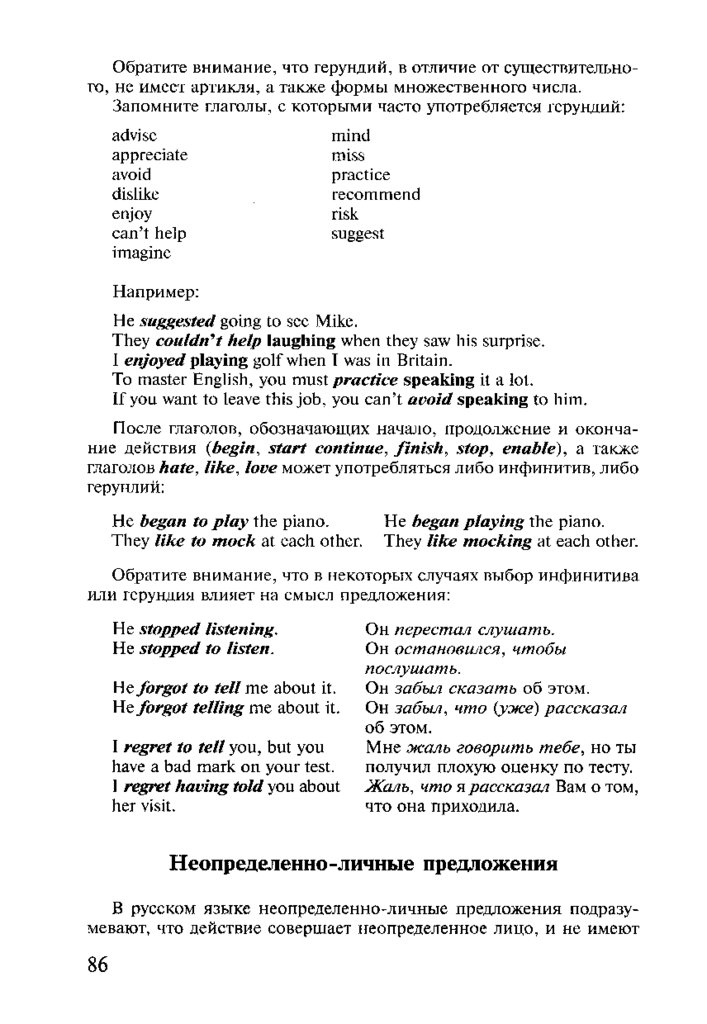
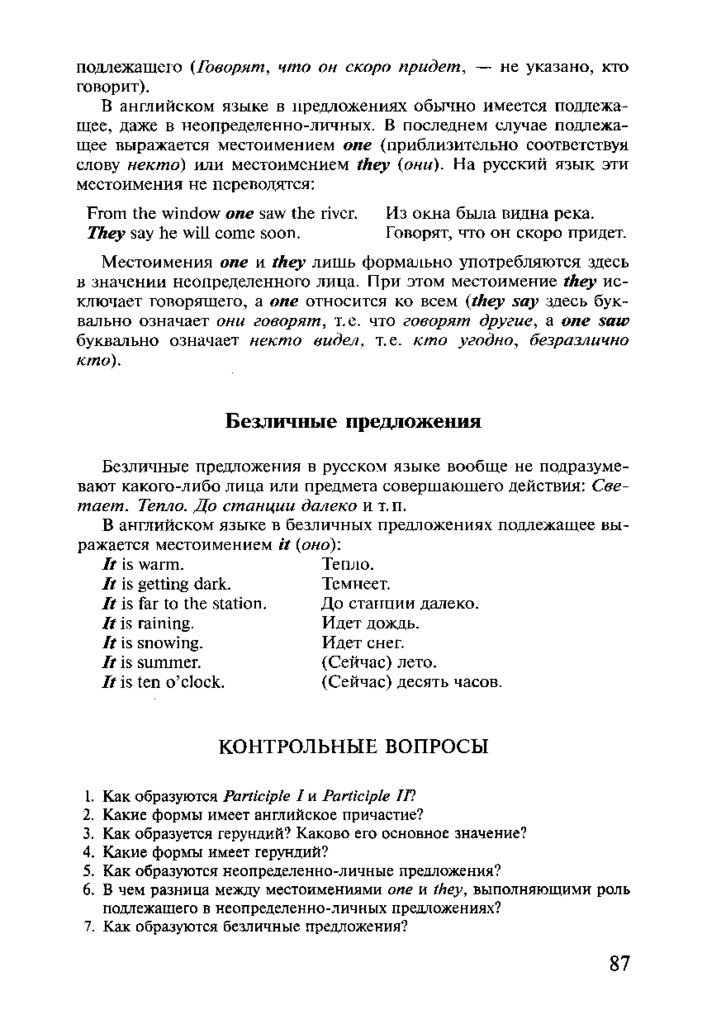

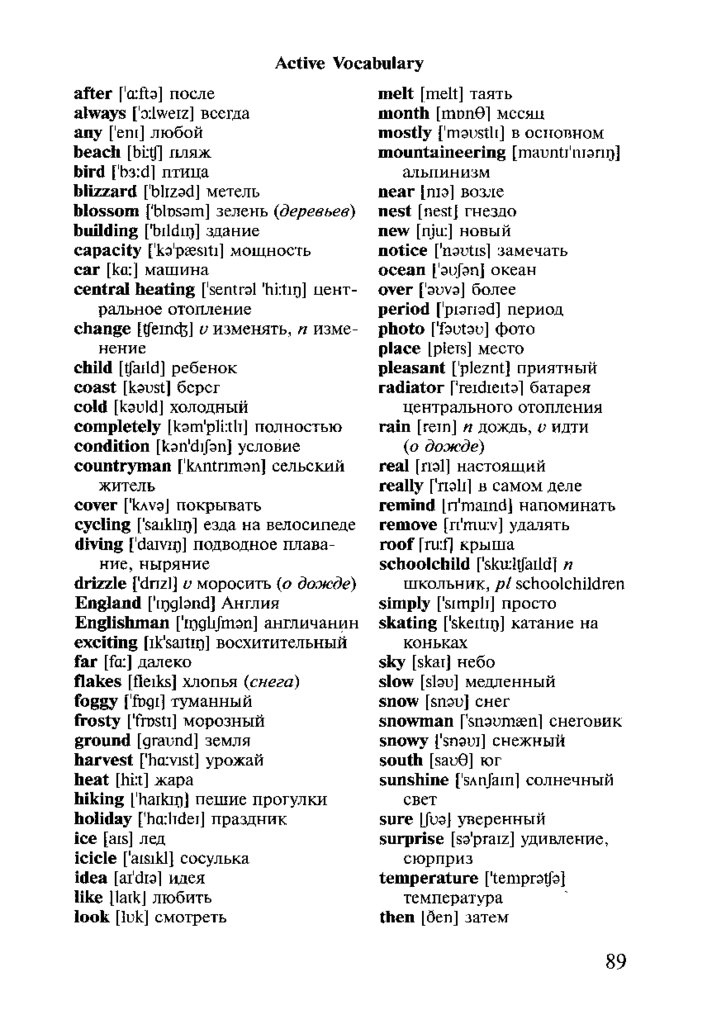

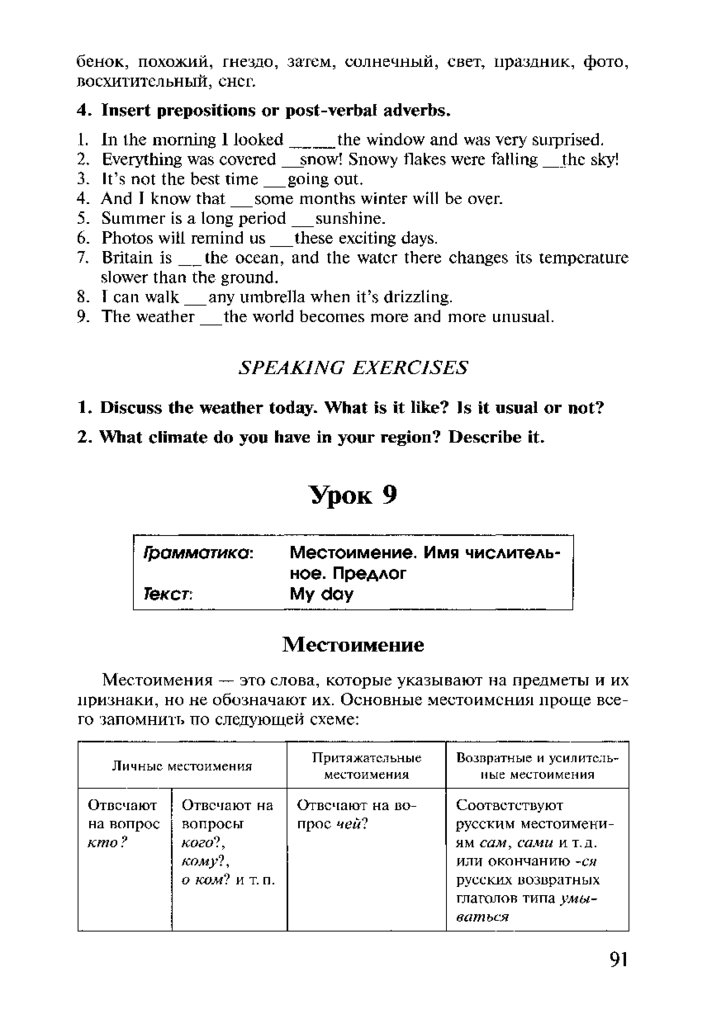


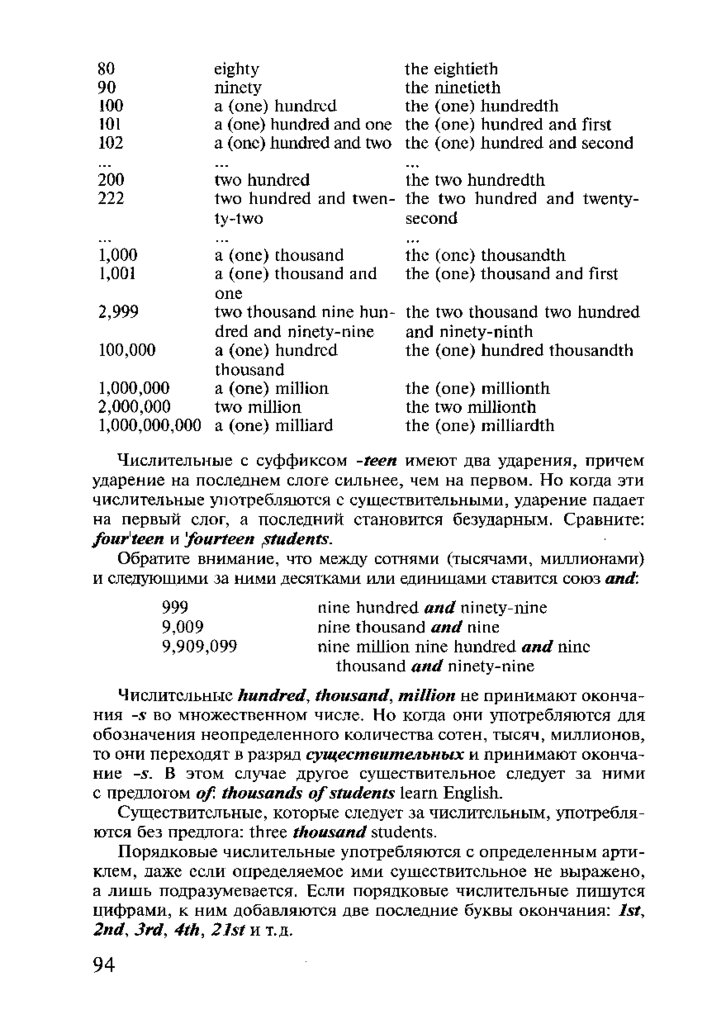
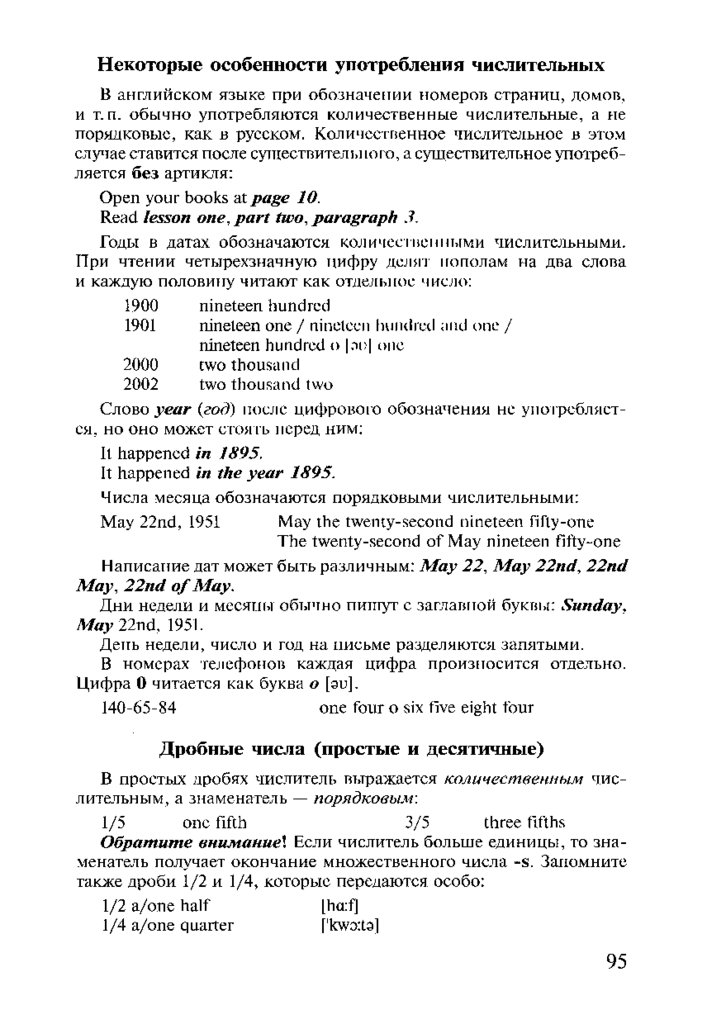
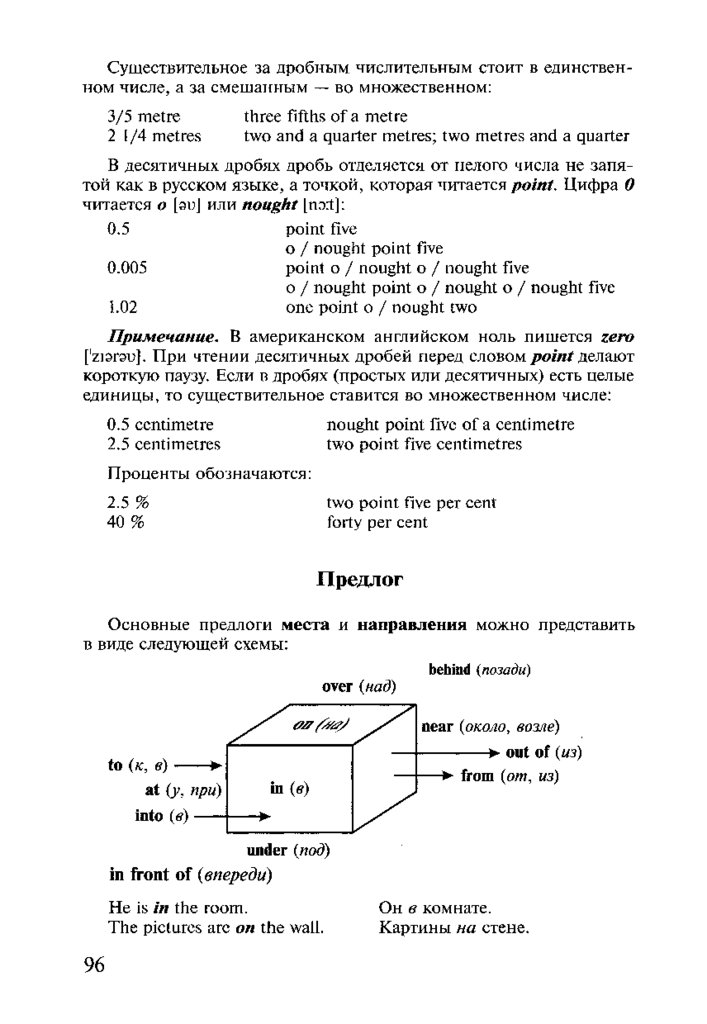
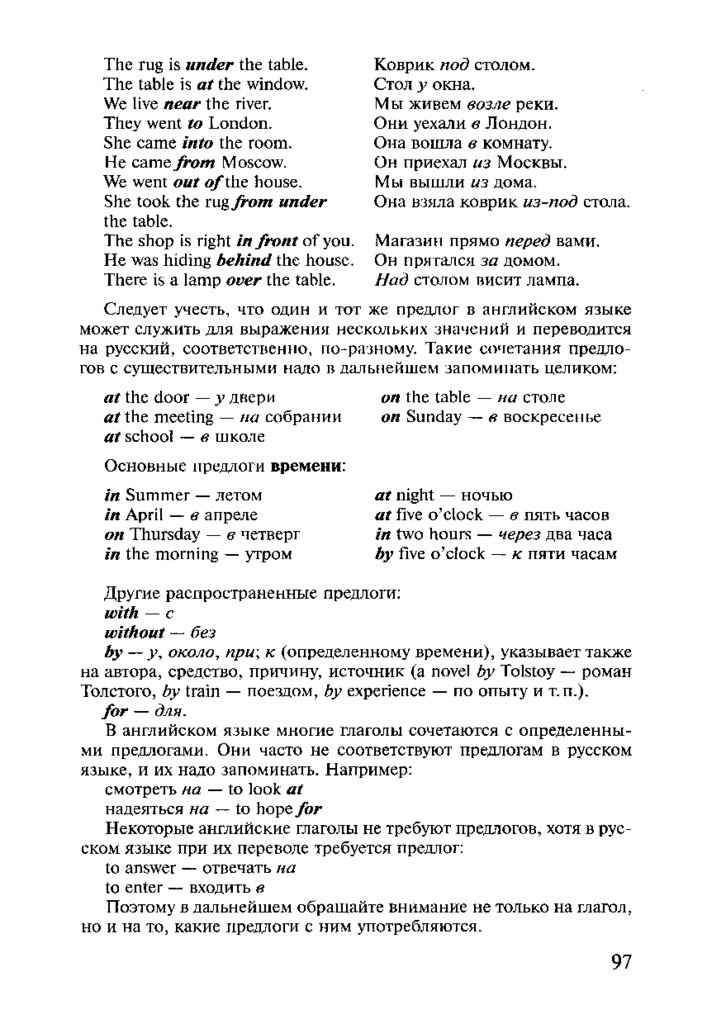




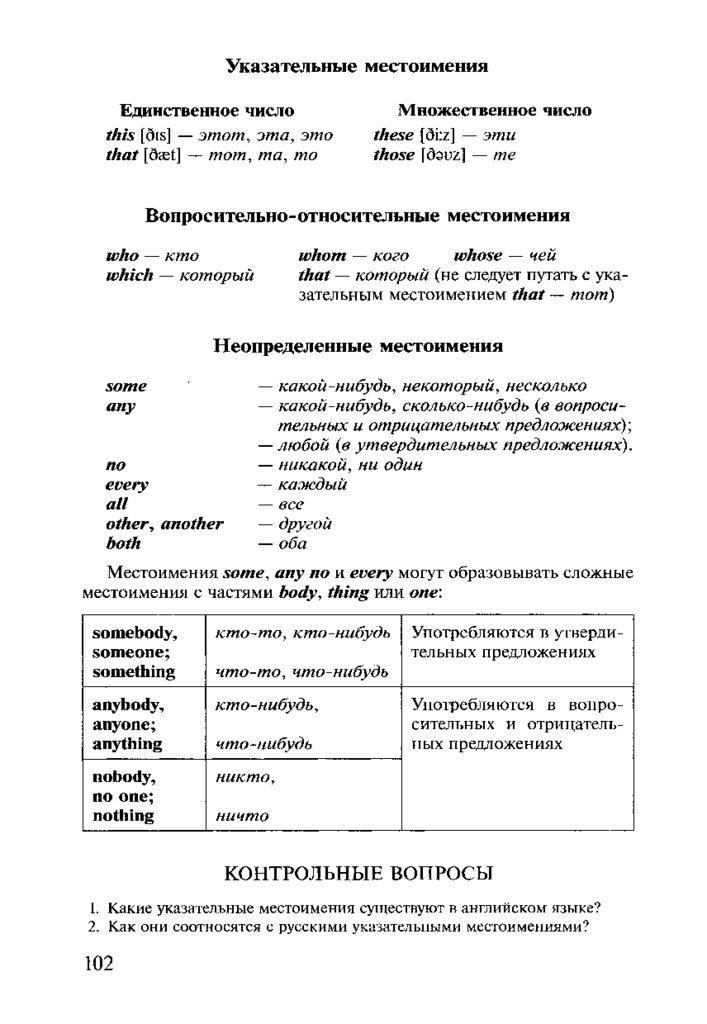

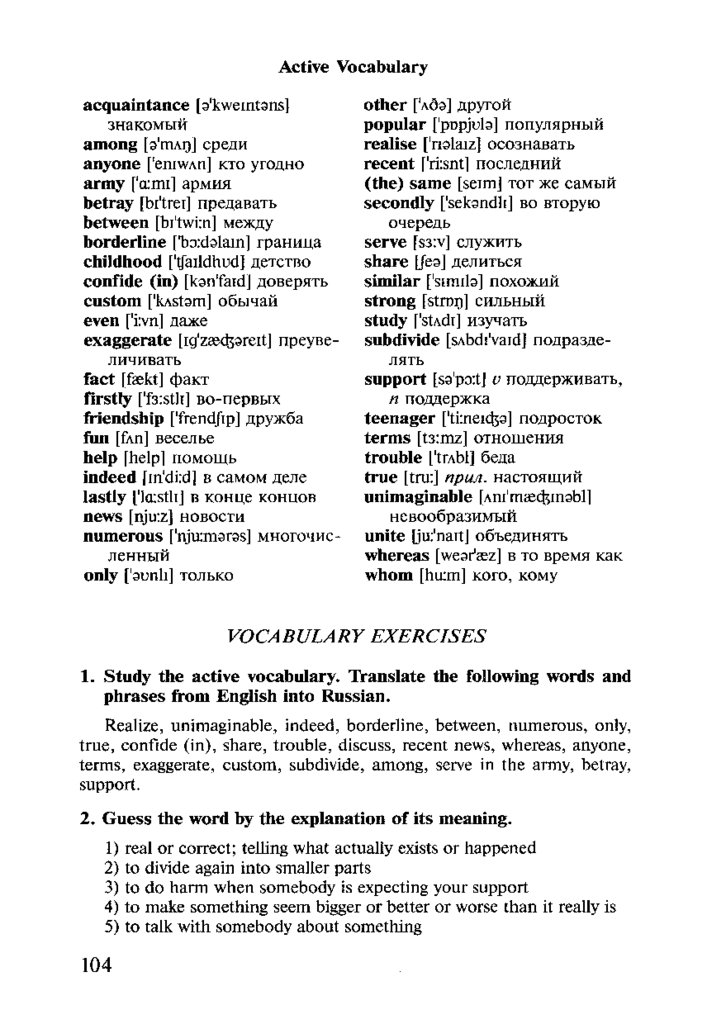

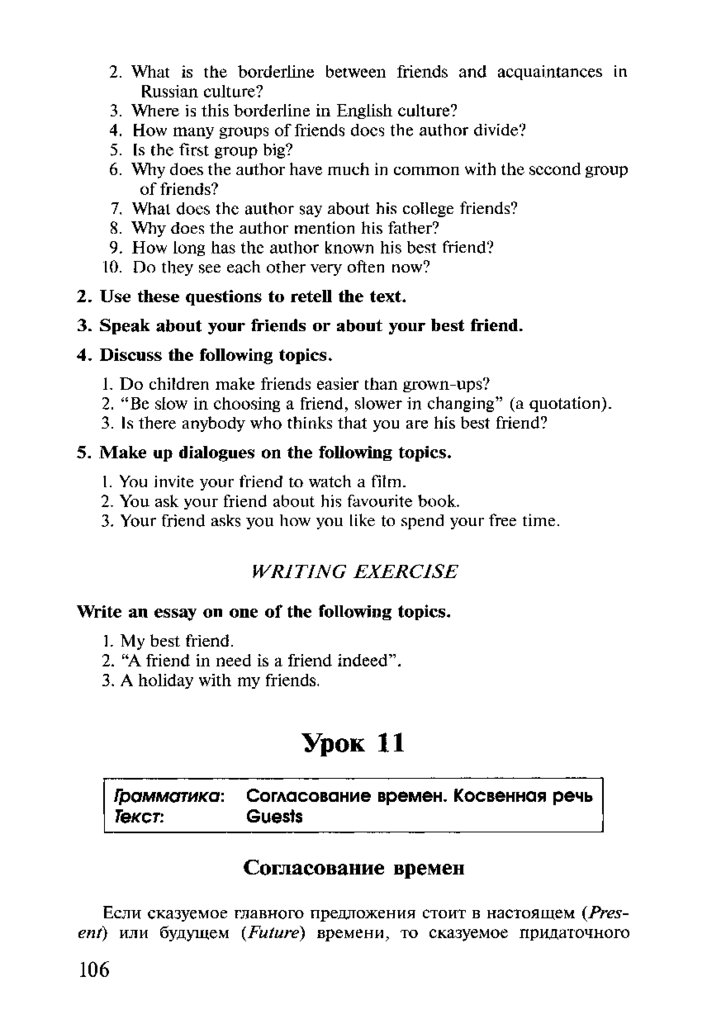
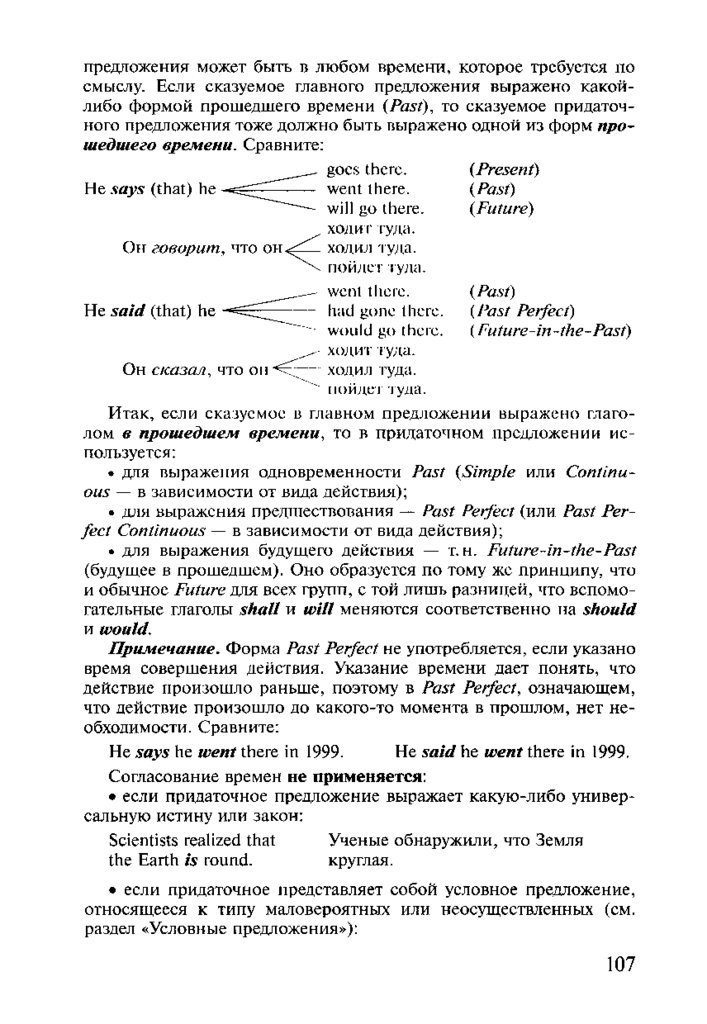

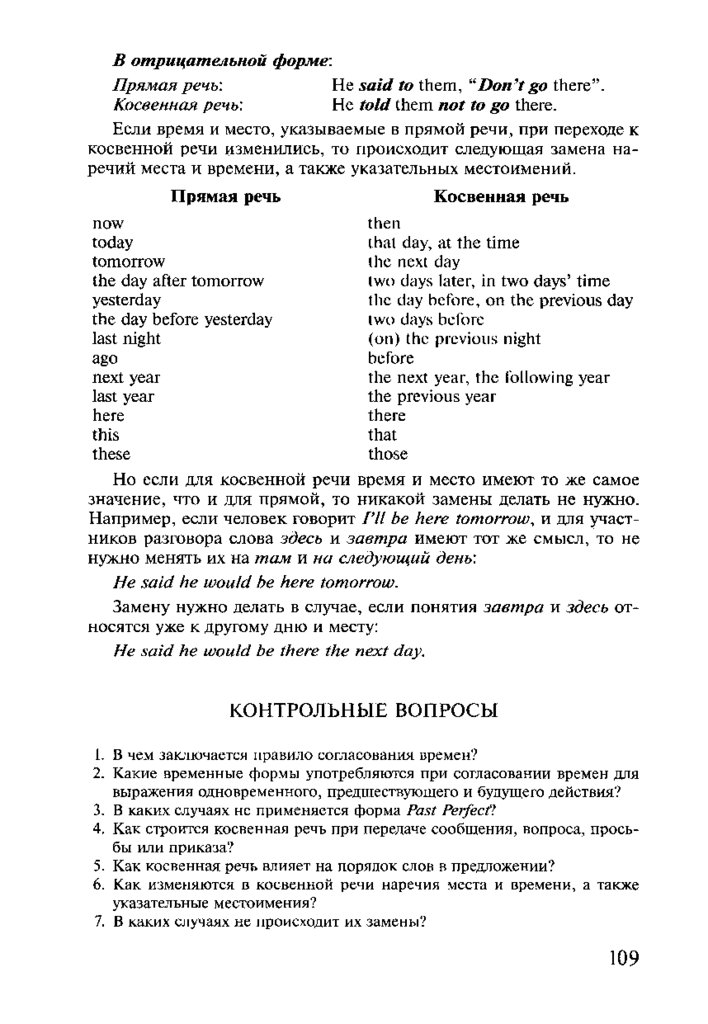
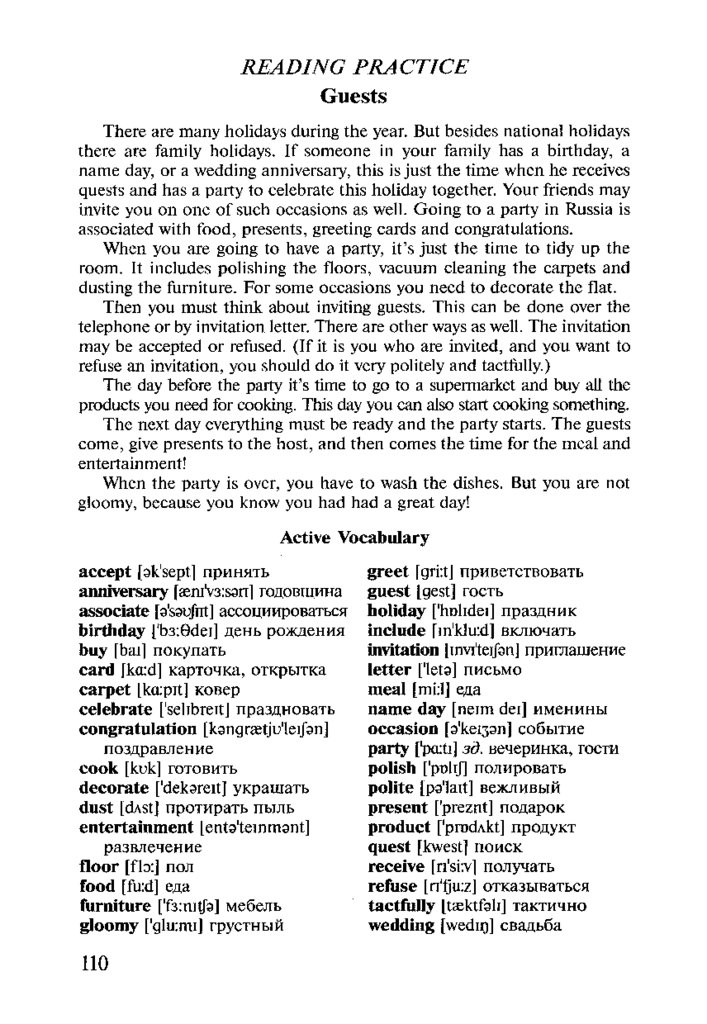





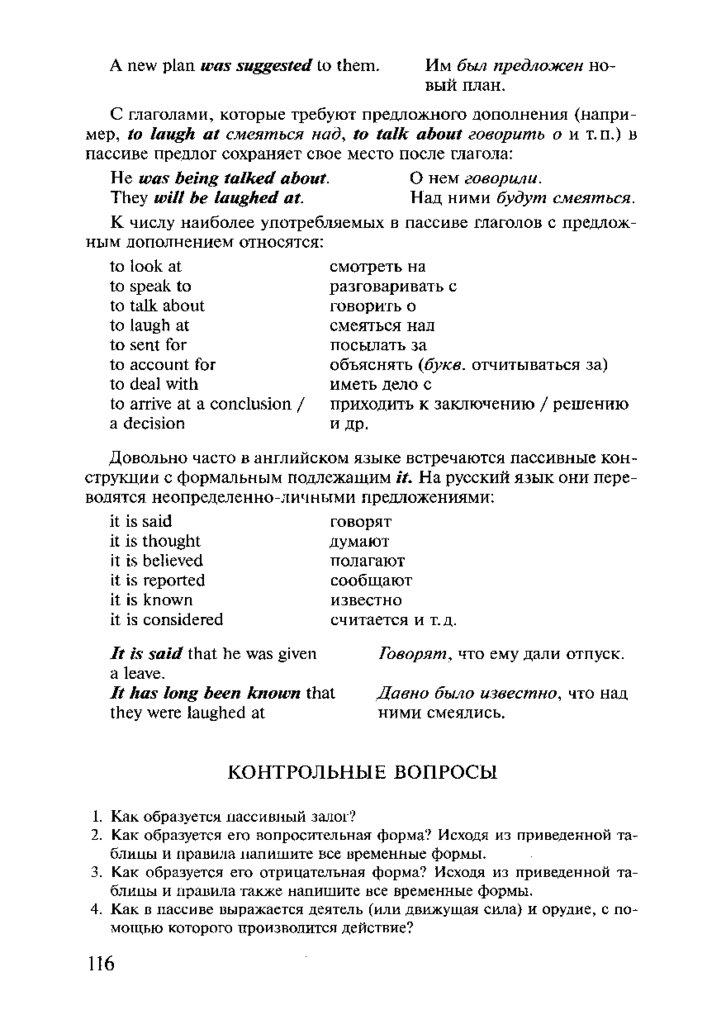

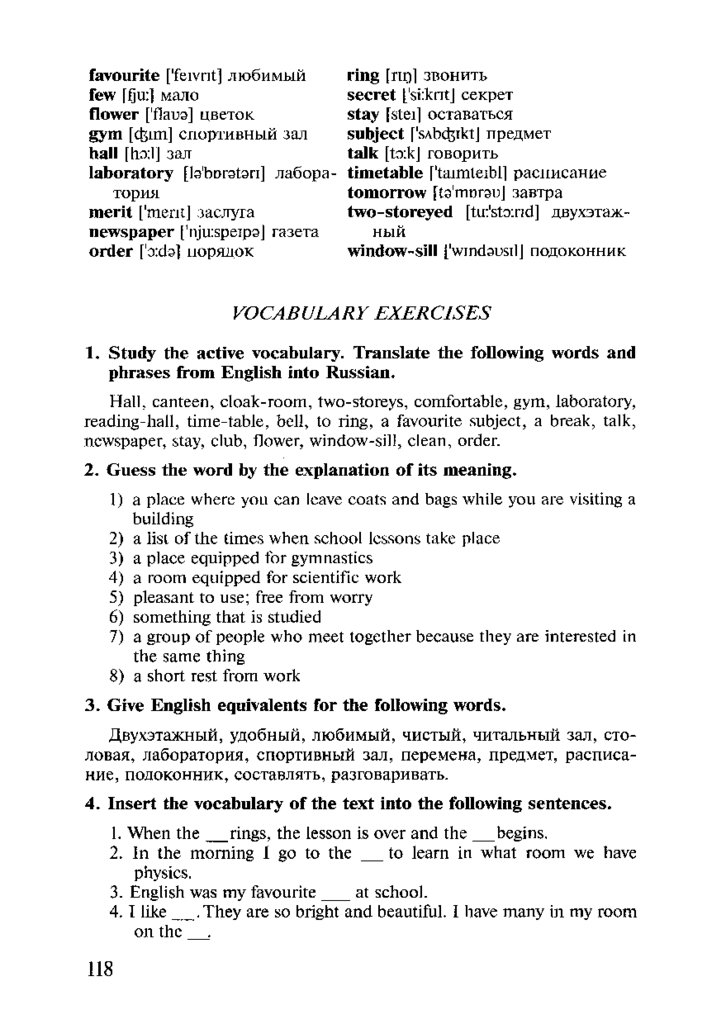


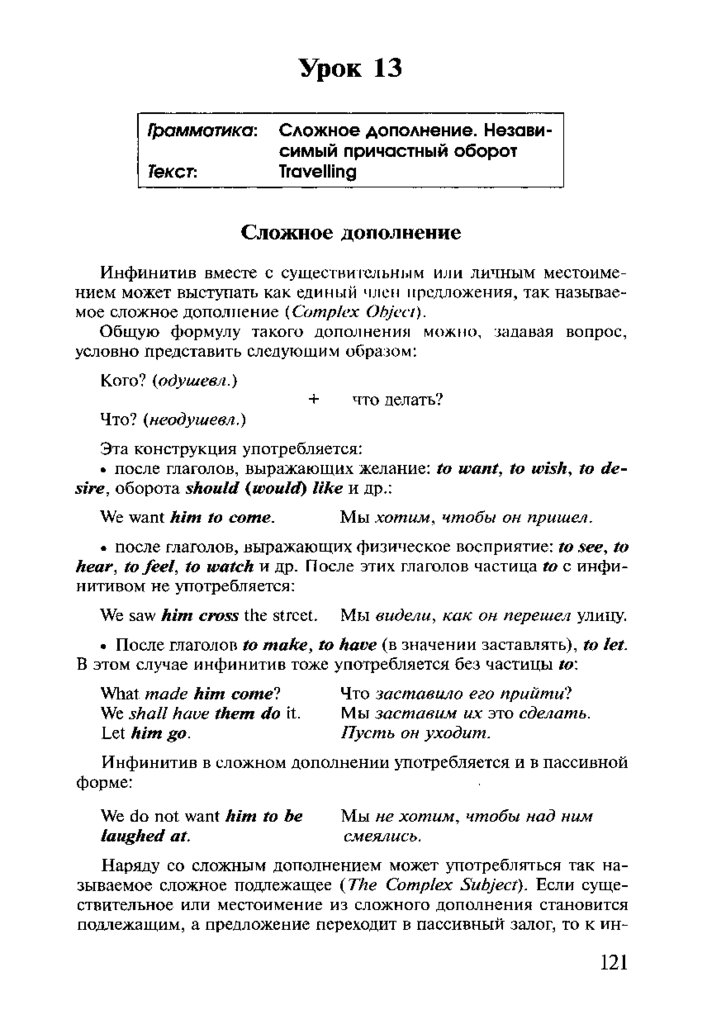
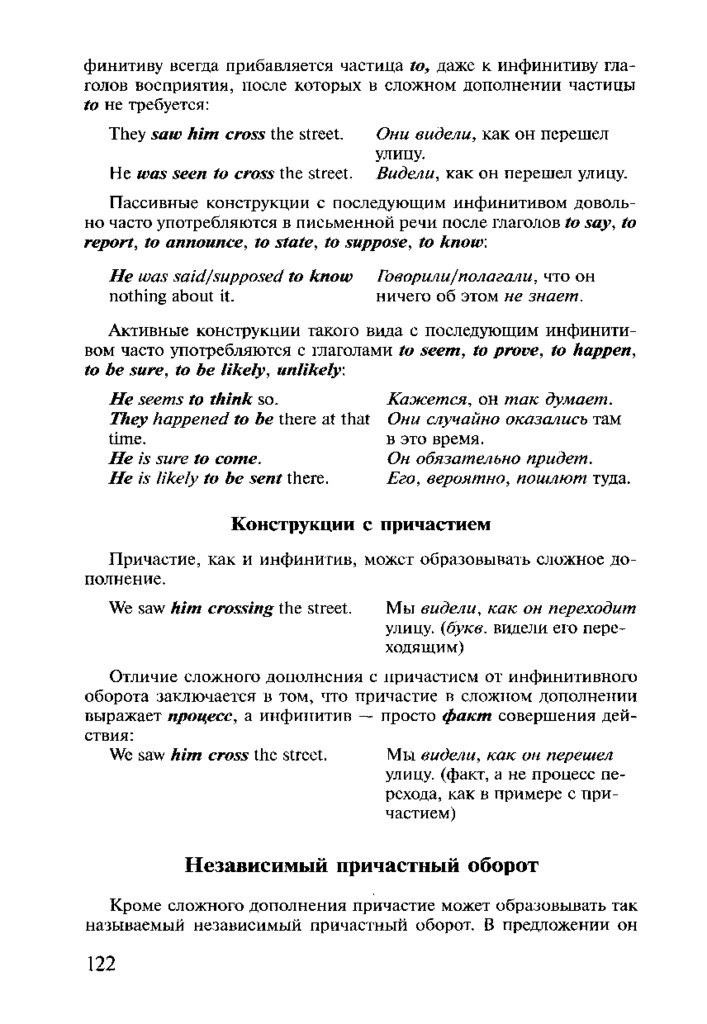




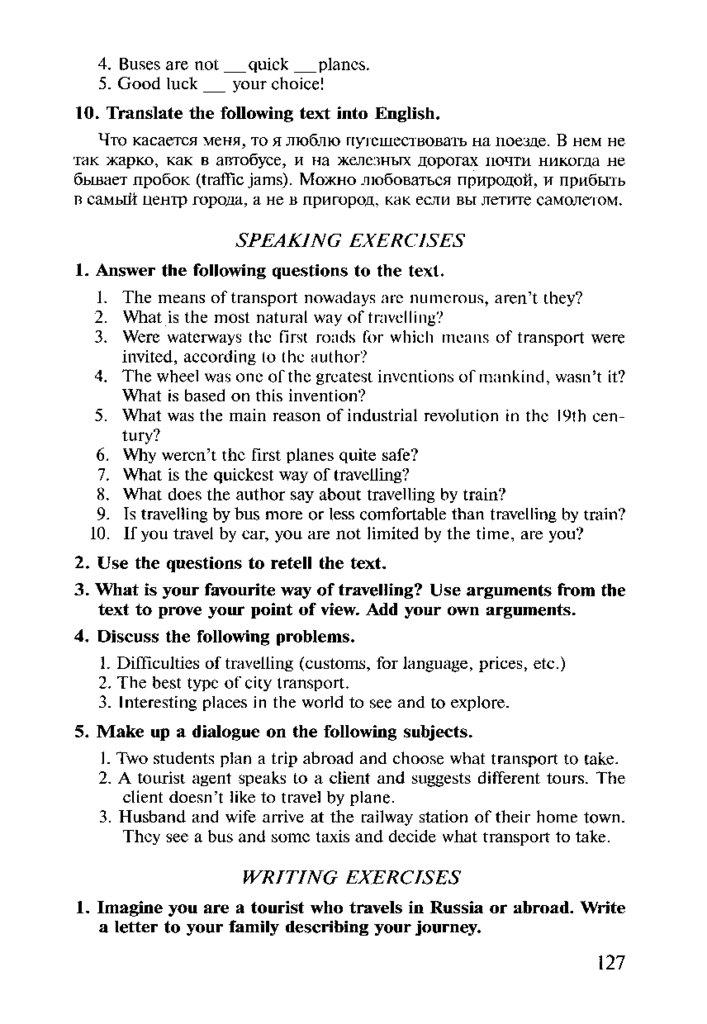

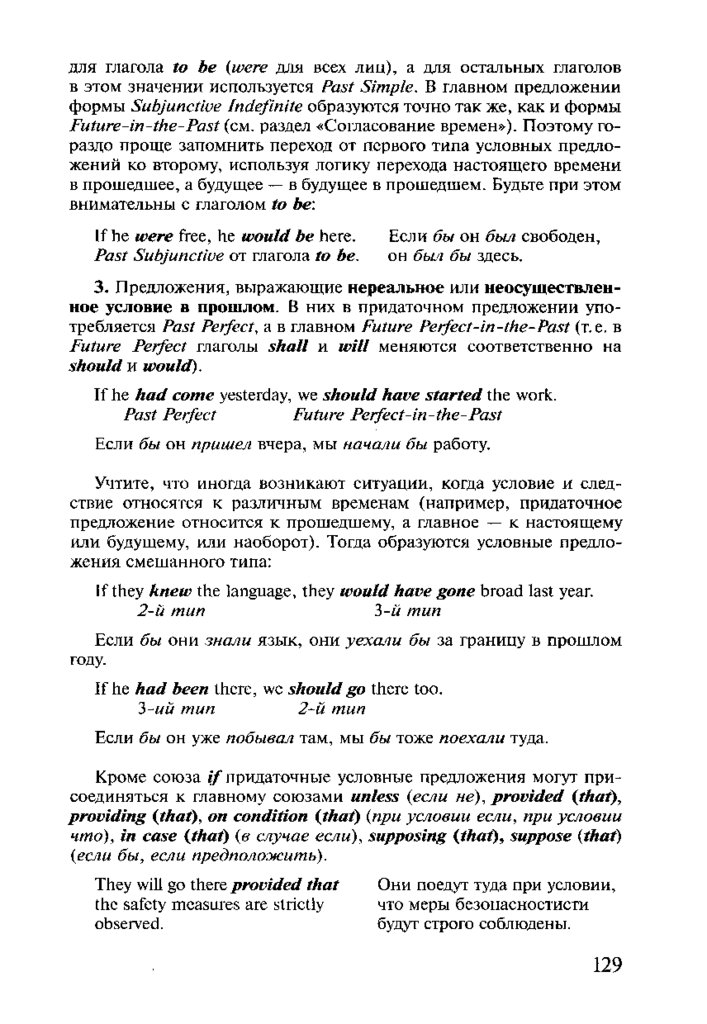
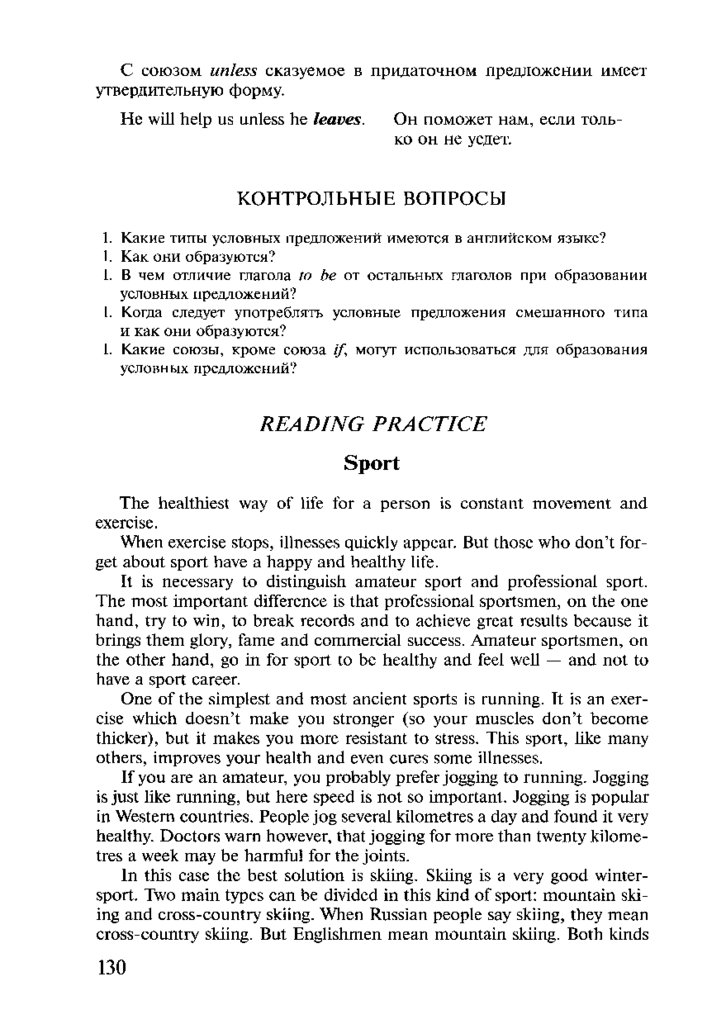

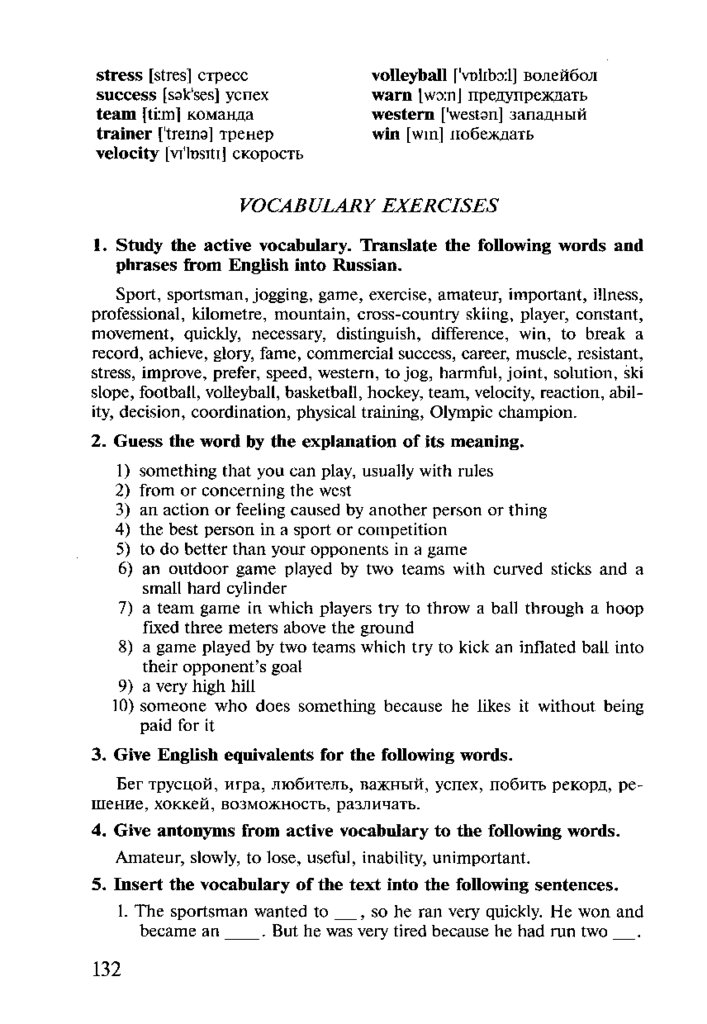
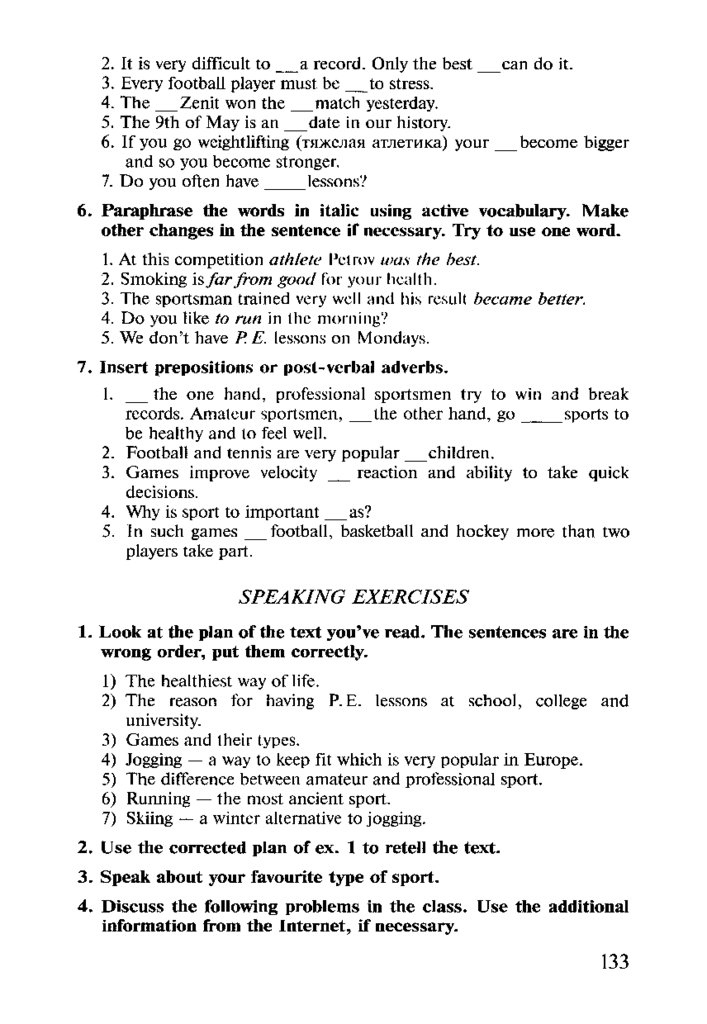

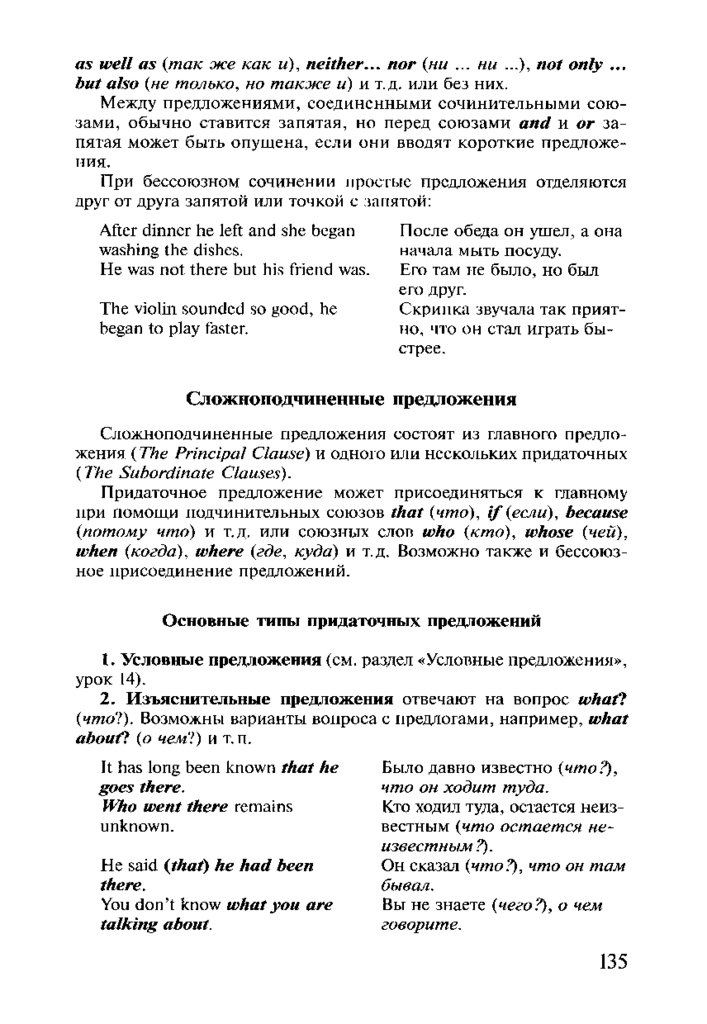
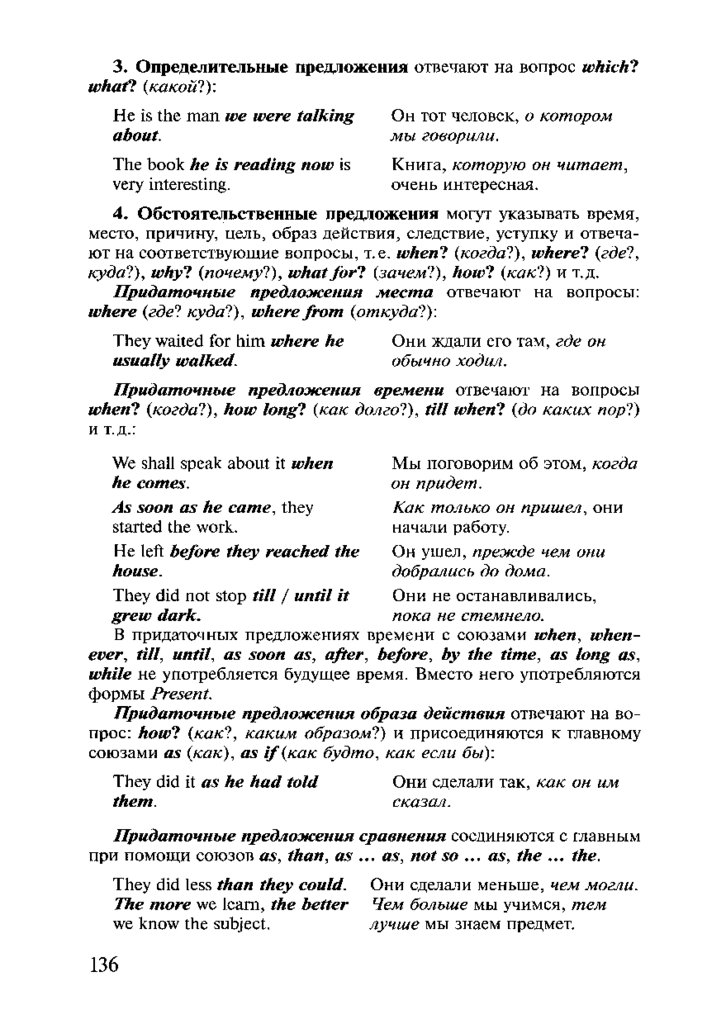
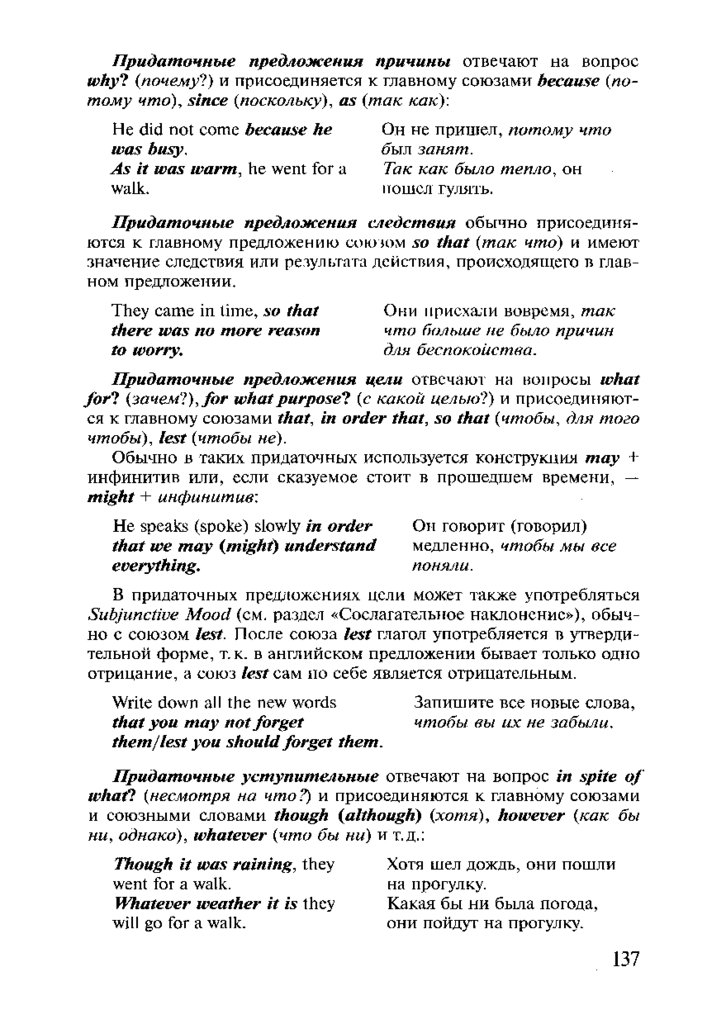
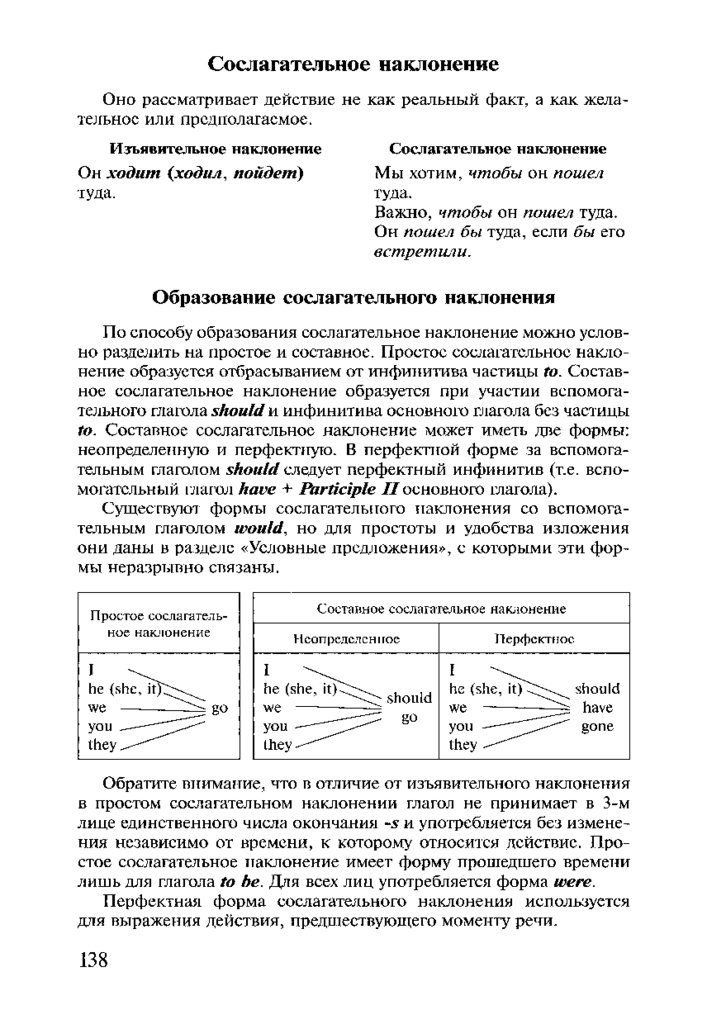

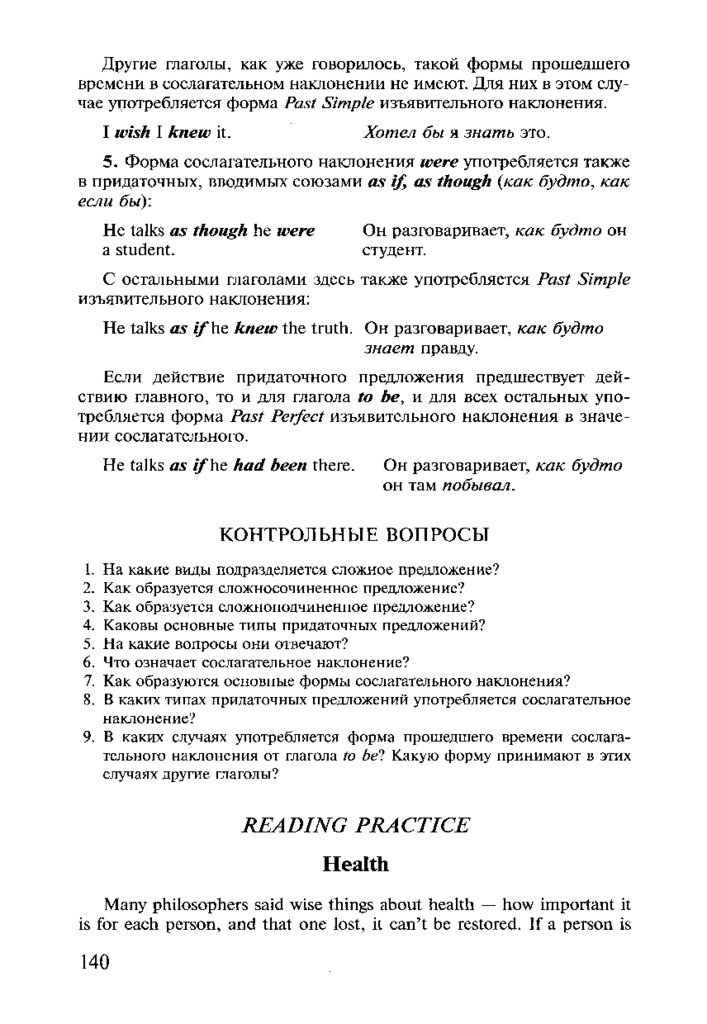
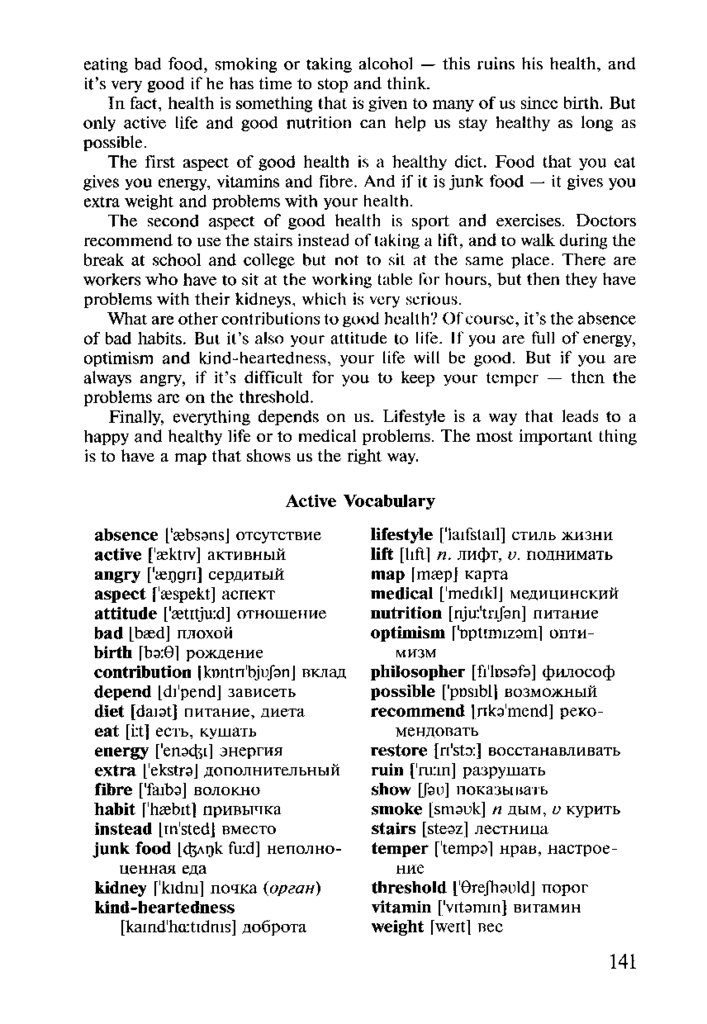
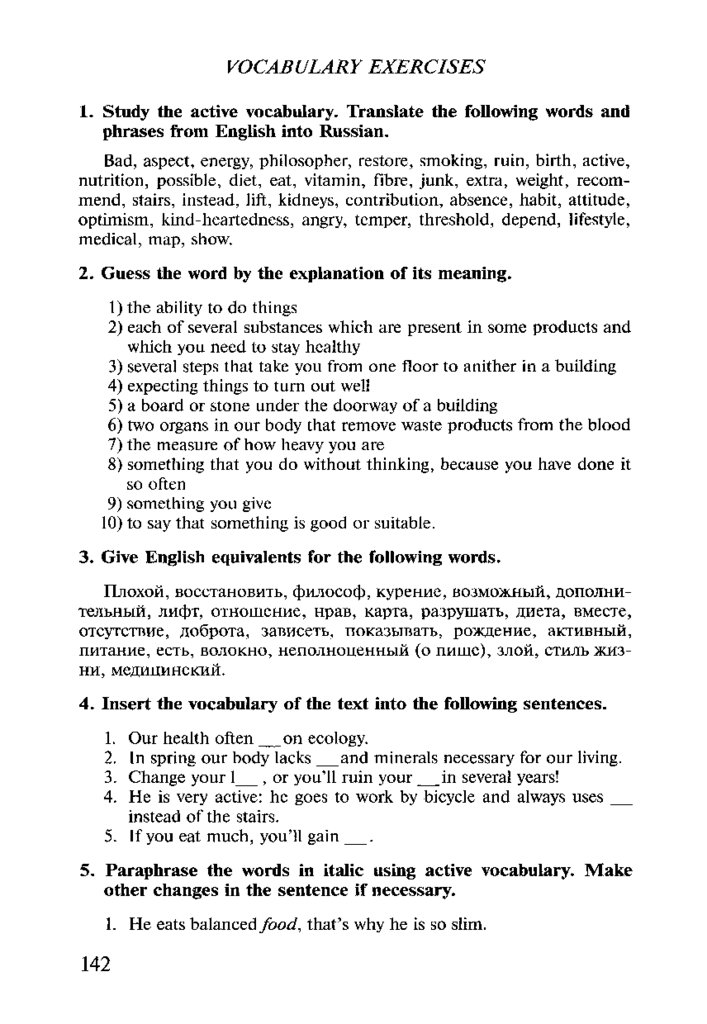


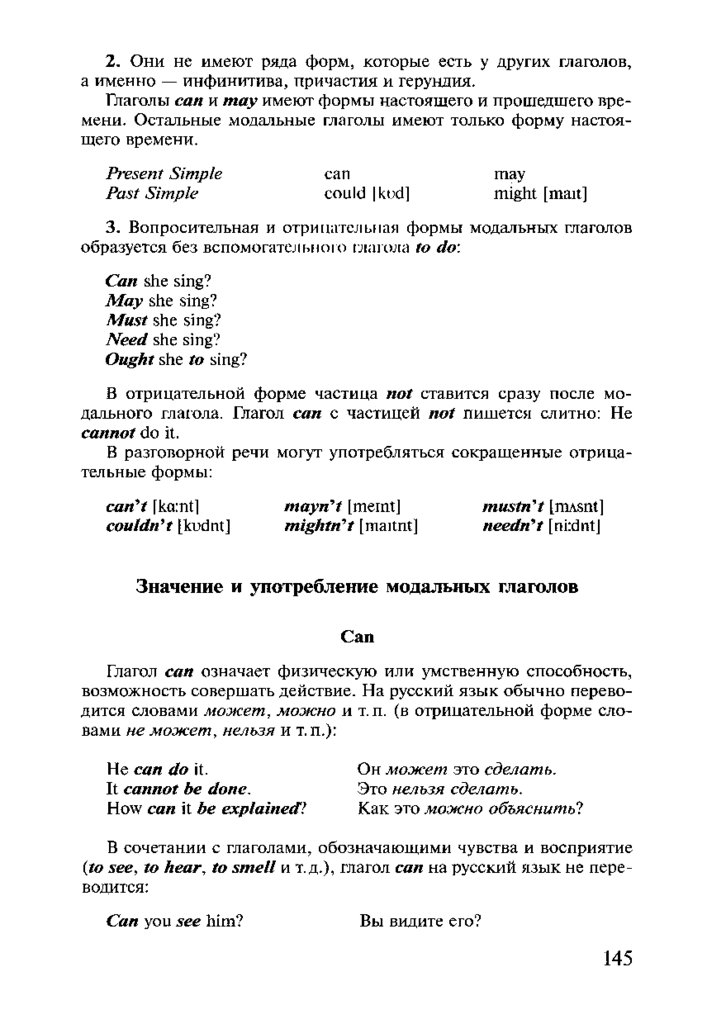
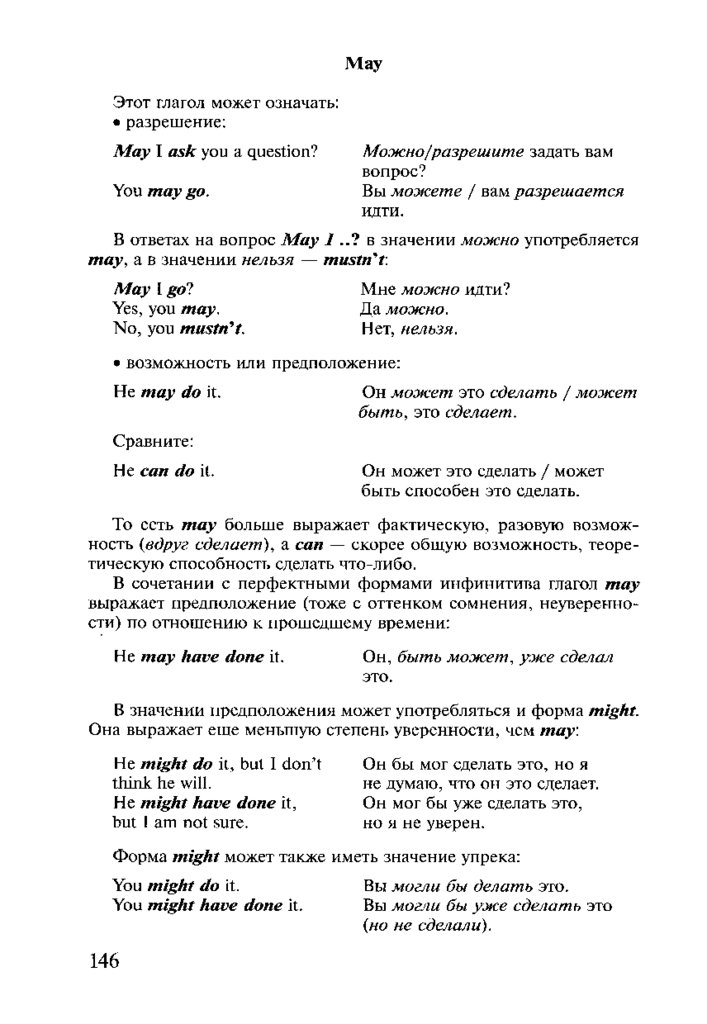
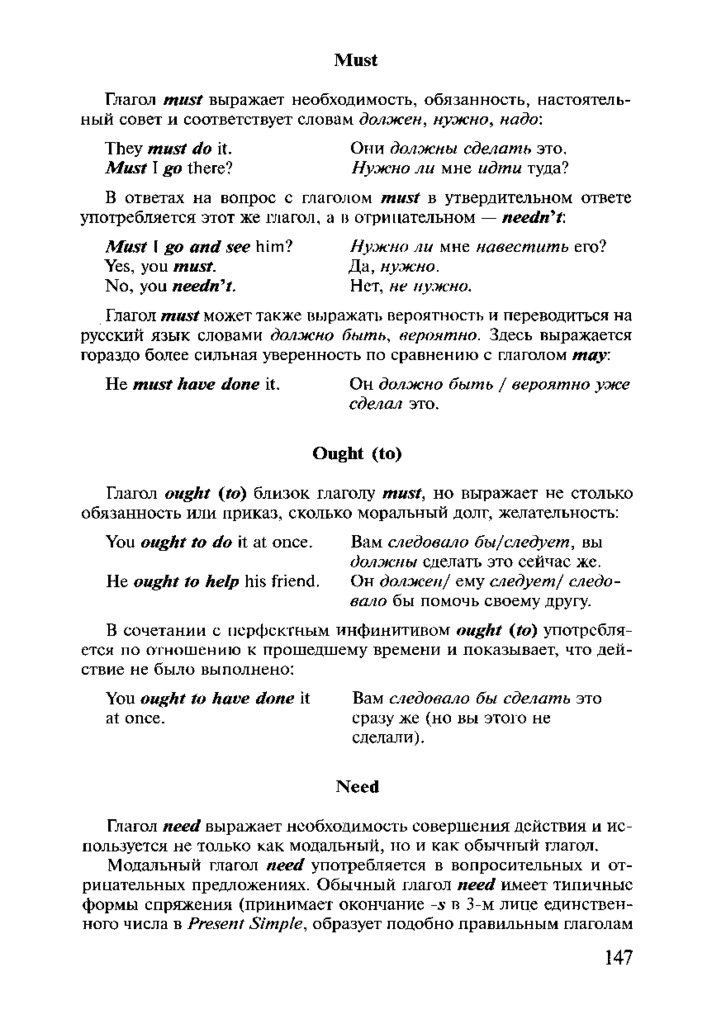

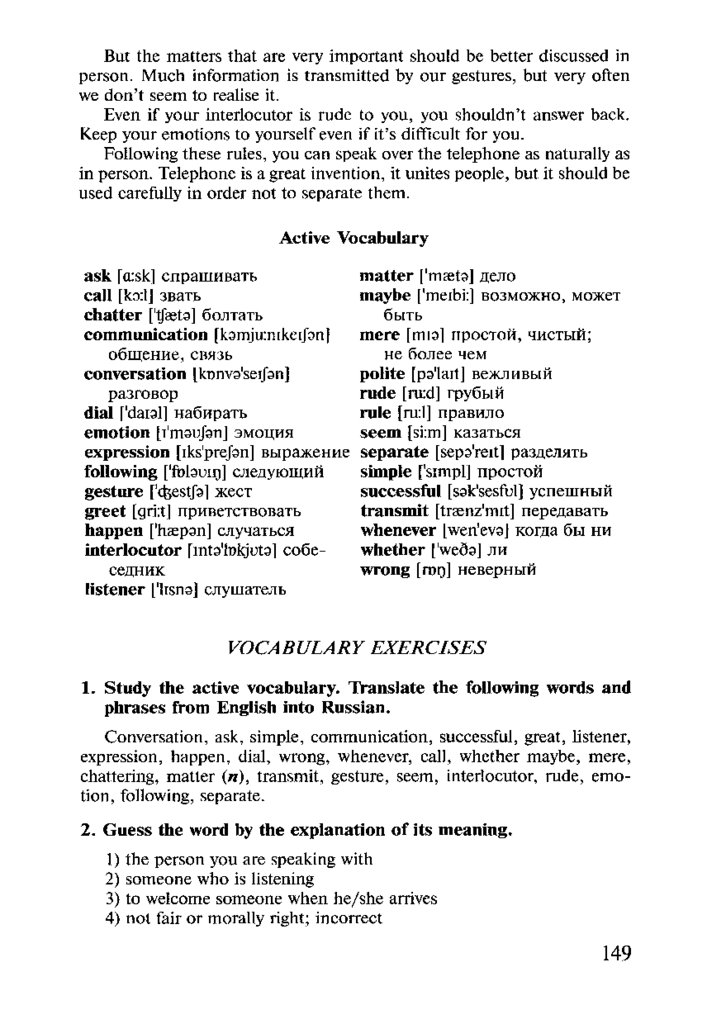

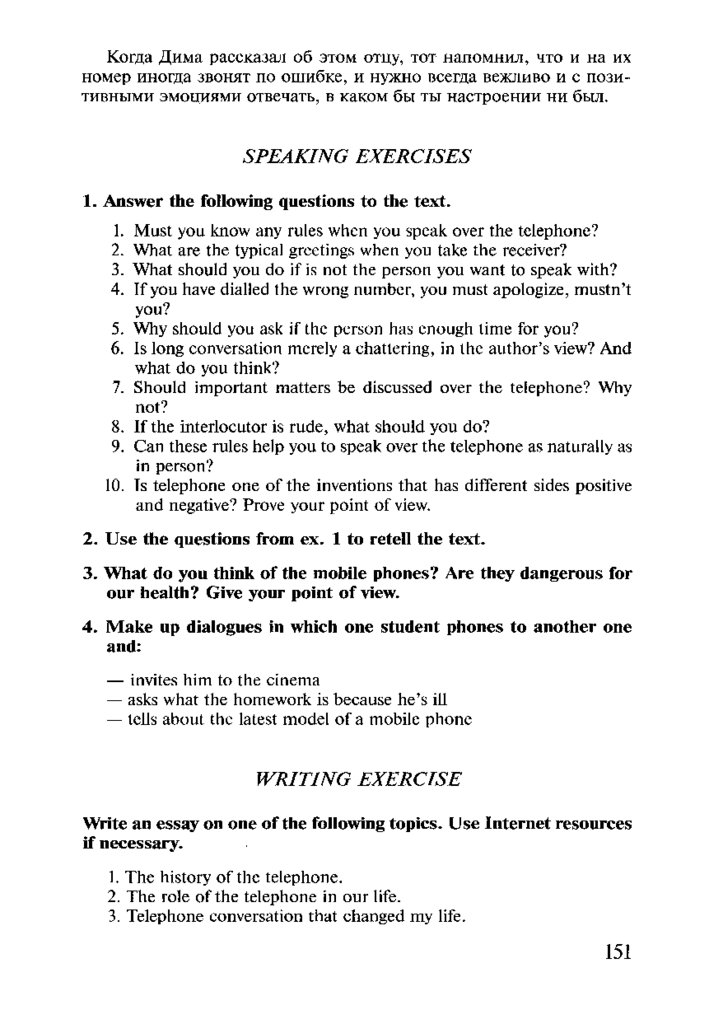

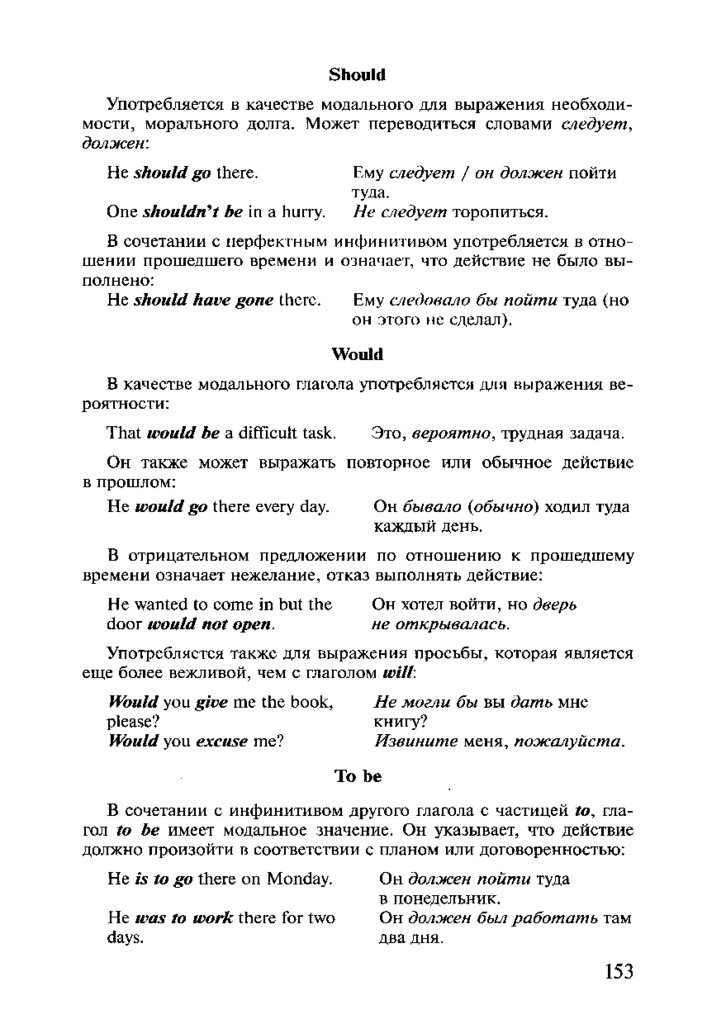

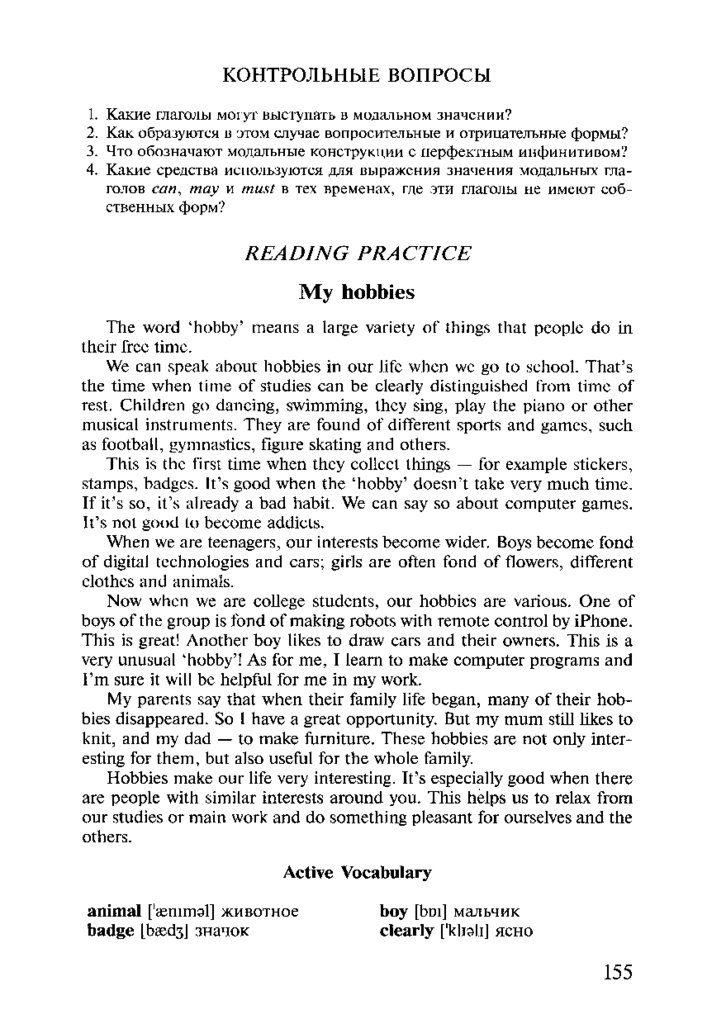
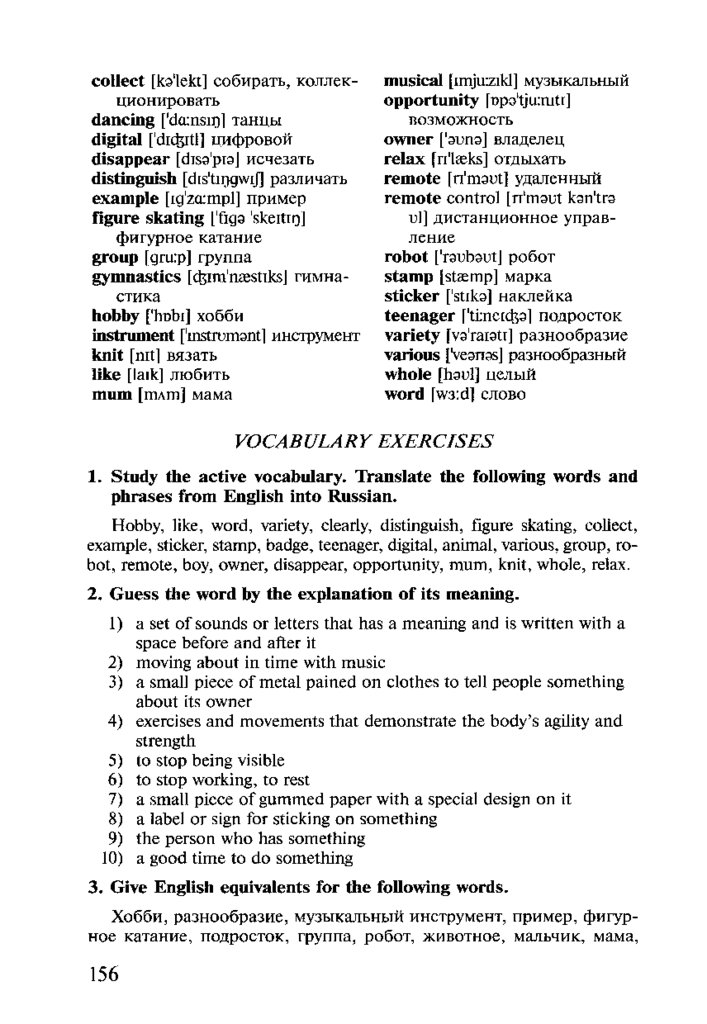





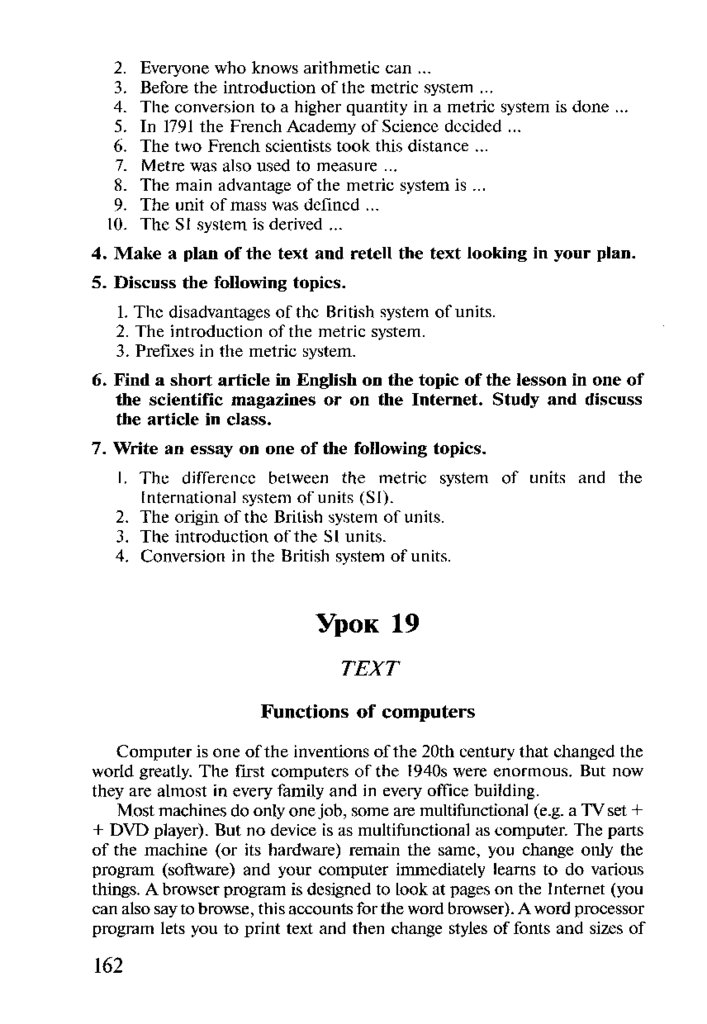
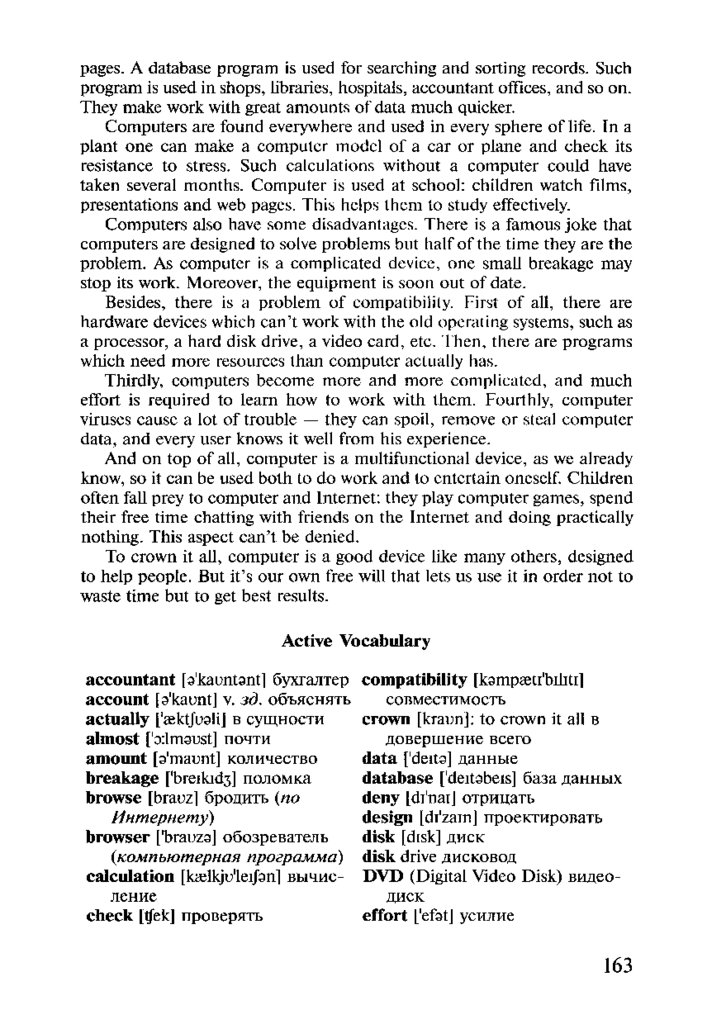


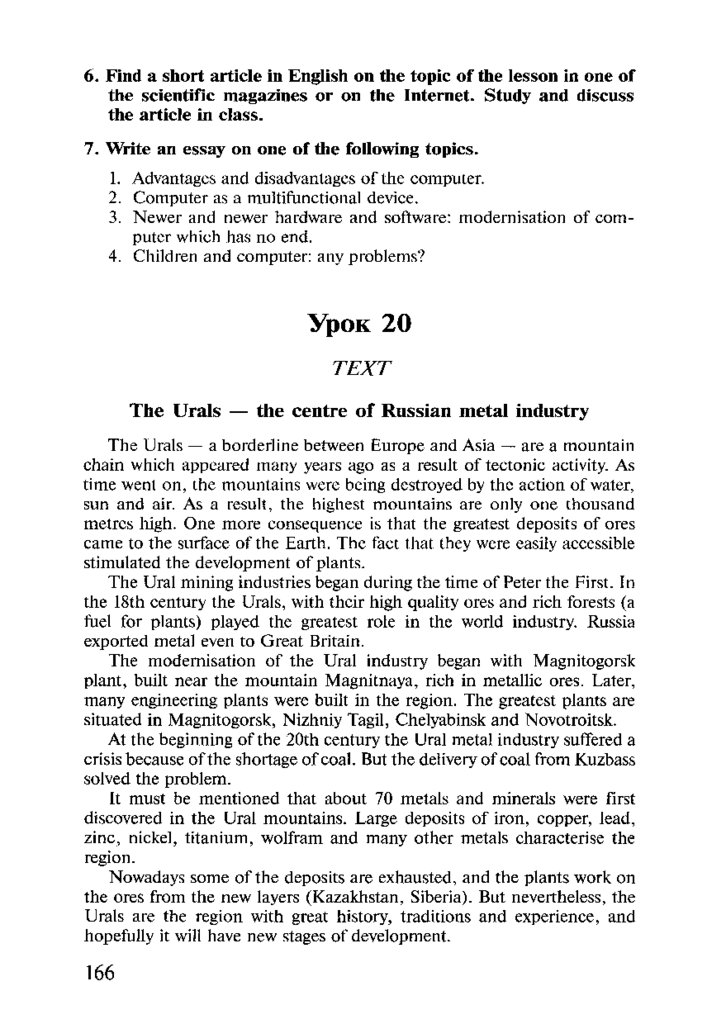

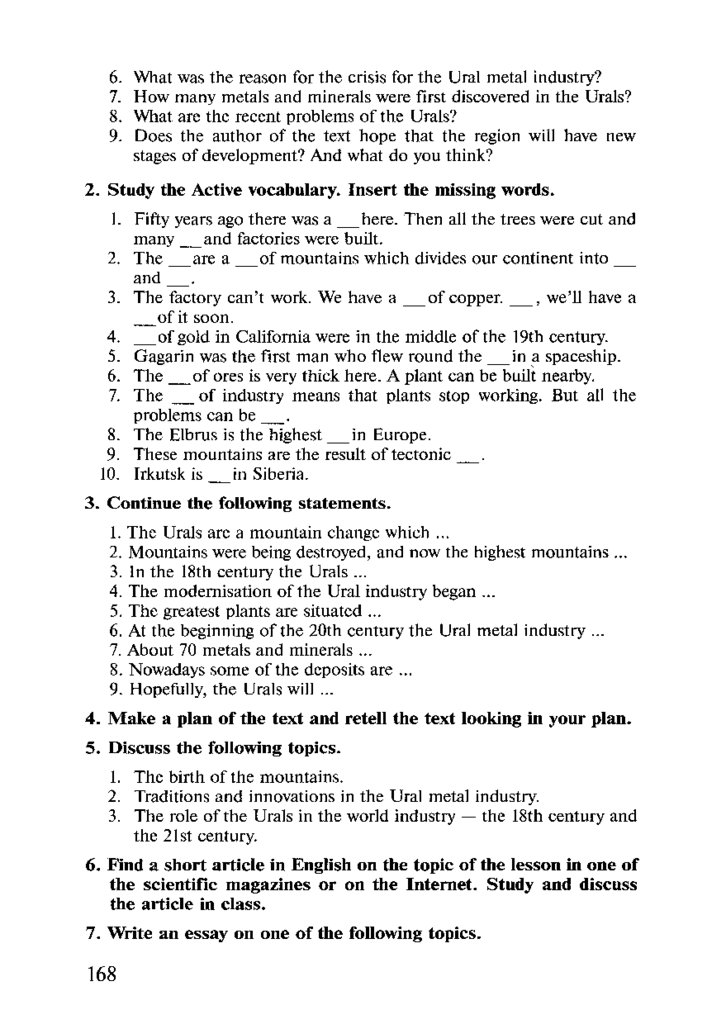
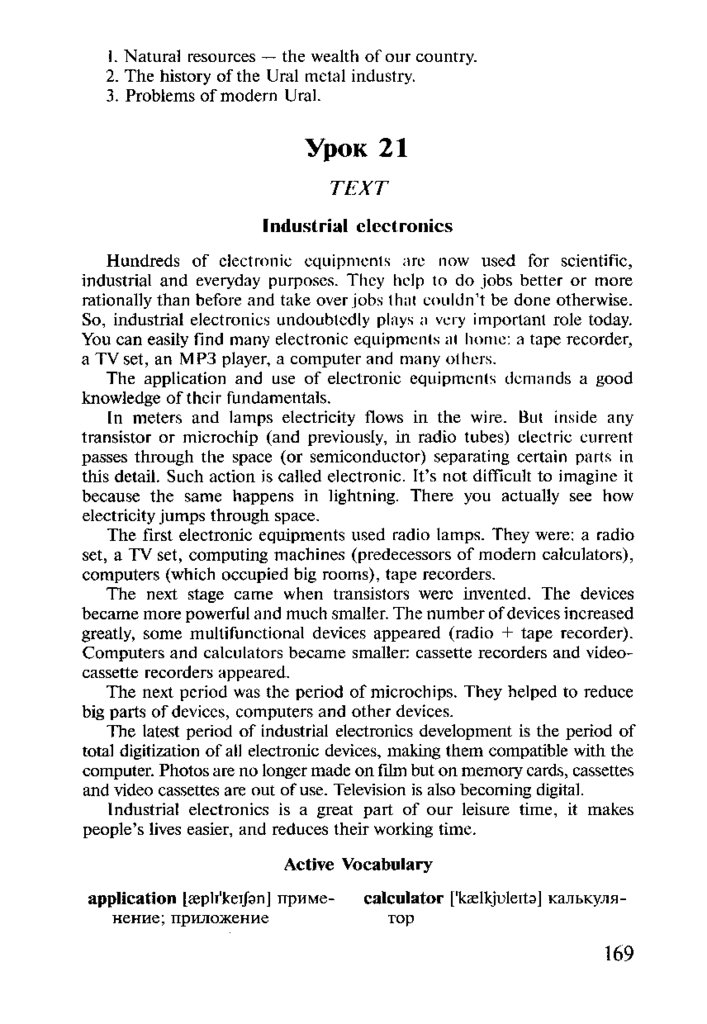

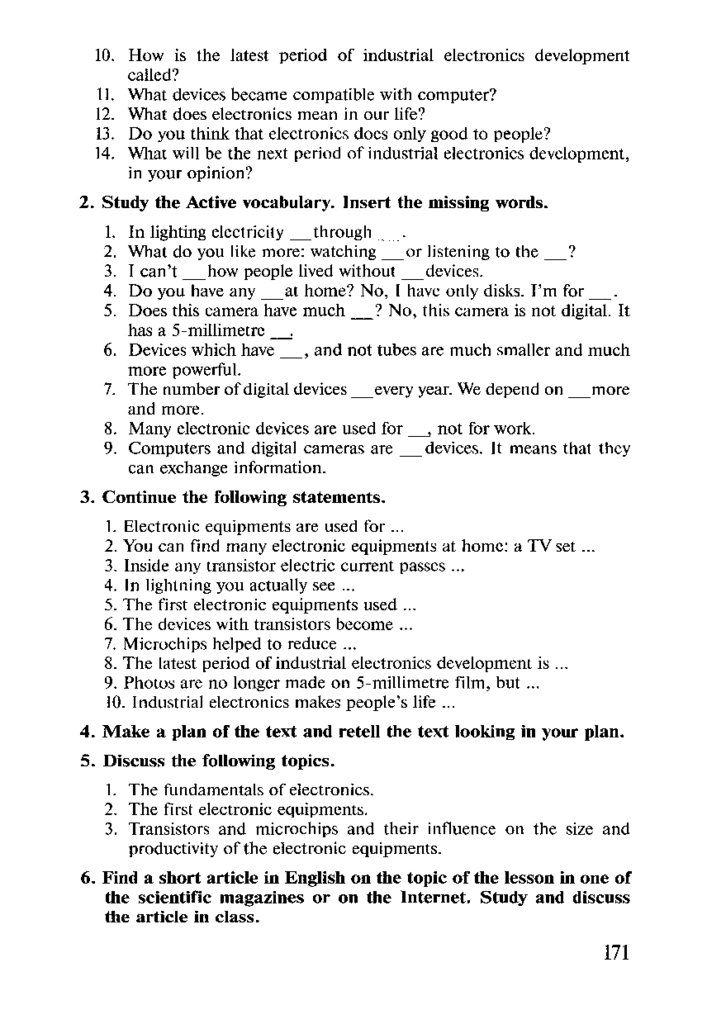


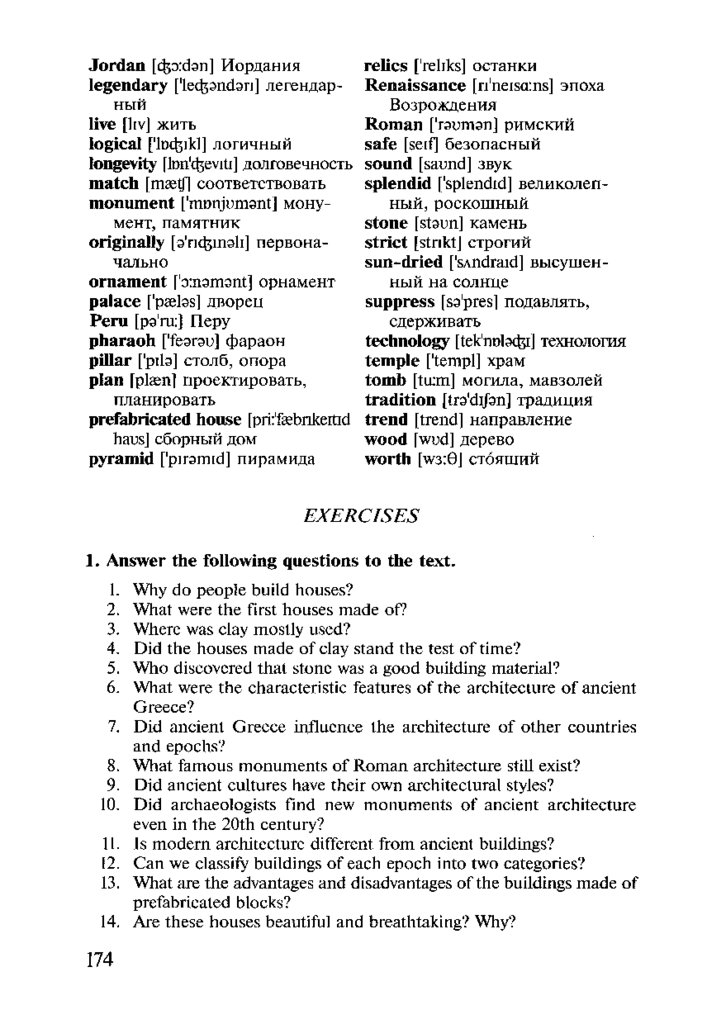

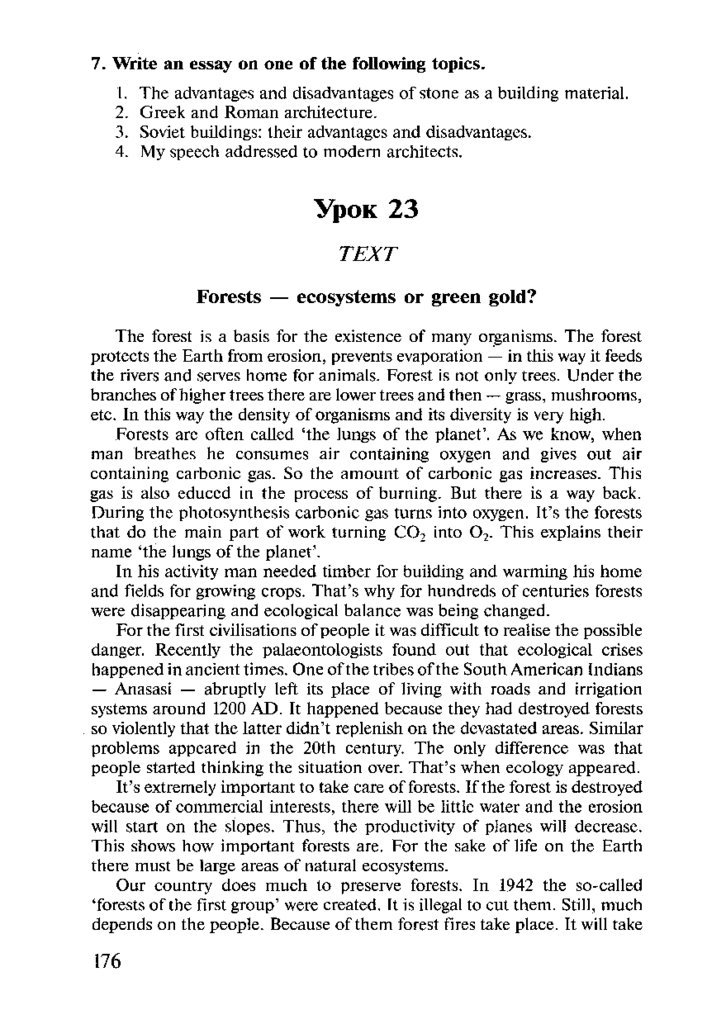
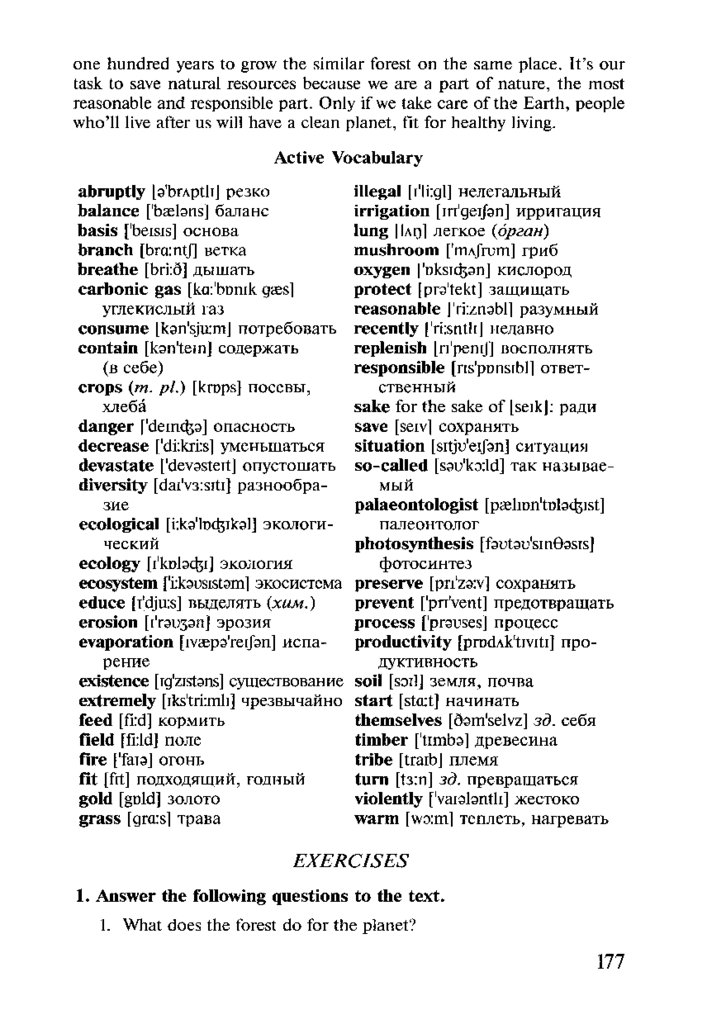

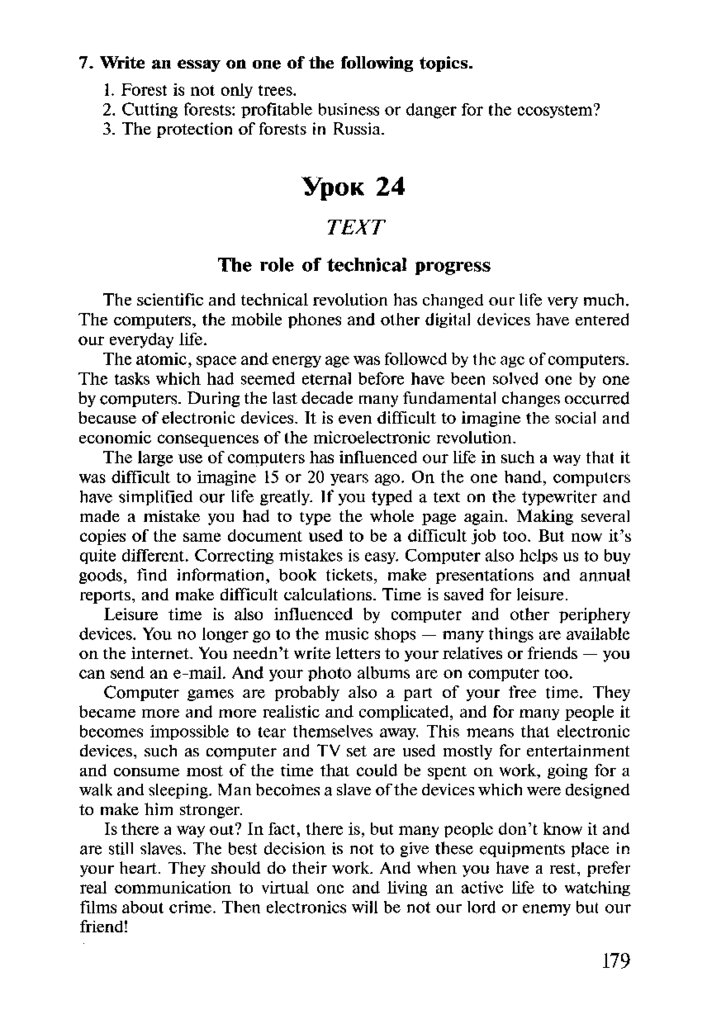
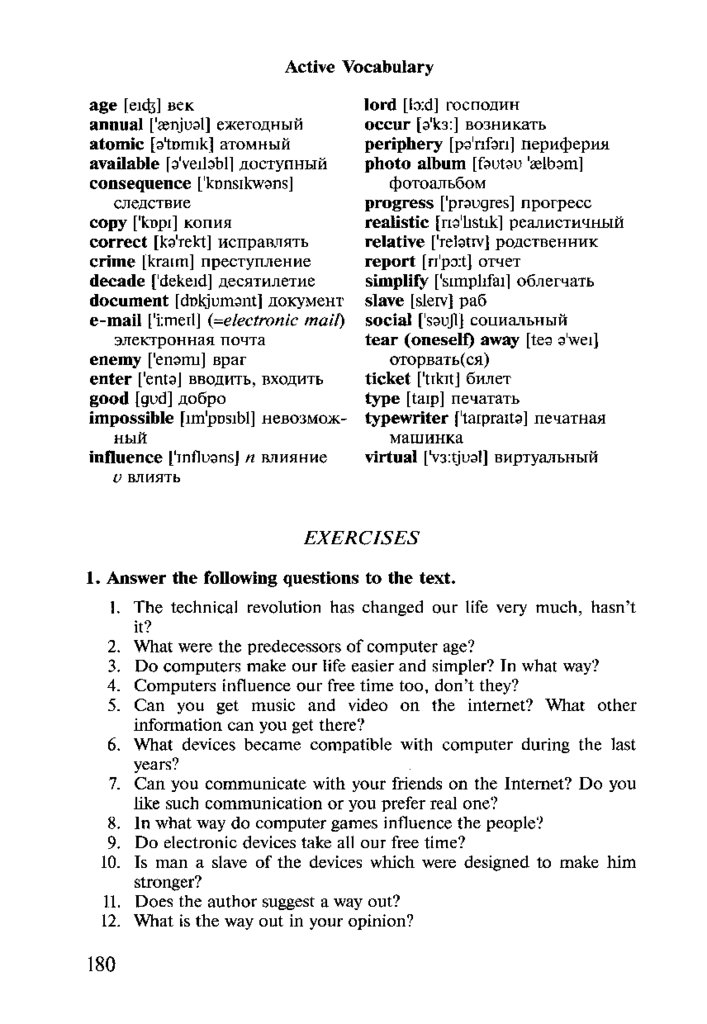



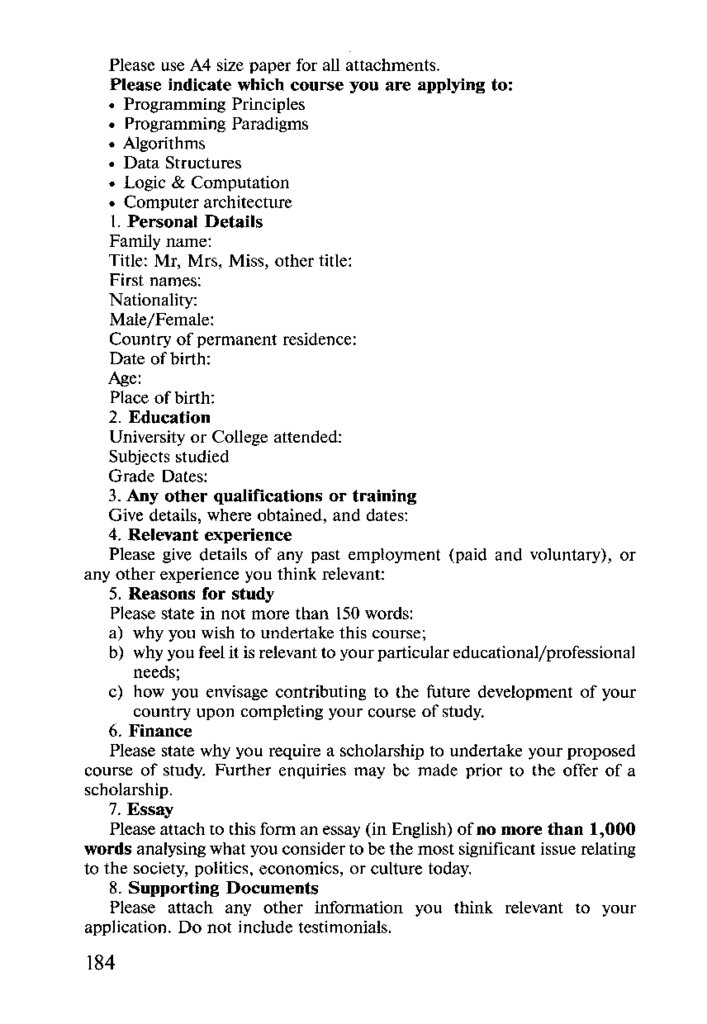

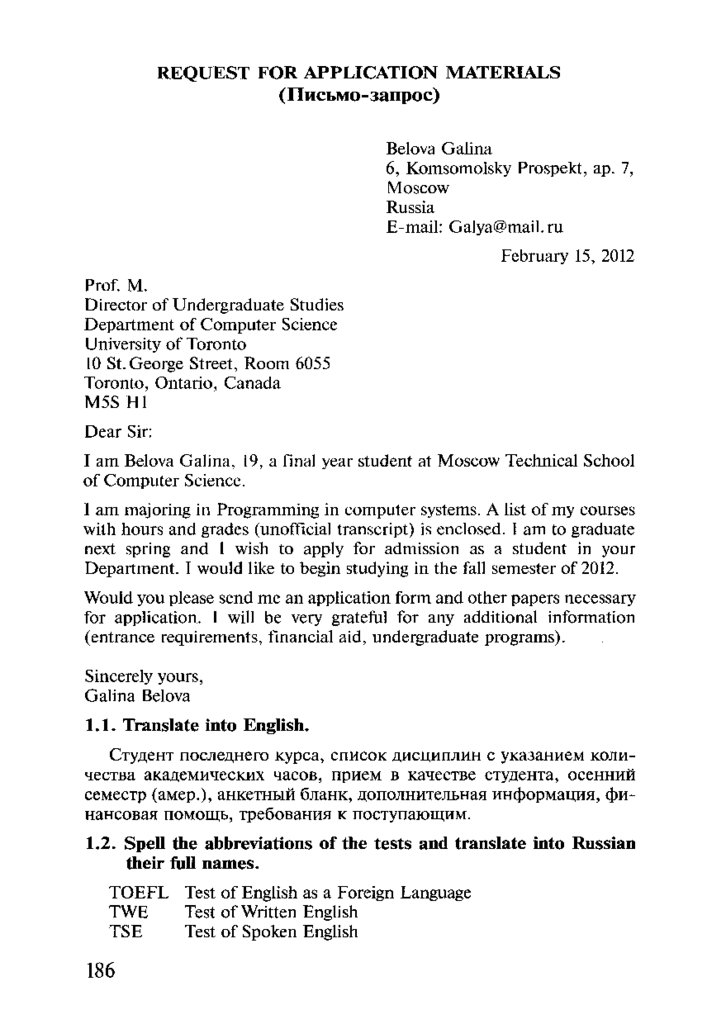

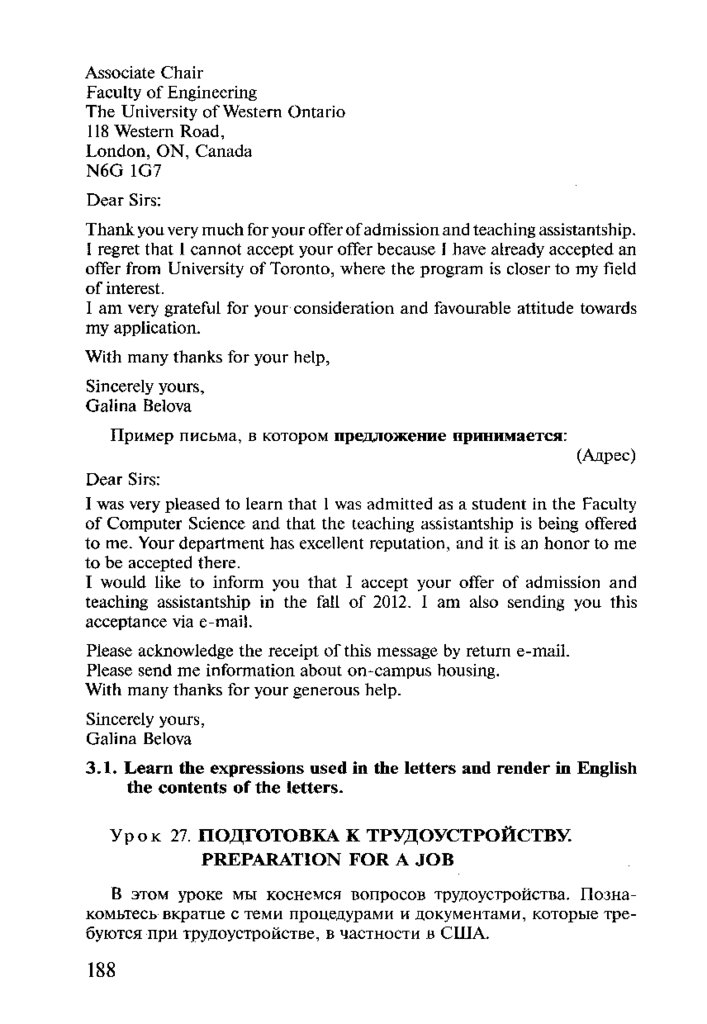



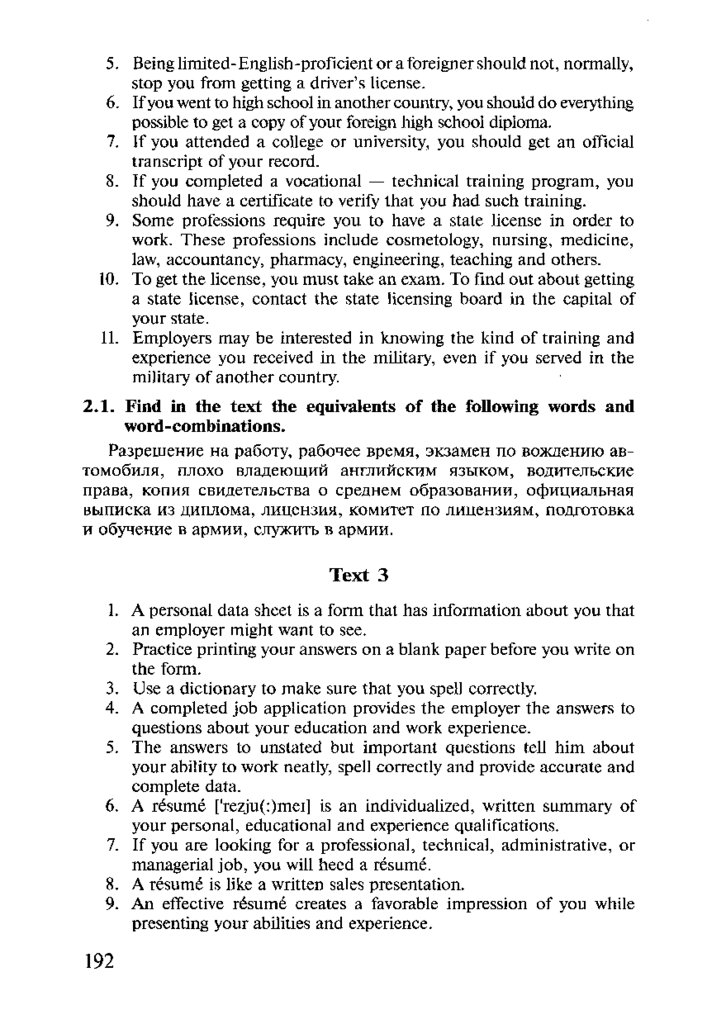
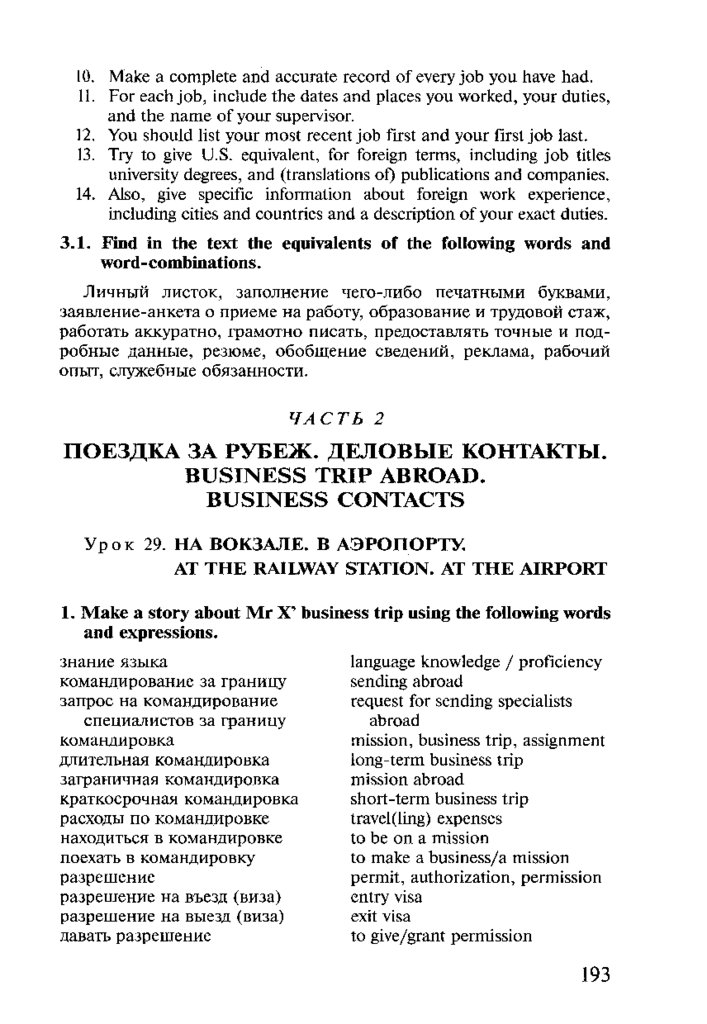
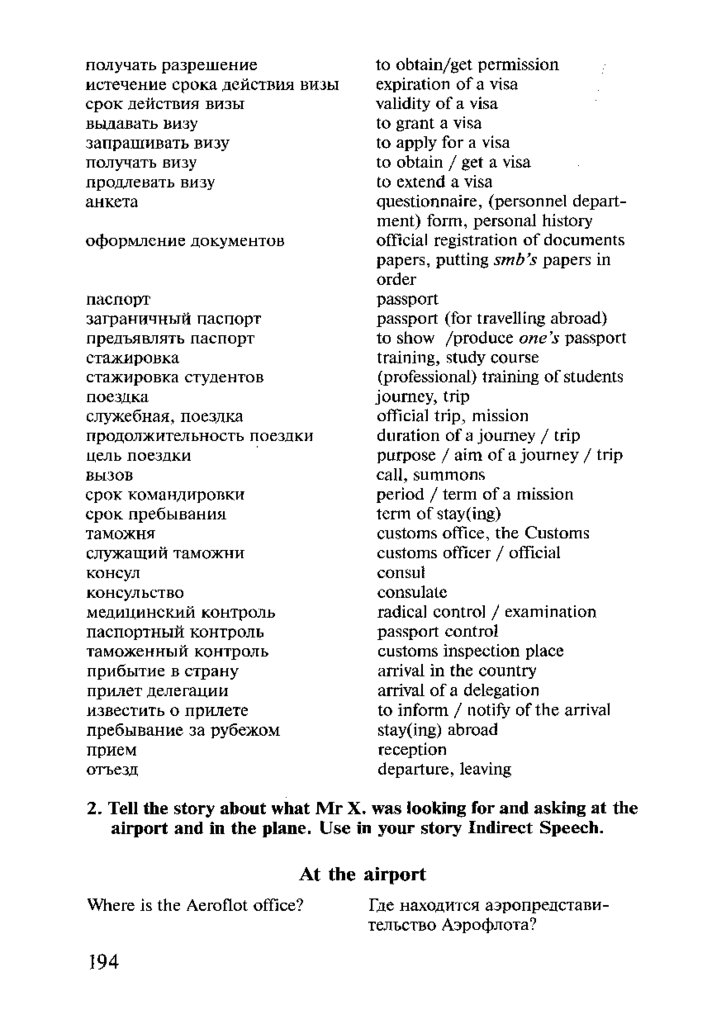


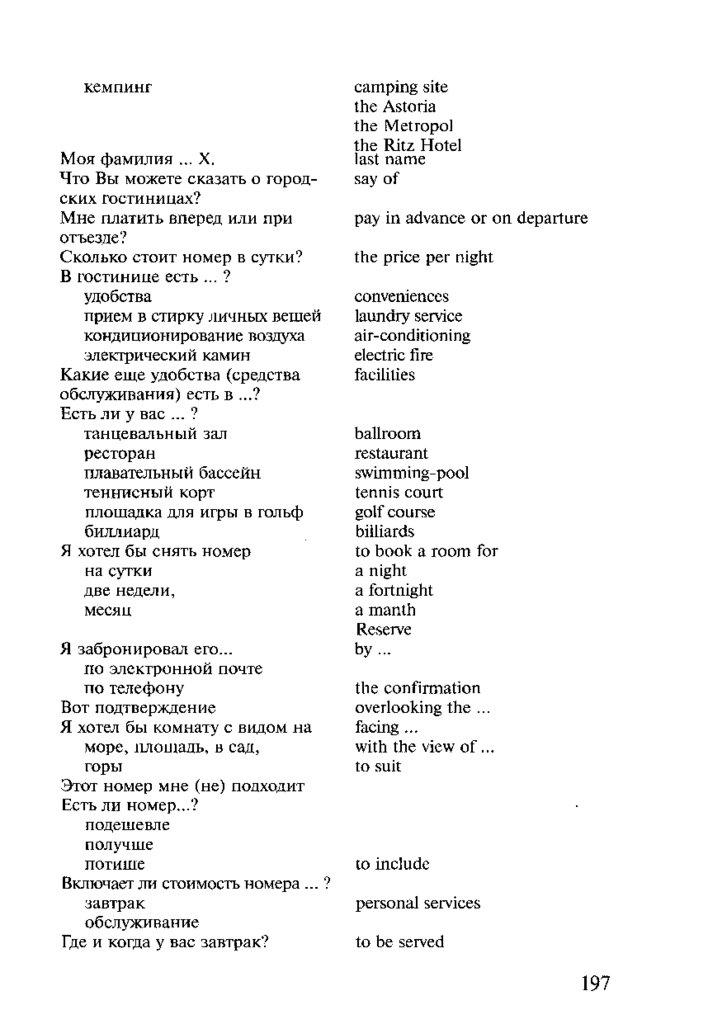
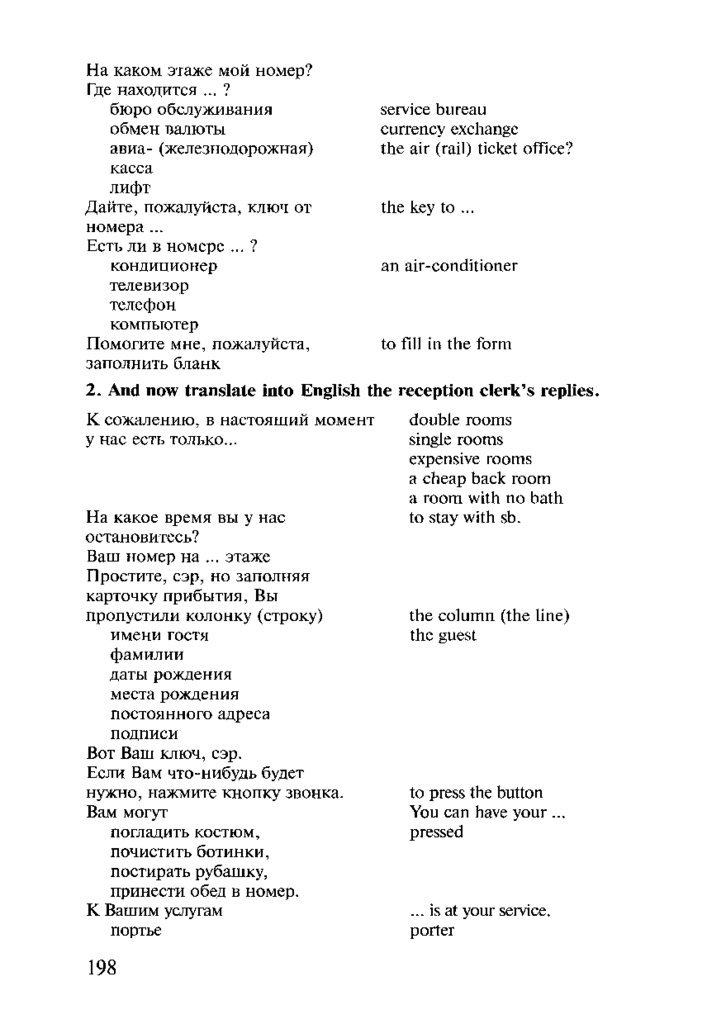
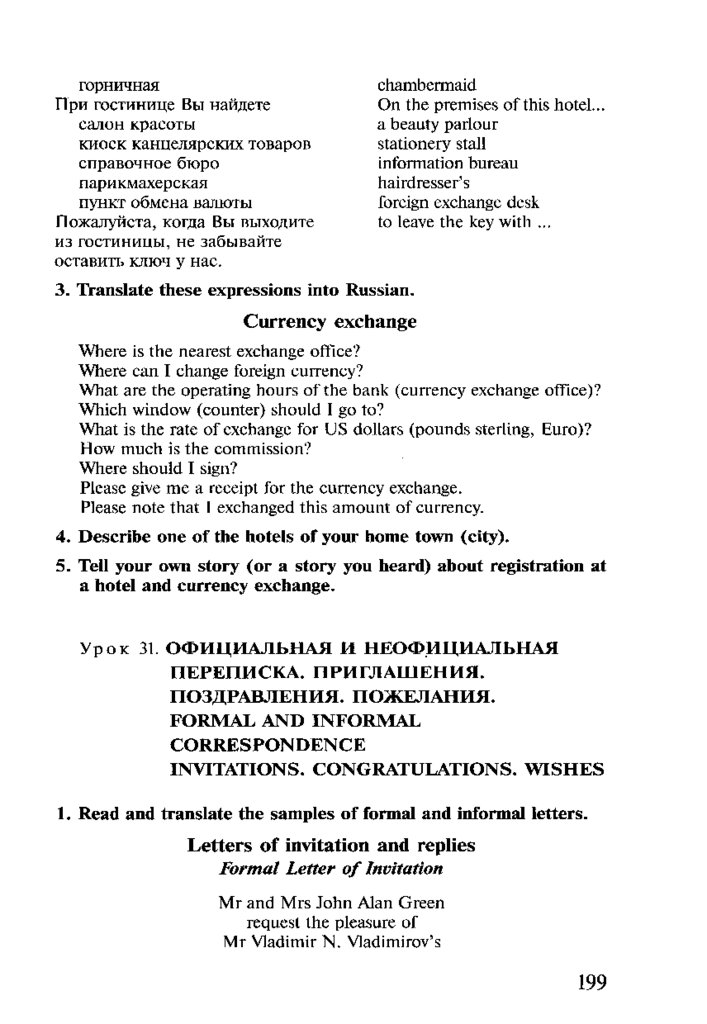
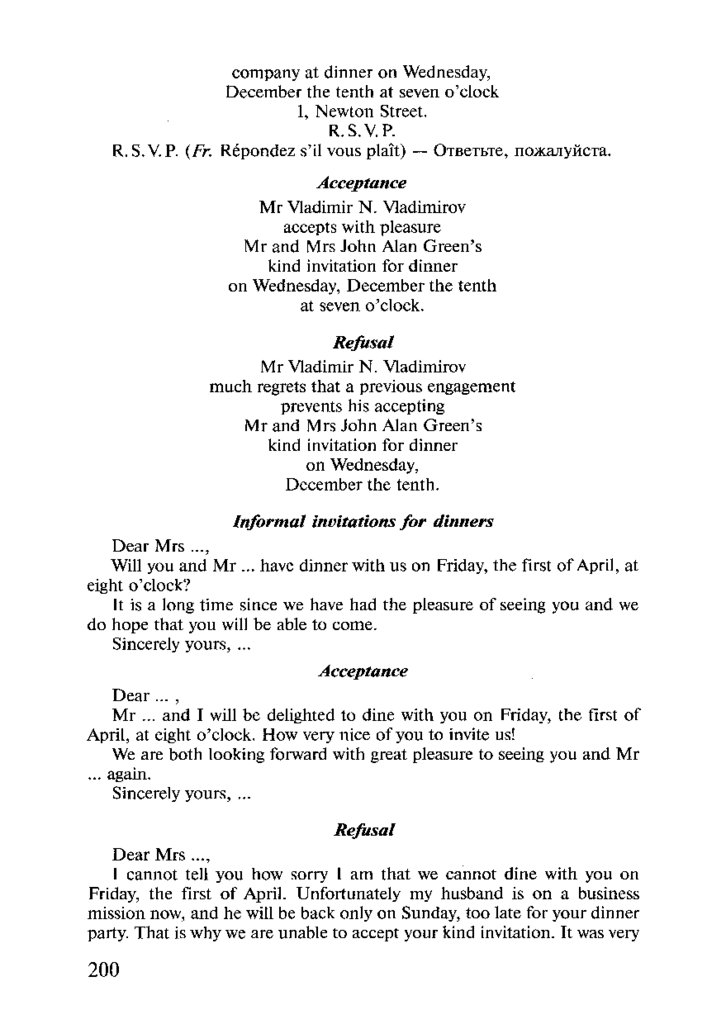
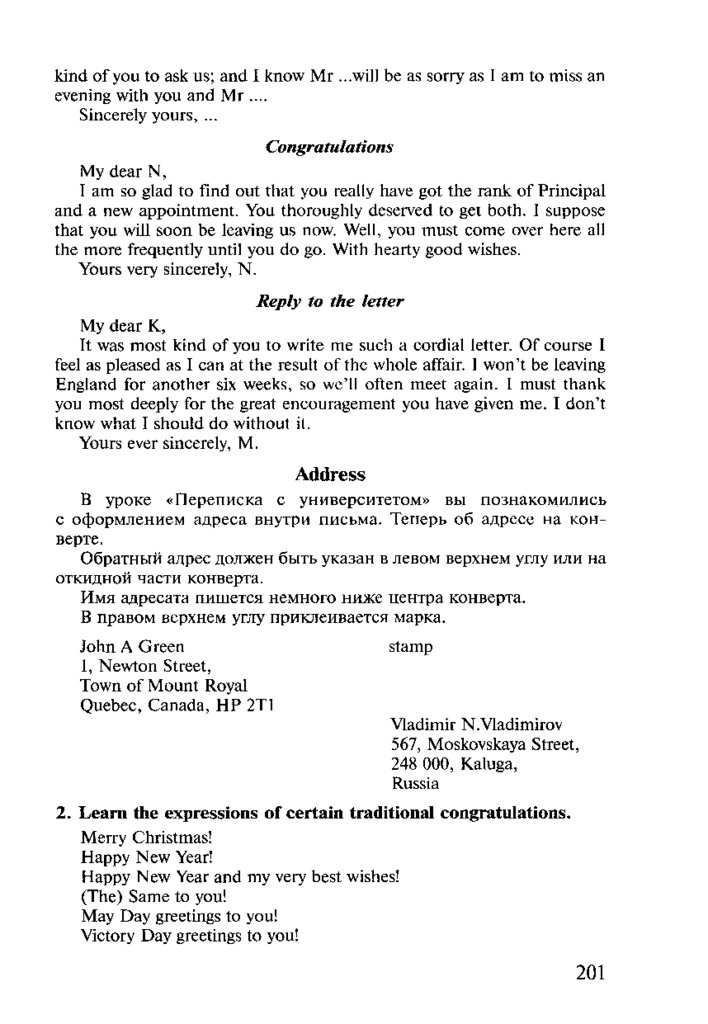
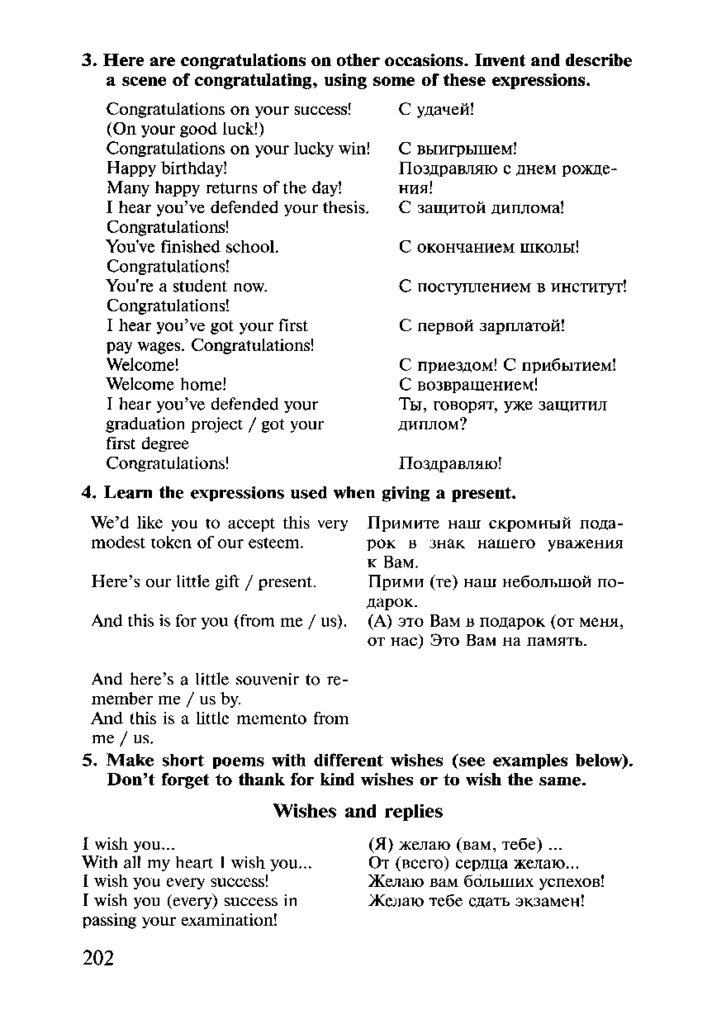



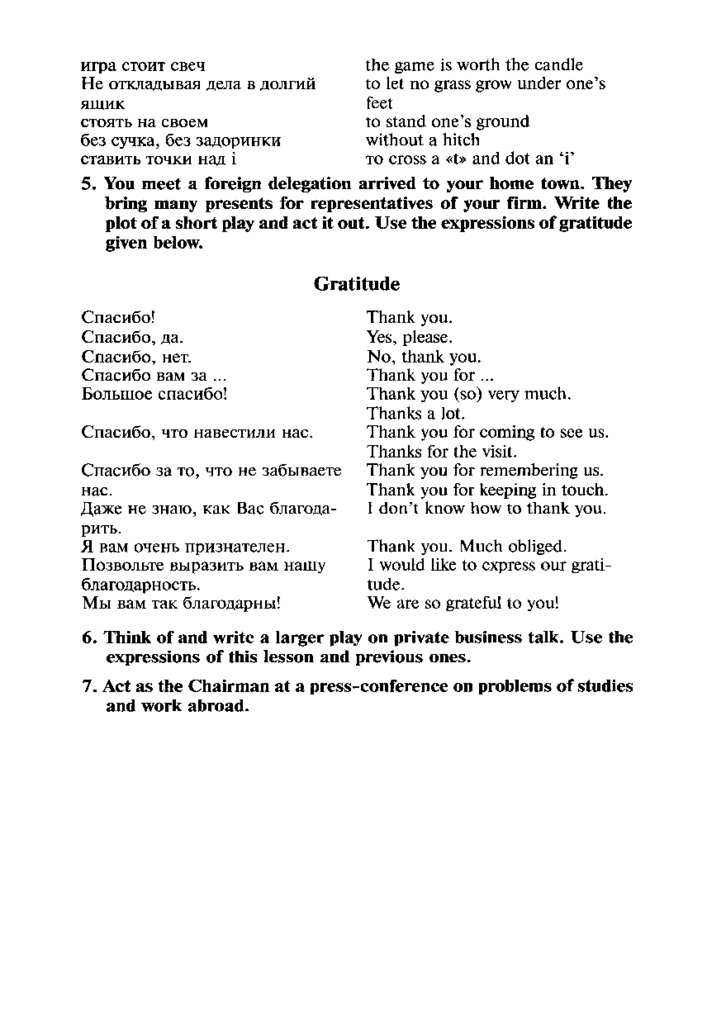
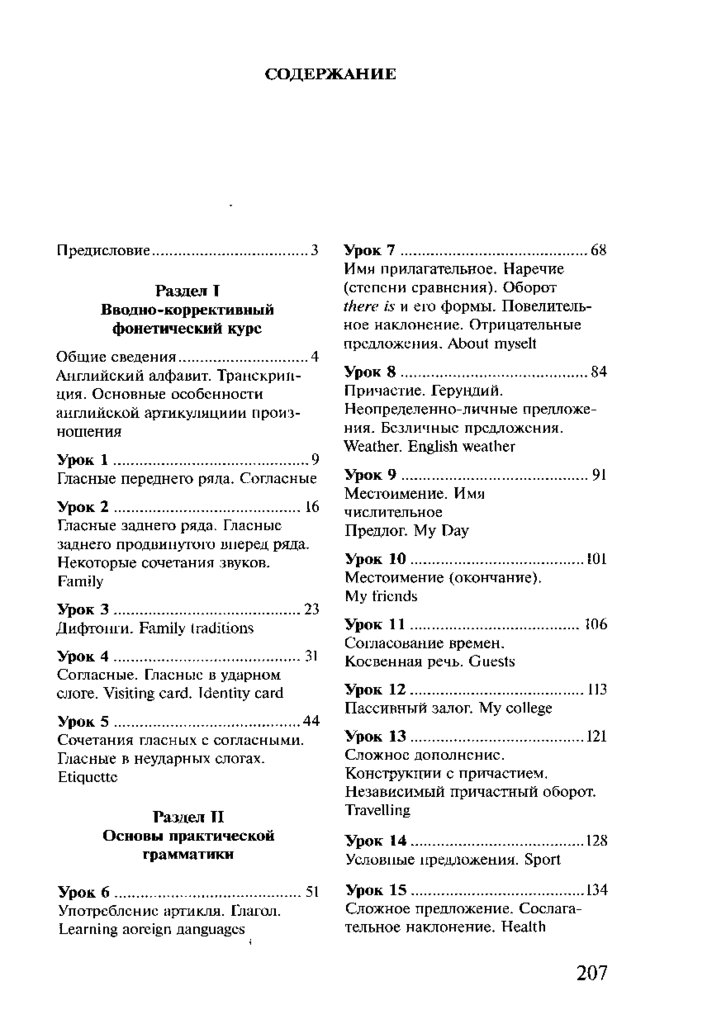


 english
english








